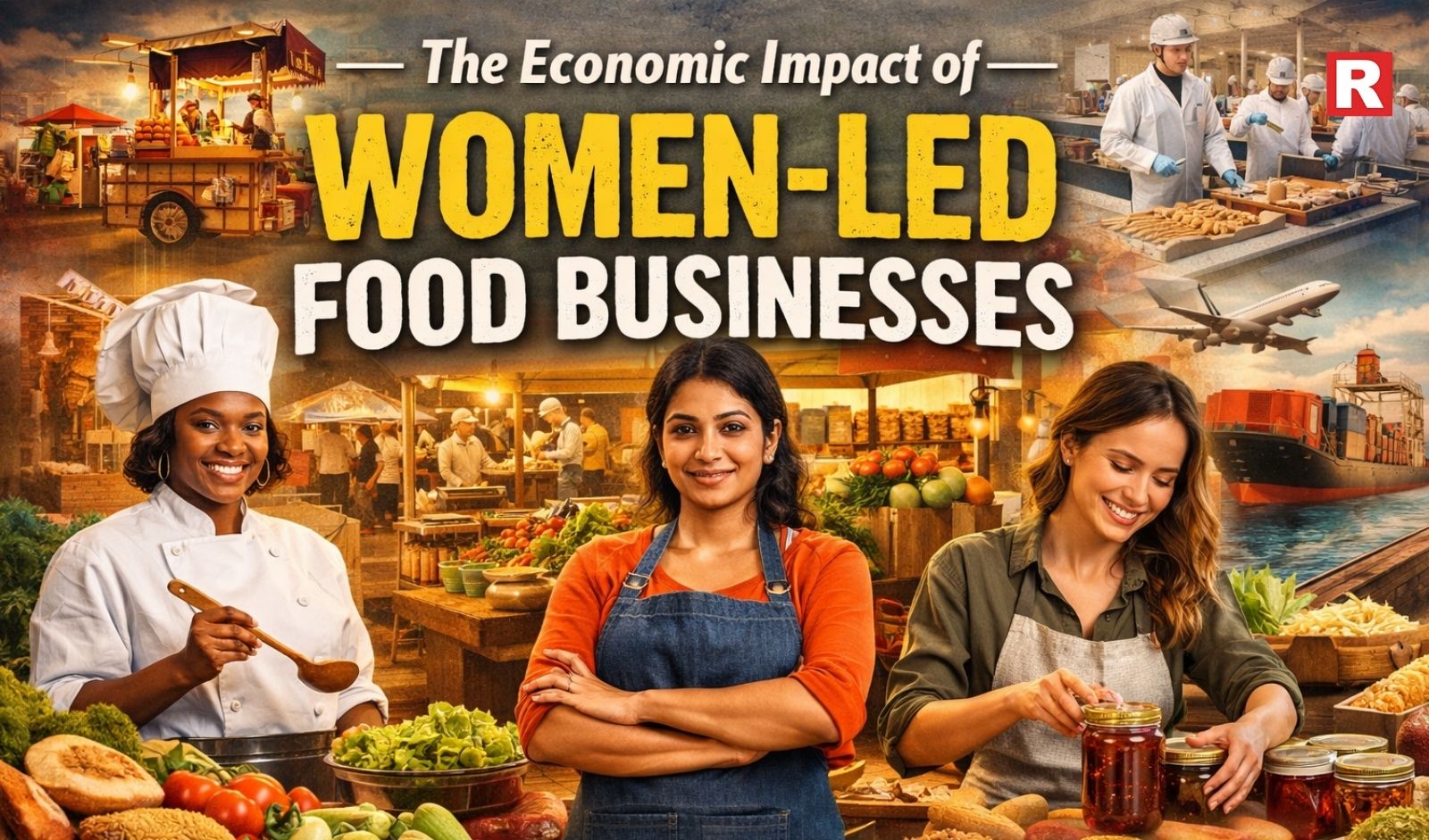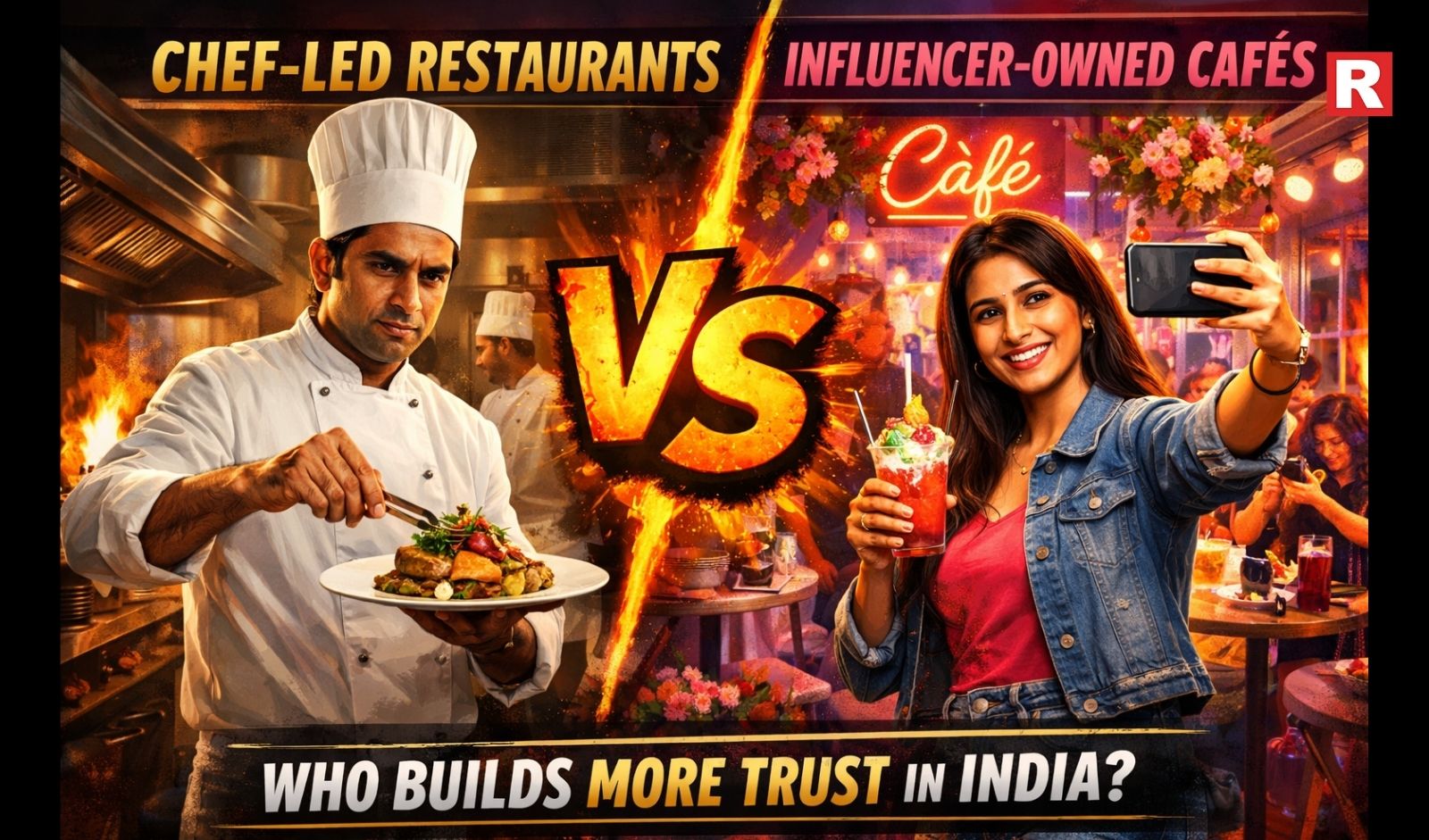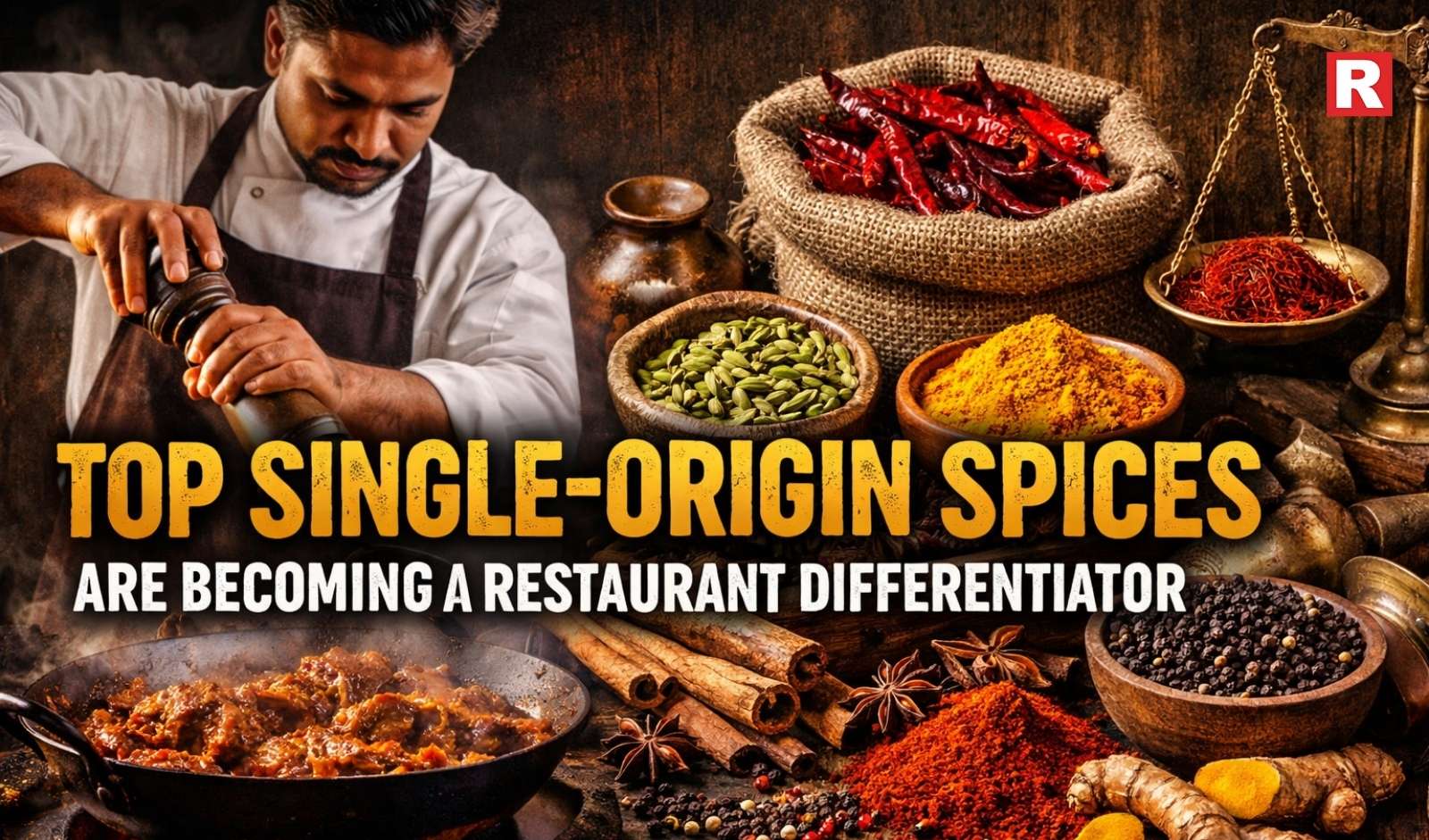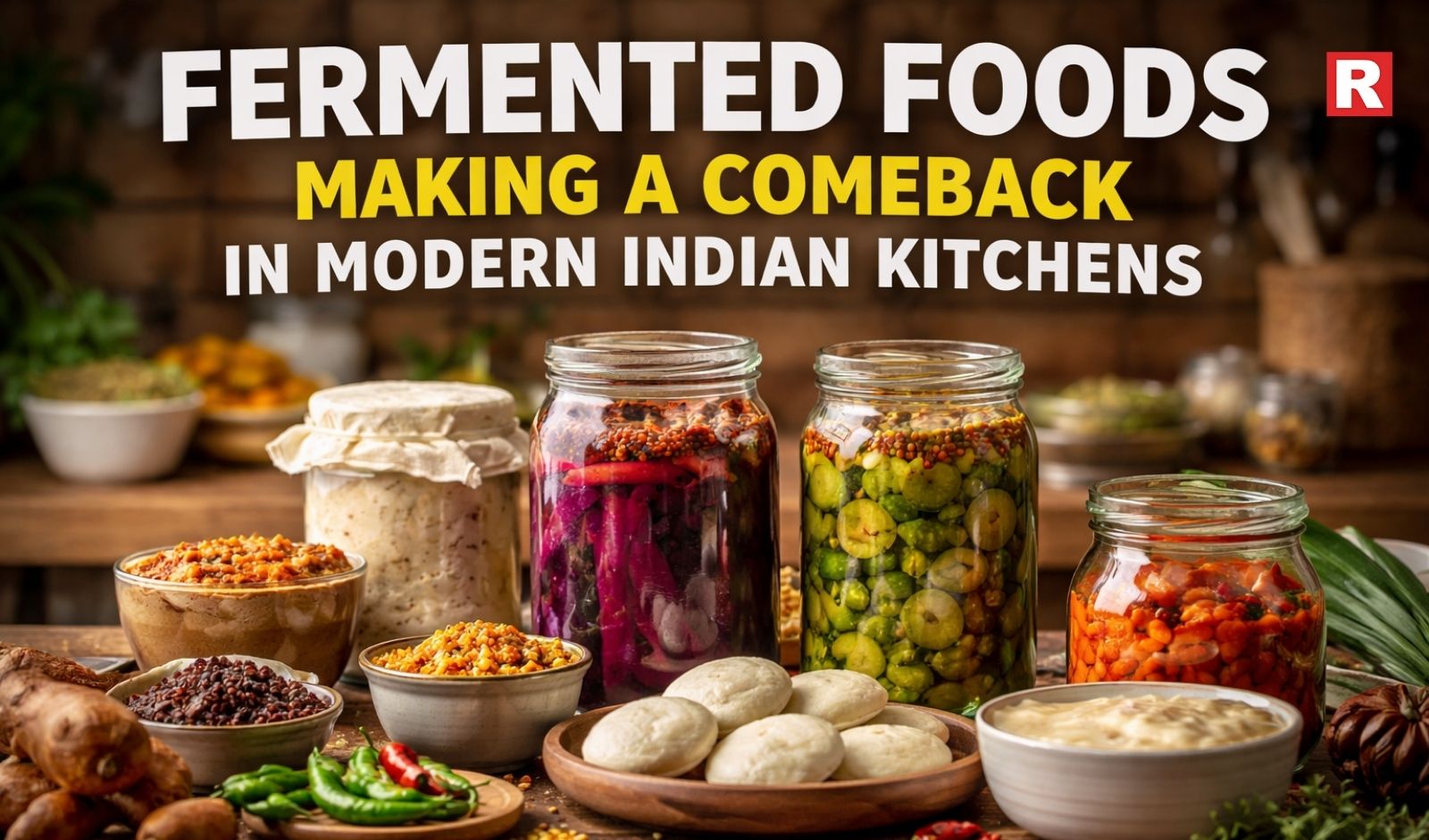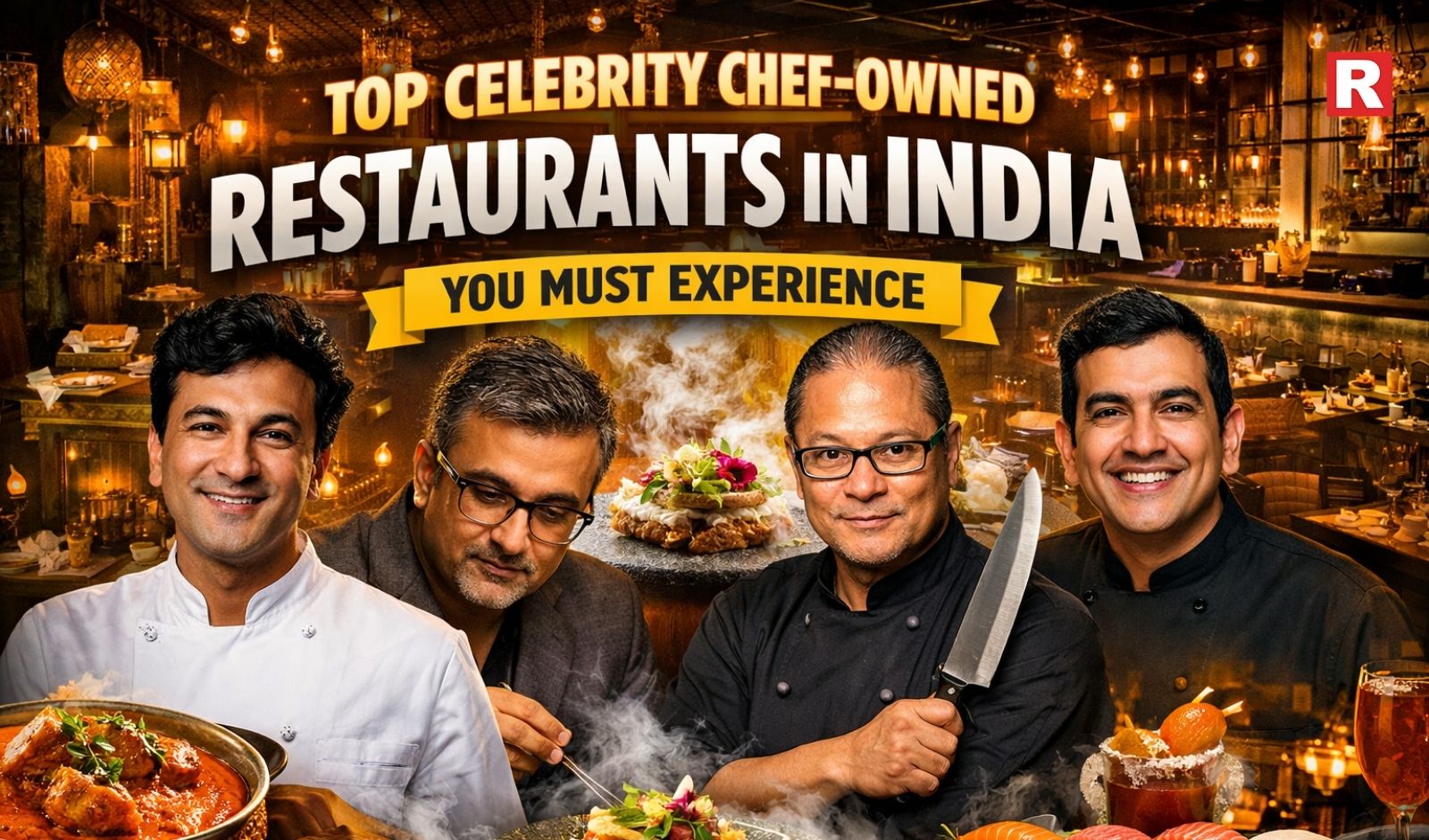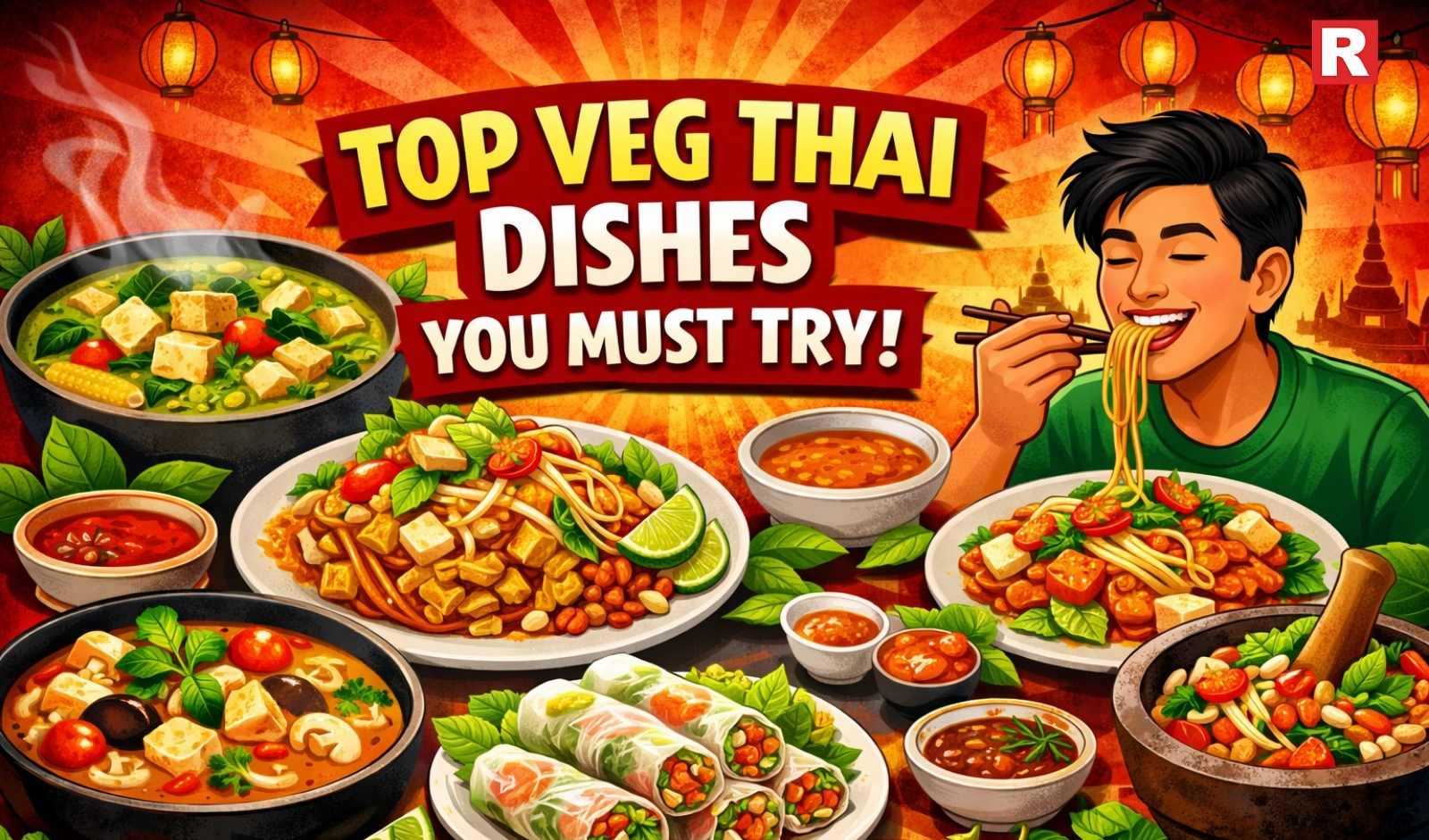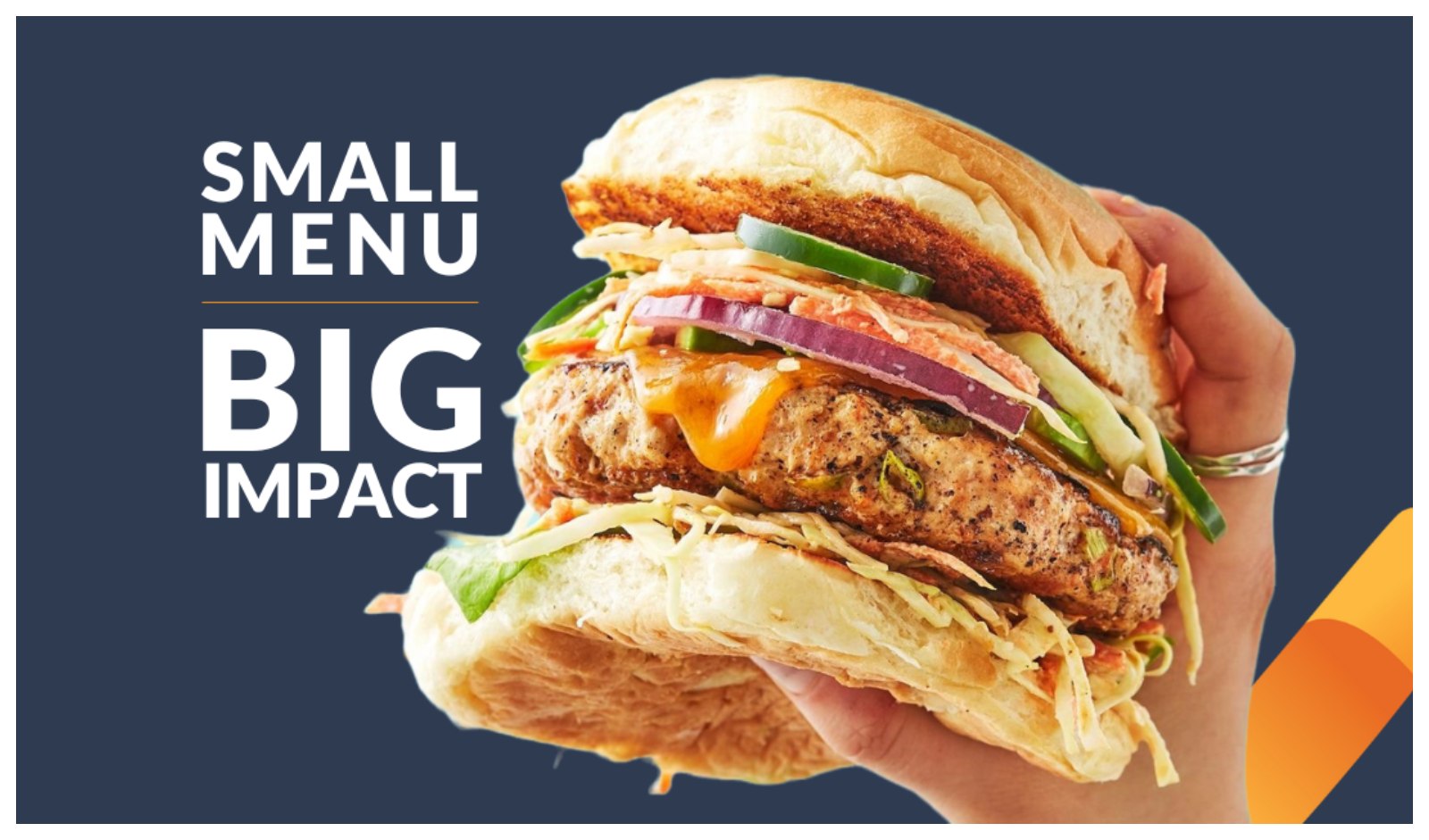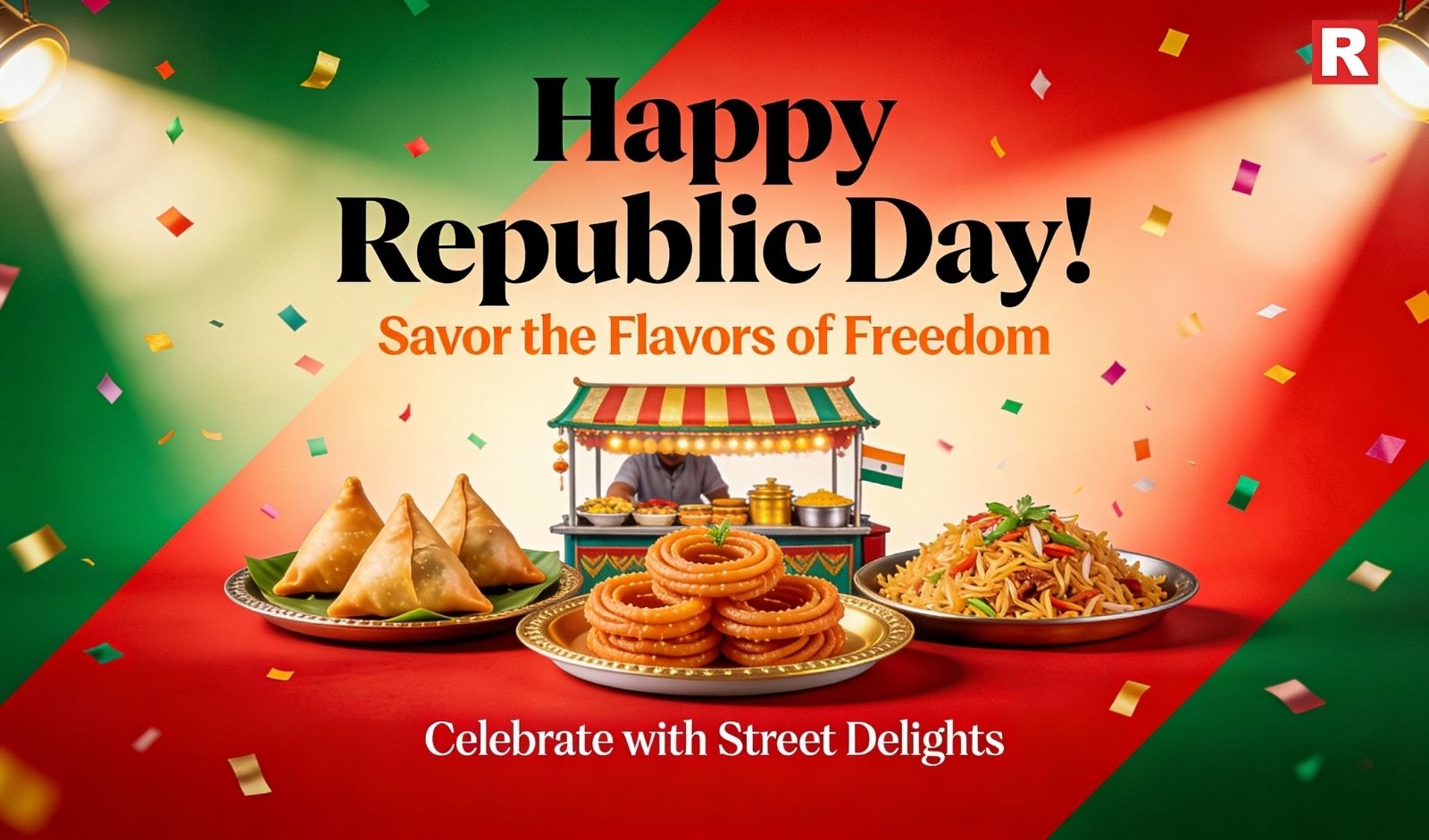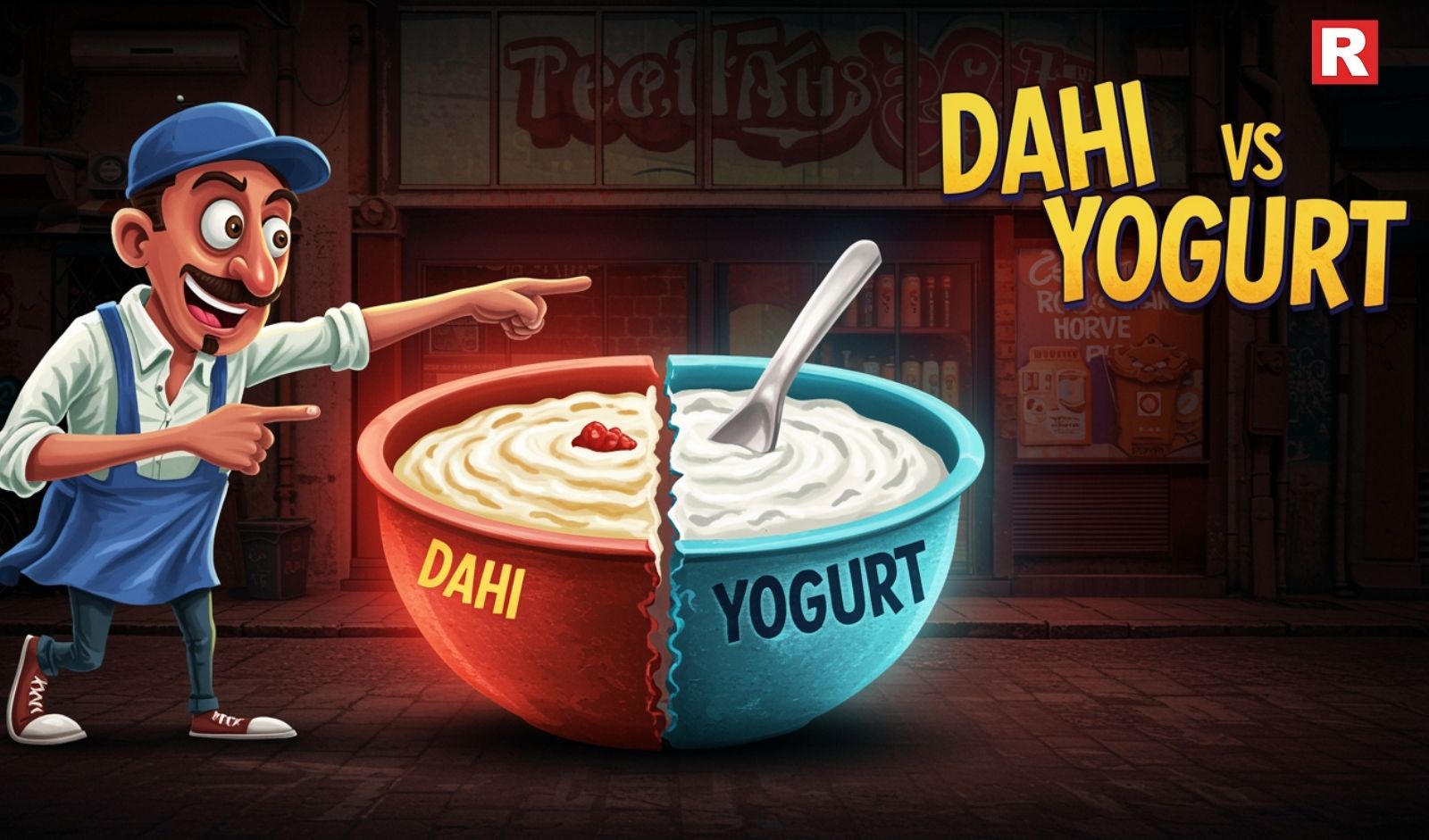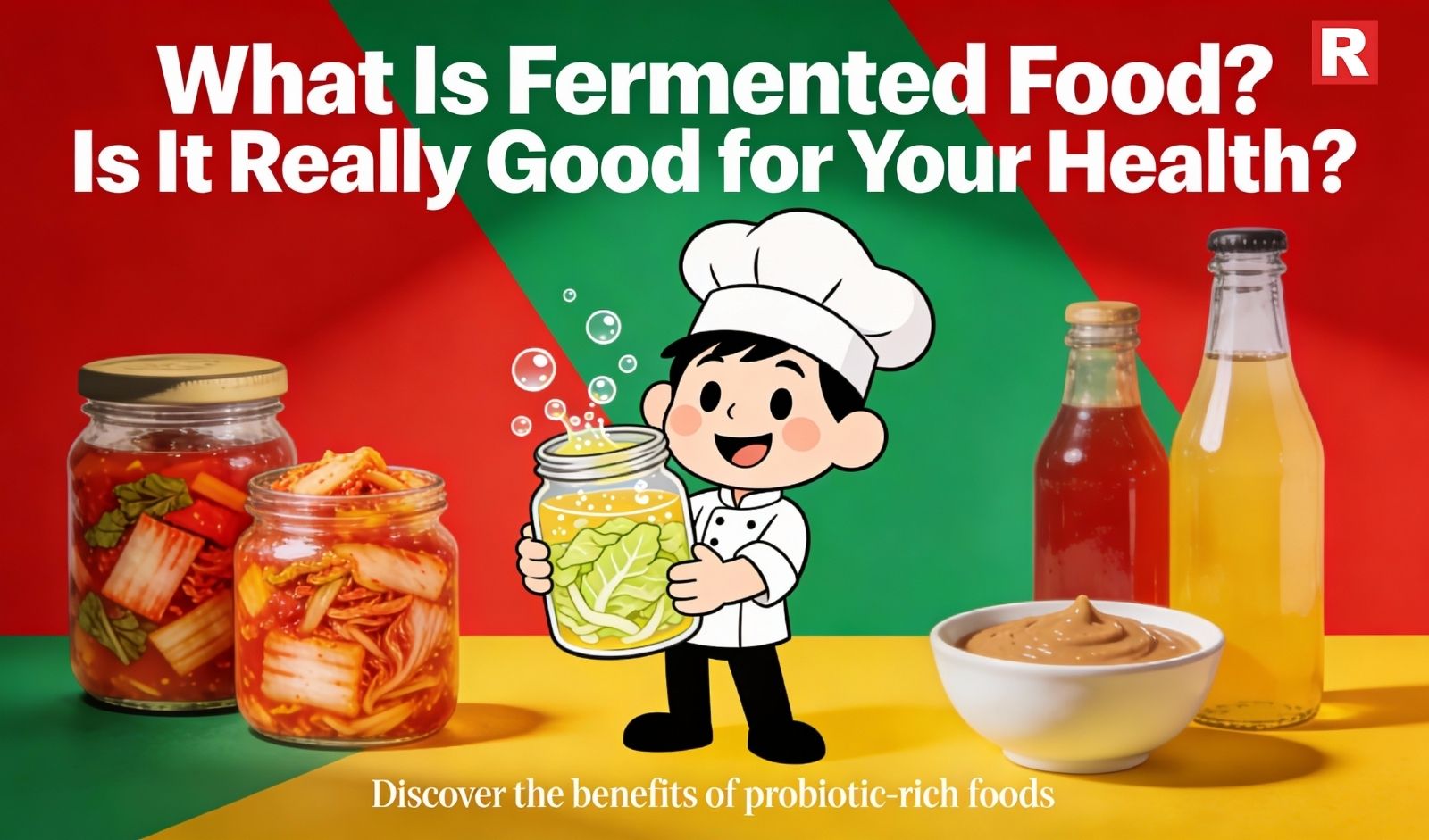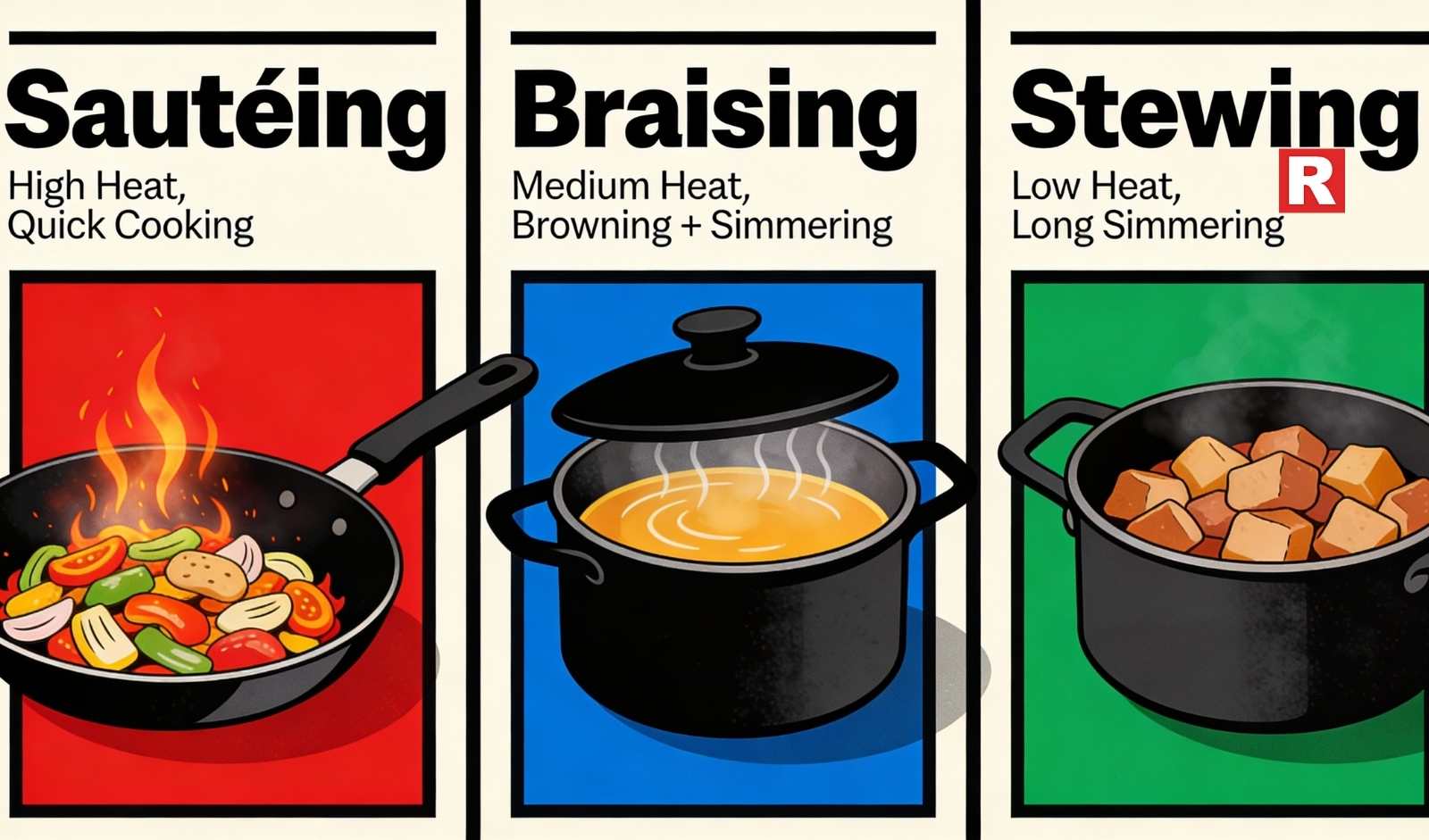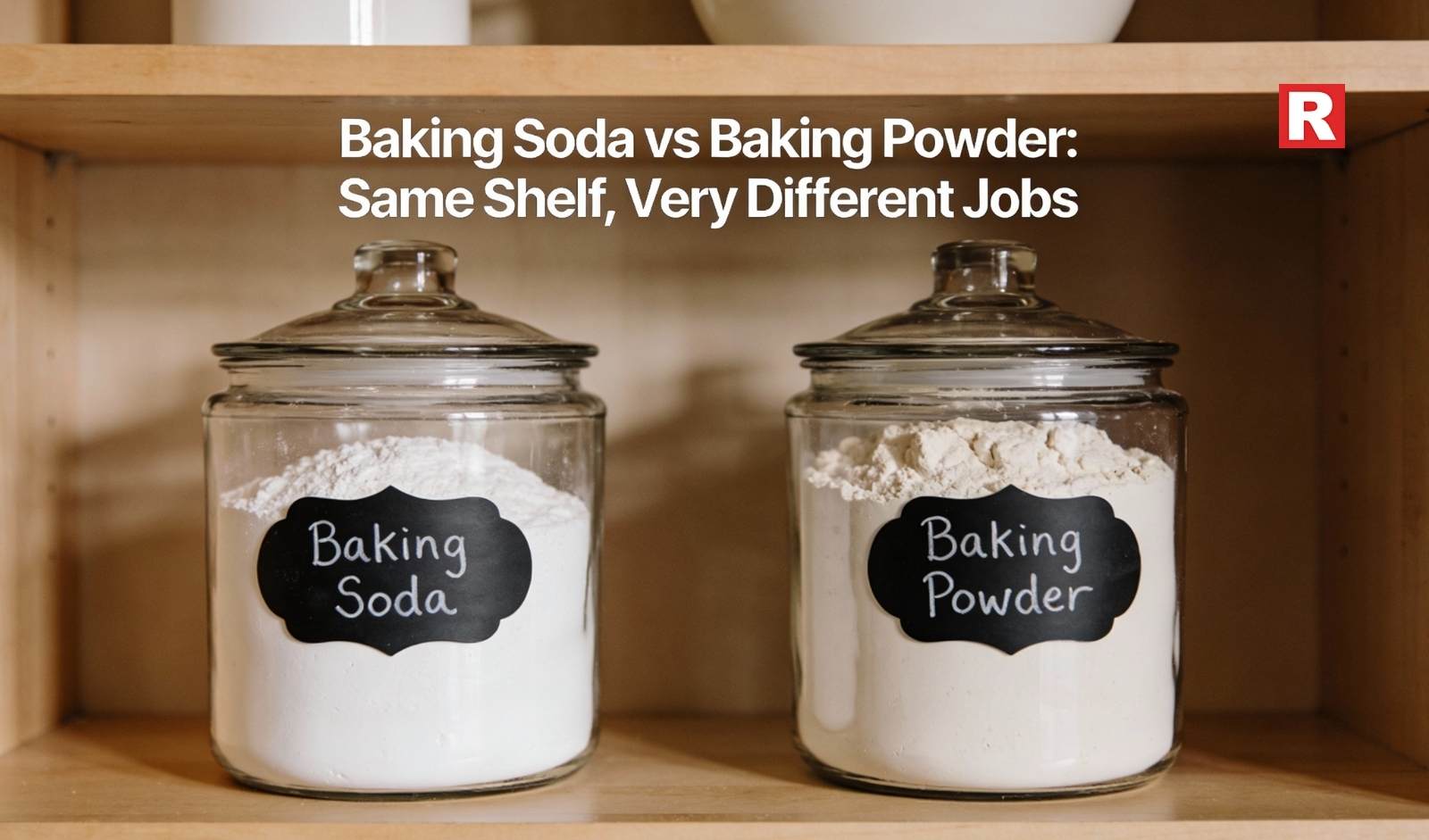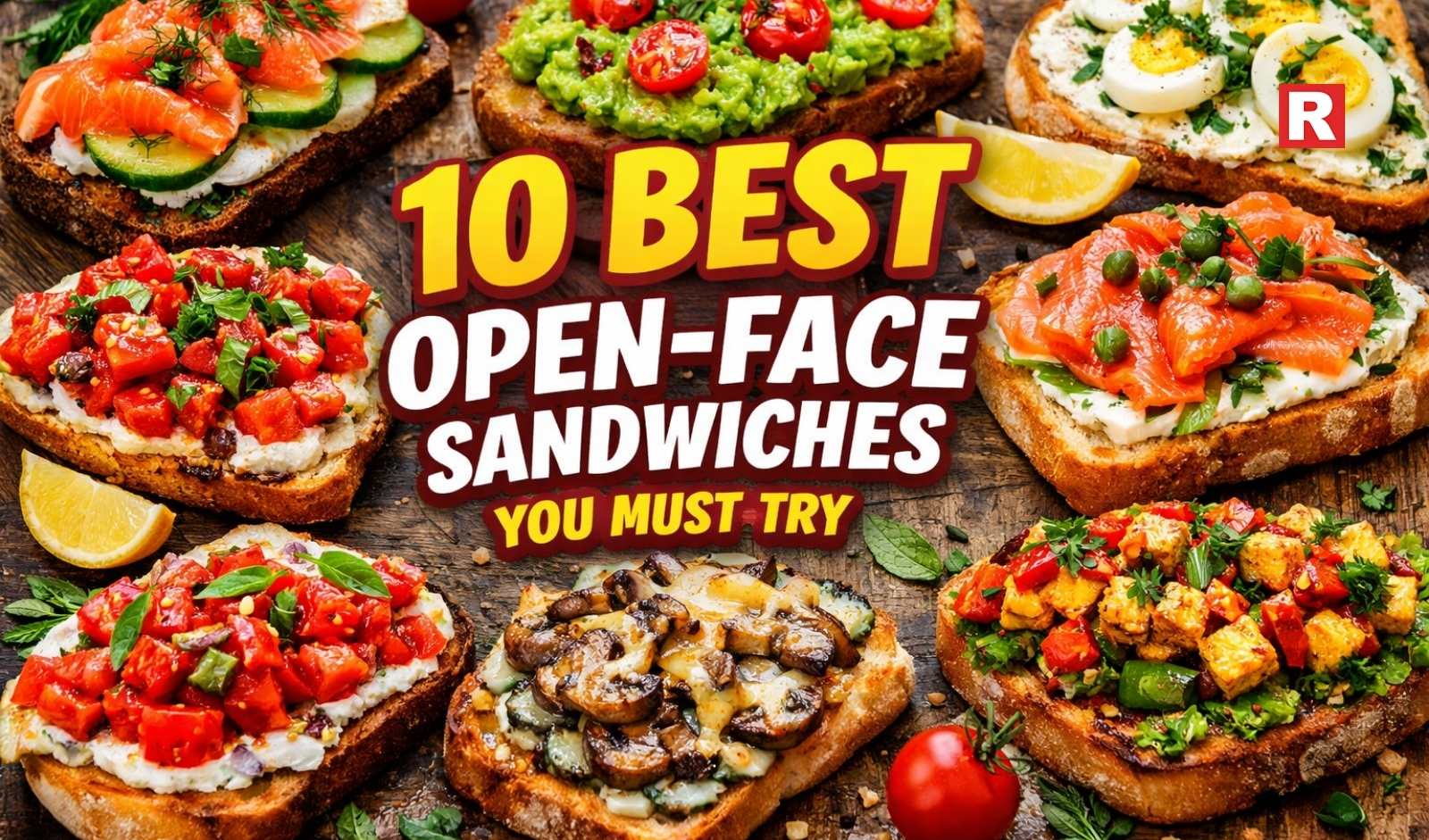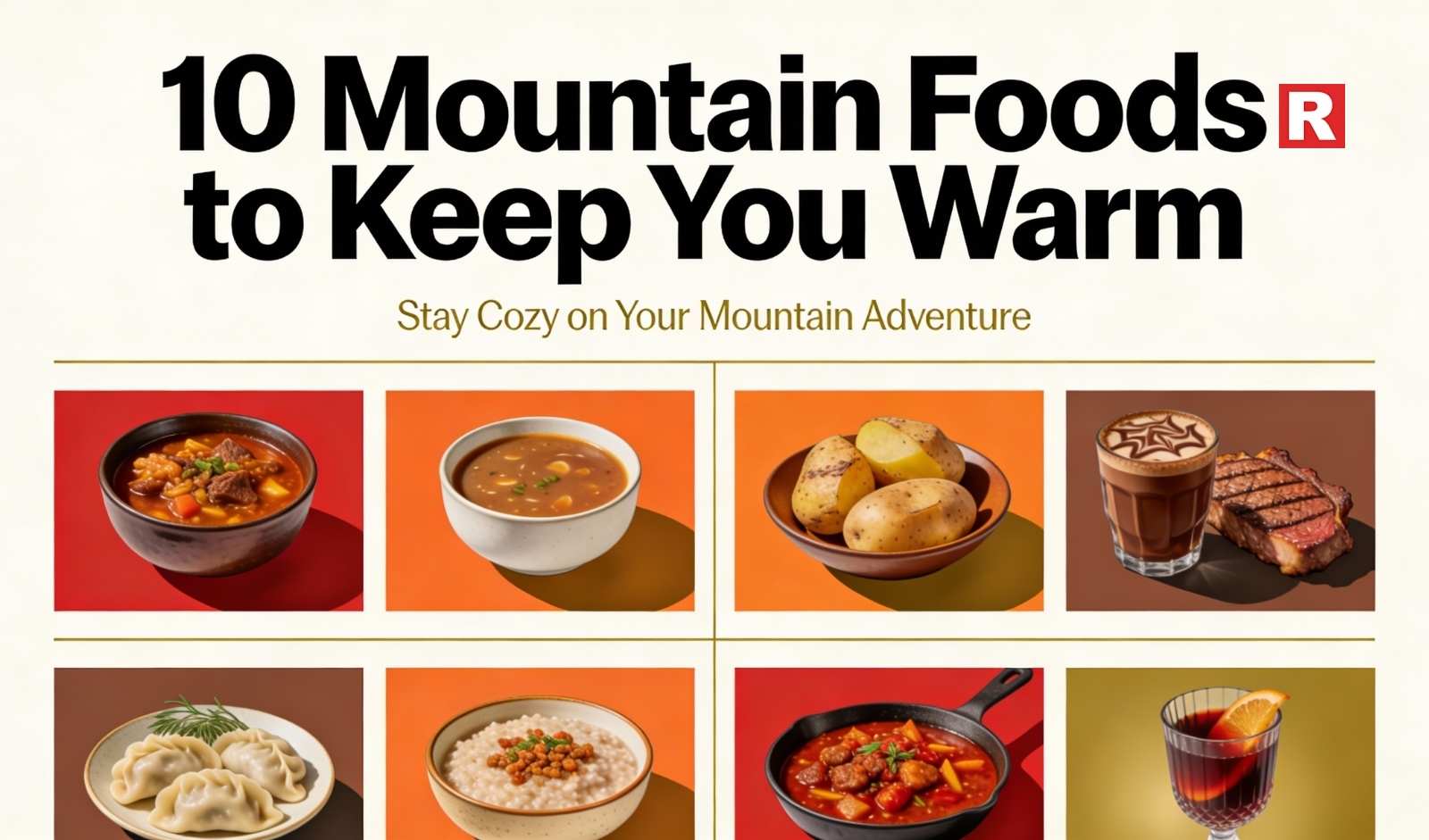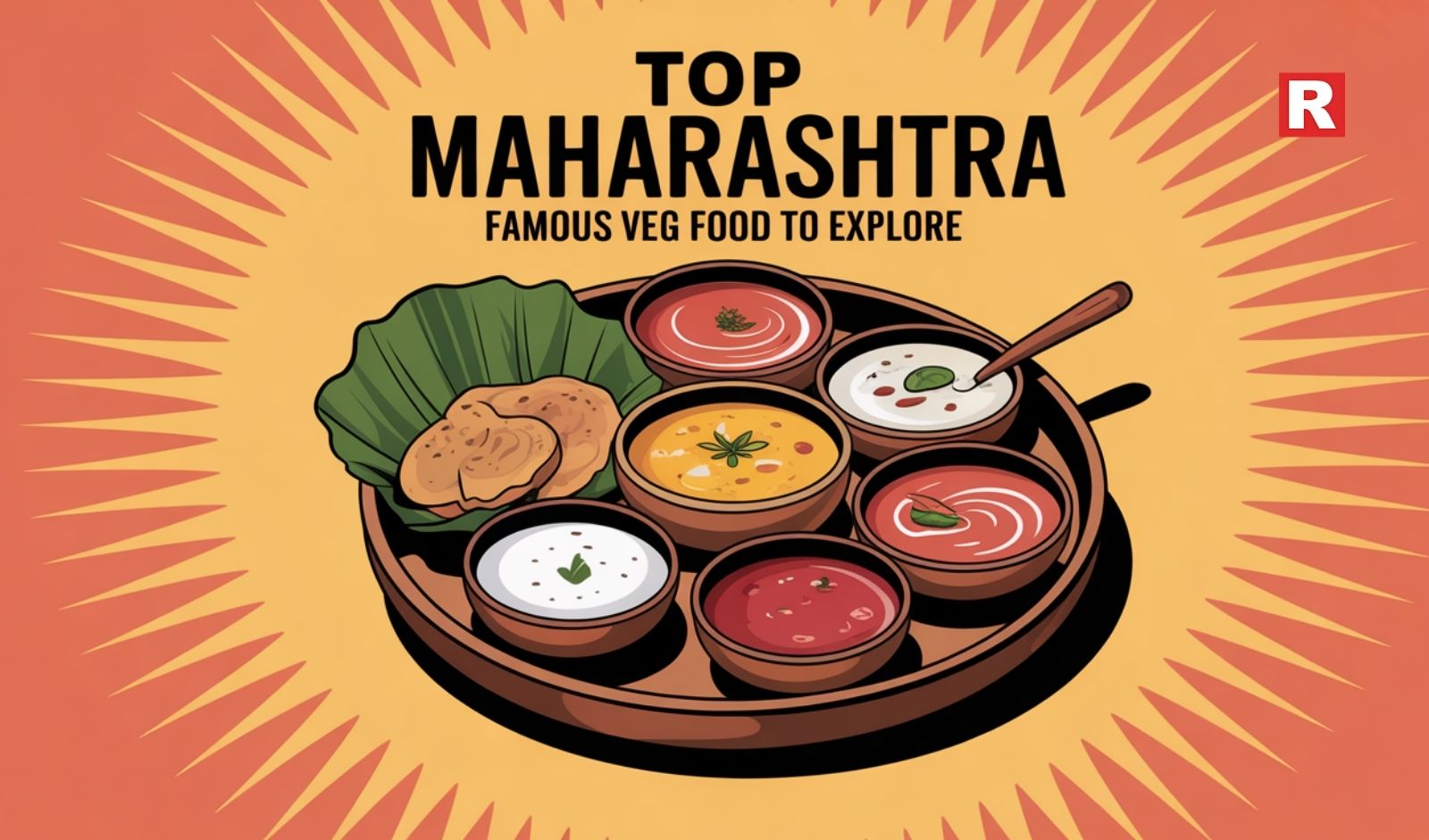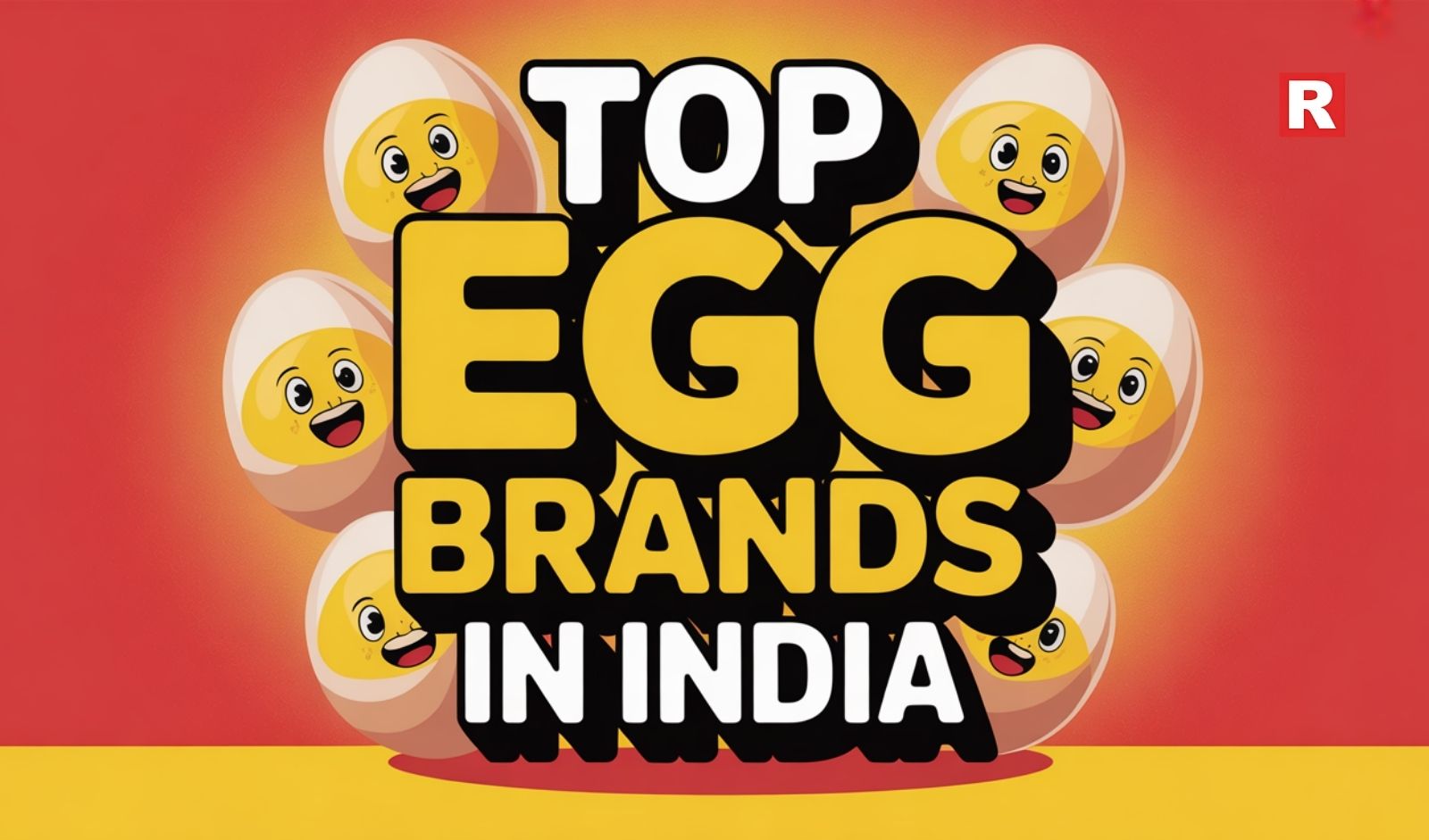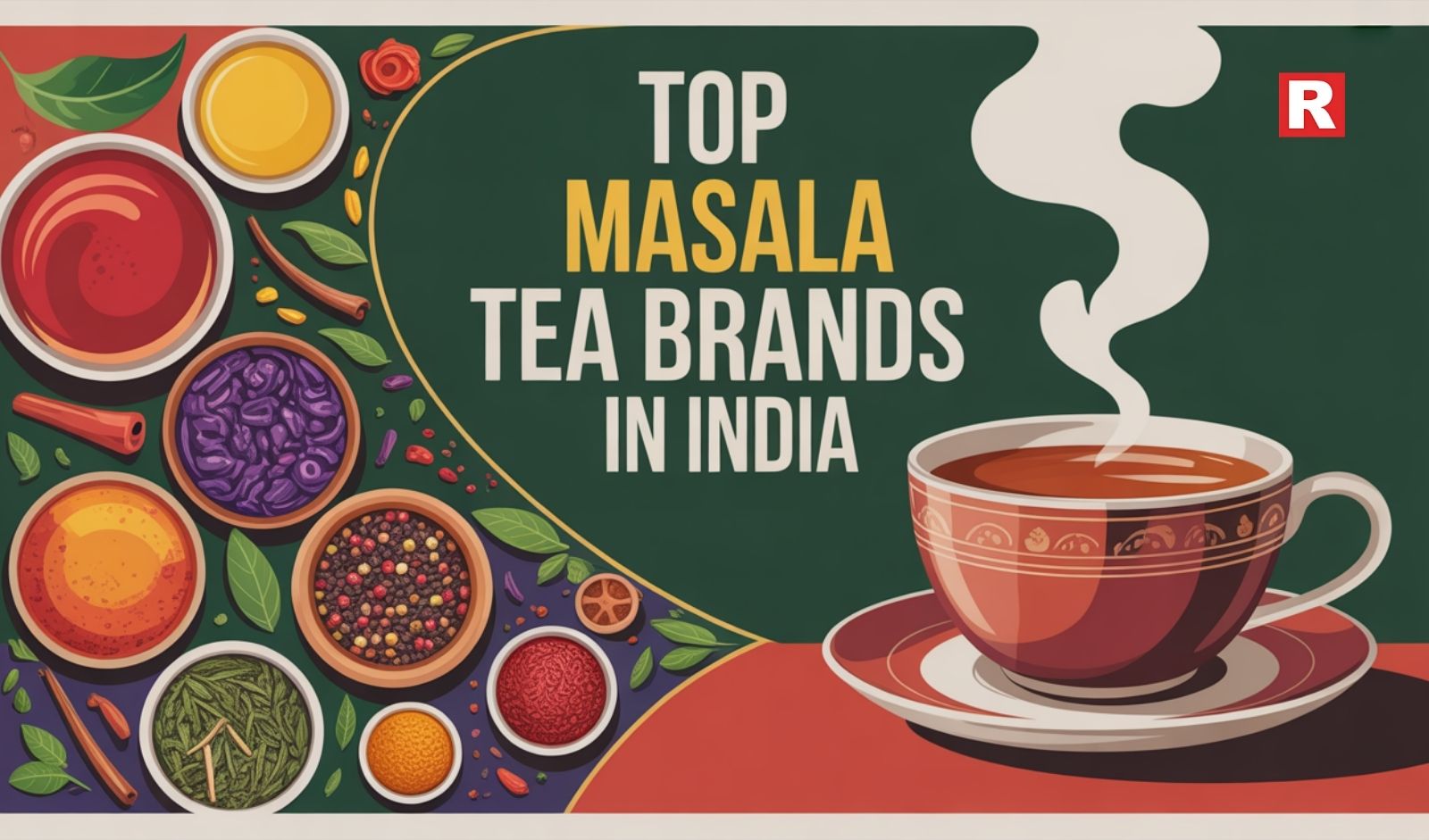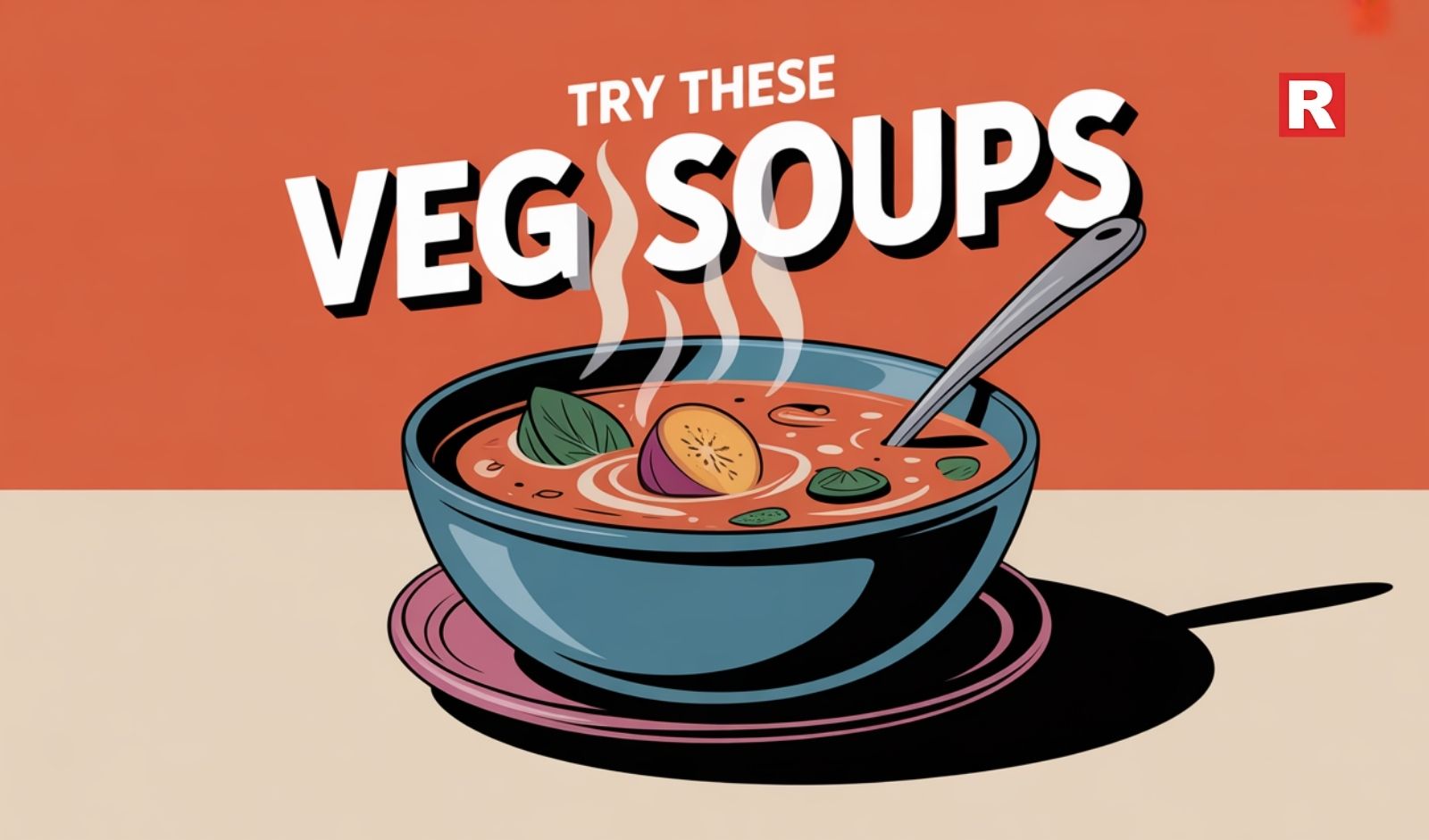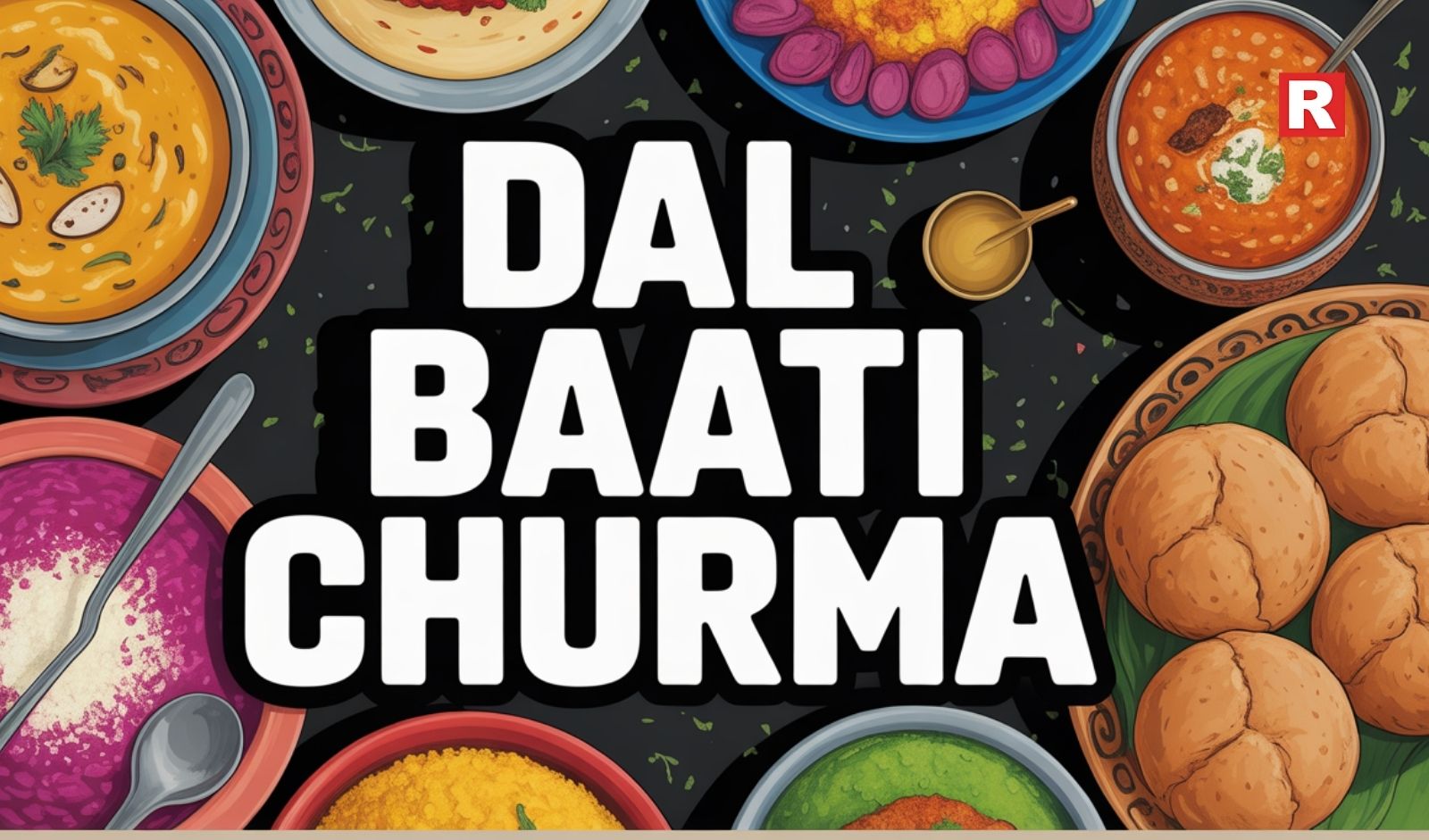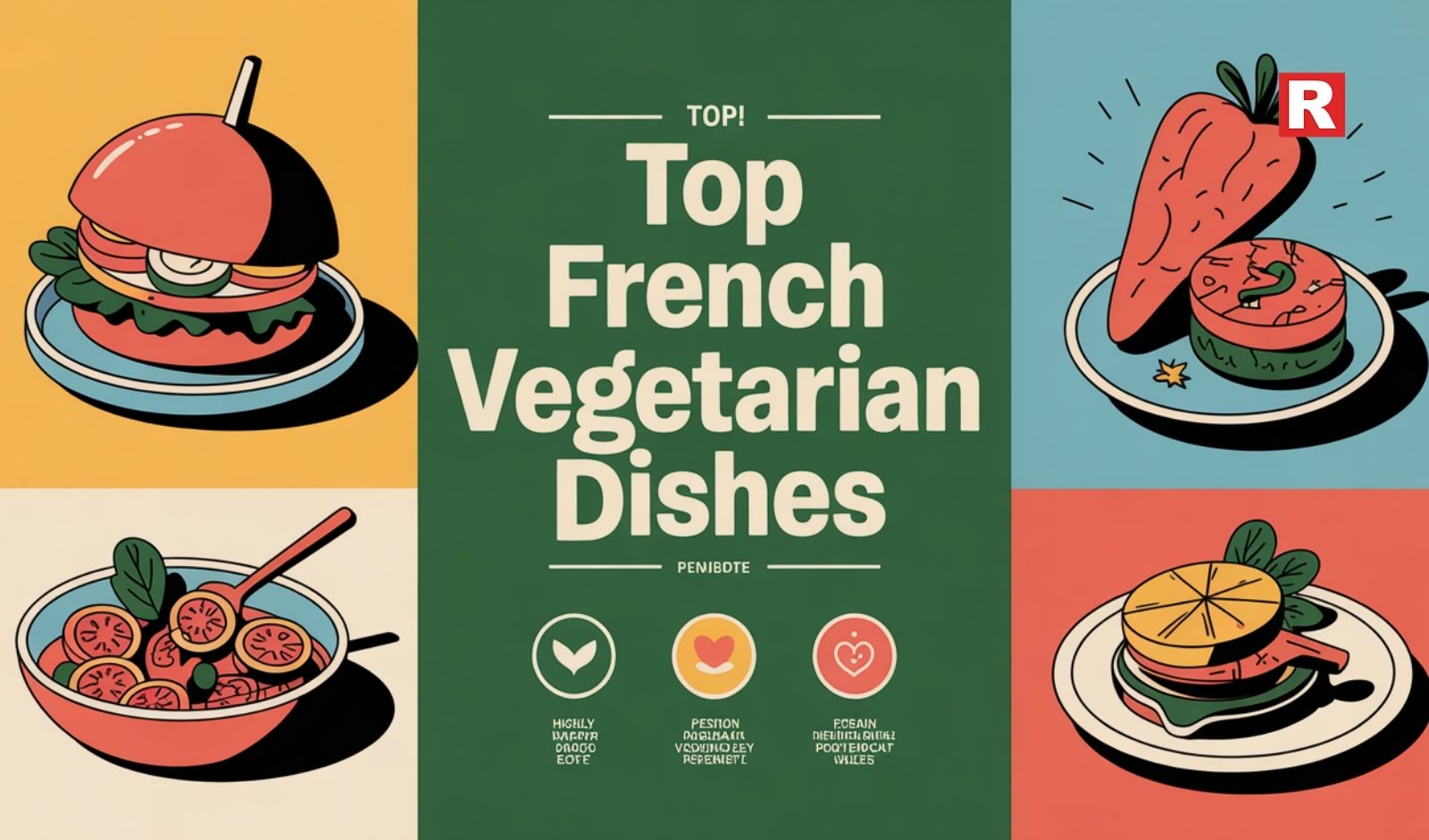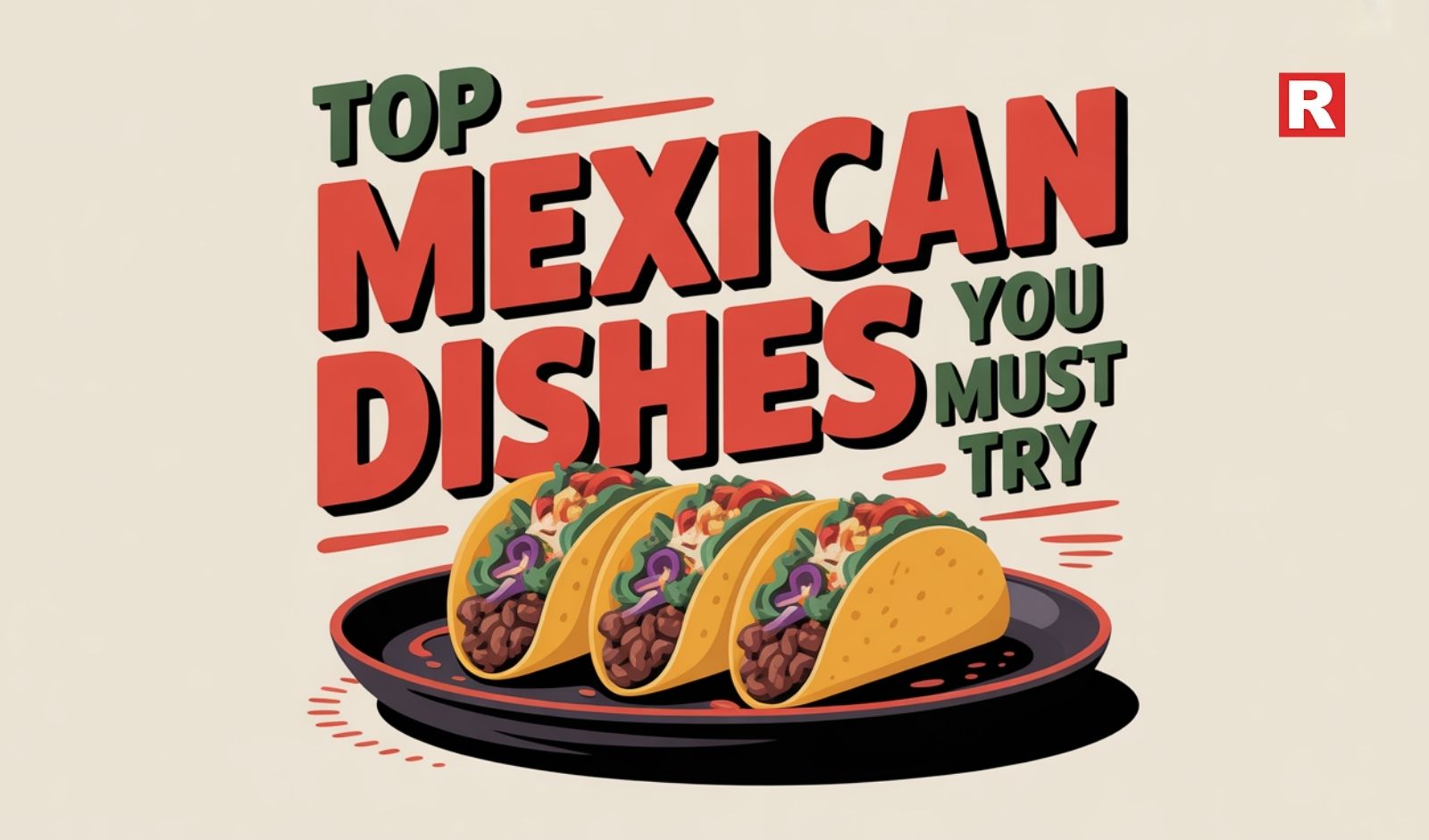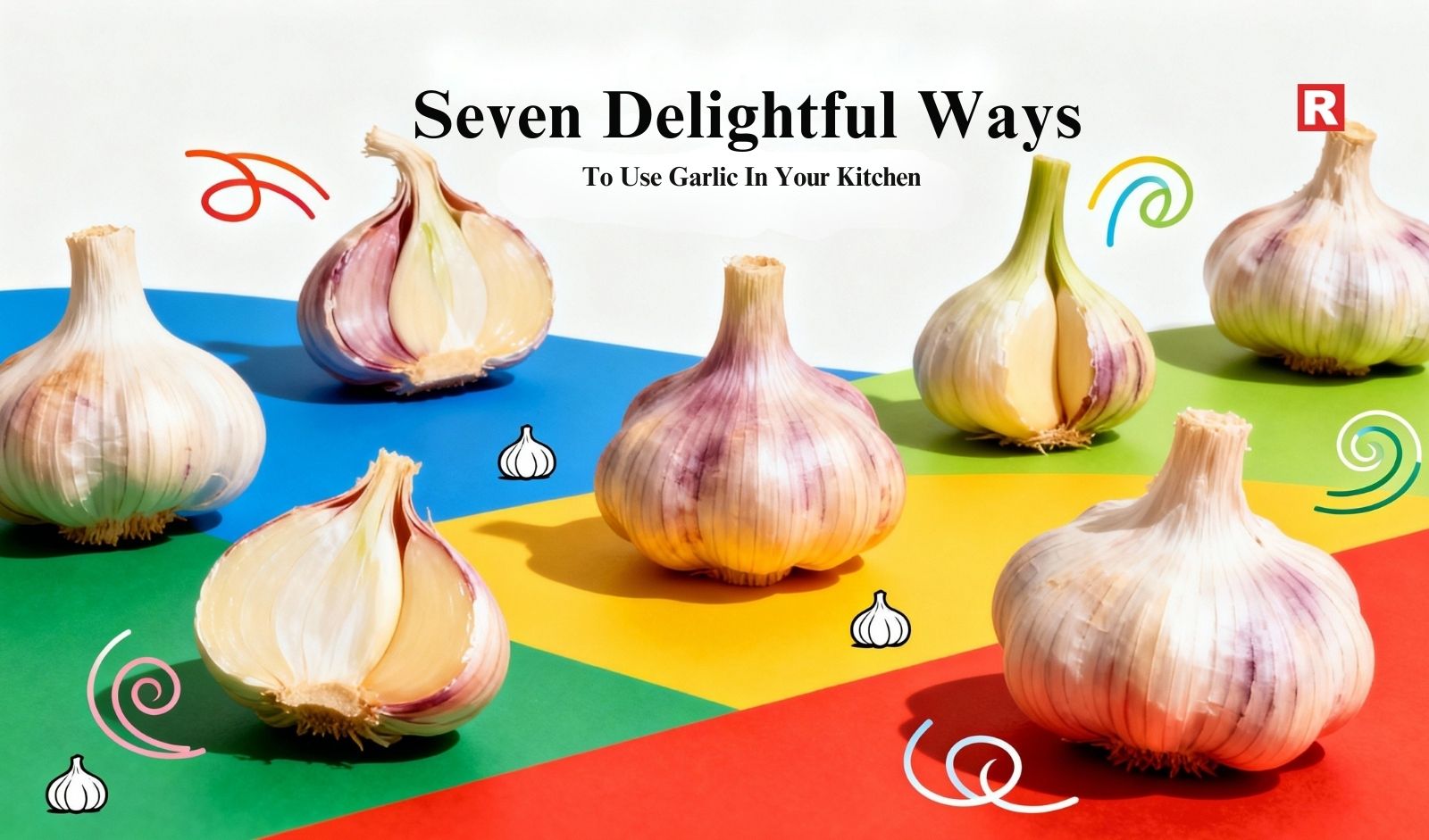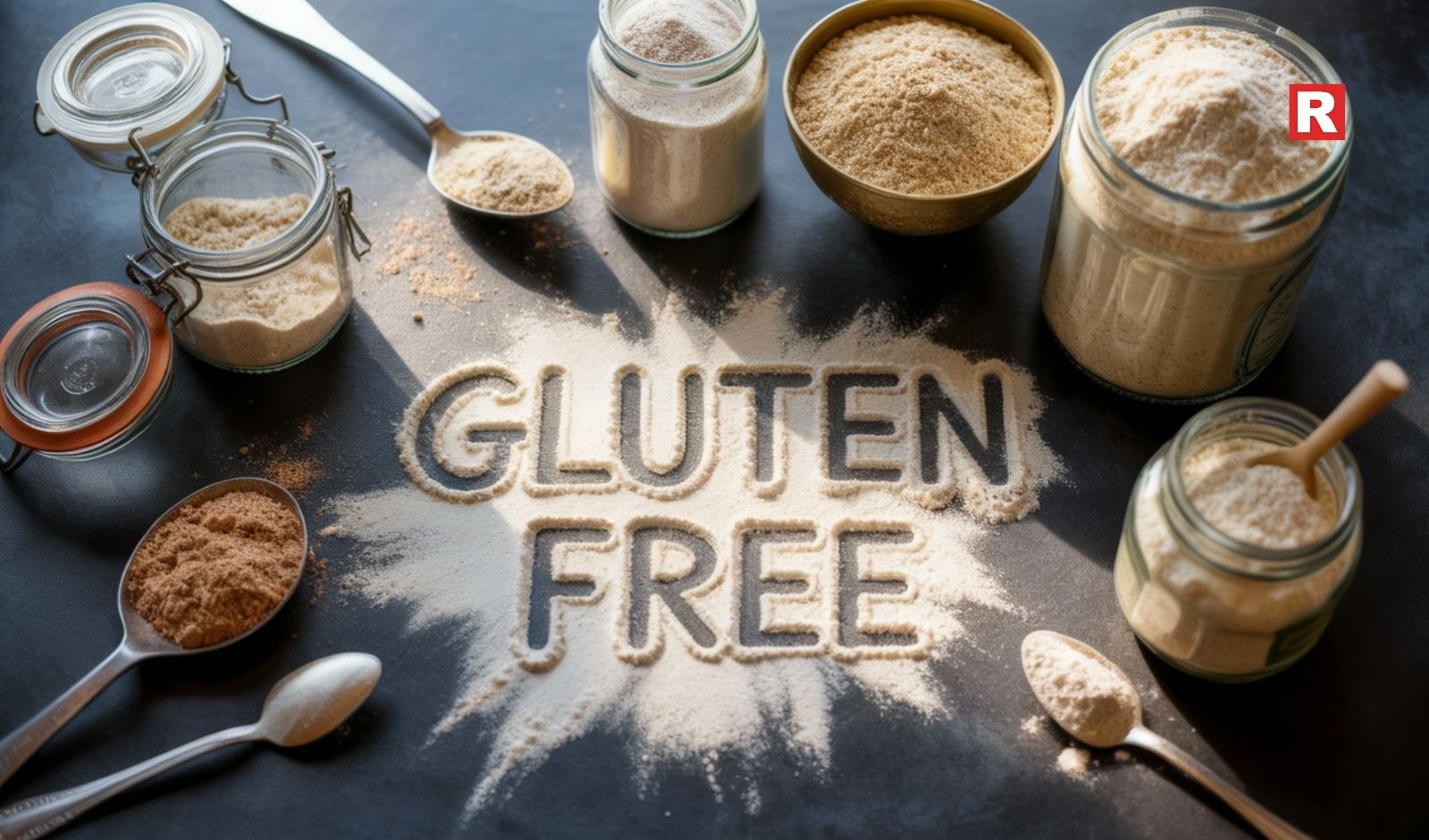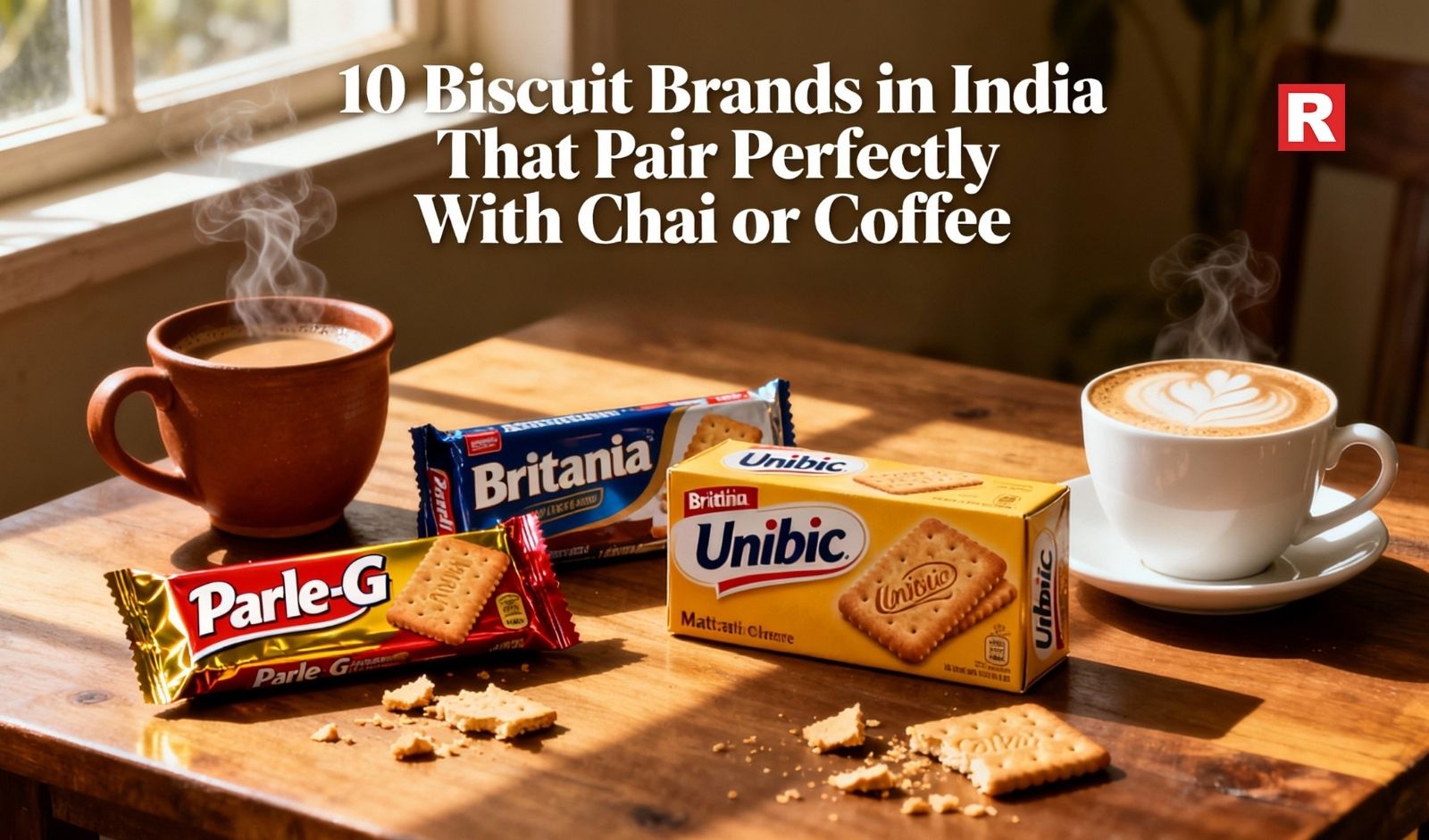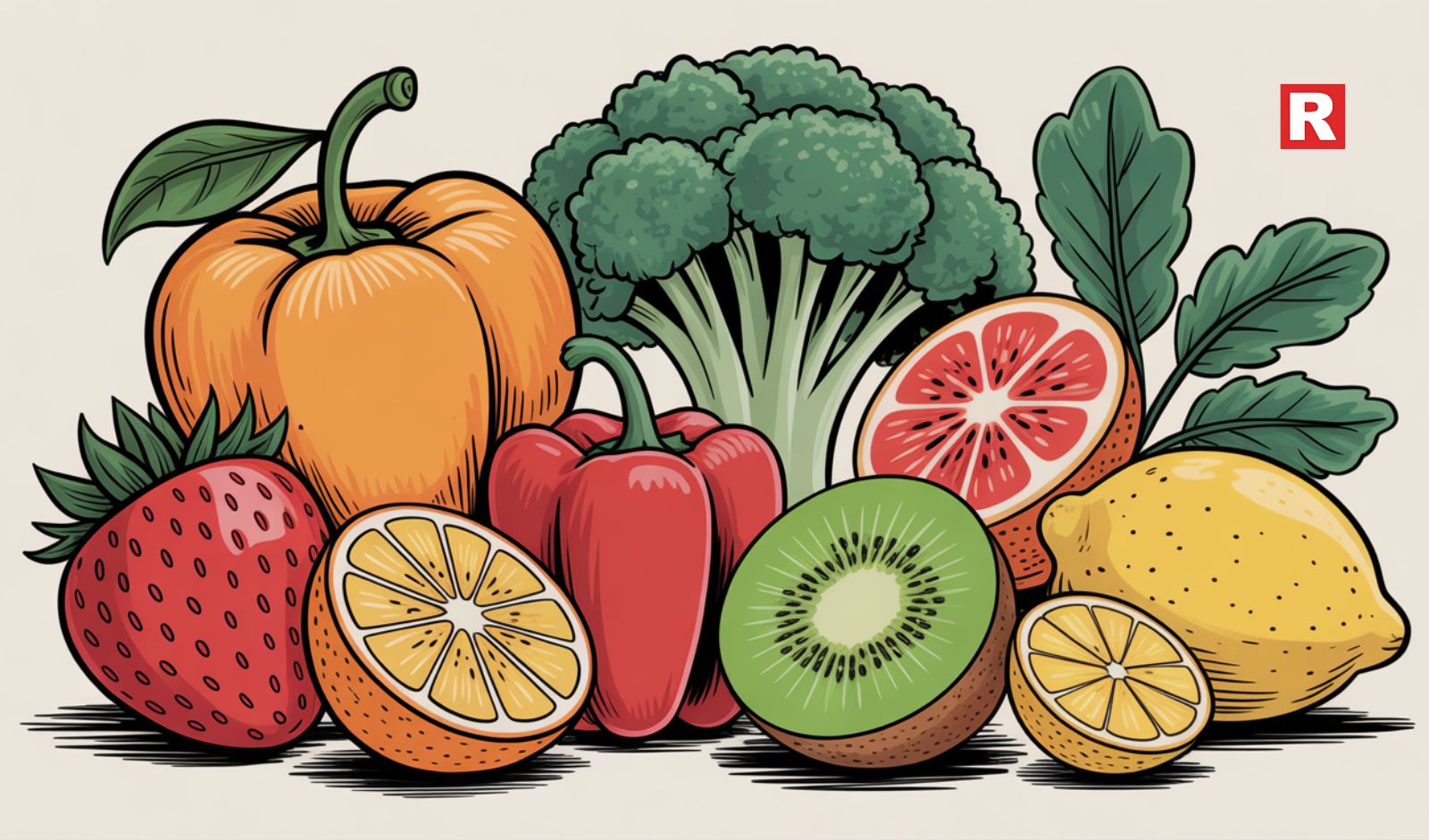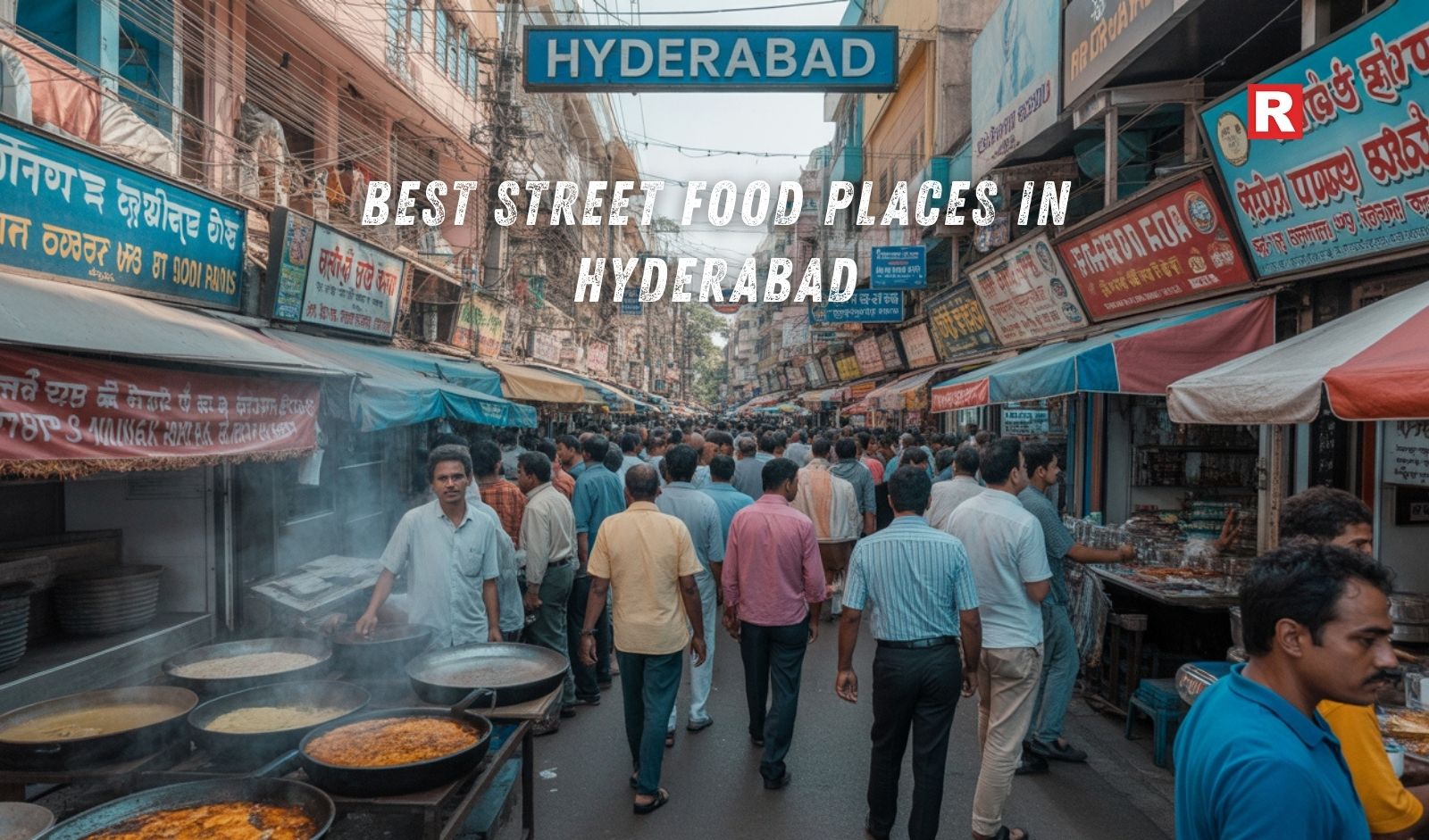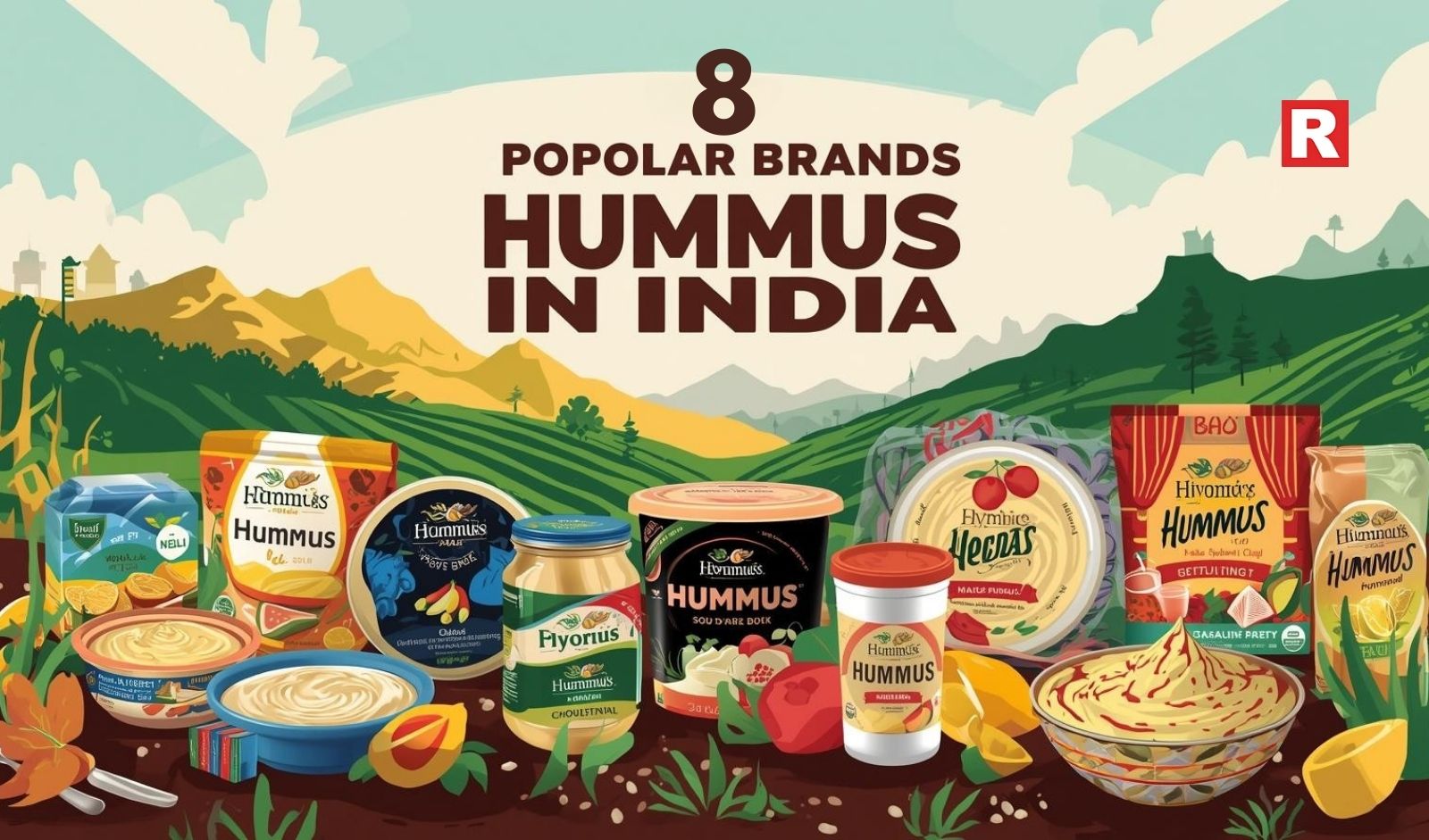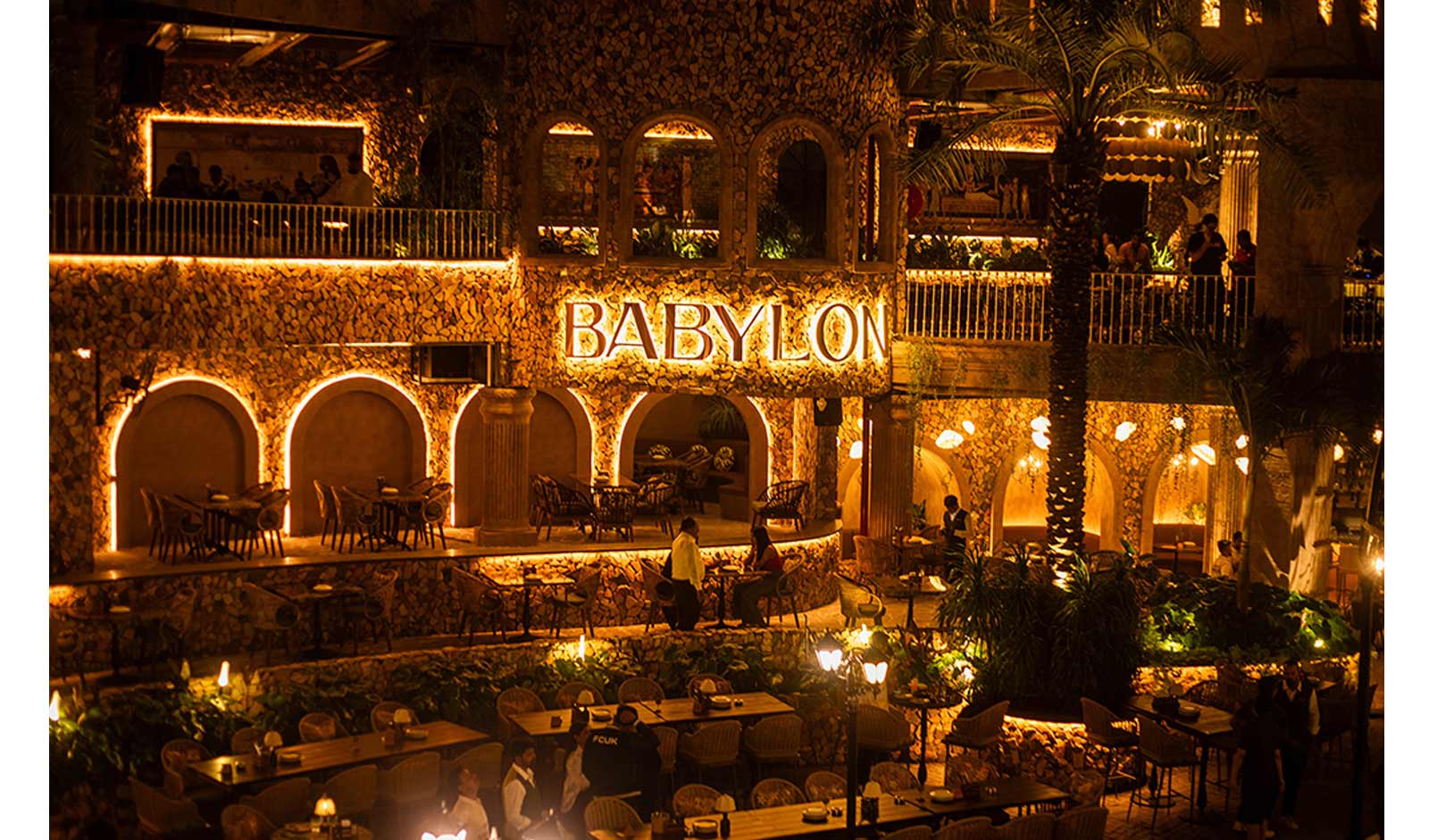
The recent hike in the price of the commercial cooking gas cylinders has given a jolt to the restaurant industry, especially small eateries, desperately trying to stay afloat following the Covid-19 outbreak. Since the start of the year, the price has been raised by INR 1,000. The biggest hike of around INR 250 kicked in last month.
The restaurant industry is facing the pressure of inflated input costs. The pressure is coming from all sides. Beverage makers are facing a jump in expenses for packaging like aluminum. Meat prices are on the rise as the cost for grain to feed animals climbs. A surge in freight, transportation and manufacturing costs, as well as pandemic related expenses, also are weighing on producers. These come on top of the continuous price hike of LPG.
With the increase in the price of LPG cylinders, petrol, vegetables and an increase in labour cost, it is being anticipated that restaurants may increase the prices on their menu by up to 20 percent in the coming days.
Food prices have risen at a faster average rate since the onset of the pandemic than they did over the prior decade. Since April 2020, food prices (raw materials) have increased an average of 3.6 percent for food bought for at-home consumption and 3.9 percent for food away from home on a monthly year-over-year basis.
Changes in meat prices have a large influence on the price indices because consumers spend a relatively high share of their food budget on these items. Indeed, prices for some meat items have reached the highest levels recorded even after adjusting for overall inflation.
Prices at limited-service restaurants, meaning fast food and fast-casual, rose 7.1 percent compared to last October, according to new data released by the Bureau of Labor Statistics. Prices at full-service restaurants rose 5.9 percent. Both were the highest increases since the BLS has recorded these numbers.
“We have not increased the price of the food and beverage served in our cafes. However, keeping in mind the current scenario we tend to keep the offers and discounts on weekdays and on weekends, we tend to give minimal offers so that the company does not face losses. Moreover, we tend to organize events that are more cost effective to ensure that we do not go overboard in terms of expenditure,” Kunal Joshi, Director Operations, Hard Rock Cafe India commented.
Additionally, the rising cost is putting pressure on the brand's top line and pre-tax profit margin. “We are witnessing broad-based inflation across many commodities. Every organised player in the industry has increased prices by 8 to 10 percent in the last 15 to 20 months. But we try to focus on managing cost management in other areas aggressively so that it doesn't pinch our patron's purse,” Sharath Rice, Co founder and Director, VRO Hospitality added.
Vanita Bajoria, Director, Lord of the Drinks, Kolkata informed that after the rise in the wholesale rate of food items, the team had already reduced staff. “We don’t want to lose our customers. Hence we cannot increase the menu prices of the food items. However, the higher the fuel prices would force us to sell food prices at higher rates,” she said.
The important choice has thus become to reduce expenses. The rising input cost is probably the greatest test which the field of business is facing since it's actual dynamic. Yet, every eatery should go with some degree of value climb, contingent upon their monetary circumstance.
“We are trusting that the inventory network circumstance will improve. Assuming we don't see things pivoting, we will have no choice except to climb costs following a month. Cafés costs are expanding quicker than they have in a very long time as work and fixings become more costly,” Arun Mugam, General Manager, Local Gurugram shared.
Raising a very important concern, Aaditya Bharadwaj, Owner of Baris restaurant in GK Delhi, stated that with so much pollution already there, it makes restaurants in Delhi not to use charcoal or wood in clay ovens and grills, which lead to using a lot of LPG.
Krispy Kreme, Wendy's, and other chains shared news about rising prices in earnings calls.

Food is one of the largest industries in the world. It feeds people. It creates jobs. It moves supply chains. Today, women-led food businesses are becoming a powerful economic force within this ecosystem. They are not just running restaurants or home kitchens. They are building scalable brands, food processing units, agribusiness ventures, cloud kitchens, and food-tech platforms that contribute directly to GDP growth, employment generation, and community development.
Across global markets, women entrepreneurs are increasing their presence in the food sector. According to data from the World Bank and International Finance Corporation (IFC), women-owned businesses form a significant share of micro, small, and medium enterprises worldwide. A large portion of these businesses operate in food production, catering, agriculture, food retail, and hospitality. The Food and Agriculture Organization (FAO) also highlights that women make up a substantial part of the agricultural workforce, especially in developing economies. When women move from informal participation to formal business ownership, the economic multiplier effect becomes stronger.
The Size of the Opportunity
The global food industry is valued in trillions of dollars. From farm to fork, the value chain includes farming, processing, logistics, retail, hospitality, and technology. Women-led businesses operate at every stage of this chain. In many emerging economies, food entrepreneurship is one of the most accessible entry points for women because it leverages traditional skills while allowing modern business expansion.
However, the impact goes beyond accessibility. Studies from McKinsey suggest that advancing women’s economic participation can significantly boost global GDP. When applied specifically to the food sector, the effect becomes visible in employment rates, income stability, and local economic development. Women-led food businesses often employ more women. This improves household incomes and increases community spending power. The result is a stronger local economy.
Job Creation and Economic Multiplier Effect
One of the most measurable impacts of women-led food businesses is job creation. Small catering units, bakery brands, packaged snack startups, and restaurant chains hire chefs, delivery staff, marketing teams, logistics managers, and suppliers. Many women founders consciously build inclusive teams. This expands workforce participation, especially in semi-urban and rural areas.
When employment rises, consumption increases. Families spend more on education, health, and goods. This triggers a multiplier effect. Economists often measure this through increased local demand and improved small business activity in surrounding areas. Women entrepreneurs in food often source ingredients locally. This strengthens farmer incomes and reduces supply chain leakage.
Read more: How Women Are Influencing Premium Alcohol Buying Trends
Top Summer Menu Trends Restaurants Are Introducing This Year
Innovation in Product and Process
Organic Foods: Many women founders launch certified organic grains, pulses, and vegetables. These foods are free from synthetic pesticides. They contain natural vitamins, minerals, and antioxidants. They support immunity and overall health. People with weak immunity should wash raw produce properly before use.
Plant-Based Alternatives: Products like almond milk, soy curd, and vegan spreads are gaining demand. They are rich in plant protein and healthy fats. They are suitable for lactose-intolerant consumers. People with soy or nut allergies should avoid specific variants.
Healthy Snacks and Millet Products: Roasted millet chips and seed mixes provide fibre, iron, and slow-release energy. They support digestion and weight control. Individuals with thyroid issues should limit excess millet intake.
Artisanal Packaged Goods: Handmade granola and cold-pressed oils offer good fats and micronutrients. Overconsumption should be avoided by those managing calorie intake.
Efficient Business Models: Cloud kitchens lower rent costs. Direct sales improve margins. Certifications and inventory control ensure quality and profit stability.
Strengthening the Supply Chain
Food businesses depend heavily on supply chains. Women-led enterprises often integrate backward linkages with local farmers, self-help groups, and micro-producers. This reduces dependency on large distributors and creates decentralized value chains. In agriculture-heavy economies, this model improves resilience.
For example, women entrepreneurs who run food processing units frequently partner with farmer collectives for raw material sourcing. This ensures better quality control and price stability. It also keeps income within the local economy. The technical strength lies in supply chain coordination, quality checks, cold storage management, and timely distribution. Such integrated models increase efficiency and reduce wastage. In a sector where post-harvest losses are a serious issue, these operational improvements directly add economic value.
Financial Inclusion and Capital Flow
Despite their impact, women-led food businesses often face funding challenges. Limited access to collateral, smaller loan sizes, and lower investor exposure remain barriers. However, the situation is improving. Impact investment funds and gender-focused venture capital are increasing support for women entrepreneurs.
When capital flows into women-led food businesses, the returns are not only financial but social. Research from development finance institutions shows that women tend to reinvest a higher portion of income into their families and communities. This increases human capital development over time. Investors are recognising that women founders often demonstrate disciplined financial management and strong customer loyalty. These attributes improve long-term sustainability.
Cultural Preservation and Brand Identity
Traditional Millet Mixes: Women entrepreneurs turn old family recipes into packaged millet blends. These products are rich in fibre, iron, and slow-digesting carbs. They support gut health and steady energy. People with thyroid conditions should limit excess millet intake.
Regional Pickles and Chutneys: Many brands sell handcrafted pickles made with local spices and oils. They contain antioxidants and aid digestion in small portions. People with high blood pressure should avoid large servings due to salt content.
Artisanal Ghee and Cold-Pressed Oils: These heritage fats are high in healthy fatty acids and fat-soluble vitamins like A and E. They support immunity and nutrient absorption. Individuals with high cholesterol should consume carefully.
Traditional Sweets: Made with jaggery, nuts, and seeds. They provide iron, protein, and good fats. Diabetics should avoid or eat in moderation.
Know more: Top Regional Indian Ingredients in Modern Mixology
Technology Adoption and Scalability
Digital tools are playing a major role in accelerating women-led food businesses. Online ordering platforms, POS systems, supply chain software, and digital payment systems have reduced entry barriers. Social media has enabled direct consumer engagement at low cost.
Scalability depends on process standardization. Successful women founders invest in training manuals, quality audits, and centralized procurement systems. They build replicable models that can expand through franchises or multi-location formats. This technical approach moves the business from lifestyle entrepreneurship to structured enterprise growth.
Policy and Institutional Support
Governments and development agencies now treat women-led food businesses as serious economic drivers. Skill training programs improve food safety, packaging, and financial management. Concessional loans reduce capital pressure. Incubation centres provide market access and compliance guidance. Policies that support food processing and agribusiness help women formalise operations and scale. Public-private partnerships strengthen supply chains. Large companies are increasing procurement from women-owned suppliers, which improves steady revenue flow. Mentorship networks build leadership and operational skills. Structured support lowers closure rates and improves long-term profitability, which adds to national income and employment.
Supported Food Segments
- Millet snacks – High in fibre and iron. Good for digestion. Avoid in excess for people with thyroid concerns.
- Cold-pressed juices – Rich in vitamins and antioxidants. Diabetics should monitor sugar content.
- Protein laddoos – Provide protein and healthy fats. Avoid for nut allergies.
- Fermented foods – Support gut health. Avoid if severely immunocompromised.
Also check: Menu Engineering: How Restaurants Decide Pricing (And Why It Matters More
How to Start a Cloud Kitchen on Swiggy for Your Restaurant (2025 Guide)
How to Choose the Best Location for Your Cloud Kitchen in India
The Road Ahead
The economic impact of women-led food businesses is both immediate and long-term. In the short term, they create jobs, increase household incomes, and stimulate local markets. In the long term, they improve food security, encourage innovation, and strengthen supply chain resilience. The opportunity remains large. With improved access to finance, stronger market linkages, and continued digital adoption, women-led food businesses can scale beyond local markets into national and global arenas. For entrepreneurs, this sector offers strong demand and emotional brand connection. For investors, it presents a mix of stable cash flow and growth potential. For policymakers, it represents an effective pathway to inclusive economic development. Women in the food industry are no longer confined to informal roles. They are founders, manufacturers, exporters, and technology innovators. Their businesses are not side ventures. They are structured economic engines. As the global food economy continues to evolve, women-led enterprises will remain central to its growth story. Supporting them is not just a matter of inclusion. It is a strategic economic decision with measurable returns.

India’s dining culture is changing at speed. Ten years ago, diners relied on family recommendations and newspaper critics. Today, discovery starts on Instagram and often ends on platforms like Zomato and Swiggy. A professionally trained chef may launch a fine-dining restaurant built on technique, sourcing discipline, and kitchen systems. An influencer may open a stylish café backed by a strong digital community and sharp branding.
Both formats attract crowds. But crowds do not guarantee credibility. Urban consumers in Mumbai, Delhi, and Bengaluru now look beyond aesthetics. They check ratings. They read reviews. They observe consistency. Structured recipes, trained staff, hygiene compliance, and supplier standards influence repeat visits. At the same time, relatability and storytelling shape first impressions. Investors study unit economics. Young diners value experience. Families prioritise reliability. In 2026, the debate is not about visibility. It is about sustainability. The question facing India’s food entrepreneurs is clear. Who creates lasting trust in a market where attention is easy, but consistency is rare?
What Does Trust Mean in Hospitality?
Trust in restaurants is practical. It is not emotional alone. It includes:
- Consistent taste
- Clean kitchens
- Transparent sourcing
- Safe food handling
- Honest pricing
- Reliable service
In India, food safety compliance falls under the framework of the Food Safety and Standards Authority of India. Restaurants that follow licensing norms, hygiene audits, and food safety protocols earn structural credibility. But customers rarely see this backend work. They experience it indirectly through quality and consistency. Online platforms have also reshaped trust. Ratings on Zomato and Swiggy influence decisions instantly. A 4.5 rating often matters more than a newspaper feature. Reviews now act as social validation. Trust today is built at two levels. Operational reliability and public perception.
The Strength of Chef-Led Restaurants
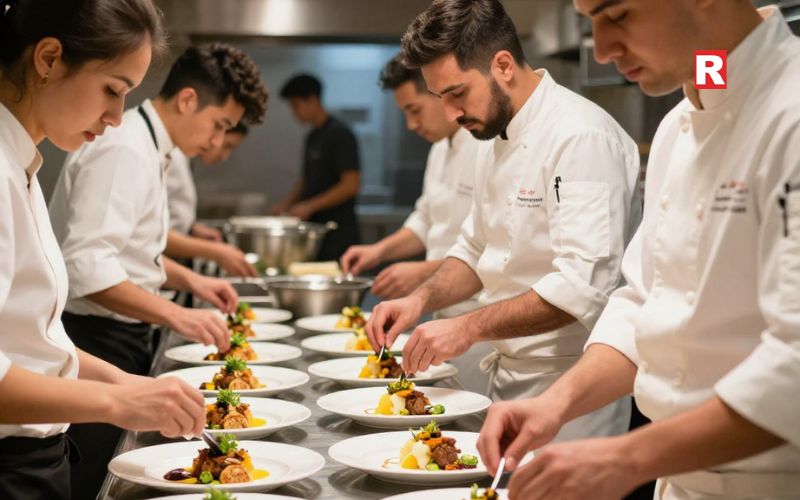
Chef-led restaurants are built around culinary authority. The founder is usually trained, experienced, and deeply involved in menu creation. Names such as Vikas Khanna, Manish Mehrotra, and Ranveer Brar represent this model. Their restaurants are extensions of their skill and philosophy.
1. Technical Competency
Chef-led establishments operate on structured systems:
- Standard Operating Procedures for recipes
- Defined kitchen brigade hierarchy
- Food cost management systems
- Vendor audits and sourcing protocols
- Regular menu research and development
- Training modules for kitchen staff
Many follow HACCP-based food safety processes. Quality control is measurable. Recipes are documented. Ingredients are weighed. Portions are standardised. This structure reduces variation. When customers return, they expect the same flavour profile. That consistency builds repeat trust.
2. Brand Authority
A chef’s background adds credibility. Awards, media features, and culinary training create perception of expertise. Diners feel confident that the food reflects skill rather than trend. Chef-led brands usually invest more in ingredient quality than décor gimmicks. The focus stays on technique. Even if marketing is moderate, reputation grows through reviews and word of mouth.
3. Limitations
This model often requires higher capital. Premium ingredients increase pricing. Growth is slower because maintaining quality across outlets is complex. Scaling a chef’s personal involvement is not easy. Yet, the trust curve is steady. It grows over time.
Read more: The Rise of Tasting Menus in Tier-2 Indian Cities
Top Gourmet Desserts with Indian Ingredients Are Going Global
The Rise of Influencer-Owned Cafés
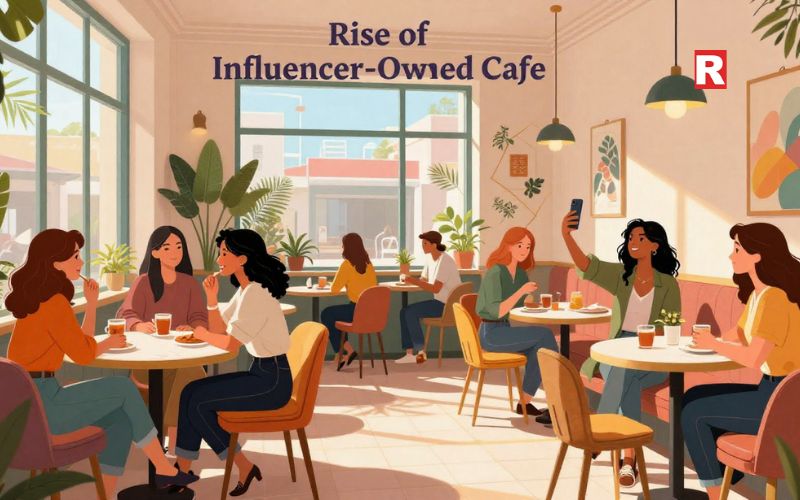
Influencer-led cafés represent a different playbook. Social media personalities with strong digital communities enter the F&B space. Figures such as Kusha Kapila and Prajakta Koli show how personal brands can expand into businesses.
Built-In Marketing Power
Influencers bring something chefs usually do not. Instant reach.
- Millions of followers
- High engagement rates
- Viral reels
- Community loyalty
A single launch announcement can guarantee footfall. Social media creates curiosity. Aesthetic interiors and photogenic dishes amplify visibility. This model reduces customer acquisition cost initially. The founder’s personality becomes the marketing engine.
Operational Structure
However, influencer-owned cafés often depend on hired chefs and consultants for backend operations. The founder may focus on branding, events, and collaborations. The strength lies in storytelling and relatability. Customers feel connected to the personality behind the café. That emotional bond drives first visits.
Risks
Trust here is more volatile. If quality drops, online backlash is fast. If the influencer’s reputation faces controversy, the business may suffer. Trends change quickly. Viral menus may not sustain long-term demand. Consistency depends heavily on operational teams rather than the founder’s culinary skill.
Know more: The Ultimate Guide to Getting Your Cloud Kitchen on Zomato
Comparing the Two Models
Let break this down practically.
Culinary Authority: Chef-led restaurants rank high. Influencer cafés depend on hired expertise.
Operational Depth: Chef models run on structured SOPs. Influencer models prioritise brand experience and ambience.
Marketing Intensity: Chef-led outlets rely on reputation and reviews. Influencer cafés leverage digital reach aggressively.
Repeat Value: Chef-led brands build loyalty through taste and consistency. Influencer cafés rely on novelty and social appeal.
Scalability: Influencer brands can expand faster due to marketing leverage. Chef-led brands scale slowly but focus on stability.
Crisis Management: Chef-driven systems handle operational issues through structure. Influencer brands often rely on public statements and personal communication.
Neither model is universally superior. They serve different strengths.
Indian Market Dynamics
India’s organised food service sector continues to expand in urban markets. Young consumers experiment more. Dining out is social currency. Cafés are content spaces.
Discovery is digital-first. Instagram drives awareness. Ratings drive decisions. Hygiene awareness has increased post-pandemic. Customers ask about sourcing and safety more than before. Urban diners between 22 and 35 often prioritise experience and aesthetics. Older professionals value taste, hygiene, and service consistency. Families look for reliability over trend. Trust therefore varies by audience segment.
Consumer Behaviour Insight
Customers return for predictable satisfaction. A viral dessert may attract them once. Consistent flavour and service bring them back. Trust is cumulative. It grows with each positive experience. It declines quickly with inconsistency. Chef-led restaurants typically build slower but deeper loyalty. Influencer cafés build faster but need operational maturity to sustain credibility.
Also check: How to Start a Cloud Kitchen in India: A Step-by-Step Guide
How to Start a Cloud Kitchen on Swiggy for Your Restaurant (2025 Guide)
Plant-Based Seafood: The Next Big Thing After Vegan Meat
The Future
The most interesting shift in India is the rise of hybrid models. Chefs are becoming content creators. Influencers are investing in culinary consultants. The lines are blurring. Chef-entrepreneurs now share behind-the-scenes processes on social media. Influencer founders are learning about kitchen systems and compliance. In 2026, trust is no longer built by skill alone or visibility alone. It requires both. Authority without communication limits growth. Popularity without structure limits longevity. If trust is defined as long-term reliability and culinary credibility, chef-led restaurants hold an advantage. Their technical competency and structured processes reduce risk and build consistency. If trust is defined as emotional connection and community-driven loyalty, influencer-owned cafés perform strongly in early stages. However, sustainable trust in India’s evolving F&B industry depends on balance. The brands that will dominate are those that combine culinary depth with transparent communication, digital presence with operational discipline, and personality with process. In a market where diners research before reserving and review before recommending, credibility must be earned daily. The restaurants that master both expertise and engagement will not just trend. They will endure.

Indian restaurants are moving into a more ingredient-focused era. The attention is no longer limited to recipes or presentation. It is shifting toward sourcing and quality. Today’s diners want clarity. They scan menus with care. They ask about origin. They notice details. Transparency now shapes dining decisions. In this setting, single-origin spices are becoming a serious differentiator. For years, spices were treated as routine pantry staples. They were blended in bulk. Their source was rarely mentioned. Now chefs are examining volatile oil content, curcumin percentage in turmeric, and piperine levels in pepper.
These technical markers directly affect aroma, heat, colour, and flavour stability. When a menu specifies region and grade, it signals precision. It reflects supply chain awareness. It also communicates respect for terroir. Restaurants that highlight provenance are building stronger brand identity. They are appealing to informed urban consumers who value traceability and authenticity. This shift is not cosmetic. It is strategic. Ingredient transparency enhances perceived value and supports premium positioning. In a competitive hospitality market, such detail separates serious kitchens from generic ones.
What Are Single-Origin Spices?
Single-origin spices come from one specific region, farm, or estate. They are not blended from multiple sources. The idea is simple. The soil, climate, altitude, and farming practices of one place shape the final flavour. This concept is similar to terroir in wine. The natural environment influences taste. In spices, factors like rainfall, sun exposure, soil minerals, and drying techniques change the aroma and heat.
For example, black pepper from the Malabar Coast in Kerala is known for its high piperine content. Piperine is the compound that gives pepper its heat. Higher piperine means sharper flavour. But Malabar pepper also carries citrus notes and depth. Byadagi chilli from Byadagi in Karnataka is another strong example. It is famous for its deep red colour and low pungency. That makes it perfect for dishes where colour matters more than heat. Lakadong turmeric from Lakadong in Meghalaya stands out for its high curcumin levels. Curcumin is the active compound in turmeric. Lakadong turmeric can contain between 7 to 12 percent curcumin. Regular turmeric often contains much less. This means stronger colour and more intense flavour. When restaurants mention these details on the menu, it changes the conversation.
Why Restaurants Are Choosing Single-Origin Spices
1. Stronger Flavour Identity
Single-origin spices offer clarity. A chef knows what to expect. The flavour profile is distinct and consistent. This helps in recipe development. It also allows chefs to build dishes around specific spice notes. Instead of generic “red chilli powder,” a menu can mention Byadagi chilli for colour or a hotter regional variety for heat. This precision improves taste and storytelling at the same time.
2. Better Menu Storytelling
Today’s diner wants a story. A simple description like “lamb curry” feels incomplete. But when the dish reads “slow-cooked lamb with Lakadong turmeric and Malabar black pepper,” it feels premium. Storytelling increases perceived value. It makes the guest feel informed. It builds trust. Restaurants across India are experimenting with this approach. From fine-dining kitchens in Mumbai to modern Indian restaurants in Bengaluru, chefs are highlighting origin more than ever.
Read more: Vegan & Plant-Based Recipes Worth Adding to Your Menu
Top Regional Indian Cuisines Gaining Popularity Outside India
3. Premium Positioning
Single-origin spices support premium pricing. They signal quality. They suggest careful sourcing. They show attention to detail. Customers understand that such ingredients cost more. They are often willing to pay more when they see transparency. This is especially important in a competitive market. When many restaurants offer similar cuisines, ingredient differentiation becomes a strong advantage.
4. Traceability and Trust
Food safety and adulteration concerns are real. Consumers are cautious. They want clean and authentic ingredients. Working with traceable sources builds credibility. Some restaurants now partner directly with farmers or cooperatives. Others highlight GI-tagged regions. India has a strong foundation in this space. The Spices Board India, a government body, supports export and quality standards in the spice sector. The country exports spices to more than 150 nations. Many regions have Geographical Indication recognition. Tellicherry pepper from Tellicherry in Kerala is one example. Kashmir saffron from Kashmir is another. Alleppey green cardamom from Alleppey in Kerala also carries strong recognition. When these names appear on menus, they add authenticity.
The Indian Advantage
India is one of the largest spice producers in the world. The diversity is unmatched. From the Western Ghats to the North-East hills, each region offers unique flavour profiles. This gives Indian restaurants a natural edge. Instead of importing luxury ingredients to stand out, they can celebrate local terroir. A tasting menu built around regional spices can be both rooted and modern. It reflects heritage while supporting farmers. This approach also aligns with the global farm-to-table movement. International diners already value origin. Indian restaurants can lead this narrative with confidence.
Know more: Subscription Dining Models: Can Monthly Meal Memberships Work?
How Chefs Are Using Single-Origin Spices Creatively
The application goes beyond curries. Some chefs design spice-led tasting menus. Each course highlights a specific origin. For example, a pepper-focused appetiser followed by a turmeric-based broth and a saffron dessert. Others use tableside finishing. Freshly ground estate pepper over a dish creates theatre. It also releases aroma at the table. Single-origin spices are entering beverages too. Malabar pepper in craft cocktails adds warmth. Lakadong turmeric appears in wellness drinks and mocktails. Even desserts are evolving. Turmeric ice cream, saffron panna cotta, and cardamom chocolate ganache are becoming more common. This cross-cuisine approach keeps menus fresh.
The Future!
The future looks promising. Spice flights may become common, similar to wine flights. QR codes on menus could link to farm stories. Restaurants may highlight harvest years and drying techniques. As diners become more aware, background ingredients will no longer stay invisible. Spices will move to the front. In India, this shift feels natural. Spices have shaped our culinary identity for centuries. What is changing is the way we talk about them. For restaurant owners and chefs, the message is clear. Ingredient transparency is no longer optional. Single-origin spices offer flavour precision, storytelling power, and premium appeal. In a crowded dining market, that combination can make all the difference.
Also check: Plant-Based Seafood: The Next Big Thing After Vegan Meat
7 Desi Alternatives to Oatmeal for Weight Loss

Indian sweets have long been known for strong flavour and deep cultural memory. Today, their core ingredients are finding space in fine-dining kitchens, pastry studios, and luxury chocolate houses across global cities. This movement is not driven by nostalgia. It is driven by performance and precision. Ingredients such as saffron, Alphonso mango, jaggery, and ghee offer clear technical value. Saffron delivers natural colour and aroma with very low dosage. Alphonso mango brings high Brix levels and balanced acidity, which helps in sorbets and glazes. Jaggery improves moisture retention and adds layered caramel notes. Ghee provides a stable fat structure and enhances browning through better heat tolerance. For pastry chefs, these qualities support consistency and control.
For gourmet brands, they create strong differentiation in a crowded premium market. For hospitality groups and investors, they open doors to heritage-led luxury positioning. Indian ingredients are no longer limited to traditional sweets. They are being refined, standardised, and reimagined. In the global gourmet dessert space, they are emerging as functional, high-value assets with clear commercial potential.
Why Indian Ingredients Work in Gourmet Pastry
Global pastry today is about complexity. Diners want layered flavours. They want storytelling on the plate. Indian ingredients naturally deliver this.
India is one of the world’s largest producers of spices. According to data from the Food and Agriculture Organization, the country leads in spice cultivation and export. This gives chefs access to high-quality raw material with strong traceability. But beyond supply, functionality matters.
Explore Gourmet Dessert Options with Indian Ingredients
1. Saffron: Luxury with Technical Precision

Saffron, especially from Kashmir, contains compounds like safranal and crocin. These provide aroma and natural golden colour. Only a small quantity is needed. This makes it cost-effective in high-end applications. In pastry kitchens, saffron works well in custards, ganache, gelato, and crème brûlée. It infuses fat easily, making it ideal for cream-based desserts. It also supports clean-label colouring, replacing artificial dyes. Premium dessert brands use saffron to signal luxury. The ingredient carries heritage and rarity. That combination works well in the global gourmet market.
Read more: What is Kimchi? Top Veg Kimchi You Can Try at Home
Top 5 States With the Spiciest Food in India
2. Jaggery: A Clean-Label Sugar Alternative
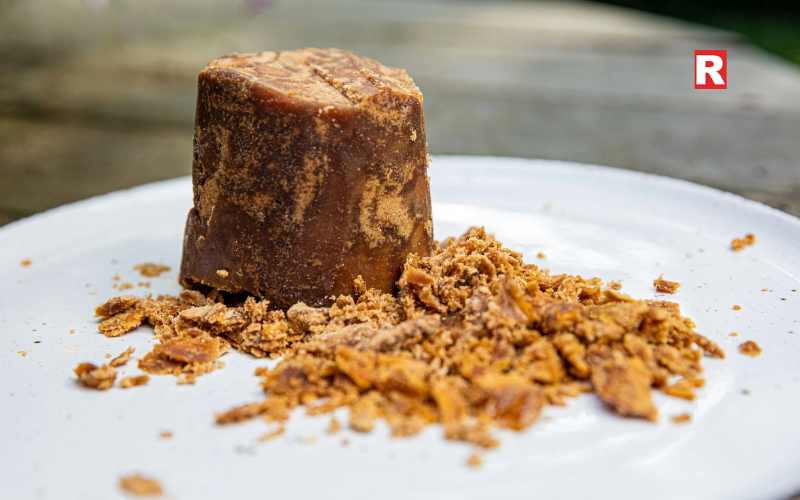
Jaggery is unrefined cane sugar. It retains minerals and molasses notes. Technically, jaggery adds moisture retention in baked goods. It deepens caramelisation. It creates complexity in flavour. Pastry chefs use jaggery in brown butter cakes, sticky toffee puddings, tart fillings, and artisanal ice creams. Compared to refined sugar, jaggery offers a richer taste profile. In markets like the US and UK, consumers are reading labels carefully. Natural sweeteners are gaining attention. Jaggery fits this demand. It also aligns with the heritage luxury positioning that many premium dessert brands now adopt.
3. Ghee: Functional Fat with Character

Ghee has a high smoke point of around 250°C. It contains minimal lactose and water content. This makes it stable for baking and confectionery. Ghee enhances the Maillard reaction during baking. It creates deeper browning and a nutty aroma. In laminated pastries, shortbread, and fudge, it offers a distinct mouthfeel. For pastry chefs, fat crystallisation is important. Ghee behaves differently from standard butter due to its clarified structure. It provides richness without excess moisture. This improves texture control in certain recipes. Globally, chefs are experimenting with alternative fats. Ghee offers both functionality and cultural storytelling.
4. Cardamom: Small Pod, Big Impact
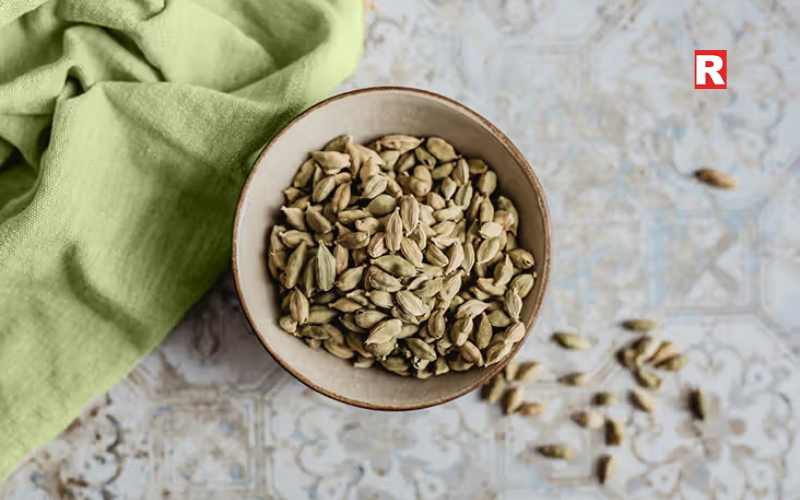
Cardamom contains volatile oils such as cineole and terpinyl acetate. These compounds create a strong aromatic lift. Even in small doses, cardamom transforms desserts. It pairs well with chocolate, citrus, vanilla, and coffee. It works in panna cotta, ice cream, macarons, and plated entremets. For pastry professionals, the key is dosage. Cardamom can overpower if misused. But when balanced, it creates a signature flavour profile that stands apart from standard European spice palettes.
Know more: Fermented Foods Making a Comeback in Modern Indian Kitchens
5. Alphonso Mango: Premium Fruit with High Brix
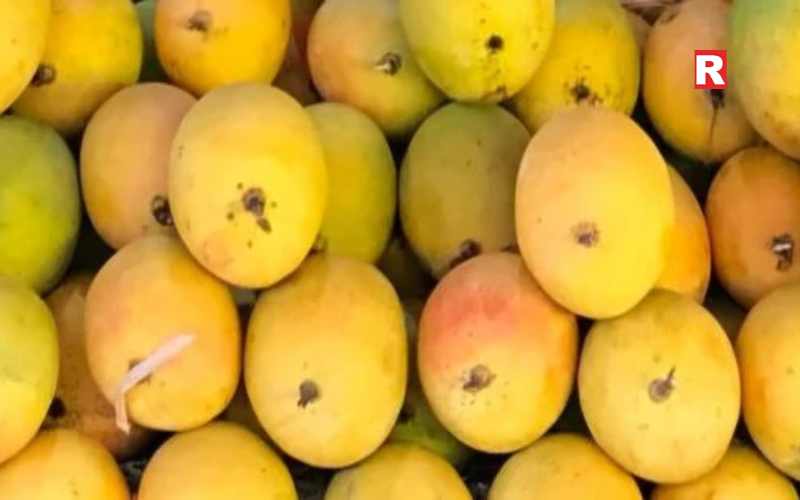
Alphonso Mango from Maharashtra is known for its high Brix level. This means natural sweetness and dense pulp. The fruit has low fibre and vibrant colour. In sorbets and mousses, Alphonso mango provides intense flavour without heavy sugar adjustment. Its natural acidity balances sweetness. This is valuable in plated desserts where precision matters. Premium dessert houses position Alphonso mango as a seasonal luxury ingredient. Its geographic identity adds authenticity. In global cities with strong Indian diaspora communities, the fruit also carries emotional value.
From Local to Luxury: The Export Shift
India’s ingredient supply chain has improved. Cold chain logistics are stronger. Standardisation processes are better. Many producers now focus on export-grade packaging. Geographical Indication tags for certain products increase global trust. Traceability matters in fine dining. Chefs want to know the source.
Restaurants like Gymkhana in London have showcased how Indian ingredients can be presented in luxury settings. In Bangkok, Gaggan has pushed Indian flavour profiling into progressive fine dining formats. These examples signal a wider movement. Indian ingredients are not confined to traditional recipes. They are part of global experimentation.
Technical Advantage for Pastry Professionals
For chefs and product developers, performance matters more than trend.
- Ghee offers stable fat structure and enhances browning.
- Jaggery affects water activity and contributes to moisture balance.
- Saffron disperses in fat and provides uniform colour.
- Cardamom releases volatile aromatics during gentle heating.
- Alphonso mango provides natural pectin and sugar balance.
Understanding these technical properties allows chefs to innovate confidently. This is not fusion for the sake of novelty. It is informed culinary science. Pastry schools are also expanding their flavour curriculum. Students are learning about non-European ingredients. This widens future adoption.
Also check: Plant-Based Seafood: The Next Big Thing After Vegan Meat
Subscription Dining Models: Can Monthly Meal Memberships Work?
Vegan & Plant-Based Recipes Worth Adding to Your Menu
Consumer Demand Is Changing
Premium consumers today seek authenticity. They are curious about origin stories. They value cultural depth. In cities like Mumbai, London, Dubai, and Singapore, dessert menus increasingly include global flavours. Indian ingredients fit this shift. They offer bold taste without artificial enhancement. Social media also drives discovery. A saffron-infused mirror glaze or a jaggery caramel tart photographs well. Visual appeal supports premium pricing. Urban Indian consumers are also influencing global demand. As Indian travellers explore international restaurants, they bring expectations with them. Chefs respond by integrating familiar ingredients in new formats.
The Bigger Picture
India’s strength lies in biodiversity and culinary history. But the global gourmet dessert market values more than history. It values precision, consistency, and uniqueness. Indian ingredients now meet those standards. Saffron offers concentrated luxury. Jaggery provides depth and moisture. Ghee enhances texture and aroma. Cardamom delivers aromatic lift. Alphonso mango adds vibrant fruit intensity. These are not ethnic add-ons. They are technically sound culinary assets. As global pastry continues to evolve, ingredients that combine functionality with narrative will lead. Indian-origin ingredients sit at that intersection. The journey from mithai to Michelin-level plating is already underway. For chefs, brands, and investors, the opportunity is clear. The future of gourmet desserts will not be defined by geography alone. It will be defined by flavour intelligence. And India has plenty of it.

Fermentation has never been new to India. It shaped daily cooking, storage, and preservation for generations. From soaking grains for idli batter to curing vegetables in salt, households relied on natural microbial activity long before refrigeration. What has changed is the level of awareness. Urban kitchens are now revisiting these methods with scientific understanding. Young professionals are reading about gut health and the role of lactic acid bacteria in supporting digestion. Restaurants are developing in-house ferments to add depth, acidity, and complexity to menus. Wellness brands are launching small-batch kombucha, raw pickles, and probiotic drinks with a focus on live cultures and clean labels. Home cooks are measuring salt percentages, monitoring temperature, and using glass jars to create safe anaerobic environments.
Fermentation is being treated as both craft and science. It improves bioavailability of nutrients. It enhances flavour naturally. It extends shelf life without synthetic preservatives. India did not abandon fermentation. It simply modernised around it. Now, with stronger knowledge and consumer intent, fermentation is visible again, valued not just for taste but for measurable health and culinary benefits.
India Has Always Fermented
Long before refrigeration, fermentation was a survival skill. It helped preserve food. It improved taste. It made grains and lentils easier to digest. Take idli and dosa batter. The soft texture of idlis comes from natural wild fermentation. Rice and urad dal soak, grind, and rest. Naturally present bacteria and yeast begin to work. They break down starches. They produce lactic acid. The batter rises. It becomes lighter and more digestible.
In Gujarat, dhokla depends on fermentation to achieve its airy texture. In North India, winter kanji made with black carrots and mustard seeds ferments naturally over a few days, turning slightly sour and rich in beneficial bacteria. In the Himalayan belt, gundruk and sinki preserve leafy greens through fermentation. Across tribal regions, rice-based fermented beverages reflect deep-rooted food science knowledge. Even traditional pickles were once naturally fermented with salt and time before vinegar became common in commercial versions. Fermentation was not fashionable. It was practical. It was local. It was scientific without being labeled as science.
What Fermentation Actually Means
Fermentation is a natural metabolic process. Microorganisms such as bacteria and yeast convert carbohydrates into acids, gases, or alcohol. This usually happens in low-oxygen conditions.
There are different types of fermentation that matter in Indian kitchens:
Lacto-fermentation produces lactic acid. This method is common in curd, kanji, and traditional pickles. Lactic acid bacteria create an acidic environment that prevents harmful microbes from growing.
Alcoholic fermentation uses yeast to convert sugars into alcohol. Traditional rice beers and toddy follow this method.
Acetic fermentation produces vinegar when alcohol is converted into acetic acid by bacteria.
From a nutritional perspective, fermentation does more than preserve food. It breaks down anti-nutrients like phytates found in grains and legumes. This improves mineral absorption. It enhances B-vitamin levels in some foods. It reduces lactose in fermented dairy, making it easier to digest for some people.
Most importantly, certain fermented foods contain live beneficial bacteria. These support gut microbiota diversity. A diverse gut microbiome is linked to better digestion and immune health.
However, not every fermented food is probiotic. If a product is pasteurized after fermentation, the live cultures may no longer be active. This distinction matters.
Read more: What is Kimchi? Top Veg Kimchi You Can Try at Home
12 Delicious High-Protein Foods to Eat Daily for a Healthier You
Why Fermented Foods Are Trending Again
The renewed interest in fermented foods is not random. It is driven by clear shifts in consumer behavior.
First, gut health awareness has grown sharply. Many urban consumers now understand the link between digestion and overall well-being. The pandemic increased focus on immunity. Functional foods gained attention.
Second, clean-label preferences are rising. People are reading ingredient lists. They prefer natural preservation over artificial additives. Fermentation fits this demand.
Third, restaurant innovation is pushing boundaries. Chefs in Mumbai, Delhi, and Bengaluru are experimenting with fermented chilli pastes, house-made kombucha, koji-infused sauces, and long-fermented pickles. Fermentation is becoming a signature technique in modern Indian kitchens. It adds depth, complexity, and differentiation.
Fourth, social media has played a major role. Short videos of bubbling jars, sourdough scoring, and homemade kimchi have normalized the idea of fermentation at home. What once seemed complex now looks approachable.
Finally, sustainability conversations are influencing food choices. Fermentation extends shelf life. It reduces food waste. It allows seasonal produce to be used more efficiently.
Top Fermented Foods
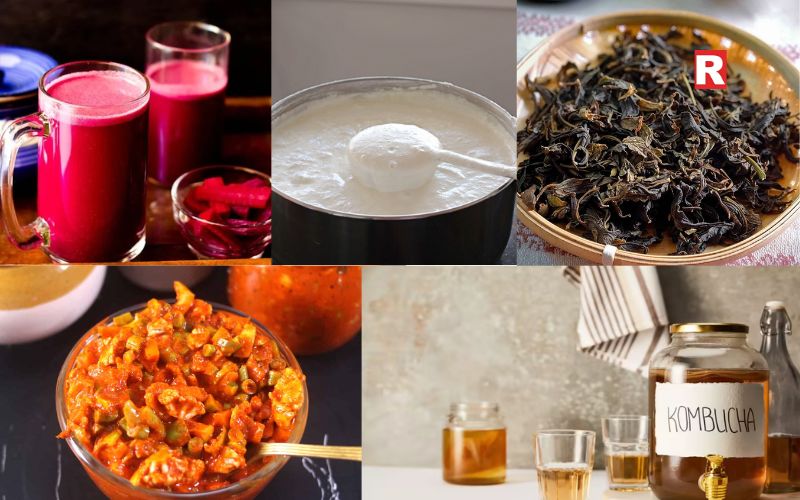
Kanji – A traditional drink made with black carrots, mustard seeds, salt, and water. It undergoes natural lacto-fermentation, where lactic acid bacteria develop over 3–5 days. The result is a tangy, mildly sour beverage that supports gut health and improves digestion. Best prepared in glass jars under controlled room temperature for safe fermentation.
Idli & Dosa Batter – Rice and urad dal are soaked, ground, and left to ferment overnight. Wild yeast and lactic acid bacteria break down starches and proteins, making the batter light and easy to digest. Fermentation also enhances B-vitamin content and improves mineral absorption.
Gundruk – Leafy greens are wilted, tightly packed, and naturally fermented. This process increases shelf life and develops a deep, earthy flavour. It is rich in beneficial microbes and often used in soups and stews.
Homemade Achar – Before vinegar became common, Indian pickles relied on salt-driven fermentation. Proper salt concentration (around 2–2.5%) prevents spoilage and promotes good bacteria growth.
Kombucha – Sweetened tea fermented using a SCOBY (Symbiotic Culture of Bacteria and Yeast). It produces organic acids, mild carbonation, and potential probiotic benefits. Popular among urban, health-conscious consumers.
From Tradition to Contemporary Innovation
The revival is not limited to traditional dishes. It has expanded into new categories. Kombucha brands have emerged in metro cities. Sourdough bakeries have built loyal followings. Fermented hot sauces and craft vinegars are appearing in premium grocery stores. Plant-based yogurt alternatives are using fermentation to achieve better texture and flavor.
Fine-dining restaurants are exploring koji, a fermentation culture used in Japanese cuisine, to develop deeper umami flavors in vegetables and sauces. Indian chefs are blending global fermentation techniques with local ingredients. This is not imitation. It is adaptation. Ancient processes are meeting modern culinary creativity.
Know more: Top 5 States With the Spiciest Food in India
The Science Behind the Benefits
Fermented foods are often associated with probiotics. Probiotics are live microorganisms that provide health benefits when consumed in adequate amounts. They help maintain balance in the gut microbiome. Prebiotics are different. They are fibers that feed beneficial bacteria. Many fermented foods contain both helpful microbes and nutrients that support gut health. During fermentation, bacteria produce compounds such as short-chain fatty acids. These compounds play a role in maintaining gut lining integrity and reducing inflammation.
Fermentation can also improve protein digestibility in legumes. It can lower glycemic response in certain grains. These benefits depend on the food, method, and duration of fermentation. It is important to maintain proper hygiene and correct salt ratios. For safe lacto-fermentation, salt is usually added at 2 to 2.5 percent by weight of vegetables. This concentration discourages harmful bacteria while supporting beneficial ones. Clean glass or ceramic containers are ideal. Oxygen exposure should be limited. An ambient temperature between 18 to 24 degrees Celsius supports stable fermentation for many recipes. Fermentation is natural. But it is not careless. It requires attention.
Market Opportunity and Business Impact
The return of fermented foods is also a business story.
Functional beverages are growing in India. Probiotic drinks, kombucha, and fermented tonics are gaining shelf space in modern retail and online platforms. Direct-to-consumer brands are building identities around gut health and natural fermentation.
For restaurants, fermentation offers more than flavor. It reduces ingredient waste. Vegetable trims can become fermented condiments. Seasonal produce can be preserved for extended use. Unique house-fermented elements create signature dishes that are difficult to replicate.
For home cooks, fermentation provides control. It allows personalization of flavor, salt, and spice levels. It reconnects people with slow food practices in a fast-paced world.
Also check: 5 Ways to Use Garden Cress Seeds (Halim) for Stronger Hair and Bones
7 Desi Alternatives to Oatmeal for Weight Loss
Top Regional Indian Cuisines Gaining Popularity Outside India
A Quiet Return to Roots
The modern Indian kitchen is not creating fermentation anew. It is approaching it with clearer knowledge and sharper intent. What was once routine is now deliberate. Urban consumers are reading about gut microbiota and understanding how lactic acid bacteria support digestion. Chefs are refining techniques such as controlled lacto-fermentation and temperature-managed aging to build deeper flavours. Food brands are developing small-batch kombucha, raw pickles, and naturally fermented batters with clean labels and live cultures. There is stronger attention to salt ratios, hygiene, and anaerobic conditions to ensure safety and consistency. This revival blends culinary memory with microbiology. Time is treated as an ingredient. Acidity is measured, not guessed. Fermentation is being used to enhance nutrient absorption, improve digestibility, and reduce waste. For health-conscious families, experimental home cooks, and forward-looking restaurateurs, it offers both functional value and creative scope. Tradition is no longer nostalgic. It is practical, data-aware, and commercially relevant.

India’s dining landscape has evolved at a remarkable speed. Restaurants are no longer defined only by taste. They now reflect identity, craft, and a clear point of view. The focus has shifted to technique, sourcing, plating standards, and overall guest experience. Celebrity chefs are central to this transformation. Many have trained in global kitchens. They understand systems, brigade management, menu engineering, and quality control. They apply these skills to build restaurants that stand for more than popularity.
For urban diners in Mumbai, Delhi, and Bengaluru, a chef-owned restaurant signals credibility. It promises structure in the kitchen and consistency on the plate. Guests expect precise cooking, balanced flavours, and thoughtful presentation. They also expect service that matches international benchmarks. These establishments often invest in seasonal menus, supplier networks, and trained teams. The result is a refined dining environment shaped by discipline and vision. For professionals, travellers, and serious food enthusiasts, such spaces offer reliability and depth. They combine strong brand recall with technical excellence, setting new standards for India’s modern restaurant culture.
Explore Top Celebrity Chef-Owned Restaurants in India
1. Indian Accent – The Benchmark of Modern Indian Cuisine
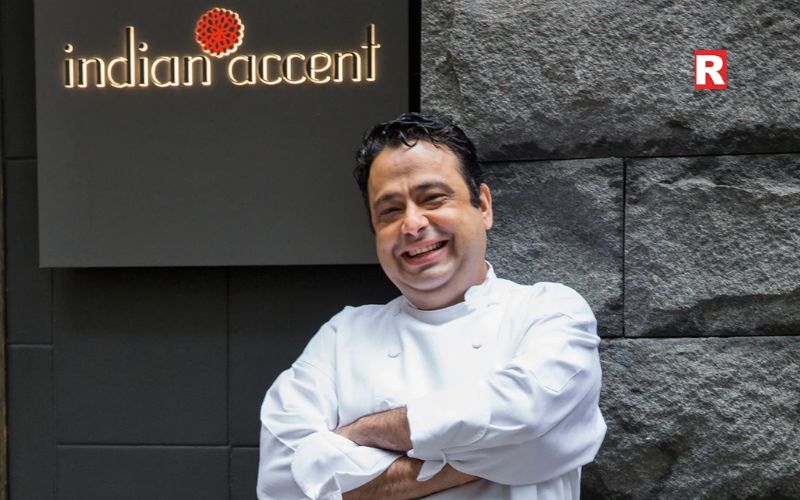
- Restaurant: Indian Accent
- Chef: Manish Mehrotra
- Location: New Delhi
Indian Accent changed how the world sees Indian fine dining. Chef Manish Mehrotra redefined Indian food by combining regional flavors with global techniques. His dishes are rooted in tradition but plated with precision. The restaurant is known for tasting menus. Each course tells a story. You may see blue cheese naan or meetha achaar ribs. The combinations are bold but balanced. The kitchen focuses on consistency. Service standards are international. Indian Accent has repeatedly featured in Asia’s top restaurant lists, which gives it global credibility. For food lovers in India, this is a must-visit if you want to see how Indian cuisine evolves without losing authenticity.
Read more: Best Desserts Around the World Food Lovers Crave
Celebrity-Owned Restaurants in India: Where Star Power Meets Serious
2. Masque – Ingredient-Driven Innovation
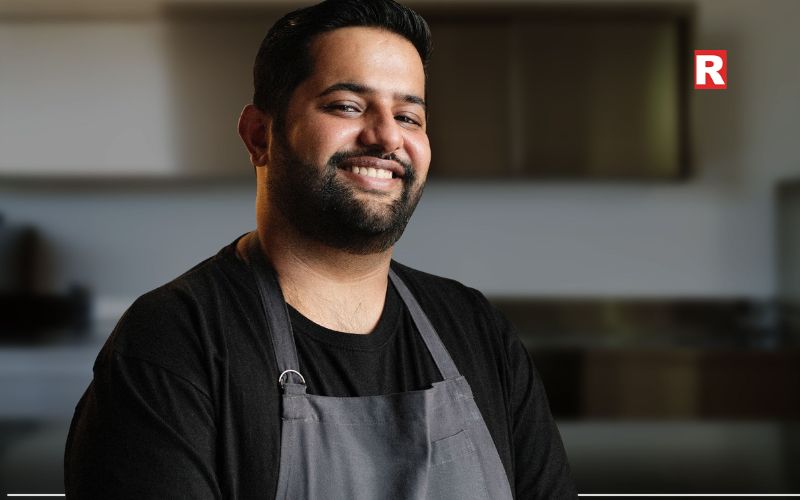
- Restaurant: Masque
- Chef: Varun Totlani
- Location: Mumbai
Masque is one of India’s most respected fine-dining destinations. The focus here is simple but powerful: Indian ingredients, modern techniques. Chef Varun Totlani leads a kitchen that experiments with fermentation, curing, and slow cooking. The menu changes with seasons. Local farmers and small producers play a key role in sourcing. This approach builds uniqueness. Instead of copying global trends, Masque builds flavor from Indian soil. The tasting menu format creates anticipation. Each dish is minimal yet layered in flavor. For urban professionals and culinary explorers, Masque represents India’s new-age gastronomy. It appeals to diners who appreciate craft, research, and detail.
3. Farzi Café – Where Molecular Meets Mass Appeal
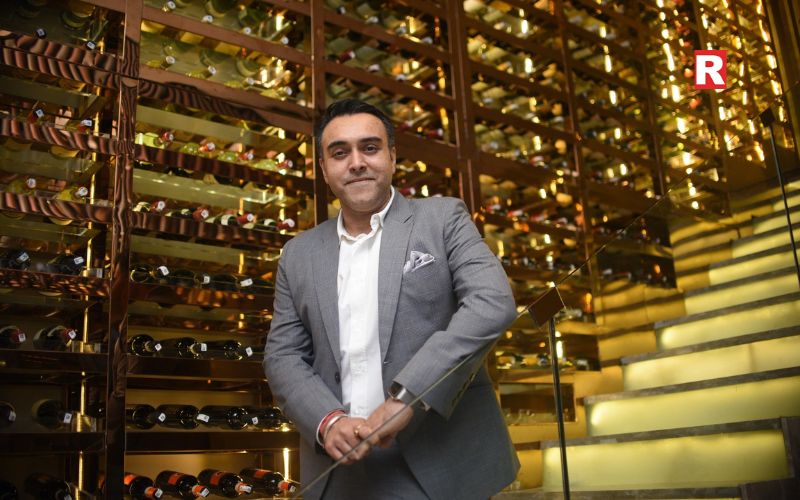
- Restaurant: Farzi Café
- Founder: Zorawar Kalra
- Locations: Multiple cities in India
Farzi Café brought theatrical dining to mainstream India. The concept blends molecular gastronomy with Indian comfort food. It is modern. It is vibrant. It is Instagram-friendly. Under the leadership of Zorawar Kalra, the brand scaled across cities. Dishes like deconstructed dal chawal and foam-topped curries became popular among young diners. Maintaining consistency across outlets is not easy. Farzi Café built systems and kitchen processes that allow innovation without compromising speed. They set the audience very clearly, Millennials, corporate diners, and social groups who want flavor plus presentation. It is a strong example of how a chef-driven brand can balance creativity and business growth.
Know more: What Restaurant Menus Reveal About Changing Alcohol Preferences in India
4. Wasabi by Morimoto – Precision Japanese in Mumbai
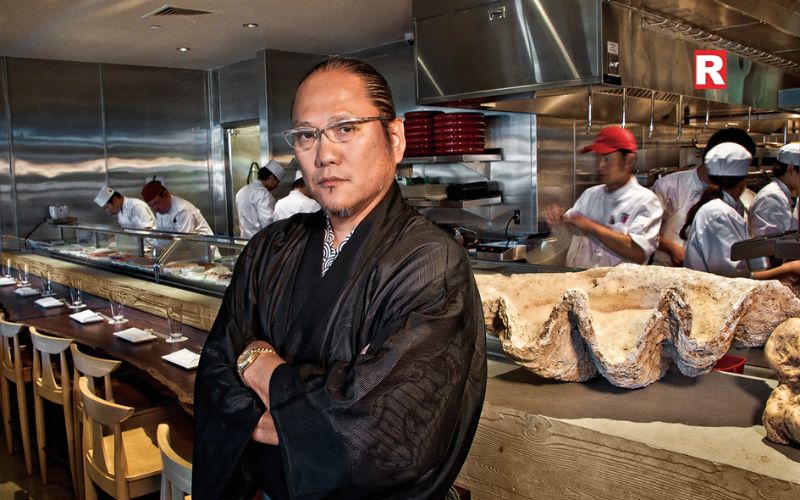
- Restaurant: Wasabi by Morimoto
- Chef: Masaharu Morimoto
- Location: Mumbai
Located inside The Taj Mahal Palace, Wasabi by Morimoto elevated Japanese dining in India. Chef Masaharu Morimoto is globally respected for his mastery of sushi and omakase. The restaurant focuses on authenticity. Ingredients are sourced carefully. Knife skills and rice preparation follow strict Japanese standards. The value here is technical excellence. Sushi is not just assembled. It is crafted with discipline. The experience is quiet, refined, and premium. For high-net-worth diners and global travelers in India, this restaurant offers Michelin-level technique without leaving the country. It stands as proof that celebrity chefs can bring global standards to Indian hospitality.
5. Yellow Chilli—Regional Flavours with Mass Reach
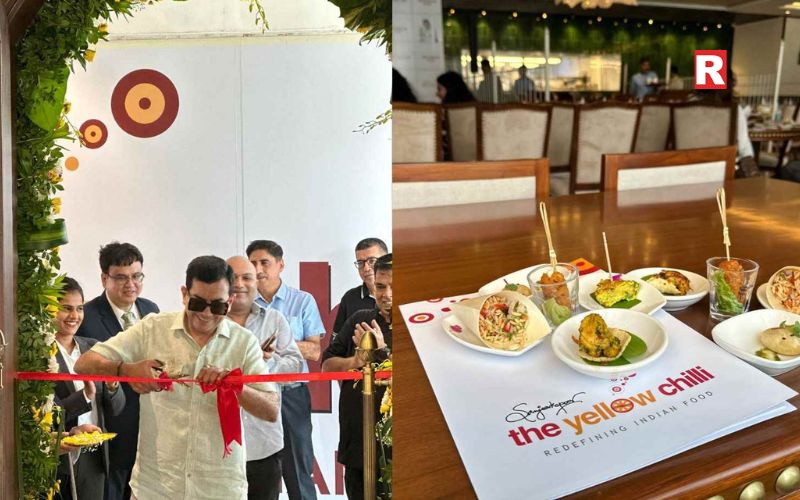
- Restaurant: Yellow Chilli
- Chef: Sanjeev Kapoor
- Locations: Multiple cities
Sanjeev Kapoor is one of India’s most trusted culinary names. His television presence built familiarity across households. Yellow Chilli translates that trust into a restaurant format. The menu focuses on popular Indian dishes with signature twists. Recipes are standardized. Flavors are consistent. Pricing is accessible. Chef Kapoor transformed personal credibility into a nationwide restaurant network. For families and mid-segment diners, Yellow Chilli offers reliability. It is not experimental fine dining. It is comfort food backed by a strong culinary authority.
6. Junoon—Michelin-Level Indian Excellence
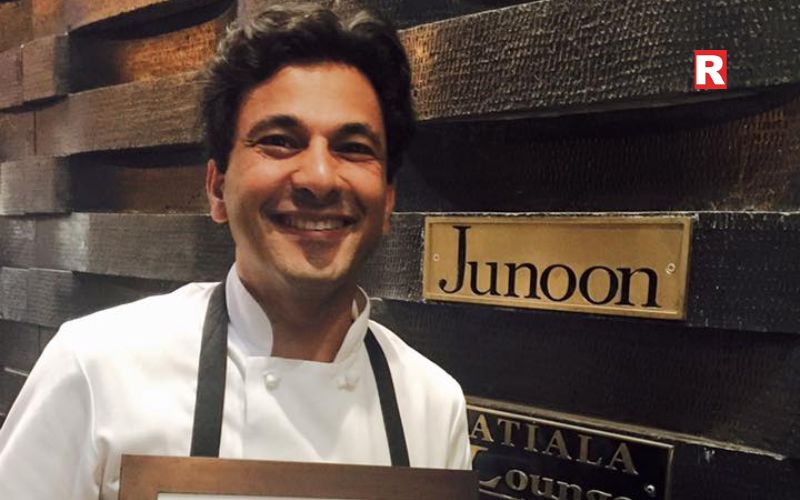
- Restaurant: Junoon
- Chef: Vikas Khanna
- Primary Base: New York, with influence in India
Vikas Khanna built global recognition through Junoon, which earned a Michelin star. Though based in New York, his influence strongly impacts Indian gastronomy. Junoon focuses on refined Indian cuisine with elegant presentation. The technical depth is visible in sauce work, spice layering, and plating. For Indian readers, Chef Khanna represents international validation. His journey from India to Michelin recognition inspires young chefs and restaurateurs.
Why This Restaurant Is Gaining Popularity
Celebrity chef restaurants are not just marketing tools. They create benchmarks. They invest in training. They bring structure to kitchens.
Key advantages include:
- Strong culinary identity
- Standardized processes
- Focus on ingredient sourcing
- Innovation without losing cultural roots
- Brand trust among diners
India’s urban food culture is expanding. Consumers are more aware. They read reviews. They follow chefs online. They seek authenticity. For Gen Z and millennial diners, dining is content. It is experience-driven. Celebrity chefs understand this shift. They combine storytelling with skill.
Scalability and Systems
Behind the glamour, there is operational depth. Successful chef-owned restaurants invest in:
- Kitchen training programs
- Menu engineering
- Supply chain management
- Hygiene protocols
- Experience design
Brands like Farzi Café show scalability. Fine-dining spaces like Masque focus on exclusivity. Chains like Yellow Chilli build mass reach. Each model targets a different audience segment. Together, they shape India’s modern hospitality landscape.
Also check: How to Start a Cloud Kitchen in India: A Step-by-Step Guide
How to Start a Cloud Kitchen on Swiggy for Your Restaurant (2025 Guide)
What is Kimchi? Top Veg Kimchi You Can Try at Home
Happy Eating!
These restaurants deliver more than food on a plate. They create structured dining experiences built on skill, research, and precision. India’s leading celebrity chefs have expanded far beyond television recognition. They design menus with intent. They train kitchen brigades in technique and discipline. They build sourcing networks that focus on quality ingredients. Many use modern methods such as controlled fermentation, tasting menus, and detailed plating standards. Each concept reflects a clear identity. Some focus on progressive Indian cuisine. Others scale modern cafés across metro cities. Their strength lies in consistency, systems, and culinary authority. Urban professionals, global travellers, and serious food enthusiasts are the primary audience. These diners value authenticity and execution. They seek restaurants that combine storytelling with technical depth. Across Mumbai, Delhi, and Bengaluru, chef-owned spaces set benchmarks for service and innovation. For those who truly follow India’s evolving food culture, dining at these establishments is not indulgence. It is an informed choice and culinary exploration.

Continental food is now common in Indian homes and restaurants. Cafés in metro cities serve pasta, grilled fish, salads, and soups every day. Many people assume continental dishes are heavy, creamy, and full of cheese. That is not always true. Several classic European dishes are balanced, nutrient-rich, and lighter than typical fried fast food.
In fact, many healthy eating plans around the world are based on continental food patterns. The Mediterranean style of eating, linked to countries like Italy and Greece, focuses on olive oil, vegetables, lean proteins, nuts, and whole grains. Studies show this pattern supports heart health, weight control, and better metabolism. For urban Indian professionals, gym-goers, and home cooks, continental food can be a smart choice. The key lies in ingredients and cooking methods. Grilling, baking, steaming, and sautéing are better than deep frying. Portion control also matters.
Here Are Top Continental Foods That Are Good For Your Health.
1. Grilled Salmon with Steamed Vegetables
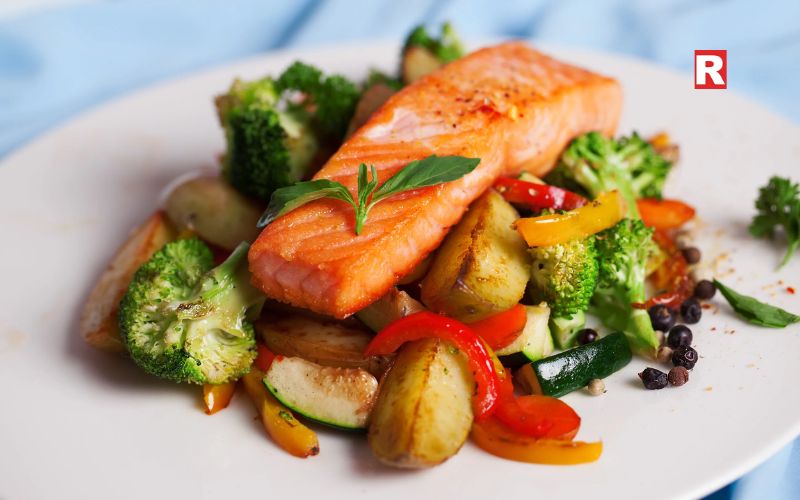
Grilled salmon is rich in omega-3 fatty acids. These healthy fats support heart health and brain function. Salmon also provides high-quality protein. Protein helps in muscle repair and keeps you full for longer. Steamed vegetables add fiber, vitamins, and antioxidants. This combination creates a balanced plate. Compared to fried fish, grilled salmon contains less unhealthy fat. It suits working professionals, fitness enthusiasts, and people managing cholesterol.
Read more: What is Kimchi? Top Veg Kimchi You Can Try at Home
High Protein Indian Meals You Should Try
2. Quinoa Salad
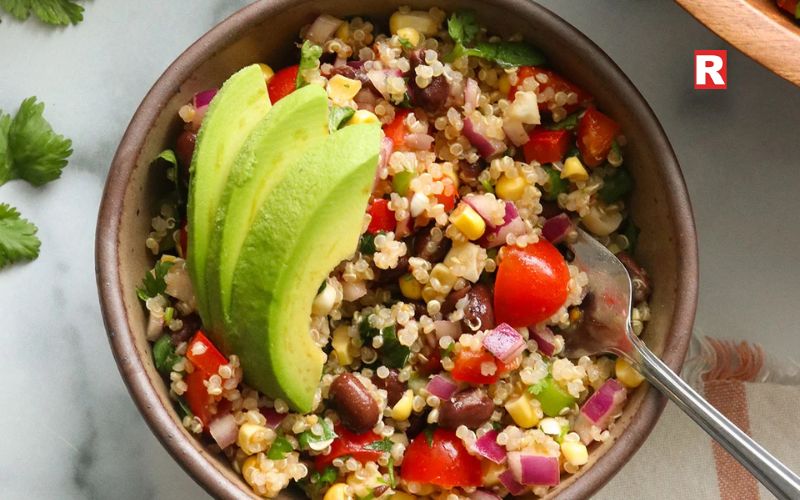
Quinoa is technically a seed but eaten like a grain. It is a complete plant protein. This means it contains all nine essential amino acids. That makes it ideal for vegetarians. A quinoa salad usually includes cherry tomatoes, cucumbers, olive oil, lemon juice, and herbs. The fiber content helps digestion. It also supports steady blood sugar levels. For Indians looking for lighter dinner options, quinoa salad is a smart alternative to refined flour dishes.
3. Ratatouille
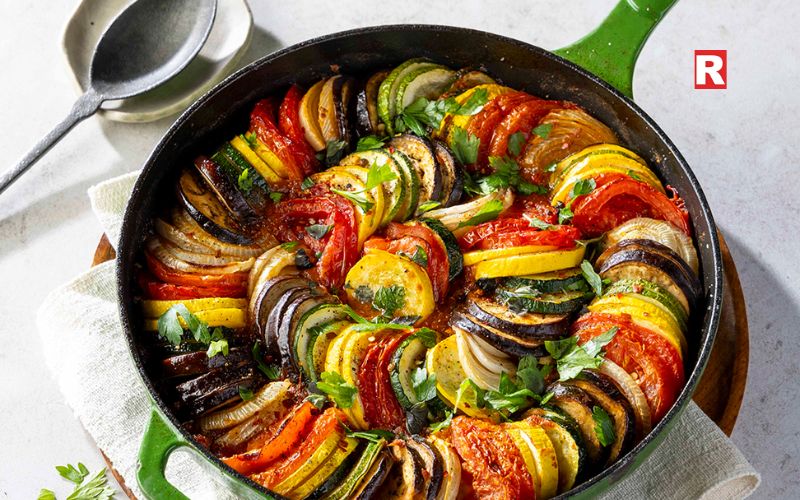
Ratatouille is a traditional vegetable dish from France. It includes zucchini, eggplant, tomatoes, capsicum, and herbs. The dish is slow-cooked with minimal oil. It is low in calories but high in antioxidants. Tomatoes provide lycopene. Eggplant adds fiber. Zucchini contributes hydration and vitamins. This dish supports gut health and weight management. It works well for people following calorie-controlled diets.
4. Greek Salad
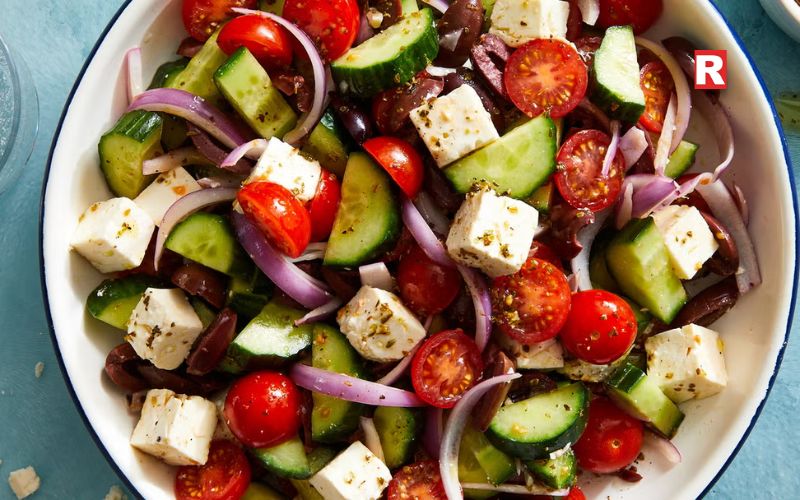
Greek salad is simple yet powerful. It includes cucumber, tomatoes, olives, onions, feta cheese, and olive oil. Olive oil contains monounsaturated fats. These fats support heart health. Feta cheese provides protein and calcium. The raw vegetables offer fiber and vitamin C. This salad is filling without being heavy. It suits people who want light lunches during busy workdays.
5. Minestrone Soup
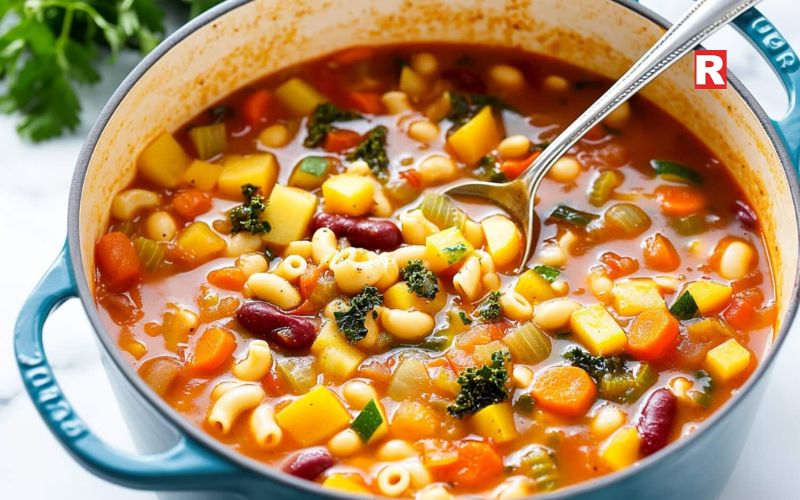
Minestrone is a vegetable soup from Italy. It contains beans, carrots, celery, tomatoes, and sometimes whole-grain pasta. Beans add plant protein and fiber. This soup supports digestion. It keeps you warm and satisfied. Compared to cream-based soups, minestrone is lighter and lower in saturated fat. It is ideal for evening meals or light dinners.
Know more: 12 Delicious High-Protein Foods to Eat Daily for a Healthier You
6. Grilled Chicken with Herbs
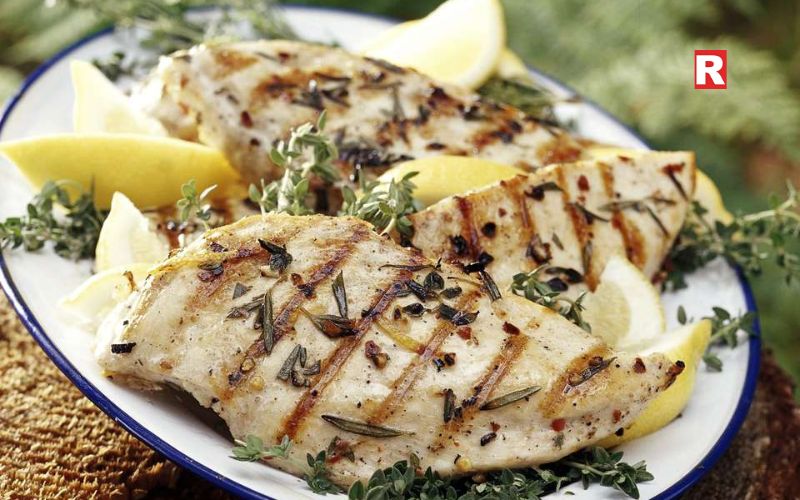
Grilled chicken breast is lean protein. It is low in fat and high in essential amino acids. Herbs like rosemary, thyme, and oregano add flavor without extra calories. Protein helps muscle recovery. It also helps maintain satiety. For gym-goers and athletes, grilled chicken is a reliable meal option. Pairing it with sautéed vegetables or brown rice creates a balanced macronutrient profile.
7. Whole Wheat Pasta with Pesto
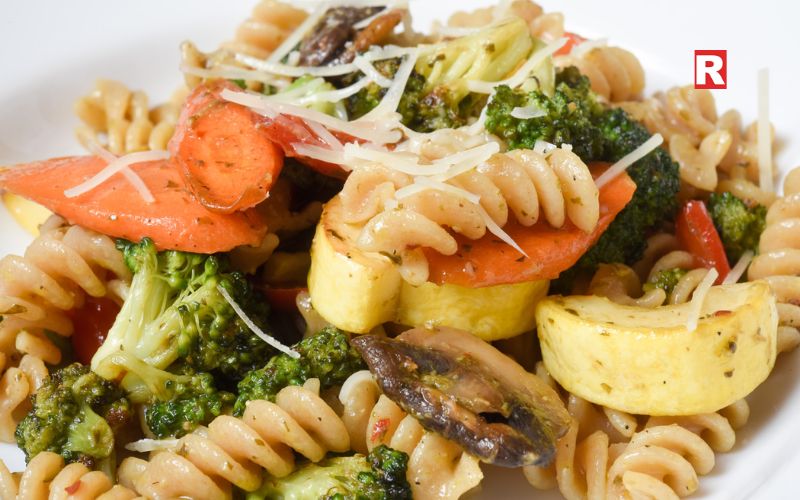
Pasta does not have to be unhealthy. Whole wheat pasta contains complex carbohydrates. These carbs release energy slowly. That prevents sudden sugar spikes. Pesto sauce, made with basil, olive oil, garlic, and nuts, contains antioxidants and healthy fats. Portion control is important. A moderate serving can fit into a balanced diet. For Indians who enjoy pasta, choosing whole wheat over refined flour makes a major difference.
8. Avocado Toast on Whole Grain Bread
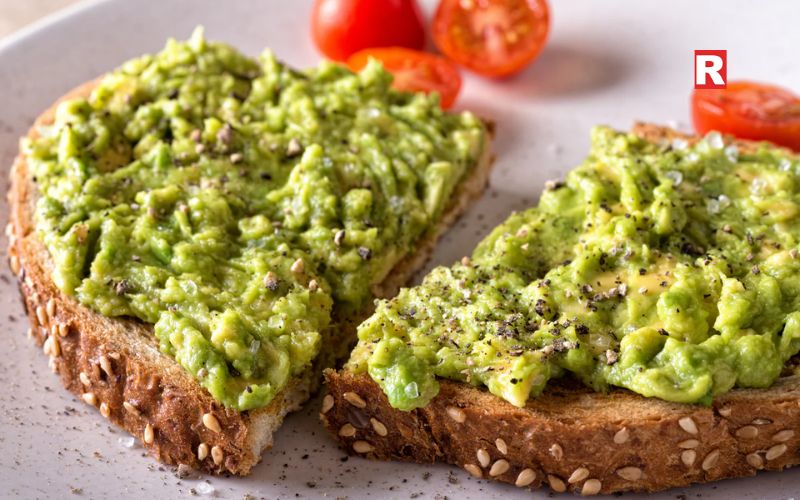
Avocado contains healthy monounsaturated fats. These fats support heart health and reduce bad cholesterol. Whole grain bread adds fiber and B vitamins. This dish is simple and quick. It works well as a healthy breakfast or evening snack. Adding boiled eggs increases protein value. Compared to butter-loaded toast, avocado toast is nutritionally superior.
Nutritional Science Behind These Choices
Healthy continental meals often follow a balanced macronutrient pattern. They include protein, fiber, and healthy fats. This balance helps control hunger and manage weight. Fiber improves gut health. Lean proteins support muscle maintenance. Healthy fats from olive oil and nuts support heart function. Cooking techniques such as grilling and baking reduce excess oil use. This lowers total calorie intake.
The glycemic index of whole grains and legumes is lower than refined flour products. That means better blood sugar stability. For Indian readers dealing with diabetes or prediabetes, this is an important factor.
How to Make Continental Food Healthier at Home
- Choose whole grains instead of refined flour.
- Use olive oil in moderation.
- Prefer grilling, steaming, or baking over frying.
- Add more vegetables to every plate.
- Control portion sizes.
Ingredient quality matters more than the cuisine label. Even pasta can be healthy if prepared correctly.
Also check: Try These Veg Soups in These Freezing Winters
5 Ways to Use Garden Cress Seeds (Halim) for Stronger Hair and Bones
Top 5 States With the Spiciest Food in India
Final Thoughts
Continental food is often misunderstood as heavy and calorie-dense, but that view is incomplete. Many traditional European dishes are built on lean protein, fresh vegetables, whole grains, and healthy fats. When prepared with proper cooking methods such as grilling, baking, or steaming, these meals offer balanced macronutrients. They provide quality protein for muscle repair, fiber for gut health, and monounsaturated fats that support heart function. For urban Indian consumers who enjoy global flavours, continental cuisine offers both taste and nutritional structure. It brings diversity to the plate without relying on excess oil or refined ingredients. Portion control and ingredient quality remain critical factors. Whole wheat pasta, olive oil in moderation, and fresh herbs enhance value without raising calorie load. For working professionals and fitness-focused individuals, these dishes align with modern health goals. Smart selection and mindful preparation transform continental food into a practical, health-forward dining choice.

Thai food is a great choice for vegetarians. It is light. It is fresh. It is full of flavour. Thai cooking uses herbs, spices, and natural sauces. The food feels rich but not heavy. Many Thai dishes balance four tastes. Sweet. Sour. Spicy. Salty. This balance makes each bite interesting. For Indian food lovers, Thai food feels familiar yet new. It uses chillies. It uses garlic. It uses tangy flavours. It also uses herbs like Thai basil, kaffir lime leaf, and galangal. These add depth to simple vegetables. Many restaurants now offer clear vegetarian options. Tofu and mushrooms replace meat. Fresh vegetables bring texture. This guide helps readers choose the best veg Thai dishes with confidence. It explains what each dish is. It explains the taste. It explains why the dish stands out. It also helps first-time diners order without doubt.
Find Top Veg Thai Dishes
1. Pad Thai (Vegetarian Version)
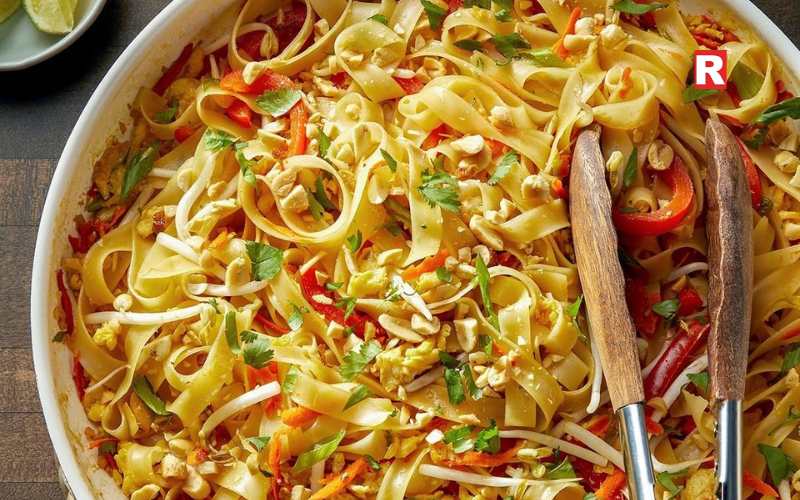
Pad Thai is one of the most loved Thai dishes. It is a stir-fried noodle dish. The veg version uses flat rice noodles, tofu, bean sprouts, peanuts, and spring onion. The sauce tastes sweet and tangy. It has tamarind, palm sugar, and soy sauce. The texture is soft with light crunch from peanuts and sprouts. The dish feels filling but not heavy. It suits first-time Thai food eaters. It pairs well with lime on the side. The lime cuts the sweetness. This dish shows how Thai food balances flavours in one plate.
Read more: 8 Famous Vegetarian Dishes of Uttar Pradesh and Their Timeless Legacy
5 Cities That Serve the Best Non-Vegetarian Street Food
2. Green Curry (Veg)
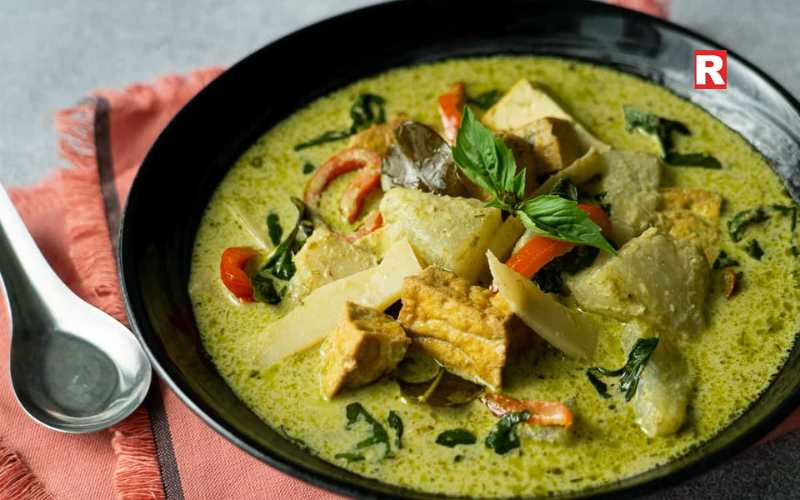
Green curry is rich and aromatic. The base uses green chilli paste, coconut milk, Thai basil, and kaffir lime leaf. The veg version uses vegetables like brinjal, baby corn, bell peppers, and tofu. The curry tastes spicy and creamy. The heat builds slowly. The herbs give a fresh smell. This dish feels warming. It is best eaten with steamed rice. The curry shows how Thai food uses herbs for flavour, not heavy spices. The coconut milk balances the heat. This makes the dish smooth and comforting.
3. Tom Yum (Veg)
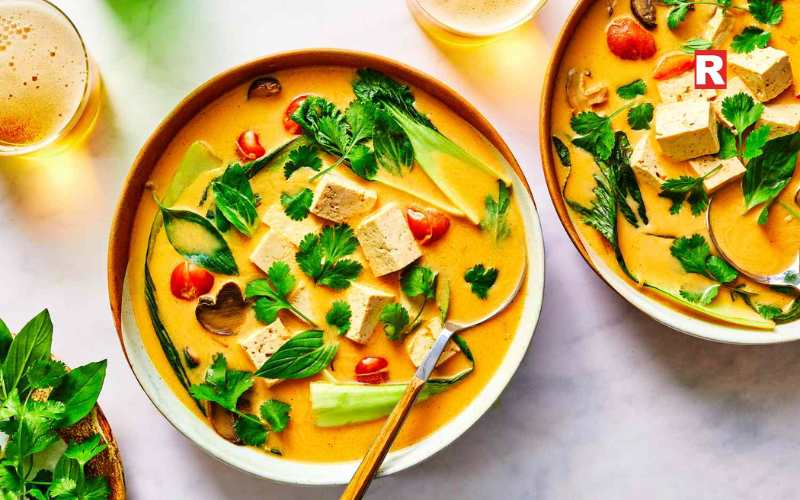
Tom Yum is a clear soup. It is light and bold. The veg version uses mushrooms, lemongrass, galangal, lime juice, and chilli. The soup tastes sour and spicy. It wakes up the palate. It is low in oil. It feels refreshing. Many people choose this soup when they want something light. It helps start a meal without feeling full. The herbs also support digestion. The broth feels clean and warming at the same time.
4. Som Tam (Veg)
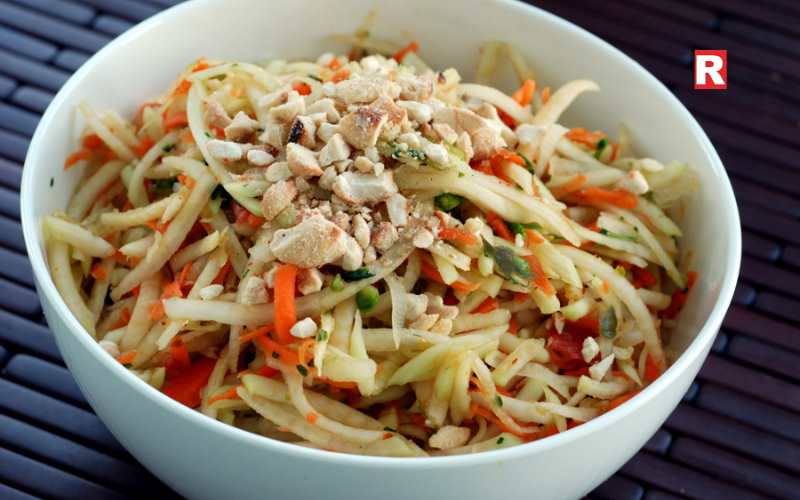
Som Tam is a raw salad. It uses shredded green papaya, tomatoes, peanuts, lime juice, and chilli. The veg version avoids fish sauce. The taste is sharp and fresh. It is crunchy. It is light. It suits people who enjoy sour flavours. This dish is popular in Thai street food culture. It feels cooling in hot weather. It also adds texture to a meal that has curries and noodles. The salad brings balance to heavier dishes.
5. Red Curry (Veg)
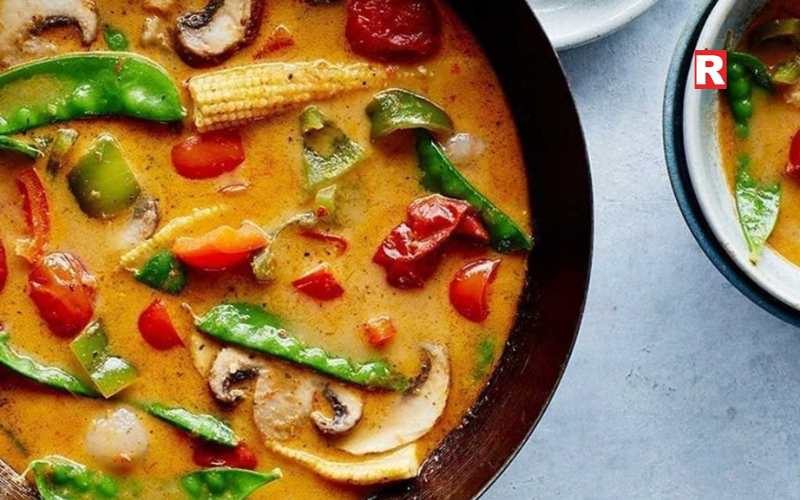
Red curry is slightly sweeter than green curry. It uses red chilli paste, coconut milk, and herbs. The veg version includes tofu, mushrooms, and vegetables. The flavour is warm and deep. It is less sharp than green curry. The colour comes from dried red chillies. The curry feels rich but smooth. It works well with rice or flat noodles. This dish suits people who want flavour without extreme heat.
Know more: 10 Awadhi Cuisine Classics You Must Try at Least Once
6. Thai Basil Stir-Fry (Veg)
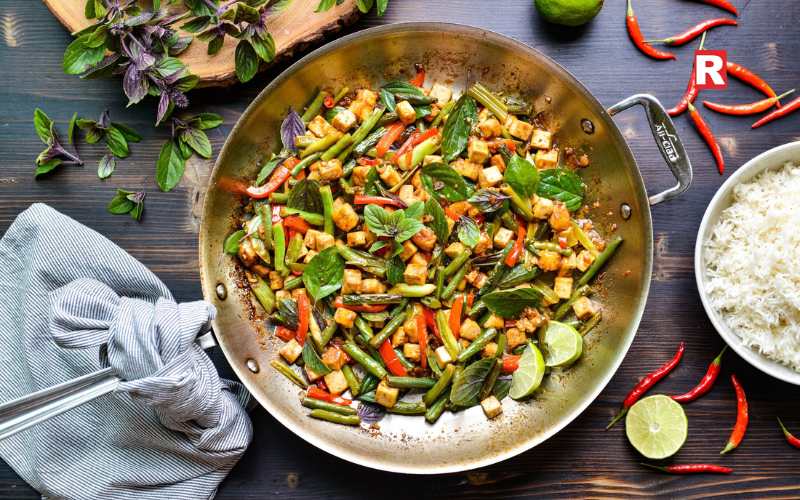
This stir-fry is fast and flavourful. It uses Thai basil, garlic, chillies, tofu, and vegetables. The taste is spicy and herbal. The basil gives a strong aroma. The dish feels light but bold. It is often eaten with rice. This is a good choice for people who like quick, hot meals. It shows how Thai food uses fresh herbs to lift simple ingredients.
7. Massaman Curry (Veg)
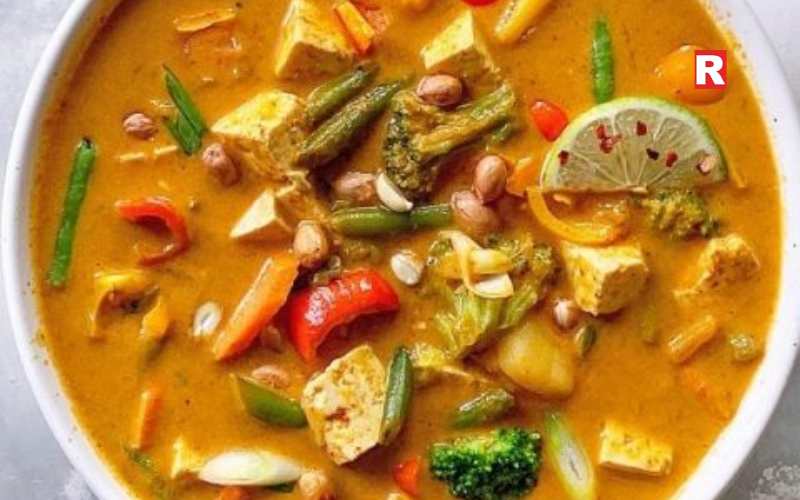
Massaman curry is mild and comforting. It uses coconut milk, peanuts, potatoes, and spices. The veg version adds tofu or vegetables. The taste is slightly sweet and nutty. It feels rich and filling. This curry is less spicy. It suits people who prefer gentle heat. The peanuts add texture. The potatoes make it hearty. It is a good option for those new to Thai curries.
8. Thai Spring Rolls (Veg)
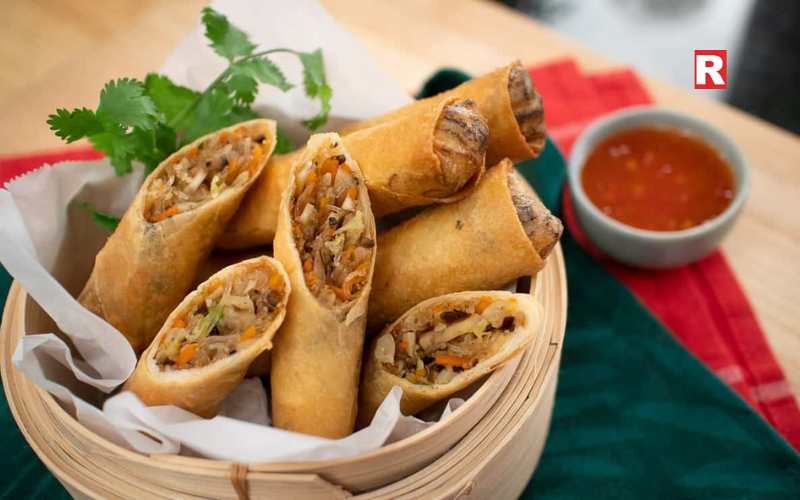
Veg Thai spring rolls are light snacks. They use thin wrappers filled with vegetables and glass noodles. They are crisp outside. Soft inside. They are served with sweet chilli sauce. The taste is mild and crunchy. This dish suits sharing. It is often served as a starter. It pairs well with soups and salads. It adds texture to the meal without being heavy.
Who Should Avoid or Be Careful
- People with low spice tolerance should avoid very spicy curries and basil stir-fries.
- Those with coconut allergies should avoid curries with coconut milk.
- People on low-fat diets should limit creamy curries like green, red, and massaman curry.
- Those with nut allergies should avoid massaman curry and dishes with peanuts.
- People with high sodium sensitivity should limit sauces used in stir-fries and noodles.
- Those with digestive issues should avoid very sour and spicy soups like Tom Yum.
Also check: 20 Famous Foods from Karnataka That Define Its Rich Food Culture
20 Famous Foods from Assam That Reflect Its True Food Culture
15 Famous Foods of Indore You Must Try: Street Food Capital of Madhya Pradesh
Final Thought!
Veg Thai food suits Indian taste buds. It uses chillies and tang. It also feels lighter than many rich gravies. The herbs bring freshness. The sauces bring depth. The dishes do not feel oily when cooked well. Thai food also offers variety. Noodles for comfort. Curries for warmth. Salads for freshness. Soups for light meals. This mix makes it easy to build a balanced meal. Vegetarians can enjoy global flavours without giving up familiar tastes. Thai food also feels modern. It suits dining out. It suits casual meals. It suits travel food choices. Trying veg Thai dishes adds range to everyday eating. It helps people move beyond basic options. It brings new textures and tastes. It also supports mindful eating when chosen right. With the right picks, Thai food can be both tasty and balanced.

Sweet potato is one of the most underrated foods in the Indian diet. In winter, shakarkandi carts line busy streets. At home, it is often boiled or roasted with salt and lemon. Many people enjoy the taste but miss its health value. Sweet potato is affordable and easy to cook. It fits daily meals without changing food habits. It supports immunity due to beta-carotene, which the body converts to vitamin A. It supports digestion because of the dietary fiber that aids gut movement. It supports heart health through potassium, which helps manage blood pressure. It supports steady energy from complex carbohydrates that digest slowly. It can support weight control when portions are measured and cooking is low in oil.
These points align with nutrition guidance followed by bodies such as Indian Council of Medical Research and World Health Organization. This information supports practical food choices for urban adults, students, and working professionals who seek simple nutrition. It is not medical advice. Personal diet needs vary. A qualified nutritionist can guide portion size, frequency, and preparation for specific goals.
Nutritional Value of Sweet Potato (Per 100g, Boiled)
Nutrient | Approx Value |
|---|---|
Calories | 86 kcal |
Carbohydrates | 20 g |
Dietary Fibre | 3 g |
Protein | 1.6 g |
Fat | 0.1 g |
Vitamin A | 700–900 mcg |
Vitamin C | 2–3 mg |
Potassium | 330–340 mg |
Magnesium | 25 mg |
Antioxidants | Present |
Values may vary based on variety and cooking method. Boiling and roasting retain more nutrients than deep frying.
1. Sweet Potato Supports Strong Immunity: Sweet potato is rich in beta-carotene. The body converts beta-carotene into vitamin A. Vitamin A supports immune cells. It helps the body fight infections. This is helpful during seasonal changes and winter months. Eat sweet potatoes roasted or boiled. Add a small amount of fat like peanuts or curd to help absorb vitamin A.
2. It Improves Digestion and Gut Health: Sweet potato is high in fibre. Fibre supports smooth digestion. It helps prevent constipation and bloating. If your job involves long sitting hours, digestion can slow down. A bowl of boiled sweet potato with salt and lemon is gentle on the stomach. The fibre also feeds good gut bacteria.
3. It Helps with Weight Management: Sweet potato keeps you full for longer. It digests slowly. This helps control hunger. Replace fried snacks with roasted sweet potato. Combine it with vegetables or protein like paneer. This supports better portion control and balanced meals.
4. It Supports Blood Sugar Control When Eaten Right: Sweet potato has a lower glycaemic impact than regular potatoes when boiled or steamed. Preparation matters. Avoid deep frying. Avoid sugar or jaggery toppings. Eat small portions with vegetables and protein. This helps reduce sugar spikes.
5. It Supports Heart Health: Sweet potato contains potassium. Potassium helps regulate blood pressure. Its fiber also supports healthy cholesterol levels. Choose low-oil cooking methods. Limit added salt.
6. It Supports Healthy Skin: Beta-carotene supports skin repair. Antioxidants reduce damage from pollution and stress. Regular intake of colourful vegetables helps improve skin quality over time. Sweet potato supports skin health from within.
7. It Supports Eye Health: Vitamin A is important for vision. Sweet potato is a strong source of beta-carotene. Long screen hours affect eye comfort. A nutrient-rich diet supports eye health over time.
8. It Provides Steady Energy: Sweet potato contains complex carbs. These release energy slowly. It helps prevent sudden tiredness. It suits office-goers and active people who need steady fuel.
9. It Supports Healthy Gut Bacteria: Sweet potato acts as a prebiotic food. It feeds good gut bacteria. A healthy gut supports digestion, immunity, and overall well-being. Pair sweet potato with curd for better gut support.
10. It Is Affordable and Easy to add to Indian Meals: Sweet potato is widely available. It is budget-friendly. You can roast it, boil it, or cook it as sabzi. Healthy eating becomes easier when foods are simple and local.
Best Ways to Eat Sweet Potato in India
- Roasted shakarkandi with lemon and chaat masala
- Boiled sweet potato salad with cucumber and peanuts
- Sweet potato sabzi with less oil
- Shallow-cooked sweet potato tikki
- Plain boiled sweet potato as a snack
Avoid deep frying. Avoid heavy sauces. Keep portions moderate.
Know more: 20 Famous Foods from Karnataka That Define Its Rich Food Culture
Who Should Avoid or Limit Sweet Potato
Sweet potato is healthy for most people. Some people should be careful with quantity and frequency.
- People with diabetes: Sweet potato contains natural sugars and carbs. Large portions can raise blood sugar. Eat small portions. Prefer boiled or steamed. Pair with fibre and protein.
- People on low-carb or keto diets: Sweet potato is high in carbohydrates. It may not fit strict low-carb plans.
- People with kidney problems: Sweet potato is high in potassium. Excess potassium may be risky for people with kidney issues. Medical guidance is important.
- People with a history of kidney stones: Sweet potato contains oxalates. High intake may increase stone risk in sensitive people.
- People with sensitive digestion: Large portions may cause bloating in some people. Start with small amounts.
Also check: Best Indian Sweet Brands in India
High Protein Indian Meals You Should Try
6 Benefits of Drinking Black Coffee
Eat Healthy, Stay Healthy!
Sweet potato is a simple and powerful food in the Indian diet. It supports immunity because it is rich in beta-carotene, which the body converts into vitamin A. It improves digestion due to its high fibre content. Fibre supports gut movement and reduces bloating. It supports heart health by providing potassium, which helps manage blood pressure. It also supports eye health through vitamin A, which is important for vision. Sweet potato gives steady energy because it contains complex carbohydrates that release energy slowly. This suits office-goers, students, and people with active routines. It helps manage weight when cooked the right way, such as boiling or roasting instead of frying. Healthy eating does not require expensive foods or imported superfoods. Local foods can meet daily nutrition needs. Adding sweet potato to meals twice a week improves diet quality. Simple cooking methods preserve nutrients. Balanced portions prevent excess calorie intake. Over time, these small habits support better health and long-term wellness.
Disclaimer: This information is for general awareness only and not a substitute for medical advice from a qualified healthcare professional.

In an era defined by rising costs, fickle customer expectations, and technological disruption, the walls of the traditional “big menu” are being knocked down. Across the global restaurant landscape, operators are increasingly trimming menu offerings to focus on a smaller, sharper, more profitable selection. This isn’t just a fad; it’s a strategic response to some of the toughest challenges the industry has faced in decades. In cities like Mumbai, Pune, New Delhi and Bengaluru, restaurants are opting for focused menus.
Limited is the New Go
The modern diner is increasingly looking for expertise rather than variety. In an era where guests are spoiled for choice, a "winning formula" is a concise menu that is exceptionally high in quality.
“By narrowing the focus, we eliminate "decision fatigue" for the guest and ensure that every dish hitting the table is world-class,” said Sundheep Reddy, Co-Founder, Mirth Cocktail Conservatory.
Concise menus showcase chef-curated specialties with greater pride. Most restaurants offer 40–60 core dishes, and 70–80% rotate seasonal menus based on ingredient availability.
Focusing on this, Sumit Gambhir, Co-founder, Woodside Inn added, “Fewer dishes improve consistency, boost staff confidence in recommendations, reduce ingredient waste, and ensure fresher food—while also strengthening inventory control and cost efficiency.”
Improved Experience
A smaller menu allows for greater agility. We can adapt to seasonal produce or food trends much faster than a restaurant tethered to a massive, static menu.
Khalid Ansari, Founder, Kojak mentioned that they deliver a personalized service to guests making them feel more special. Such experiences reduce the gap between the diners & kitchen.
Reddy noted, “For guests, the experience becomes more intentional as they believe that as there are fewer options, each dish has been perfected.”
Also, menu engineering uses sales and profitability data to evaluate every dish. Modern pricing strategies like dynamic or time-based pricing help restaurants actively manage demand offering lower prices during slow periods and higher prices during peak times to maximize revenue.
Commenting on this, Sneha Upadhya Chef and Founder, Lygon St. said, “We use menu engineering to understand demand and seasonality, and price accordingly. Dynamic pricing helps us balance value for the guest while keeping the business sustainable. We are cutting inventory by designing menus around overlapping ingredients and versatile prep.”
The Business Impact
While a curated menu often leads to better margins through reduced wastage. Restaurants are saving a lot with staffing, food costs and ingredients by 40-45% with limited menu serving. This not only improves the business but also helps in scalability.
“The impact at a high-end bar like Mirth is also reflected in the synergy between food and drink. At a cocktail conservatory, food typically accounts for less than 20% of total sales, but its role is vital,” shared Reddy.
A limited, high-quality food menu ensures that the culinary offerings complement, rather than overshadow, our primary craft: the beverage program.
Gambhir said that this is still an early experience for them, but they see the benefits in the confidence gained by their ops teams.
However, the future is hyper-specialization. Restaurants expect to see more "micro-menus" that change almost weekly based on market availability. The "everything-under-one-roof" model is fading; the future belongs to brands that do one or two things better than anyone else in the city.

India and sweets share a deep bond. From festivals to weddings, from birthdays to everyday joy, sweets are part of life. Every region has its own flavours, techniques, and traditions. Over the years, many Indian sweet brands have turned these traditions into trusted names. They offer quality, taste, and consistency while keeping the soul of Indian mithai alive. They are symbols of celebration and culture. Most Indian rituals begin or end with something sweet. This tradition goes back centuries. Indian sweets use rich ingredients. Milk, khoya, ghee, jaggery, sugar, nuts, and spices are common. Many recipes are slow-cooked. This brings depth and flavour. Regional styles also make Indian sweets unique. North India is known for milk-based sweets. Bengal is famous for chenna-based sweets. Western India loves jaggery and ghee. South India uses lentils, coconut, and clarified butter. This diversity makes Indian sweets special.
Another reason is emotion. Sweets remind people of home. They bring comfort and nostalgia. This is why trusted sweet brands matter so much. This article explores the best Indian sweet brands in India. These brands are known for their legacy, ingredients, and unforgettable taste. Some are century-old names. Others are modern brands adding a fresh touch. Together, they represent the true sweetness of India.
How These Sweet Brands Were Selected
The brands in this list are chosen carefully. Each brand meets key standards.
Brand legacy and history were considered.
Taste and ingredient quality mattered.
Popularity across regions was important.
Signature sweets and customer trust were also reviewed.
These brands consistently deliver authentic Indian flavours.
Discover the Best Indian Sweet Brands in India
1. Haldiram’s
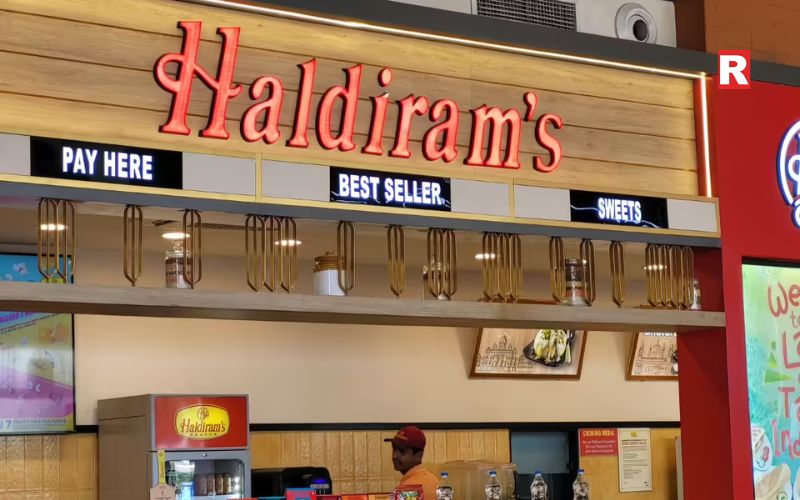
Haldiram’s is one of the most recognised Indian food brands. It started in Bikaner and grew into a global name. The brand is known for hygiene, consistency, and wide variety. Haldiram’s sweets are loved across India. Rasgulla, Gulab Jamun, and Soan Papdi are top sellers. Their packaged sweets made mithai easy to access. Today, Haldiram’s stores are found in many cities. It is also popular abroad. What sets Haldiram’s apart is trust. People know what to expect. The taste remains familiar.
Read more: 5 Cities That Serve the Best Non-Vegetarian Street Food
Top 10 Vegan Street Foods in India Every Indian Loves
2. Bikanervala
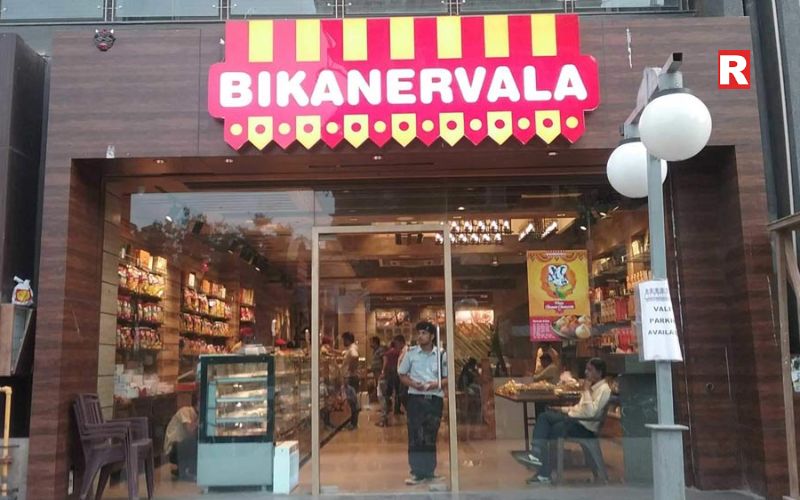
Bikanervala is a strong name in North Indian sweets. The brand began as a small family shop. Over time, it expanded across India and overseas. Bikanervala is known for rich flavours. Kaju Katli, Motichoor Ladoo, and Rabri are popular choices. The brand focuses on traditional recipes and quality ingredients. Their sweets are often chosen for gifting. Clean stores and premium packaging add to the appeal. Bikanervala balances tradition with scale.
3. K.C. Das
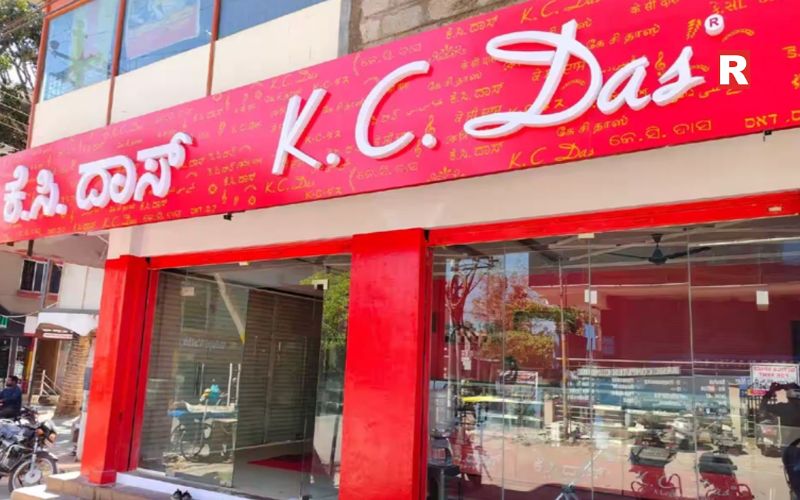
K.C. Das is a legendary name from Kolkata. It is often credited with popularising the Rasgulla. The brand carries a strong Bengali heritage. K.C. Das sweets focus on chenna-based recipes. Rasgulla and Sandesh are the highlights. The texture is soft. The sweetness is balanced The brand follows age-old methods. This keeps the taste authentic. For anyone who loves Bengali sweets, K.C. Das is a must-try name.
4. Bengal Sweet House
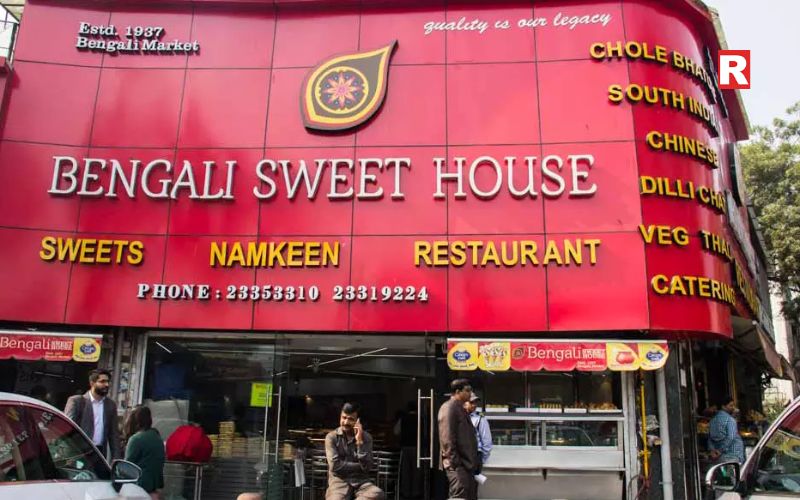
Bengal Sweet House is another iconic brand from Kolkata. It is loved by locals and tourists alike. The brand represents true Bengali mithai culture. Mishti Doi, Rosogolla, and Cham Cham are customer favourites. These sweets are known for freshness and flavour. The brand focuses on daily preparation and quality control. Bengal Sweet House is often associated with authenticity. It reflects the real taste of Bengal’s sweet tradition.
Know more: Top Egg Brands in India That Crack All the Right Boxes
5. Prabhuji’s
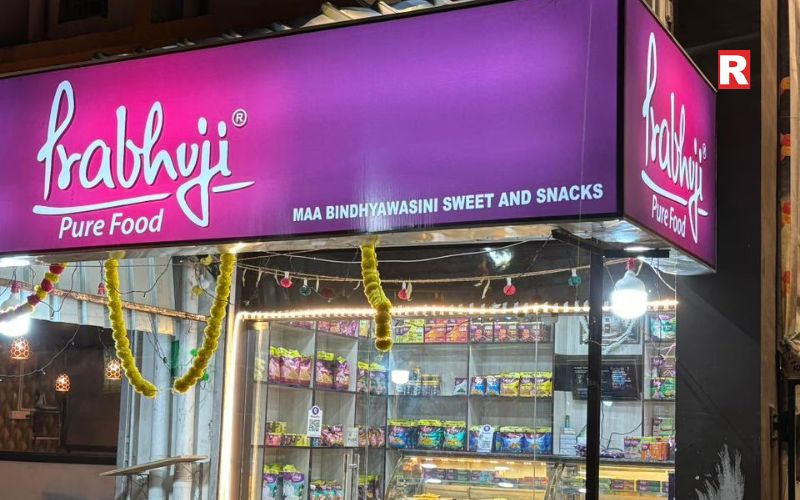
Prabhuji’s is a premium Indian sweet brand. It blends mythology-inspired branding with classic recipes. The brand focuses on purity and presentation. Prabhuji’s offers traditional sweets with a refined touch. The flavours are familiar, but the packaging is modern. This makes it popular for gifting. The brand is also known for quality control. Ingredients are carefully sourced. This adds to customer trust.
Must-Try Indian Sweets
Some Indian sweets are loved across regions. These classics define Indian dessert culture. Rasgulla is soft and syrupy. It comes from Bengal. Gulab Jamun is rich and soaked in sugar syrup. Kaju Katli is smooth and nutty. Mysore Pak melts in the mouth with ghee richness. Trying these sweets from trusted brands enhances the experience.
Each region has signature sweets. North India loves laddoos and jalebi. East India is known for rasgulla and mishti doi. West India enjoys puran poli and shrikhand. South India offers mysore pak and payasam. This variety reflects India’s cultural depth.
Also check: Top Masala Tea Brands in India: Spices, Flavours, and Comfort in Every Cup
20 Best Chocolate Brands in India That Every Chocolate Lover Should Try
Top Peanut Butter Brands in India You Must Try in 2026
Sweet Treat!
Indian sweet brands offer more than flavour. They reflect India’s history, culture, and shared emotions. Many began as small family shops. Over time, they grew into trusted names across cities and countries. Each brand carries stories passed down through generations. These sweets are linked to festivals, weddings, and everyday happiness. The best Indian sweet brands respect tradition. They continue to use classic recipes and familiar ingredients. At the same time, they adapt to modern needs. Clean packaging, wider reach, and consistent quality matter today. These brands understand both. Indian sweets bring people together. They mark celebrations and simple moments alike. A box of mithai often means joy, respect, and warmth. Indian sweets will always have a special place in people’s lives. And these brands make sure the sweetness lives on.

Republic Day is more than a national holiday. It is a day that honours India’s spirit, culture, and diversity. Across the country, people celebrate with pride and joy. Families, friends, and communities gather to share food. Meals on this day are not just about taste. They carry meaning and tradition. Each dish reflects India’s rich culture and history. Street food is a big part of the celebration. Samosas, kachoris, and chaat are served in homes and at local stalls. They are loved by children and adults alike. Sweet dishes are also important. Jalebis, ladoos, and barfis bring happiness to every table. Many families prepare tricolour snacks, using ingredients that represent the Indian flag. Green chutney, white paneer, and red tomato make simple dishes look festive.
Regional foods also shine on Republic Day. Dhokla from Gujarat, pongal from Tamil Nadu, and chole bhature from North India showcase the country’s diversity. Drinks like masala chai, lassi, and lemonade complement these meals. Each bite and sip tells a story of India. This Republic Day, food becomes a way to celebrate the nation, its people, and its many flavours.
1. Tricolour Sandwiches and Snacks
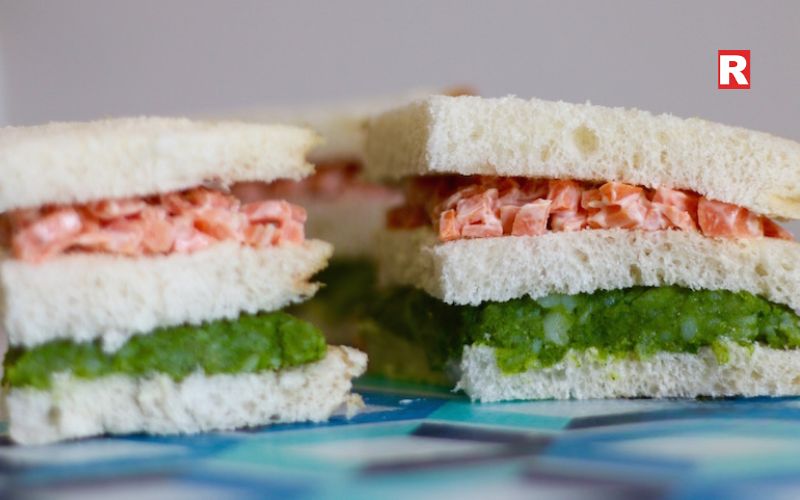
One of the easiest ways to add a patriotic touch to your celebration is with tricolour sandwiches or snacks. Using green chutney, white cheese, and red tomato slices, these sandwiches are visually appealing and fun to eat. They are perfect for kids’ lunches, school parties, or a small family gathering. Other tricolour snacks include layered fruit salads, vegetable wraps, and even idli plates arranged in saffron, white, and green. These dishes not only look festive but also provide balanced nutrition. Incorporating local ingredients adds authenticity. For example, using fresh coriander for green, paneer or coconut for white, and tomato or carrot for red reflects India’s natural bounty.
Read more: Top Regional Thalis to Try While You Are Travelling in India
20 Famous Foods of Andhra Pradesh That Showcase Its Rich Culinary Heritage
2. Samosas and Kachoris: The Classic Indian Snack
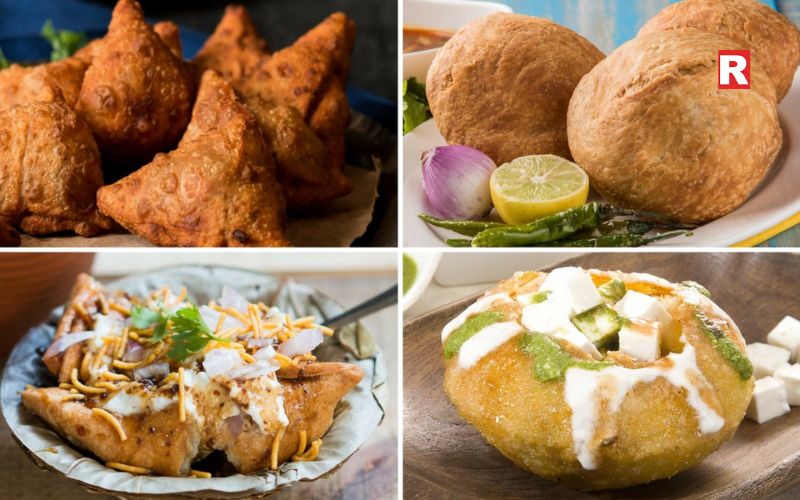
No Indian celebration is complete without samosas and kachoris. These deep-fried pastries are crispy on the outside and filled with spiced potatoes, peas, or lentils. Every region has its own twist. In Delhi, samosas are filled with spiced potatoes and peas. In Rajasthan, kachoris often have lentils or khoya fillings. Serving these snacks on Republic Day is almost a tradition. They are a hit at roadside stalls and home kitchens alike. Pairing them with tamarind or mint chutney enhances the flavours. For a healthy twist, you can bake them instead of frying, keeping them light but equally tasty.
3. Parathas and Chutneys: A Traditional Meal
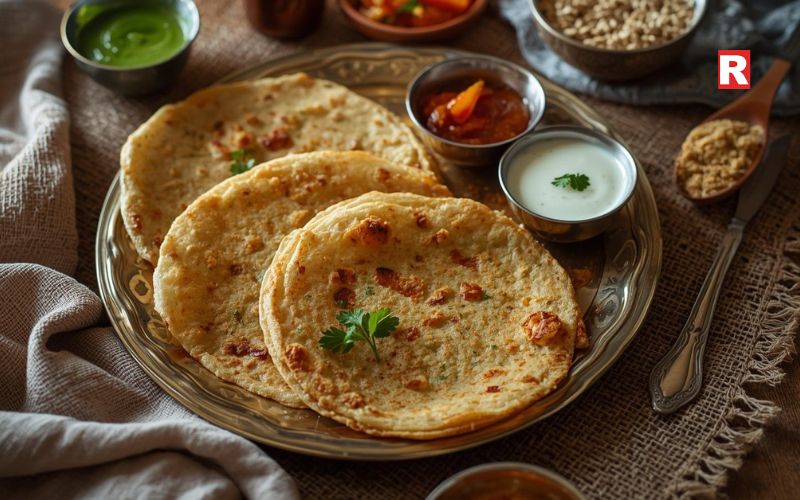
For families looking for a hearty start to the day, parathas with chutney or curd make a great choice. Stuffed parathas can include potatoes, cauliflower, paneer, or mixed vegetables. They are filling and loved by all age groups. Chutneys add flavour and authenticity. Mint, coriander, or tomato chutneys are common accompaniments. Serving these alongside a simple dal or raita creates a complete meal that reflects India’s diverse cuisine. In North India, parathas are a morning staple, while in other regions, similar flatbreads are paired with local curries, adding regional variety to Republic Day menus.
4. Sweet Treats: Jalebi, Barfi, and Ladoo
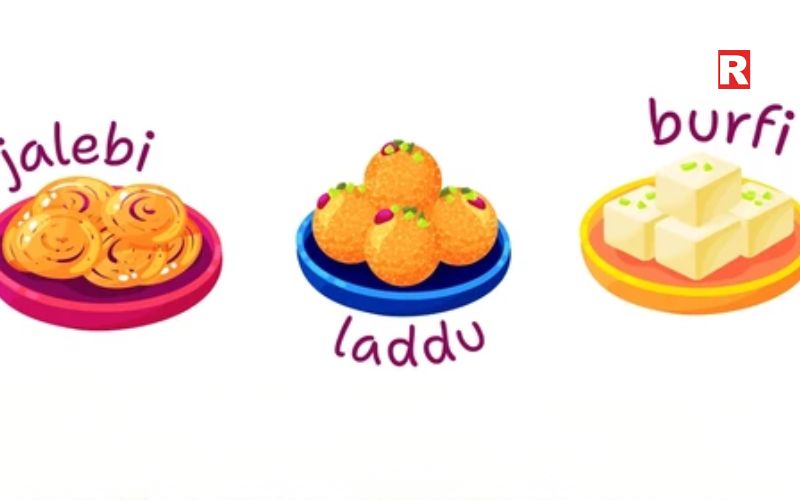
Celebrations are incomplete without sweets. Jalebi, barfi, and ladoo are some of the most popular options for Republic Day. These sweets are not just tasty; they also have cultural significance.
Jalebi: Crispy, syrupy, and golden, jalebis are often served hot. They are a favourite at roadside sweet shops and local celebrations.
Barfi: Available in flavours like coconut, milk, or pistachio, barfi adds richness to your dessert platter.
Ladoo: Made from gram flour, semolina, or coconut, ladoos are a symbol of joy and prosperity.
These sweets are easy to share, making them perfect for schools, offices, or family gatherings. You can even create tricolour versions of barfi or ladoo to align with Republic Day themes.
Know more: 5 Cities That Serve the Best Non-Vegetarian Street Food
5. Regional Delights: Celebrating India’s Diversity
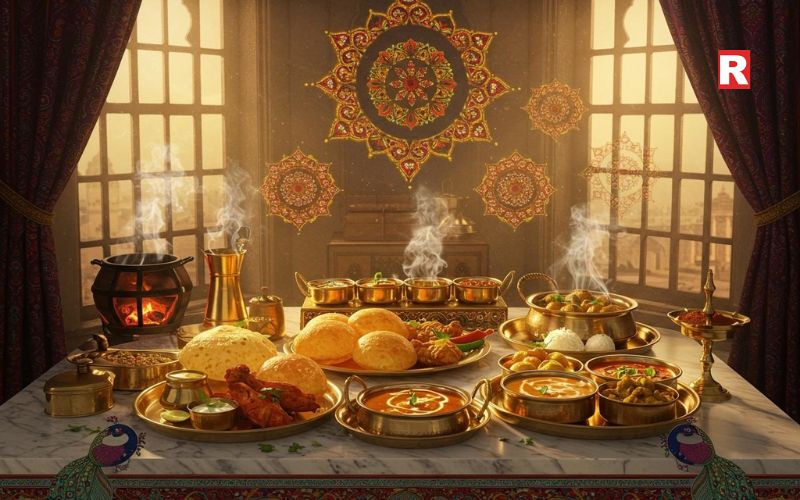
India’s strength lies in its diversity, and food is the perfect example. Republic Day is an opportunity to explore regional dishes that reflect different states and traditions.
Dhokla from Gujarat: Soft, spongy, and mildly sweet, dhokla is made from fermented gram flour. It is light, healthy, and great as a snack.
Pongal from Tamil Nadu: A comforting rice and lentil dish, often seasoned with black pepper, cumin, and ghee.
Chole Bhature from North India: A hearty combination of spicy chickpeas and deep-fried bread, loved for breakfast or brunch.
Including regional dishes allows families to experience India’s culinary richness. It also introduces children to flavours beyond their usual meals. Small touches, like garnishing with fresh coriander or sev, make these dishes festive and visually appealing.
6. Tea and Refreshments: The Perfect Pair

No meal is complete without the right drink. Masala chai, lemonade, or sweet lassi are popular choices on Republic Day. Chai is a warm companion for fried snacks, while lassi balances spicy dishes with its creamy texture. Lemonade adds a refreshing twist, especially for outdoor events or school celebrations. For a modern touch, some families offer herbal teas or fruit-infused water. These drinks are simple, refreshing, and keep everyone hydrated while enjoying the festivities.
Tip for Republic Day Foods
Many Republic Day foods have stories behind them. For example, tricolour dishes represent the Indian flag, with saffron representing courage, white representing peace, and green representing growth. Sweets like ladoos and barfi symbolize joy and unity, often shared during festivals and patriotic events.
Street stalls near Republic Day parades often serve samosas, chaat, and jalebis to thousands of spectators. These foods are part of the festive culture, creating memories for families and children alike. Even small touches, such as serving snacks on banana leaves or in tricolour plates, enhance the celebratory atmosphere.
Also check: Top 10 Vegan Street Foods in India Every Indian Loves
Top 5 States With the Spiciest Food in India
20 Famous Foods from Karnataka That Define Its Rich Food Culture
Happy Eating!
This Republic Day, celebrations feel complete when food takes centre stage. Across India, meals become a reflection of the nation’s spirit and unity. From colourful tricolour sandwiches to classic festive sweets, every dish adds meaning to the day. Food brings people together. It creates moments of sharing and pride.Many families prepare simple snacks at home. Others visit their trusted local sweet shops for fresh jalebis, barfis, or ladoos. Regional dishes also find a place on the table. Dhokla, chole bhature, pongal, and other local favourites highlight India’s rich food culture. Each recipe carries a story passed down through generations. These meals are not only about flavour. They are about togetherness and tradition. Sitting down to eat becomes a quiet celebration of freedom and identity. Every bite reminds people of the diversity that defines the country. This Republic Day, food becomes a symbol of unity. Through shared plates and familiar tastes, India’s story is told in the most comforting way.

Dahi and yogurt look almost the same at first glance. Both are made from milk. Both are thick, white, and slightly sour in taste. In many Indian homes, the two words are used in the same way. Yet, they are not identical foods. Dahi and yogurt belong to different food cultures. They are prepared using different methods. Their taste, texture, and impact on the body also vary. Dahi has been a part of Indian kitchens for generations. It is made at home using natural fermentation. The process depends on climate and local conditions. This makes dahi feel familiar and comforting to Indian digestion. It is often eaten with daily meals and traditional dishes.
Yogurt arrived in India much later. It follows a more controlled process. It uses selected bacterial cultures. The taste is sharper and the texture is more uniform. Yogurt fits well into modern eating habits. Both dahi and yogurt are healthy. But they serve different purposes. Understanding this difference helps people choose better. When food choices are informed, daily eating becomes more balanced and thoughtful.
Same Looking, Not the Same
At first glance, dahi and yogurt seem identical. They are both fermented milk products. They are eaten cold. They are linked with digestion and gut health. Yet their journey from milk to spoon is very different. The key difference lies in how they are fermented, what bacteria are involved, and how the body responds to them. This difference is subtle but important, especially for Indian diets.
What Is Dahi?
Dahi is India’s traditional curd. It is made at home in almost every Indian household. Warm milk is mixed with a spoon of old dahi. This mixture is kept aside for a few hours. The milk slowly thickens. Natural fermentation takes place. No machines are involved. The bacteria in dahi are local. They come from the environment. They change with seasons. Summer dahi tastes different from winter dahi. The texture also varies. Some days it is thick. Some days it is slightly watery. This variation is natural. Dahi holds cultural value in India. It is used in daily meals. It is offered in religious rituals. It is considered cooling for the body. Ayurveda describes dahi as nourishing and grounding when eaten correctly. Dahi is not processed. It is fresh. It is alive with natural microbes.
Read more: White Vinegar Uses and Cooking Hacks: Simple Kitchen Secrets
Baking Soda vs Baking Powder: Same Shelf, Very Different Jobs
What Is Yogurt?
Yogurt comes from Western and Middle Eastern food traditions. It is made using specific bacterial strains. These bacteria are selected in labs. They are added to pasteurised milk. The milk is fermented under controlled temperatures. This process creates uniform results. Every cup of yogurt tastes the same. The texture stays consistent. The sourness is sharper. Commercial yogurt is usually thicker than dahi. Yogurt is commonly sold in packaged form. It is popular in breakfast bowls, smoothies, and desserts. Greek yogurt is a popular variant. It is strained to remove whey. This makes it high in protein and thick in texture. Yogurt is modern. Dahi is traditional.
The Fermentation Process: The Real Difference
Fermentation is where the real difference begins.
Dahi relies on wild and local bacteria. These bacteria include many strains. The exact mix changes based on climate, milk quality, and even the vessel used. This makes dahi more adaptable to Indian digestion.
Yogurt uses two main bacterial strains. These are added in fixed amounts. The temperature is controlled. The environment is sterile. This ensures safety and consistency.
Dahi fermentation is slow and natural. Yogurt fermentation is precise and industrial. This difference affects digestion, taste, and gut response.
Taste, Texture, and Consistency
Dahi has a soft taste. It is mildly sour. The flavour is gentle. It blends well with spices. It works in both sweet and savoury dishes. The texture can be creamy or loose. Yogurt tastes sharper. The sourness is stronger. The texture is thicker and smoother. It feels heavier on the tongue. Because of this, yogurt works better in cold dishes. Dahi works better in Indian cooking.
Probiotics and Health Benefits
Both dahi and yogurt contain probiotics. These are good bacteria that support gut health. They help digestion. They support immunity.
Dahi contains diverse bacteria. These bacteria are familiar to Indian bodies. Many people find dahi easier to digest. It has a cooling effect. It helps balance body heat, especially in summer.
Yogurt contains a known quantity of probiotics. This makes it reliable for people tracking nutrition. Greek yogurt offers high protein. This is useful for fitness-focused diets.
Dahi supports daily digestion. Yogurt supports targeted nutrition.
Know more: High Protein Indian Meals You Should Try
Is Dahi Healthier Than Yogurt?
There is no single answer. Health depends on the person.
Dahi is natural. It is fresh. It suits Indian meals and climates. It works well for people who eat traditional food.
Yogurt is consistent. It is convenient. It suits modern lifestyles and busy schedules. It fits global diets.
Neither is better for everyone. The choice depends on eating habits, digestion, and lifestyle.
How Indians Use Dahi vs Yogurt
Dahi is deeply rooted in Indian food.
- It is used in curd rice.
- It thickens kadhi.
- It balances spicy meals.
- It softens meat in marinades.
- It becomes lassi and chaas.
Dahi reacts well to heat when used carefully. It blends with spices and herbs. It forms the base of many regional dishes.
Yogurt is used differently.
- It goes into smoothies.
- It tops breakfast bowls.
- It thickens dips.
- It appears in desserts.
Yogurt is rarely cooked in Indian kitchens. Heating can change its texture.
Also check: 5 Ways to Use Garden Cress Seeds (Halim) for Stronger Hair and Bones
7 Desi Alternatives to Oatmeal for Weight Loss
Which One Should You Choose?
Dahi and yogurt look alike, but they are not the same. Both are made from milk, yet they serve different needs. In Indian homes, dahi is a daily staple. It pairs well with regular meals. It supports digestion. It feels light on the stomach. Many people find it easier to digest, especially in warm weather. Dahi also balances spices and heavy food. Yogurt suits a different lifestyle. It is thicker. It has a sharper taste. It offers more protein, especially in strained forms. This makes it popular among fitness-focused eaters and busy professionals. Yogurt works well in smoothies and quick meals. Both foods have value. One is traditional and local. The other is modern and convenient. Choosing between them depends on the body and the diet. Food choices are not only about flavour. They are about comfort, habit, and health. When people understand what they eat, daily meals become more mindful and nourishing.

Eating healthy does not mean eating less. It means eating smart. Many people believe low-calorie food is boring or leaves you hungry. That is not true, especially in an Indian kitchen. India already has many foods that are naturally low in calories, high in volume, and full of nutrition. Low-calorie eating is not about dieting or skipping meals. It is about choosing foods that keep you full, light, and energetic. Calories are units of energy. When the body consumes more calories than it uses, the excess gets stored as fat. Over time, this leads to weight gain and lifestyle issues. Low-calorie foods help because they allow you to eat larger portions with fewer calories. This supports portion control without hunger. It also improves digestion and daily energy levels. For Indian households, this approach works well. Traditional Indian meals already focus on vegetables, lentils, curd, and seasonal fruits. The key is balance and cooking style. This article explores the best low-calorie foods you can enjoy guilt-free, without changing your food culture or taste preferences.
What Makes a Food Low in Calories but High in Value
Not all low-calorie foods are equal. Some foods are low in calories but do not fill you up. The best low-calorie foods share three key qualities.
- High water content: Foods with more water add volume to meals. They make you feel full faster.
- High fibre: Fibre slows digestion. It keeps you full for longer and supports gut health.
- Good protein: Protein helps control hunger and supports muscle health.
Foods that combine these factors are ideal for guilt-free eating.
Top Low-Calorie Foods to Enjoy Guilt-Free
1. Cucumber

Calories: Around 16 calories per 100 grams
Cucumber is made up mostly of water. This makes it light, cooling, and refreshing. It fills the stomach without adding many calories. Because of its high water content, it helps reduce bloating and keeps the body hydrated, especially in warm weather. In Indian households, cucumber is a regular part of daily meals. It is commonly eaten as a fresh salad, mixed into raita, or added to simple chaat. Many people enjoy it as a mid-day snack with a pinch of salt and a squeeze of lemon. It is best eaten in the afternoon or early evening for a light, clean feeling.
Read more: High Protein Indian Meals You Should Try
Try These Veg Soups in These Freezing Winters
2. Bottle Gourd (Lauki)
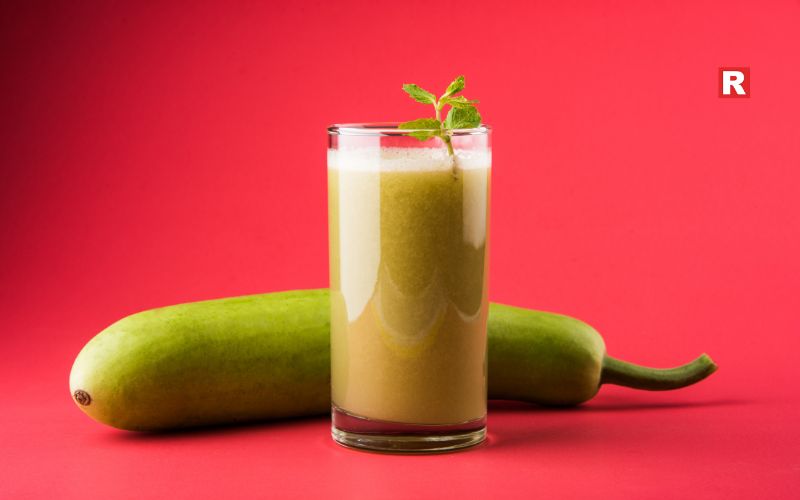
Calories: Around 14 calories per 100 grams
Bottle gourd is rich in water and fibre. It is light on the stomach and easy to digest. It helps people feel full without feeling heavy or uncomfortable. This makes it suitable for regular meals. In Indian homes, bottle gourd is commonly cooked as a simple sabzi. It is also added to dal or prepared as a light soup. When cooked with very little oil and mild spices, it becomes an ideal low-calorie food. It supports balanced eating without compromising taste. Bottle gourd works well for both lunch and dinner, especially for those who prefer light and comforting meals.
3. Spinach (Palak)
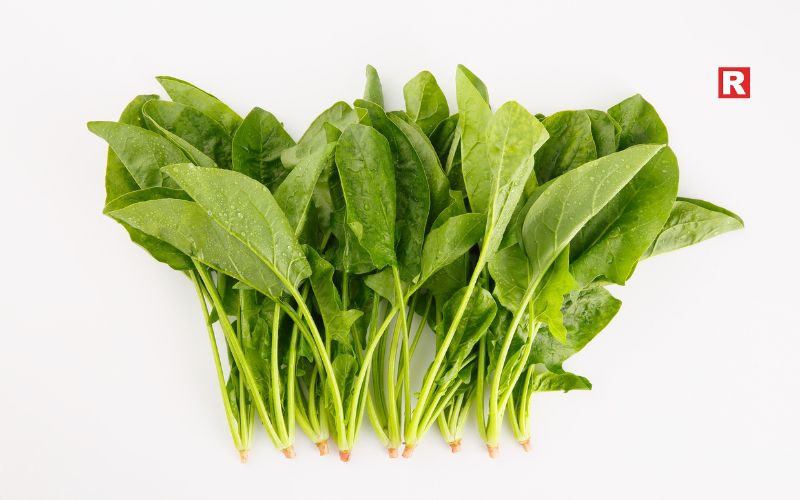
Calories: Around 23 calories per 100 grams
Spinach is rich in iron, fibre, and antioxidants. It supports digestion and overall strength. It adds volume to meals without increasing calorie intake. This helps people feel full for longer. In Indian kitchens, spinach is a commonly used vegetable. It is cooked as sabzi, mixed into dal, used in paratha fillings, or added to soups. When spinach is lightly cooked, it retains most of its nutrients and stays easy to digest. Overcooking is usually avoided to keep it light. Spinach works best as part of lunch, as it provides steady energy without feeling heavy on the stomach.
4. Cauliflower (Gobi)
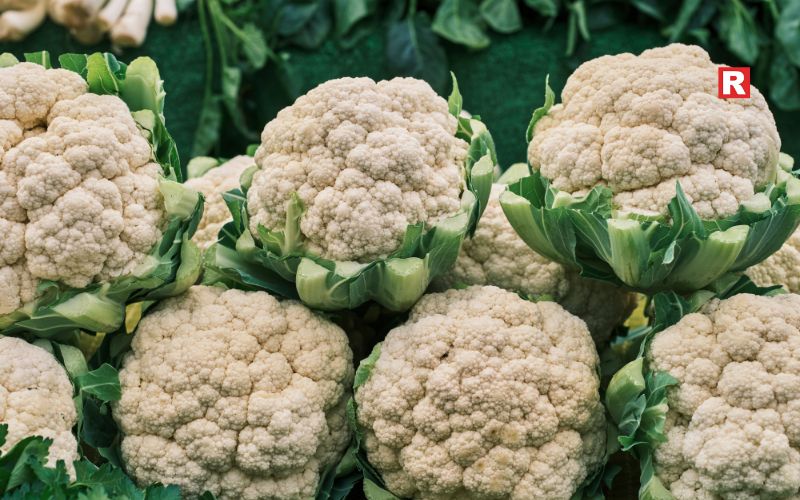
Calories: Around 25 calories per 100 grams
Cauliflower is high in fibre and low in carbohydrates. It helps control hunger and keeps the stomach full for a longer time. This makes it useful for people managing their weight. Cauliflower is easy to cook and fits well into everyday Indian meals. It is often prepared as a dry sabzi, added to soups, or lightly stir-fried with basic spices. Using less oil helps keep the dish light and low in calories. Deep frying is usually avoided. Cauliflower works well for both lunch and dinner, especially when paired with simple dals or rotis.
5. Papaya

Calories: Around 43 calories per 100 grams
Papaya contains natural enzymes that help break down food and support digestion. It is light on the stomach and easy to absorb. The fruit is filling and has a mild natural sweetness. This makes it a good option for those managing their weight without avoiding fruits. Papaya is commonly eaten in the morning or as a light snack between meals. It provides energy without heaviness. Many people include it in their daily routine for better digestion. Papaya works best when eaten fresh and plain. Morning is considered the ideal time to enjoy this fruit for a clean and balanced start.
Know more: Power-Packed Mornings: 8 Protein-Rich Vegetarian Indian Breakfast Idea
6. Watermelon

Calories: Around 30 calories per 100 grams
Watermelon has a very high water content. This makes it refreshing and suitable for hot Indian weather. It helps keep the body cool and hydrated. The fruit is naturally sweet and satisfies sugar cravings without adding many calories. This makes it a better choice than packaged sweets or desserts. Portion control is still necessary, as eating too much can cause discomfort. Watermelon is often eaten fresh and plain. It works well as a light snack between meals. Many people prefer it during mid-morning or in the evening, when the body needs hydration and a quick energy boost.
7. Sprouts
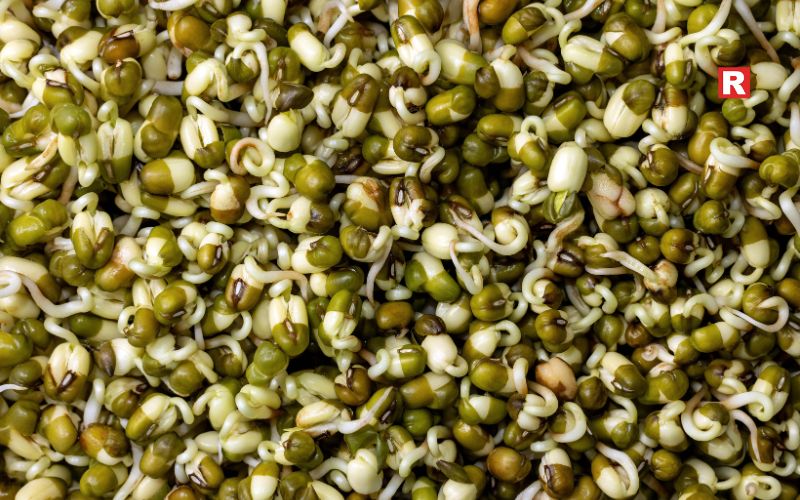
Calories: Around 30–40 calories per 100 grams
Sprouts are rich in protein and fibre. They help the body feel full for a longer time. This reduces frequent hunger and supports muscle health. Sprouts are light and easy to digest when prepared properly. In Indian homes, they are commonly eaten as fresh salad, simple chaat, or lightly sautéed with mild spices. They are a good option for those looking for low-calorie protein in daily meals. Sprouts fit well into a balanced diet without adding heaviness. They are best eaten for breakfast or lunch, when the body needs steady energy and nourishment.
8. Boiled Eggs
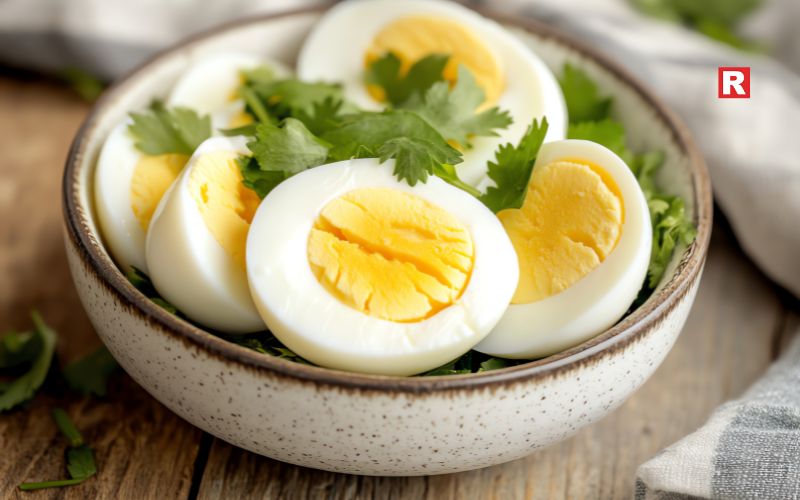
Calories: Around 70 calories per egg
Eggs are a strong source of protein. Protein helps control appetite and reduces the urge to overeat. It also supports a healthy metabolism and muscle repair. Boiled eggs are simple to prepare and do not require oil or heavy cooking. This keeps them light and nutritious. They are easy to carry and fit well into busy routines. Many people include boiled eggs in their daily meals for steady energy. They work well as a filling breakfast or a light snack. Boiled eggs are also suitable after workouts, as they help the body recover and stay satisfied.
9. Curd and Buttermilk
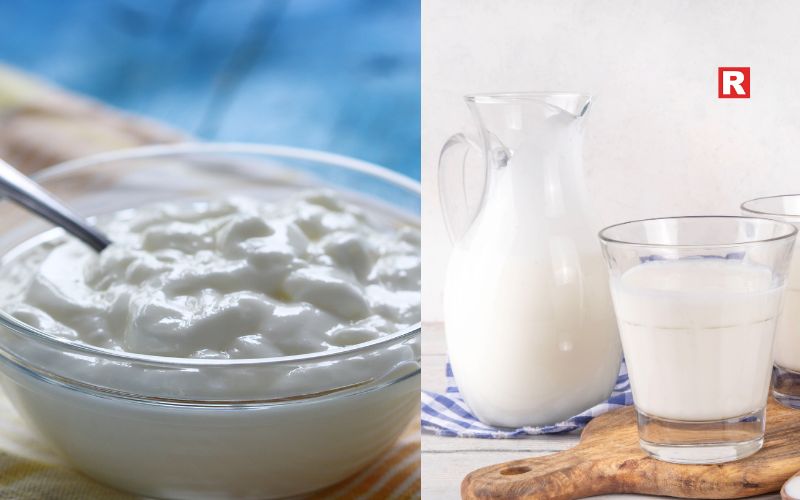
Calories: Around 60 calories per 100 grams (curd)
Curd and buttermilk support gut health and improve digestion. They contain natural probiotics that help maintain a healthy stomach. Both are cooling in nature and suitable for daily meals. They help the body feel full without heaviness. In Indian homes, plain curd and unsalted buttermilk are commonly consumed. It is important to avoid added sugar, cream, or flavouring, as these increase calories. When taken in their natural form, they remain light and nourishing. Curd and buttermilk work best during lunch or in the afternoon. They help balance the meal and support comfortable digestion throughout the day.
10. Clear Vegetable Soup
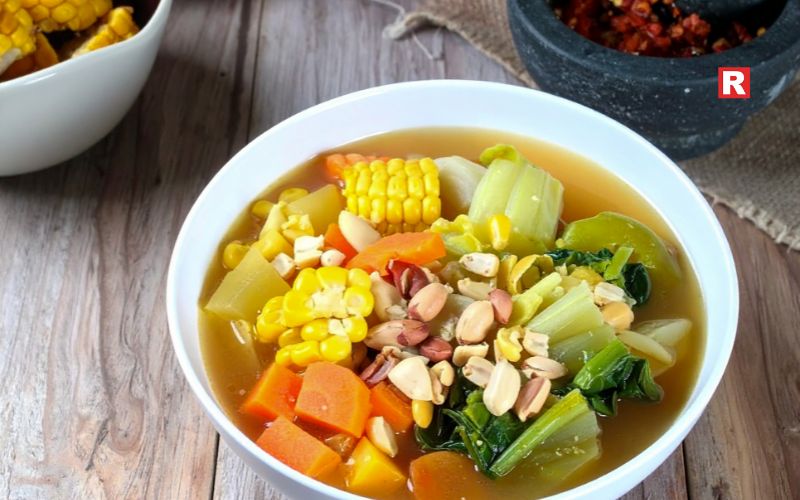
Calories: Around 30–50 calories per bowl
Clear vegetable soups are low in calories and high in water content. They help control portion size and reduce the tendency to overeat during main meals. Soups are light, easy to digest, and provide warmth and comfort. In Indian homes, simple vegetable soups with seasonal vegetables are commonly prepared. They can be served as starters before lunch or dinner, or as a light meal on their own. Minimal use of oil and spices keeps them healthy and low in calories. Vegetable soups are best eaten in the evening or at dinner, supporting digestion and a feeling of fullness without heaviness.
Low-Calorie Indian Snacks That Actually Work
Many Indian snacks can be low in calories if prepared right.
- Roasted chana is crunchy and filling.
- Makhana roasted with little oil is light and satisfying.
- Vegetable chaat without heavy chutneys is refreshing.
- Steamed snacks like idli in moderation work well.
The key is minimal oil and controlled portions.
Also check: 5 Ways to Use Garden Cress Seeds (Halim) for Stronger Hair and Bones
7 Desi Alternatives to Oatmeal for Weight Loss
8 Famous Vegetarian Dishes of Uttar Pradesh and Their Timeless Legacy
How to Build a Guilt-Free Plate
A simple plate rule works well.
- Half the plate should be vegetables.
- One portion should be protein like dal, eggs, or curd.
- A small portion can be carbs like rice or roti.
- Oil should be minimal.
This structure supports fullness without excess calories.
Final Thought!
Low-calorie eating is not just a temporary trend. It is a simple and sustainable habit that can be followed every day. Indian kitchens naturally provide many low-calorie foods that are affordable, tasty, and healthy. Vegetables, fruits, dals, curd, and sprouts are all examples of foods that fill the stomach without adding excess calories. Eating well does not mean eating less or skipping meals. It means choosing the right foods and balancing meals carefully. When meals are light, filling, and nourishing, the body feels energetic and comfortable. Over time, this approach helps maintain a healthy weight and improves overall well-being. Consistency is more important than being perfect every day. Making small, mindful changes in daily eating habits creates lasting results. Simple choices like adding more vegetables, eating fruits at the right time, and reducing oil can make a big difference in the long run.

Fermented food is not a new trend. It is one of the oldest ways humans have prepared and preserved food. Long before refrigerators and packaged foods existed, fermentation helped people store food safely and improve its taste and nutrition. Today, fermented foods are making a strong comeback, especially among people focused on gut health and natural nutrition.
From homemade curd in Indian kitchens to global favourites like kimchi and kombucha, fermented foods are everywhere. But what exactly are they, and are they really good for your health? Let us understand this in a simple and practical way.
What Is Fermented Food?
Fermented food is food that has gone through a natural process where bacteria, yeast, or microorganisms break down sugars and starches. This process changes the food’s structure, taste, and nutritional value. During fermentation, these “good bacteria” grow and multiply. They help preserve the food and make it easier to digest. This is why fermented foods often taste tangy, sour, or slightly sharp.
Common examples include curd, buttermilk, idli batter, dosa batter, pickles made the traditional way, and kanji. Globally, foods like kimchi, sauerkraut, miso, kefir, and sourdough bread are also fermented. In simple words, fermented foods are foods that are alive with beneficial microbes.
How Does Fermentation Work?
Fermentation happens when food is kept in a controlled environment. Natural bacteria or yeast feed on the sugars present in the food. As they grow, they produce acids, gases, or alcohol. These by-products protect the food from harmful bacteria.
For example, when milk turns into curd, bacteria convert lactose into lactic acid. This thickens the milk and gives curd its sour taste. The same idea applies to vegetables, grains, and even drinks. This natural process not only preserves food but also improves flavour and texture. It also increases the availability of nutrients.
Read more: What is Kimchi? Top Veg Kimchi You Can Try at Home
Fermented Foods in Indian Kitchens
India has a long and deeply rooted relationship with fermented foods. Long before nutrition labels and diet trends, fermentation was part of daily cooking. It happened naturally, guided by climate, tradition, and experience. Curd and buttermilk remain everyday essentials in Indian homes. They are cooling, easy to digest, and naturally nourishing. Idli and dosa batter is left to ferment overnight. This process makes the batter light, soft, and easier on the stomach. In North India, kanji is a seasonal favourite during winters. Made from black carrots or rice, it is tangy, warming, and refreshing. Traditional pickles prepared with salt and oil also ferment slowly over time, developing deep flavour and long shelf life. These foods were never designed as health products. They evolved through generations to support digestion and balance the body with the seasons.
Top Fermented foods in Indian diets:
Curd and buttermilk for daily meals
Fermented idli and dosa batter
Seasonal kanji during winters
Naturally fermented pickles
This is why fermented foods feel familiar, comforting, and deeply Indian.
Popular Fermented Foods Around the World
Fermentation is a shared food tradition across the world. Every culture has found its own way to preserve food and improve its taste using natural processes. The ingredients may change, but the method stays familiar. In Korea, kimchi is prepared by fermenting vegetables with spices. It is bold in flavour and deeply rooted in daily meals. Europe has sauerkraut, made by fermenting cabbage. It is simple, sharp, and long-lasting. Japan uses fermented soybeans to create miso. This paste adds depth and warmth to soups and sauces. Kombucha, a fermented tea drink, is now popular across countries for its refreshing taste. Sourdough bread depends on slow fermentation to develop its chewy texture and mild sour note. Each culture treats fermentation differently, yet the purpose remains the same. It enhances food, extends shelf life, and supports digestion.
Popular fermented foods worldwide:
Kimchi from Korea
Sauerkraut from Europe
Miso from Japan
Kombucha tea
Sourdough bread
Fermentation connects kitchens across borders.
Know more: 12 Delicious High-Protein Foods to Eat Daily for a Healthier You
White Vinegar Uses and Cooking Hacks: Simple Kitchen Secrets
Why Are Fermented Foods Considered Healthy?
The biggest reason fermented foods are praised is because of probiotics. Probiotics are live beneficial bacteria that support gut health. A healthy gut helps the body digest food properly. It also supports immunity, nutrient absorption, and even mental well-being. Since fermented foods naturally contain probiotics, they help balance the gut microbiome.
Fermentation also breaks down complex compounds. This makes food easier to digest, especially for people who feel bloated or uncomfortable after meals. Another benefit is nutrient enhancement. Fermented foods can increase the levels of vitamins like B vitamins and vitamin K. Minerals like iron and calcium become easier for the body to absorb.
Fermented Foods and Digestion
Many people struggle with digestion due to modern eating habits. Processed foods, irregular meals, and stress can disturb gut balance. Fermented foods help by introducing good bacteria into the digestive system. These bacteria support smoother digestion and reduce issues like gas and bloating. For people who are lactose sensitive, fermented dairy like curd is often easier to digest than milk. This is because fermentation reduces lactose content. This is one reason why traditional Indian meals often end with curd or buttermilk.
The Gut and Immunity Connection
A large part of the immune system lives in the gut. When gut bacteria are healthy, the body is better prepared to fight infections. Fermented foods support this balance naturally. Regular intake may help reduce inflammation and support overall immunity. This becomes especially important during seasonal changes, stress, or recovery periods when immunity needs extra support.
Fermented Foods and Mental Well-being
Recent research highlights the gut-brain connection. The gut communicates with the brain through nerves and chemical signals. A healthy gut may positively influence mood, focus, and stress levels. While fermented foods are not a cure for mental health issues, they support gut balance, which indirectly supports emotional well-being. This explains why traditional diets that include fermented foods are often linked with overall wellness.
Are Fermented Foods Safe for Everyone?
Fermented foods are generally safe for most people when consumed in moderation. However, balance is important. People with sensitive digestion should start slowly. Too much fermentation at once can cause discomfort. Those with specific medical conditions should consult a doctor before making major dietary changes. It is also important to choose naturally fermented foods. Many store-bought products are pasteurised or contain added sugar, which reduces probiotic benefits. Homemade or traditionally prepared options are usually the best choice.
Also check: Sauteing, Braising, and Stewing: Key Differences Explained Simply
10 Best Open-Face Sandwiches You Must Try
5 Ways to Use Garden Cress Seeds (Halim) for Stronger Hair and Bones
Final Thoughts
Fermented foods have stood the test of time. They are simple in form but strong in impact. Across cultures, they have supported digestion and strengthened the body without the need for complex methods. Their value lies in balance, not excess. These foods work quietly, helping the gut function better and supporting natural immunity over time. Including fermented foods in everyday meals does not demand major changes. Small, regular choices are enough. A bowl of curd, a glass of buttermilk, or a fermented dish with a meal can make a difference. What matters is awareness and consistency, not perfection. Fermented foods also reflect older food habits. Those habits focused on seasonal eating and mindful preparation rather than speed or convenience. In many ways, they reconnect people to slower, more thoughtful ways of eating. Often, the most nourishing foods are not new discoveries. They are familiar foods that have always been part of the table.

Winter alters how the body responds to daily life. Cold air slows digestion. Appetite changes. Energy levels often dip. Immunity becomes weaker. The body naturally looks for warmth, comfort, and nourishment. This is why warm drinks matter more during winter months. They help the body stay balanced and calm from within. In Indian households, herbal teas are not treated as trends. They are everyday essentials. Passed down through generations, these teas are part of regular self-care. They are prepared using simple ingredients like herbs, spices, roots, and flowers. No caffeine. No heaviness. Just gentle support for the body. Herbal teas warm the system slowly. They help ease common winter issues. Cold. Cough. Body stiffness. Sluggish digestion. Low energy. Each cup works quietly, without overpowering the body. That is what makes them reliable.
What also sets these teas apart is ease. Most ingredients are already available in Indian kitchens. Preparation is simple. No complex methods. No fancy tools. These ten herbal tea blends are chosen with winter in mind. They are practical. They are rooted in tradition. And they fit naturally into everyday Indian routines, from early mornings to slow winter evenings.
Explore 10 Herbal Tea Blends
1. Ginger & Tulsi Herbal Tea
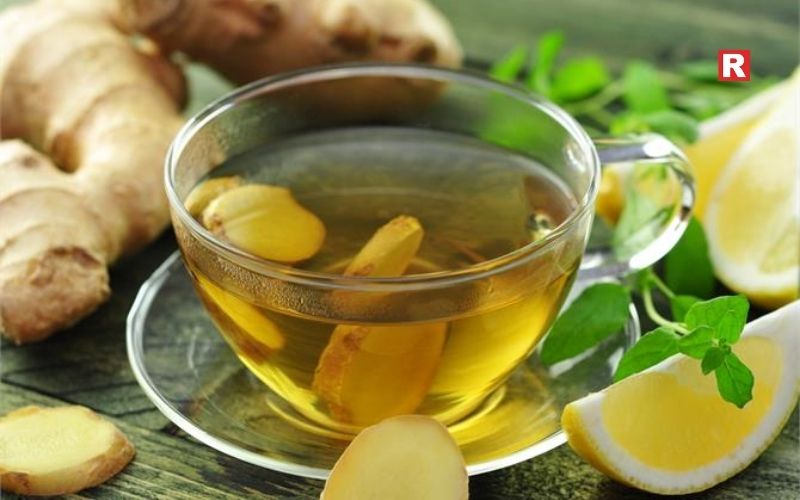
This is one of the most common winter teas in Indian households. Ginger produces heat in the body. Tulsi supports immunity and respiratory health. This blend is helpful when the weather is damp or foggy. It can ease throat discomfort and mild congestion. The taste is strong, spicy, and earthy. It works best in the morning or early evening. Drinking it regularly during winter helps the body stay warm and alert.
Read more: 6 Benefits of Drinking Black Coffee
Top Masala Tea Brands in India: Spices, Flavours, and Comfort in Every Cup
2. Turmeric & Black Pepper Tea

Turmeric is a winter staple in Indian kitchens. Black pepper improves its absorption and adds warmth. Together, they support digestion and joint comfort. This tea is especially useful for people who feel stiff during cold mornings. It also supports immunity during seasonal changes. The flavour is warm and slightly pungent. A small amount of jaggery can be added if needed. This tea is best consumed in the afternoon or after meals.
3. Cinnamon & Clove Herbal Tea
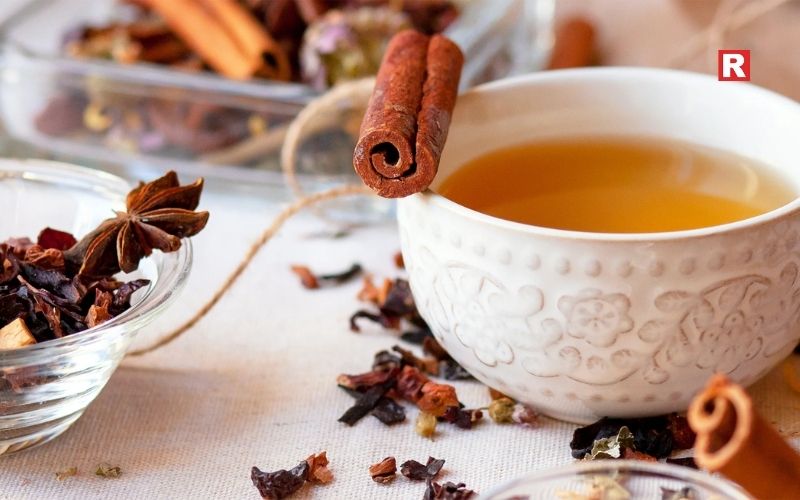
Cinnamon and clove are both warming spices. They help improve blood circulation. This makes them ideal for people who feel cold easily. This blend has a naturally sweet and spicy aroma. It feels comforting on cold evenings. It also supports digestion after heavy winter meals. It is best enjoyed in the evening. One cup is enough to feel the warmth spread through the body.
4. Lemongrass & Ginger Tea

This blend combines freshness with warmth. Lemongrass keeps the tea light. Ginger adds heat and helps digestion. It is useful during winter when the body feels heavy or bloated. It also helps clear the head and ease mild congestion. The taste is refreshing with a gentle spicy note. It works well in the morning or as a mid-day drink.
5. Fennel & Carom Seed (Saunf–Ajwain) Tea
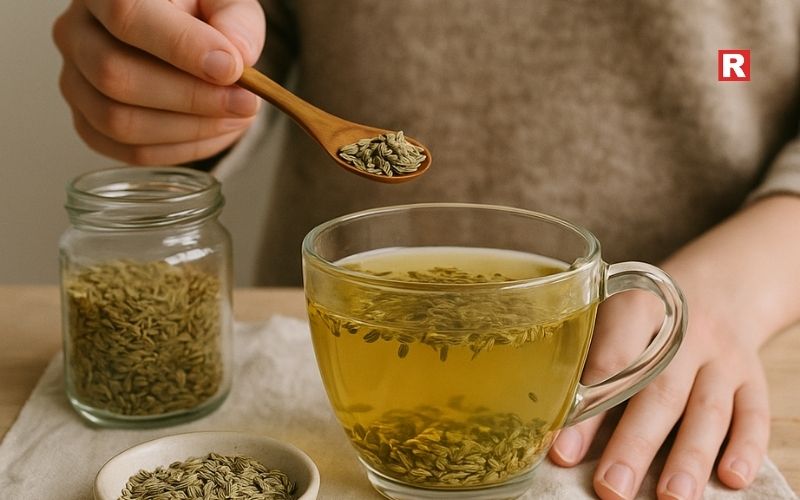
Winter often slows digestion. This tea addresses that issue directly. Fennel soothes the stomach. Carom seeds help reduce gas and heaviness. The flavour is mild and comforting. It does not feel sharp or spicy. This makes it suitable even for sensitive stomachs. This tea is best consumed after meals or in the evening. It supports digestion without overstimulating the body.
Know more: 5 Foods to Avoid for Better Cholesterol
6. Mulethi (Licorice Root) Herbal Tea
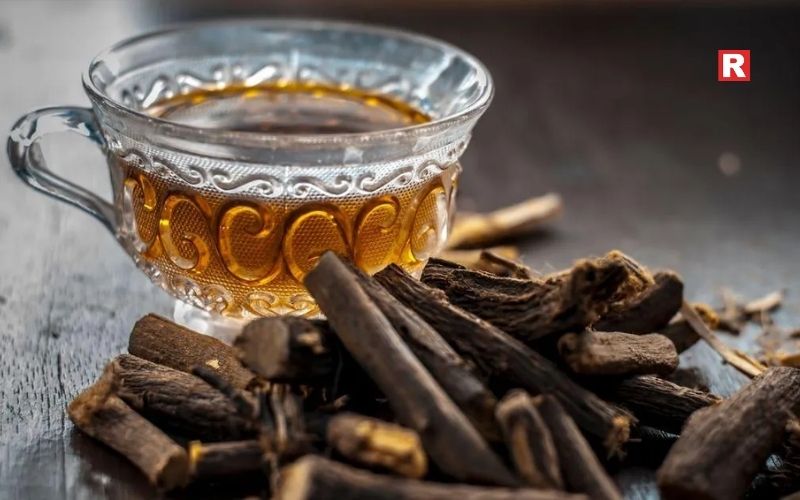
Mulethi is known for its soothing nature. It is especially helpful during winter when dry cough and sore throat are common. This tea coats the throat and reduces irritation. It also supports respiratory comfort during cold weather. The taste is naturally sweet. No sweetener is required. It is best taken in the evening or before bedtime, especially during seasonal cough.
7. Ashwagandha Herbal Tea
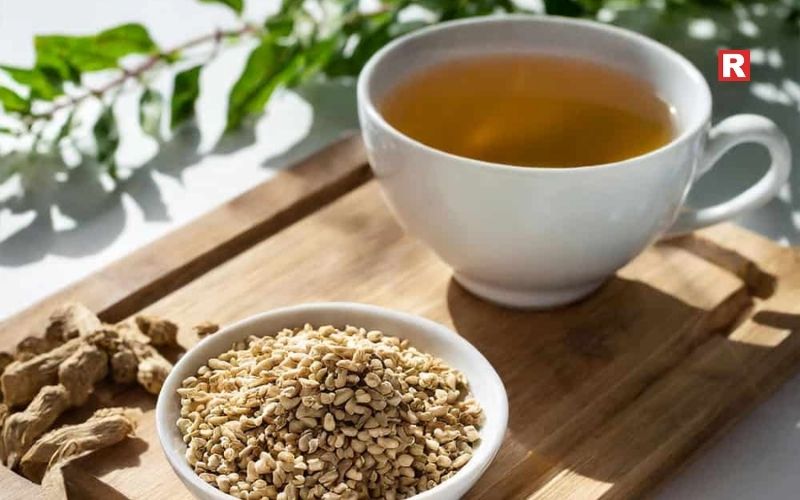
Winter can cause fatigue and low energy. Ashwagandha helps the body adapt to stress and cold weather. This tea supports strength and immunity over time. It is useful for people who feel drained during winter months. The flavour is earthy and calming. It works best at night or after dinner. Regular intake helps maintain energy and balance.
8. Peppermint & Chamomile Tea

Not all winter teas need to be heavy. This blend offers balance. Peppermint supports digestion. Chamomile promotes relaxation. This tea is helpful for people who struggle with sleep in winter. It also helps reduce bloating and mental restlessness. The taste is gentle and floral with a fresh note. It is ideal for night-time consumption.
9. Rosehip & Hibiscus Herbal Tea

Winter air can make skin dull and dry. Rosehip and hibiscus are rich in antioxidants and vitamin C. This tea supports skin health and overall immunity. It also helps maintain hydration during cold months. The taste is tangy and slightly fruity. It can be consumed in the afternoon or early evening. Drinking it warm enhances its comforting effect.
10. Kashmiri Kahwa (Herbal Version)
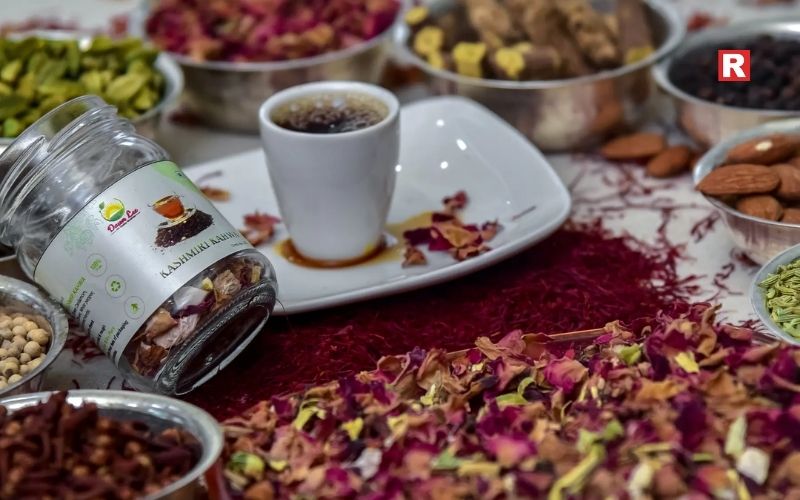
Kahwa is traditionally consumed in cold regions for a reason. Saffron, cinnamon, and cardamom deeply warm the body. This herbal version avoids caffeine while retaining warmth and aroma. It feels luxurious and grounding. It is best enjoyed in the evening. Especially after sunset. It helps the body relax while staying warm.
Also check: Try These Winter Snacks to Warm Up Your Winter Evening
Top Green Tea Brands in India and Their Benefits: A Complete 2026 Guide
10 Mountain Foods to Keep You Warm While Visiting One
How to Drink Herbal Tea in Winter
Herbal teas work best when consumed warm, not boiling. Very hot tea can irritate the throat and stomach. One to three cups a day is enough for most people. More is not always better. Strong spices, when taken too often, can create excess heat in the body. Each person reacts differently, so awareness matters. Rotating herbal teas through the week helps maintain balance. It prevents the body from becoming too dry or overheated. Paying attention to how the body responds is important. If discomfort appears, the blend should be changed or reduced.
Things to keep in mind:
Drink tea warm, not piping hot
Limit intake to one to three cups daily
Avoid repeated use of very spicy blends
Rotate different herbal teas weekly
Stop if the body feels uneasy
People with medical conditions or pregnant women should seek professional advice before regular use
Happy Winters!
Winter encourages a slower pace. Days feel quieter. Evenings stretch longer. During this season, the body looks for warmth and routine. Herbal teas fit easily into this shift. They do not demand effort. They simply become part of the day. Brewed slowly. Sipped patiently. Always comforting. In Indian homes, herbal tea is more than a response to cold weather. It reflects care. It reflects balance. A warm cup brings calm after a long day. It supports the body without forcing change. Over time, this habit builds comfort and stability. Herbal teas are not meant to cure overnight. They work gently. They support digestion. They ease stiffness. They help the body adjust to seasonal change. Their strength lies in consistency, not intensity.Choosing the right blend matters. So does timing. Morning warmth feels different from an evening cup. When selected with awareness, herbal teas make winter feel softer. More settled. More balanced. One slow sip at a time.

Cooking goes beyond choosing good ingredients. The way food is cooked plays an equally important role. A single vegetable or cut of meat can taste very different when cooked using different methods. Heat, time, and moisture all change the final result. This is why understanding cooking techniques is important for anyone who spends time in the kitchen. In everyday cooking, three methods are used very often. These are sauteing, braising, and stewing. At first glance, they may seem similar. In practice, they work in completely different ways. Sauteing uses high heat and little fat. Braising combines browning with slow cooking in a small amount of liquid. Stewing relies on low heat and plenty of liquid over a long time. Each method handles food differently and creates a distinct texture.
When these differences are understood, cooking becomes easier and more confident. There is less guesswork. Meals turn out more balanced. The right method helps bring out flavour, softness, or freshness as needed. For home cooks who want to improve their skills, knowing when to saute, braise, or stew makes everyday cooking more enjoyable and more successful.
What Is Sauteing?
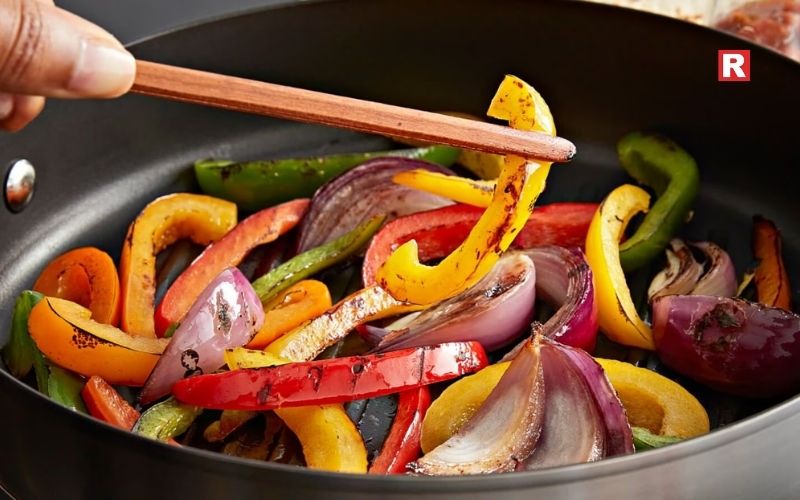
Sauteing is a dry-heat cooking method. It uses a small amount of oil or fat. The food is cooked quickly over medium to high heat. The word sauté comes from a French term meaning “to jump.” This describes how food moves in the pan when tossed. The pan is usually wide. The food is spread out in a thin layer.
Key Characteristics of Sauteing
- High or medium-high heat
- Very little oil
- Fast cooking time
- Food cut into small, even pieces
The goal is quick browning. The outside cooks fast while the inside stays tender.
Best Foods for Sauteing
Sautéing works best with foods that cook quickly.
- Onions, garlic, mushrooms
- Bell peppers, zucchini, beans
- Thin chicken slices
- Fish fillets
- Paneer or tofu cubes
These foods do not need long cooking. They shine with high heat.
Result of Sauteing
Sauteed food has light browning and crisp edges. Flavours stay fresh and bright. Vegetables keep their colour. Meat stays juicy if cooked correctly. This method is perfect for stir-fries, quick curries, pasta toppings, and weekday meals.
Read more: What is Kimchi? Top Veg Kimchi You Can Try at Home
Try These Veg Soups in These Freezing Winters
What Is Braising?
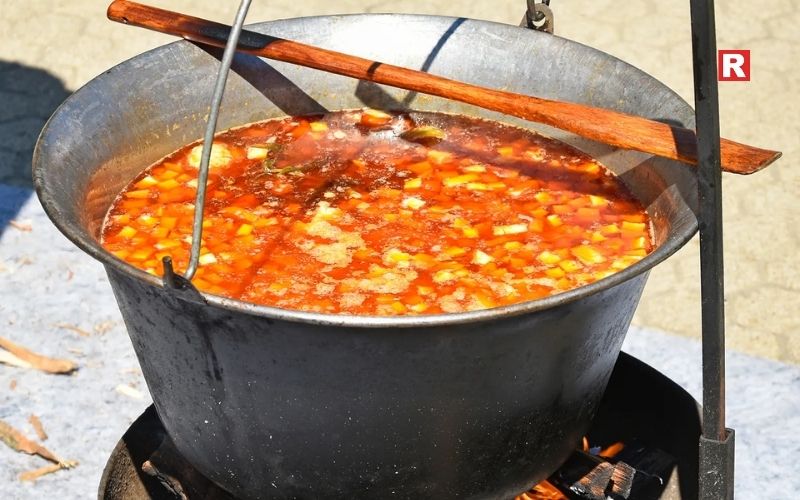
Braising is a combination cooking method. It uses both dry heat and moist heat. First, the food is browned in oil. Then a small amount of liquid is added. The pot is covered. The food cooks slowly over low to medium heat. This slow process breaks down tough fibres. It allows flavours to sink deep into the food.
Key Characteristics of Braising
- Medium heat to start
- Low heat for long cooking
- Covered pot
- Liquid only partially covers the food
The liquid can be water, stock, wine, or gravy.
Best Foods for Braising
Braising is ideal for tough or dense ingredients.
- Tough cuts of meat
- Root vegetables
- Large vegetables like cabbage
- Chickpeas or beans
These foods need time to soften. Braising gives them that time.
Result of Braising
Braising creates very tender food. Meat falls apart easily. Vegetables absorb the cooking liquid. The sauce becomes thick and rich. Many traditional Indian gravies use braising without calling it that. Slow-cooked curries, dals, and masala dishes often follow this method.
Know more: 5 Foods to Avoid for Better Cholesterol
What Is Stewing?
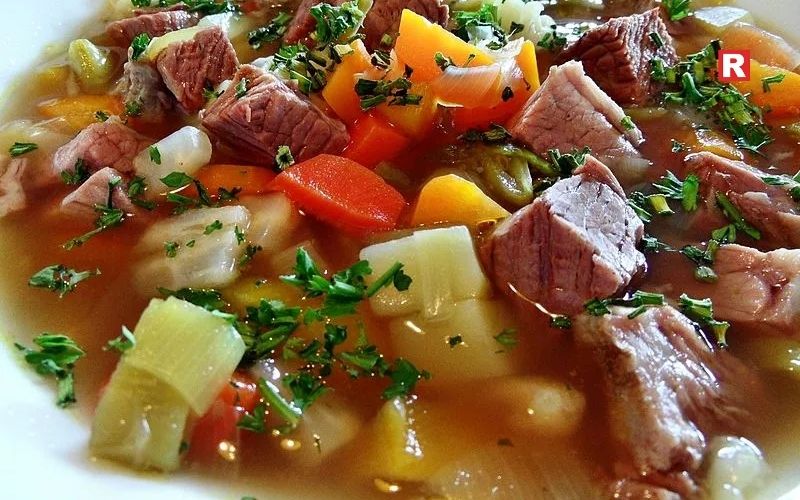
Stewing is a moist-heat cooking method. It uses a large amount of liquid. The food is fully submerged. Everything cooks slowly together in one pot. The heat stays low. The lid remains on. Unlike braising, there is no partial cooking. The liquid is the main cooking medium.
Key Characteristics of Stewing
- Low heat
- Long cooking time
- Large amount of liquid
- Ingredients cut into similar sizes
Stewing is about patience. The longer it cooks, the better it tastes.
Best Foods for Stewing
Stewing suits hearty, filling ingredients.
- Meat chunks
- Lentils and beans
- Potatoes, carrots, pumpkin
- Mixed vegetables
This method works well for one-pot meals.
Result of Stewing
Stews are soft and comforting. Flavours blend deeply. The liquid turns into a rich broth or gravy. Stews are common in winter meals. They feel warm and satisfying.
Key Differences Between Sauteing, Braising, and Stewing
Sauteing: This method uses high heat and very little oil. Food is cooked fast in an open pan. Ingredients are usually cut small so they cook evenly. The result is fresh taste, light browning, and a slightly crisp texture. It works best for quick meals and everyday cooking.
Braising: Braising starts with medium heat and light browning. After that, a small amount of liquid is added and the pot is covered. The food cooks slowly for a long time. This method softens tough ingredients while keeping their shape. Flavours turn deeper and richer.
Stewing: Stewing uses low heat and plenty of liquid. Ingredients are fully submerged and cooked together for hours. Everything becomes soft and well blended. The flavours mix deeply, creating warm and comforting dishes ideal for slow meals.
When to Use Each Cooking Method
Use sauteing when you want speed. It is best for busy days and quick meals. It keeps vegetables fresh and colourful.
Use braising when food is tough. This method is ideal for slow Sunday cooking. It rewards patience.
Use stewing when you want one-pot comfort food. It works well when feeding many people. It also tastes better the next day.
Once you match the method to the ingredient, cooking becomes easier.
Also check: Top 5 States With the Spiciest Food in India
Baking Soda vs Baking Powder: Same Shelf, Very Different Jobs
What to Eat on a Vegetarian Diet: A Simple, Healthy, and Balanced Food Guide
Choosing the Right Method Makes Better Food
Sauteing, braising, and stewing are simple cooking methods used in everyday kitchens. They are not complex techniques meant only for trained chefs. Each method has a clear role and solves a different cooking need. When a cook understands how these methods work, decision-making becomes easier. There is less confusion and less dependence on strict recipes. Cooking starts to feel more natural and controlled. Good cooking does not rely on expensive ingredients or fancy equipment. It depends on how ingredients are handled. High heat works for quick cooking. Slow heat works for tough foods. The right method brings out the best taste and texture. It also reduces mistakes in the kitchen. With basic knowledge, cooking becomes more confident. Meals turn out better and more consistent. Understanding cooking methods is the foundation of good food. It all begins with choosing the right way to cook what is already available.

Baking soda and baking powder often sit next to each other in the kitchen. Many people assume they do the same job. They do not. Using the wrong one can change the taste, texture, and rise of baked food. A cake can turn dense. Cookies can taste bitter. Pancakes may not rise at all.
Understanding the difference between baking soda and baking powder is essential for anyone who bakes, even occasionally. Both are leavening agents. They help food rise. But they work in very different ways. Knowing when to use which one can improve results instantly. This guide explains the difference clearly. It breaks down how each ingredient works, when to use them, and what happens if they are mixed up.
What Is Baking Soda?
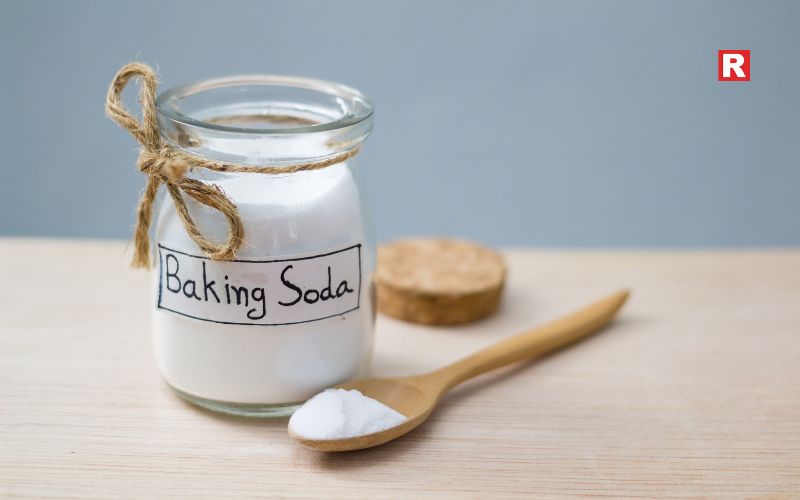
Baking soda is a pure chemical compound. Its scientific name is sodium bicarbonate. It is alkaline in nature. On its own, baking soda does nothing. For baking soda to work, it needs an acid. Once it meets an acidic ingredient and moisture, it reacts. This reaction produces carbon dioxide gas. The gas creates bubbles. These bubbles make batters and dough rise. Common acidic ingredients that activate baking soda include lemon juice, vinegar, curd, buttermilk, yogurt, honey, brown sugar, cocoa powder, and molasses. Baking soda reacts immediately. Once mixed, the batter should be baked quickly. If left standing, the gas escapes. The final product becomes flat. Because baking soda is strong, only a small amount is needed. Too much baking soda can leave a bitter or soapy taste.
Read more: 10 Best Open-Face Sandwiches You Must Try
6 Benefits of Drinking Black Coffee
What Is Baking Powder?
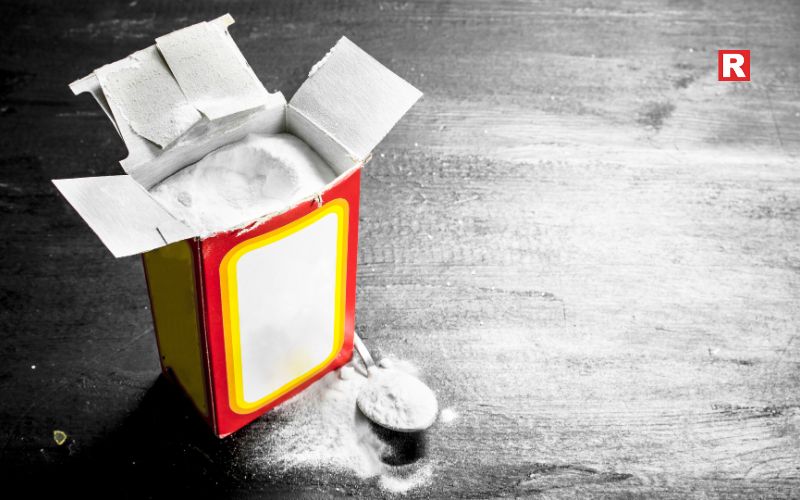
Baking powder is a ready-to-use leavening agent. It contains three main components. Baking soda. An acid. And starch. The starch keeps the ingredients dry and stable. The acid is already present, so no extra acidic ingredient is required. Most baking powders sold today are double-acting. This means they work in two stages. The first reaction happens when baking powder meets liquid. The second reaction happens when heat is applied in the oven or pan. This double action gives baked goods a steady and even rise. It also gives more flexibility. Batters can rest briefly before baking without losing all the lift. Baking powder is milder than baking soda. It is commonly used in recipes that do not contain acidic ingredients.
Baking Soda vs Baking Powder: The Core Difference
The biggest difference lies in how they are activated.
- Baking soda needs an acid to work. Baking powder does not.
- Baking soda reacts fast and strong. Baking powder reacts slower and more evenly.
- Baking soda affects taste if not balanced properly. Baking powder is more neutral in flavour.
Because of its strength, baking soda is used in smaller quantities. Baking powder is used in larger amounts. Though they look similar, they are not interchangeable without adjustments.
Know more: 5 Ways to Use Garden Cress Seeds (Halim) for Stronger Hair and Bones
Why the Right Choice Matters in Baking
Baking is not guesswork. It is controlled chemistry.
- If baking soda is used without enough acid, the batter will not rise properly. It may also taste unpleasant.
- If baking powder is used in a recipe that already has acid, the result can be overly airy or dry.
Texture, colour, and flavour all depend on balance. Cookies need to be spread and chewed. Cakes need lightness. Muffins need softness. Each result depends on choosing the correct leavening agent. Experienced bakers read recipes carefully. Beginners often learn through mistakes. Understanding this difference reduces failed bakes.
When to Use Baking Soda
Baking soda works best in recipes that already include acidic ingredients. Chocolate cakes often use baking soda. Cocoa powder is naturally acidic. Baking soda balances it and deepens colour. Banana bread uses ripe bananas. They are slightly acidic. Baking soda helps the loaf rise while keeping it moist. Cookies that include brown sugar benefit from baking soda. Brown sugar contains molasses, which is acidic. Baking soda also helps cookies spread better. Traditional Indian recipes using curd or lemon juice often rely on baking soda for softness and lift. In short, if the recipe includes sour ingredients, baking soda is usually the right choice.
When to Use Baking Powder
Baking powder is ideal for recipes that lack acidic components. Plain vanilla cakes depend on baking powder for lift. There is no acid to activate baking soda. Pancakes and waffles often use baking powder. It ensures a fluffy texture and even browning. Cupcakes rely on baking powder for a gentle rise and soft crumb. Quick breads that do not use yogurt, fruit, or cocoa usually need baking powder. Baking powder is more forgiving. This makes it popular among home bakers.
Can Baking Soda and Baking Powder Be Substituted?
They can be substituted, but only with care. Baking soda is about three to four times stronger than baking powder. This means the quantity must change.
- If replacing baking powder with baking soda, an acid must be added. Without acid, baking soda will not work.
- If replacing baking soda with baking powder, more baking powder is needed. This may affect taste and texture.
Substitution works best in emergencies. It is always better to follow the recipe.
Also check: 5 Foods to Avoid for Better Cholesterol
Try These Veg Soups in These Freezing Winters
Power-Packed Mornings: 8 Protein-Rich Vegetarian Indian Breakfast Ideas
Storage and Shelf Life
- Both baking soda and baking powder lose effectiveness over time.
- Baking soda lasts longer. It can stay active for up to two years if stored well.
- Baking powder has a shorter shelf life. Moisture can reduce its power.
- Both should be stored in airtight containers. Heat and humidity reduce their effectiveness.
An easy test exists. Baking soda should fizz when mixed with vinegar. Baking powder should bubble when mixed with warm water. If there is no reaction, it is time to replace them.
The Bottom Line!
Baking soda and baking powder may look the same, but they work in very different ways. Baking soda needs an acid to activate. Without it, there is no rise. Baking powder already contains acid. It works on its own. One reacts the moment it gets wet. The other reacts twice, once when mixed and again in the oven. This small difference has a big impact on baking. When used correctly, cakes rise evenly. Cookies taste balanced, not bitter. Pancakes turn soft and airy. When used wrong, bakes fall flat or taste off. Good baking depends on simple understanding. Knowing why an ingredient is used matters as much as measuring it right. It helps avoid guesswork. It builds confidence in the kitchen. Once this difference is clear, baking feels easier. Results become consistent. The process feels calm, not confusing. With the right leavening agent in the bowl, baking turns predictable, reliable, and far more enjoyable.

Open face sandwiches are simple yet thoughtfully made. They use just one slice of bread, with toppings placed neatly on top. Nothing is hidden. Every ingredient is seen and tasted. This makes each bite feel well balanced and intentional. Across the world, these sandwiches have found a loyal following. They suit many eating habits. Some are light and fresh. Others are rich and filling. They work well for breakfast, relaxed brunches, quick lunches, or easy dinners. Their flexibility is what makes them so popular.
Cafés favour open face sandwiches for their clean look and strong visual appeal. A single slice topped with fresh ingredients looks inviting and modern. It also allows chefs to focus on quality rather than quantity. At home, cooks appreciate how little effort they need. With basic bread and simple toppings, a complete meal comes together quickly. These sandwiches also allow creativity. They adapt easily to local flavours and seasonal produce. From classic European recipes to modern café-style versions, open face sandwiches continue to evolve. Each style brings its own taste and character. Together, they prove that one slice of bread can deliver comfort, flavour, and satisfaction in the most effortless way.
1. Avocado Toast
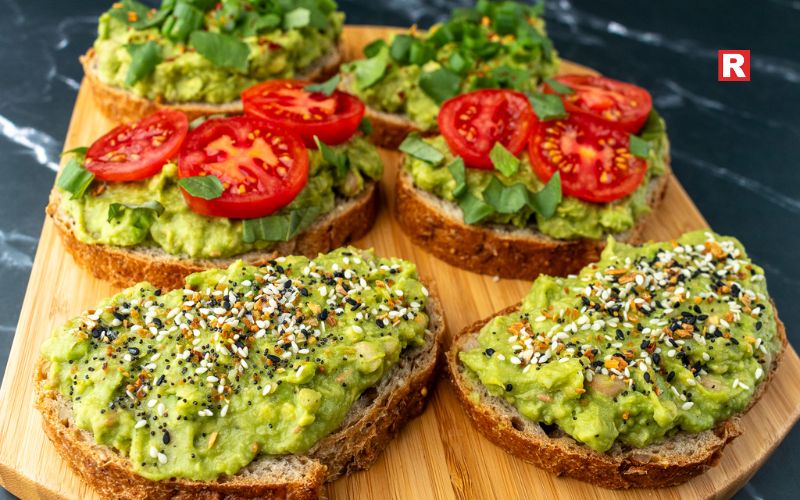
Avocado toast is the most popular open face sandwich today. It started as a café trend and became a global staple. It uses toasted sourdough or multigrain bread. Mashed ripe avocado is spread on top. A little salt, pepper, and lemon juice bring out the flavour. Many people add toppings like cherry tomatoes, chilli flakes, poached eggs, or seeds. The taste is creamy and fresh. The texture is smooth with a crunchy base. It is filling without feeling heavy. Avocado toast is also rich in healthy fats and fibre. That makes it a favourite for breakfast and brunch.
Read more: 8 Famous Vegetarian Dishes of Uttar Pradesh and Their Timeless Legacy
5 Cities That Serve the Best Non-Vegetarian Street Food
2. Smørrebrød
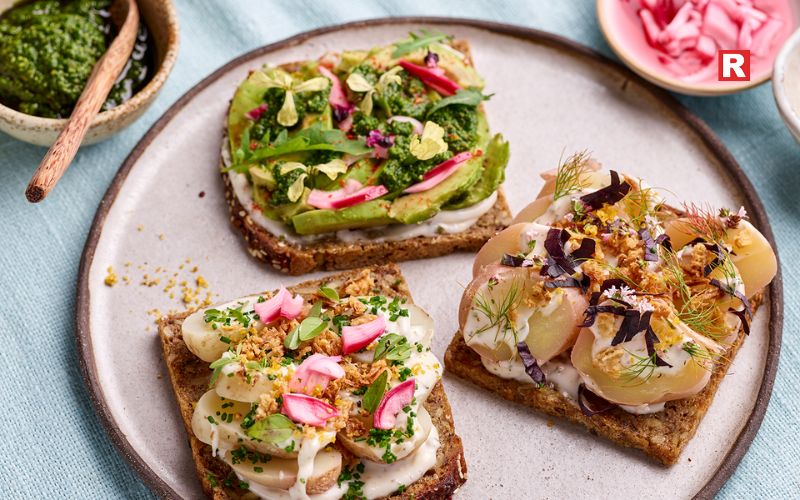
Smørrebrød is a traditional open face sandwich from Denmark. It is known for its balance and neat presentation. The base is dense rye bread. It is topped with butter, meats, fish, cheese, or vegetables. Popular versions include pickled herring, roast beef, eggs, and smoked salmon. Each topping is layered carefully. The flavour is bold and earthy. The rye bread adds depth. The toppings add salt, fat, and freshness. Smørrebrød is often eaten as a proper meal, not a snack. It shows how simple ingredients can feel refined.
3. Tartine

Tartine is the French version of an open face sandwich. It is rustic and comforting. It usually uses country-style bread. The bread is toasted lightly. Toppings can be sweet or savoury. Popular choices include butter and jam, soft cheese with honey, or vegetables with herbs. The taste is subtle and clean. Tartines focus on good bread and fresh toppings. They are perfect for slow mornings or light meals. Many bakeries and cafés serve tartines because they let quality ingredients shine.
4. Crostini

Crostini comes from Italy. It means “little toasts”. These are small slices of bread, toasted until crisp. They are topped with spreads or toppings like ricotta, mushrooms, olives, or meats. Crostini are often served as starters or snacks. The flavour depends on the topping. The base is crunchy and light. Crostini are easy to customise and quick to prepare. They are ideal for gatherings or when you want variety on one plate.
Know more: Top 10 Vegan Street Foods in India Every Indian Loves
5. Bruschetta
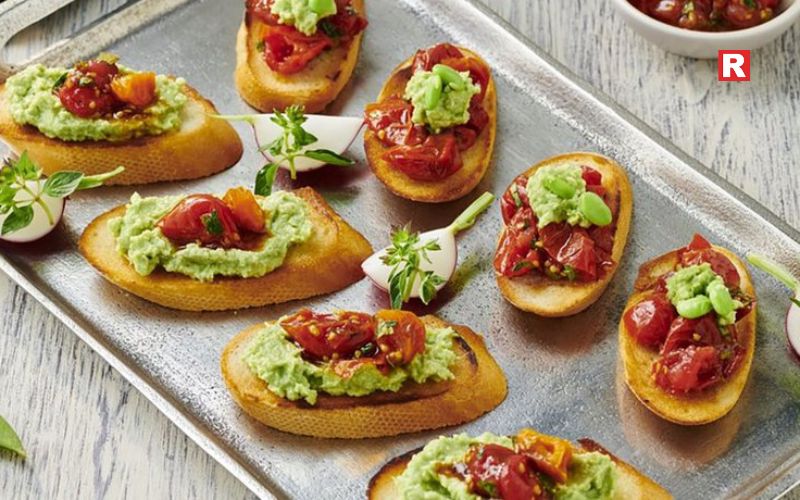
Bruschetta is one of the most loved open face sandwiches. It is simple and full of aroma. The base is grilled or toasted bread rubbed with garlic. The classic topping is chopped tomatoes, olive oil, salt, and basil. Some versions add cheese or roasted vegetables. The taste is fresh and juicy. The olive oil adds richness. The garlic adds warmth. Bruschetta works well as a starter or light meal. It celebrates fresh produce and simple cooking.
6. Tuna Open Sandwich
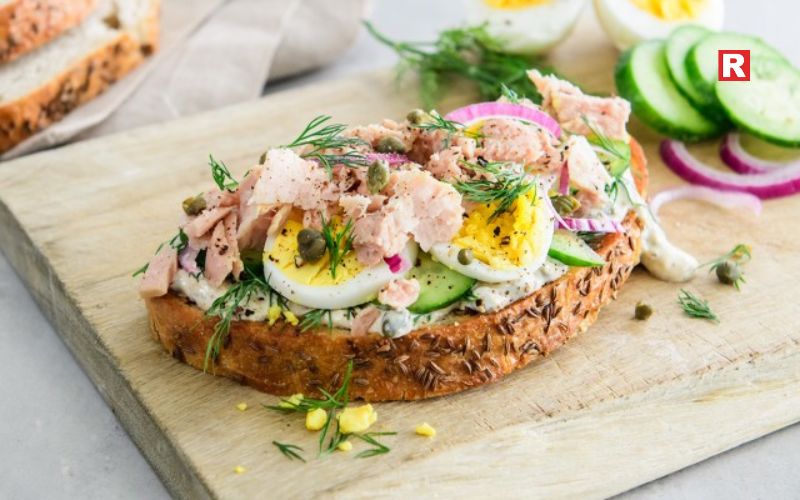
The tuna open sandwich is comforting and familiar. It is popular across many countries. It uses bread like white, brown, or whole wheat. The topping is usually tuna mixed with mayo, mustard, or herbs. Some versions add onions, corn, or boiled eggs. The flavour is creamy and savoury. It is high in protein and very filling. This sandwich works well for lunch or quick meals. It is easy to prepare and uses pantry staples.
7. Mushroom and Cheese Toast
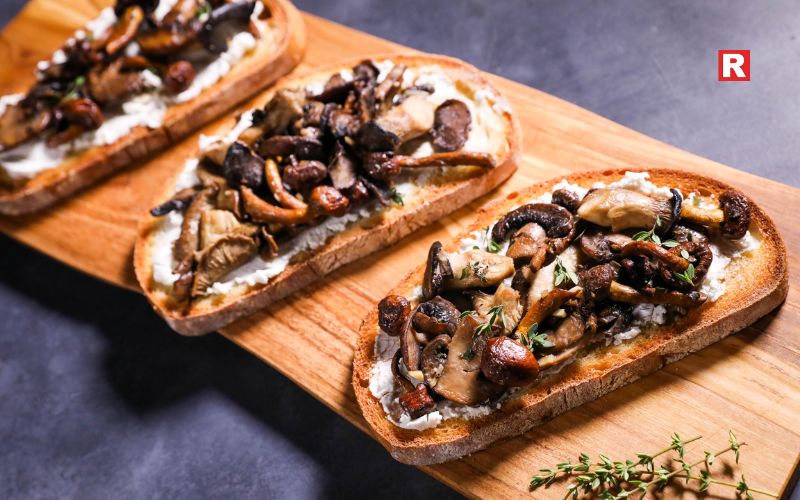
This open face sandwich is rich and indulgent. It starts with toasted bread. Sautéed mushrooms are placed on top. Cheese like mozzarella, cheddar, or cream cheese is added. Herbs like thyme or parsley lift the flavour. The taste is earthy and warm. The cheese melts into the mushrooms. The texture is soft and comforting. This sandwich is perfect for evenings or when you want something hearty without too much effort.
8. Salmon Open Sandwich
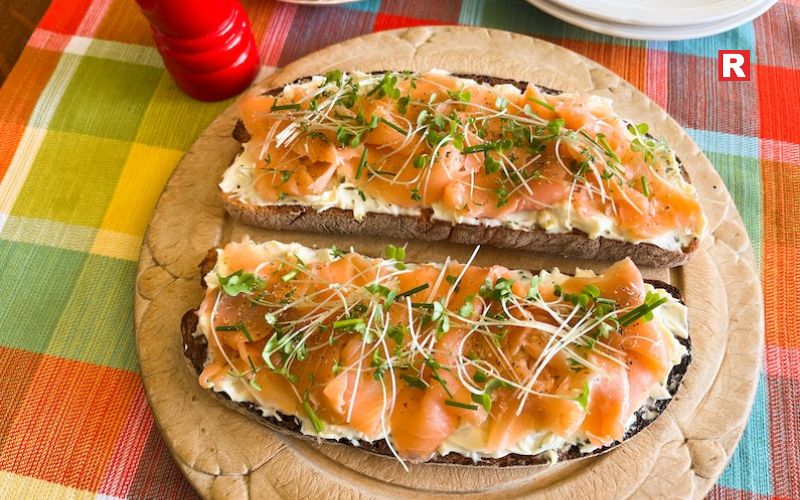
Salmon open sandwiches feel light yet luxurious. They usually use rye or sourdough bread. Smoked or cured salmon is placed on top. Cream cheese, lemon, and dill are common additions. Some versions include capers or cucumber. The flavour is fresh and slightly salty. The salmon adds richness without heaviness. This sandwich is popular for brunch and special meals. It also provides omega-3 fats and protein.
9. Egg and Herb Toast
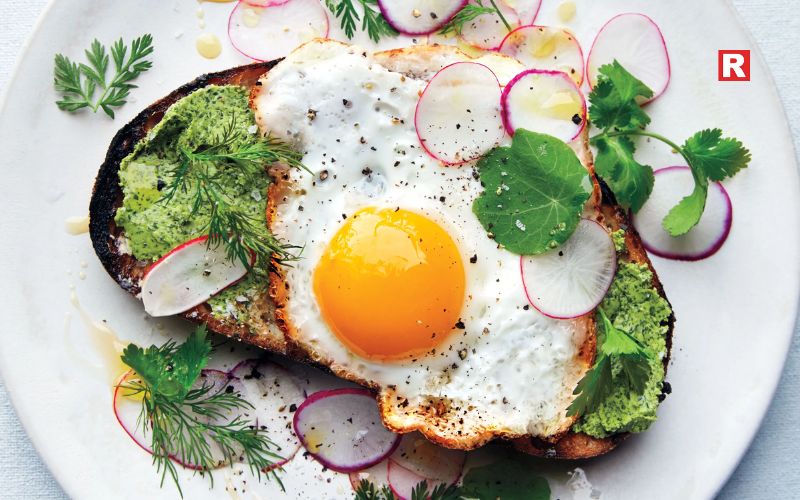
Egg and herb toast is simple and satisfying. The base is toasted bread. The topping can be scrambled eggs, boiled eggs, or poached eggs. Fresh herbs like chives, parsley, or coriander are added on top. The taste is soft and comforting. Eggs make it filling and nutritious. This open-face sandwich works well for breakfast or quick dinners. It is easy to adjust with spices or vegetables.
10. Paneer Open Sandwich
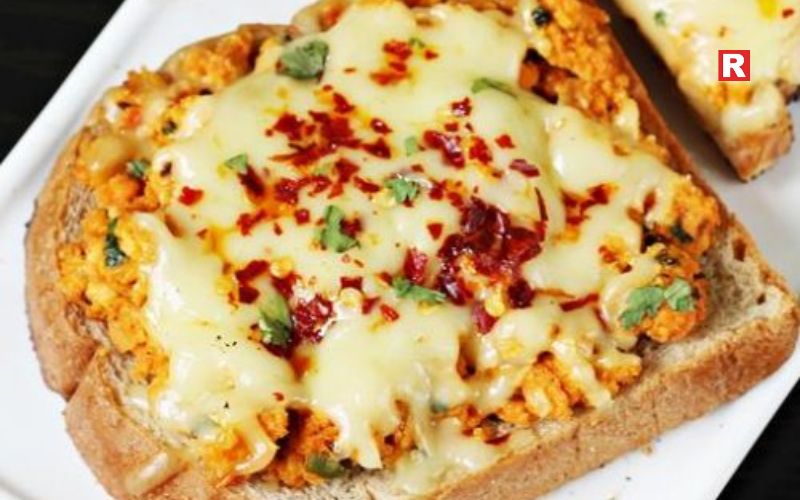
The paneer open sandwich brings Indian flavours into a global format. Toasted bread is topped with spiced paneer. The paneer can be grilled, crumbled, or sautéed with onions and capsicum. Green chutney or yogurt spreads add freshness. The flavour is bold and familiar. It balances spice with creaminess. This sandwich is a great vegetarian option. It shows how open face sandwiches can adapt to local tastes.
Also check: Pani Puri Has Different Names in Different Indian States—Know Them All
High Protein Indian Meals You Should Try
12 Delicious High-Protein Foods to Eat Daily for a Healthier You
Why Open Face Sandwiches Work So Well
Open face sandwiches are more than a passing food trend. They are practical and well balanced. One slice of bread helps keep portions under control. The toppings stay visible, which makes flavours feel planned and purposeful. Nothing feels overloaded.
They are also easy to adapt.
They can be healthy with vegetables, eggs, or grains.
They can be indulgent with cheese, butter, or rich spreads.
Local ingredients fit in naturally.
Leftovers can be turned into a fresh meal with little effort.
For cafés, open face sandwiches are a smart choice. They look clean, modern, and inviting on the plate. For home kitchens, they save time and reduce waste. There is no need for complex cooking or long prep. For the eater, they strike the right balance. They feel filling but not heavy. Light, flexible, and full of flavour, open face sandwiches fit easily into everyday meals.
Happy Eating!
The best open-face sandwiches are built on simplicity. Everything starts with good bread. A strong base gives the sandwich its structure and taste. Fresh toppings matter just as much. When ingredients are clean and well chosen, one slice is enough to satisfy. These sandwiches suit every kind of palate. From creamy avocado spreads to spiced paneer toppings, the options are endless. They adapt easily to local flavours and personal choices. That is why they feel so relevant today. People want food that is quick, flexible, and easy to enjoy. Open-face sandwiches fit modern routines. They take little time to prepare. They feel light yet filling. They work for busy mornings, slow brunches, or simple dinners. There is no need for heavy portions or complex cooking. In one open slice, there is balance. Taste, texture, and comfort come together. That is what makes an open-face sandwich a reliable choice, any time of the day.

Mountain travel has its own rhythm. The air feels cleaner. The pace feels slower. The silence feels deeper. But the cold is real. It settles into the bones. In such places, food becomes more than pleasure. It becomes protection. In the hills, meals are planned with care. Taste matters, but warmth matters more. Food must give energy. It must keep the body strong against wind and low temperatures. That is why mountain cooking relies on local grains, dairy, and slow methods. Nothing is rushed. Nothing is wasted. Every ingredient has a role. Across Indian mountain regions like Himachal Pradesh, Uttarakhand, Ladakh, Sikkim, and Arunachal Pradesh, people eat with the climate in mind. The food is simple. It is heavy enough to last. It comforts without being complicated. Hot soups, fermented dough, lentils, ghee, and warm drinks appear on every table.
These dishes are shaped by daily life in the mountains. Long winters. Limited produce. High altitude. Hard work. The result is food that nourishes deeply and keeps the body warm from within. For travellers, eating local is not just a choice. It is a necessity. These ten mountain foods offer warmth, strength, and a true taste of life in the hills.
1. Thukpa – The Ultimate Mountain Comfort Soup
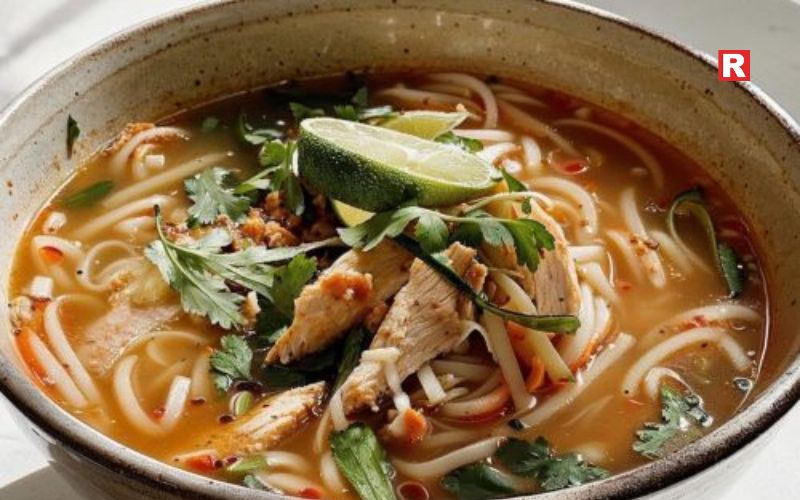
Thukpa is one of the most popular mountain foods in India. It comes from Tibetan cuisine. It is widely eaten in Ladakh, Sikkim, and Arunachal Pradesh. Thukpa is a hot noodle soup. It is made with vegetables, meat, or both. The broth is slow-cooked. Garlic, ginger, and mild spices add warmth. The steam itself feels healing in cold air. This dish keeps you full for hours. It also helps with hydration at high altitudes. Locals prefer it during evenings and winters. Travellers love it for its warmth and simplicity.
Read more: 8 Famous Vegetarian Dishes of Uttar Pradesh and Their Timeless Legacy
5 Cities That Serve the Best Non-Vegetarian Street Food
2. Siddu – Himachal’s Winter Favourite
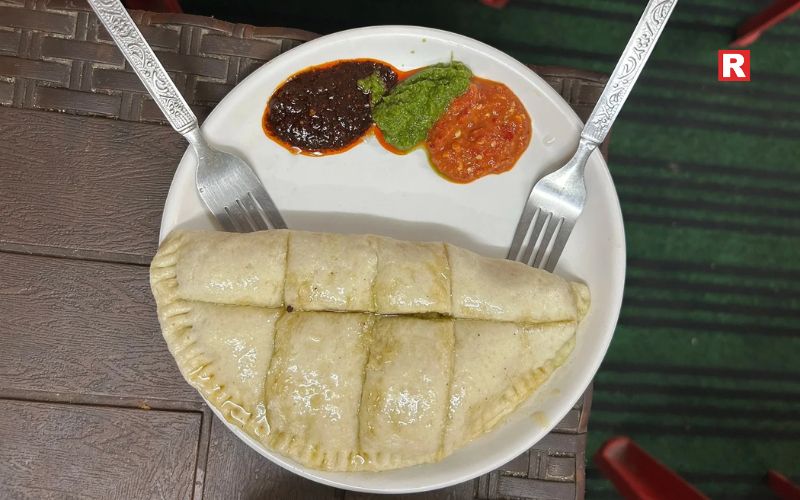
Siddu is a traditional food from Himachal Pradesh. It is made from wheat flour. The dough is fermented and then steamed. Siddu is usually stuffed with poppy seeds, walnuts, or paneer. It is served hot with ghee or dal. The fermentation helps digestion. The ghee provides heat and energy. This dish is heavy. It is slow to digest. That is why it works so well in cold mountain weather. One serving is enough to keep you warm for a long time.
3. Butter Tea (Po Cha) – Ladakh’s Cold-Weather Drink
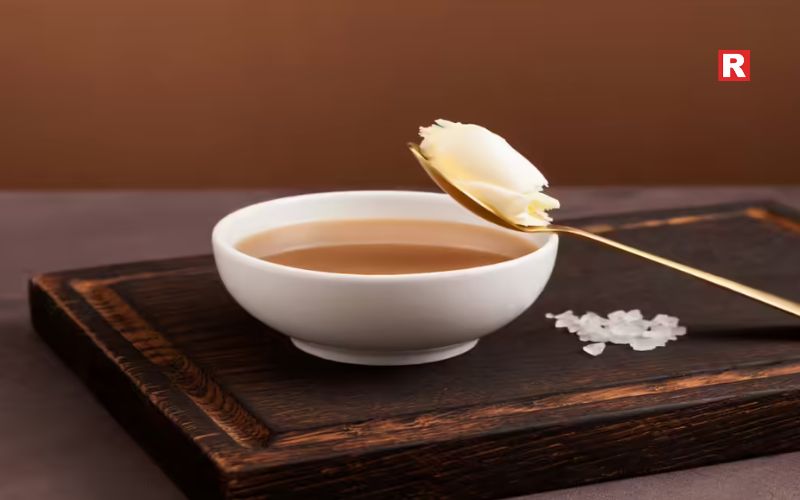
Butter tea is not a regular tea. It is a survival drink. It comes from Ladakh and Tibetan regions. This tea is made using tea leaves, salt, water, and yak butter. It tastes salty, not sweet. It is thick and rich. Butter tea helps prevent dehydration. It also provides fat, which is essential in extreme cold. Locals drink it several times a day. For travellers, it may taste unusual. But it works wonders in freezing temperatures.
4. Dal Bhat – The Mountain Staple Meal
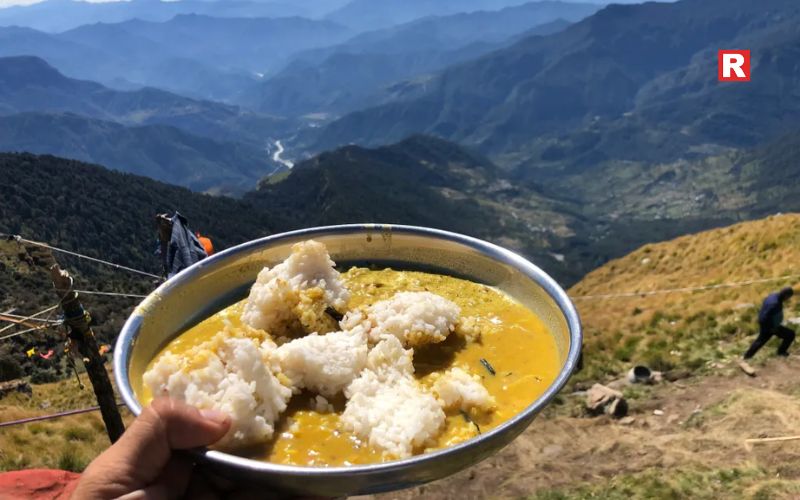
Dal Bhat is eaten across many mountain regions. It is simple food. It includes lentils, rice, vegetables, and sometimes ghee. This meal provides balanced nutrition. Dal gives protein. Rice gives energy. Ghee adds warmth. Vegetables add minerals. In mountain areas, people eat dal bhat daily. It keeps the body strong. It supports long hours of physical work. For travellers, it is a safe and nourishing option.
Know more: Pani Puri Has Different Names in Different Indian States—Know Them All
5. Momos – Steamed and Warming
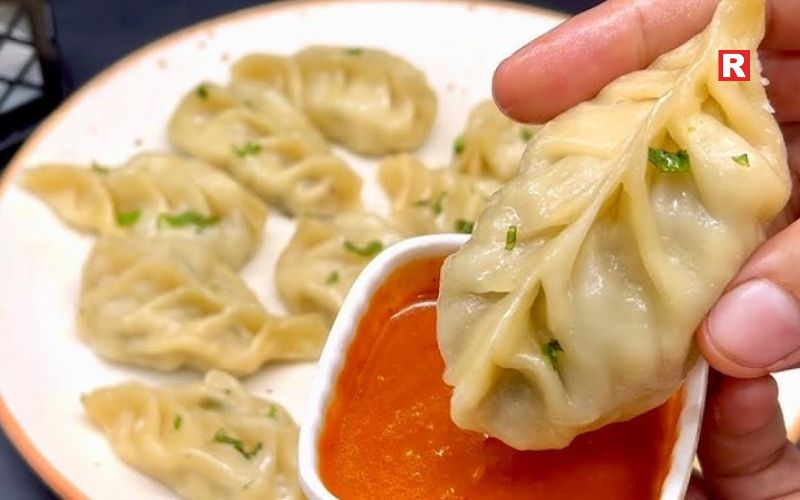
Momos are famous across hill stations. They are steamed dumplings filled with vegetables or meat. Steaming makes momos easy to digest. They do not feel heavy. But they still provide warmth. The fillings are usually cooked with garlic and ginger. These ingredients naturally warm the body. Momos are best eaten hot. Street-side stalls in mountain towns serve them fresh. They are affordable. They are comforting. And they suit cold weather perfectly.
6. Chhang – Traditional Fermented Drink
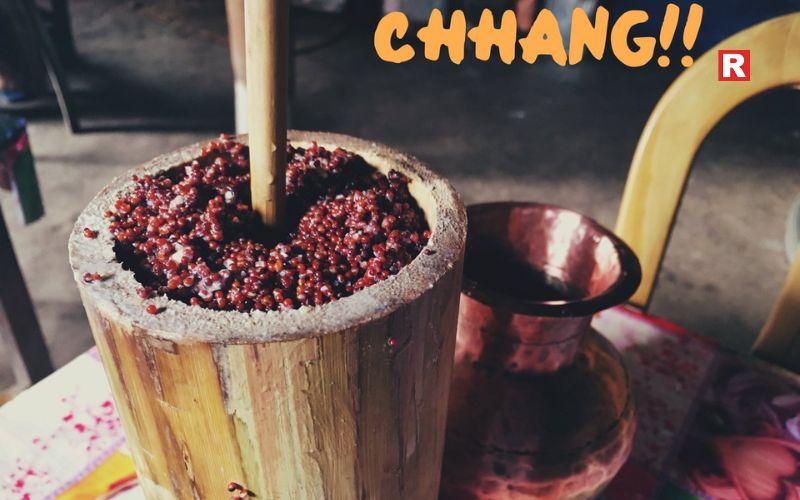
Chhang is a traditional drink found in Sikkim, Ladakh, and parts of Himachal. It is made by fermenting millet, barley, or rice. It is served warm in winter. Chhang produces mild heat in the body. Locals drink it during social gatherings and cold evenings. This drink is not very strong. But it should still be consumed carefully, especially at high altitude. In moderation, it helps the body stay warm and relaxed.
7. Gahat Dal – Uttarakhand’s Heat-Giving Lentil
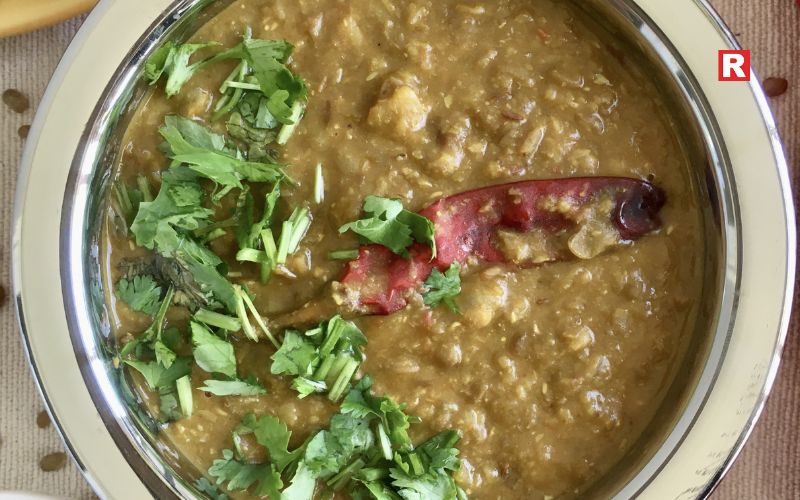
Gahat dal, also known as horse gram, is popular in Uttarakhand. It is known for its warming nature. This dal is cooked slowly. It has a thick texture. It is usually eaten with rice or mandua roti. Gahat dal is high in protein and iron. It is especially eaten in winters. Locals believe it produces heat in the body. That is why it is avoided in summer.
Also check: Try These Veg Soups in These Freezing Winters
8. Phapar Roti – Buckwheat Bread for Cold Days
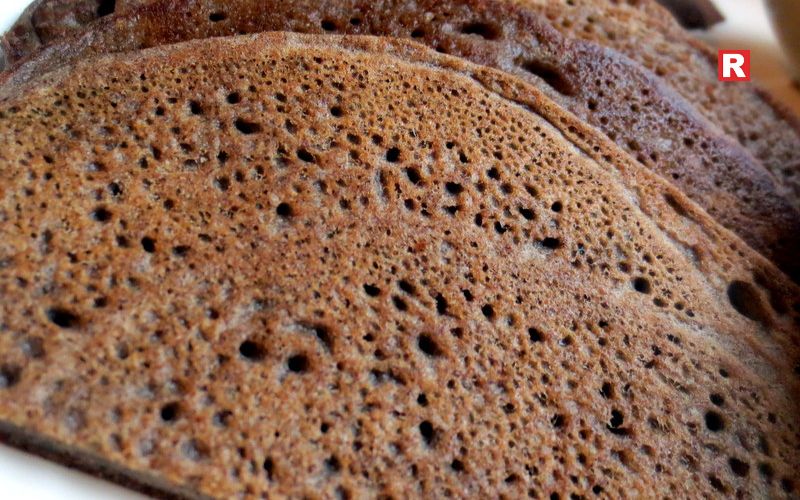
Phapar roti is made from buckwheat flour. It is common in Uttarakhand and Himalayan regions. Buckwheat grows well in cold climates. It is rich in fibre and minerals. Phapar roti is dense and filling. It is usually eaten with ghee, dal, or vegetable curry. This combination helps maintain body temperature. It also keeps hunger away for longer hours.
9. Thenthuk – Thick Hand-Pulled Soup
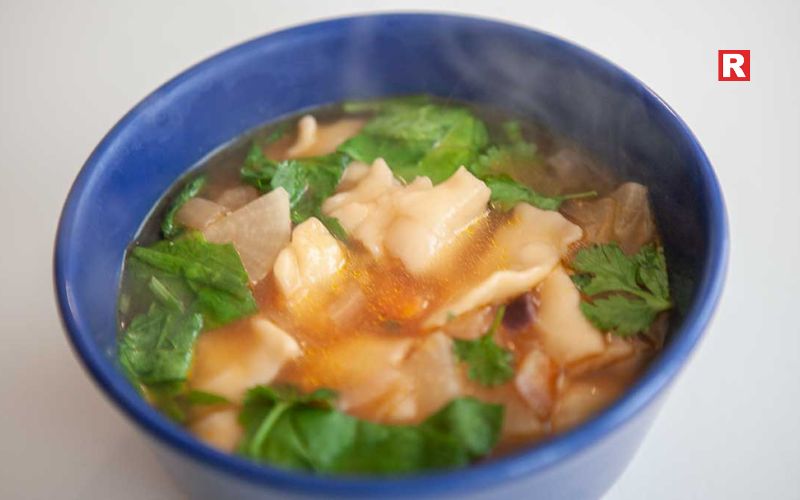
Thenthuk is a traditional Ladakhi soup. It is thicker than thukpa. Pieces of wheat dough are hand-pulled and added to the soup. This dish is slow-cooked. It includes vegetables and sometimes meat. The thick broth provides warmth and strength. Thenthuk is commonly eaten during harsh winters. It helps the body fight cold winds and low temperatures.
10. Local Ghee and Cheese – Mountain Essentials
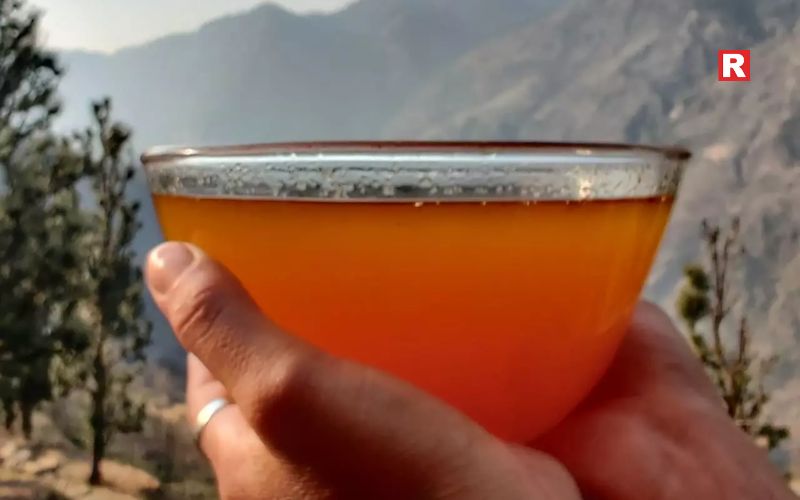
Dairy plays a big role in mountain food. Cow and yak milk are widely used. Ghee, butter, and cheese are everyday items. These dairy products are high in fat. Fat helps the body retain heat. It also provides long-lasting energy. Yak cheese in Ladakh and local butter in Himachal are not luxury foods. They are daily nutrition. Travellers should try these in small amounts. They help adjust to cold climates.
Check more: 5 Ways to Use Garden Cress Seeds (Halim) for Stronger Hair and Bones
Must-Try 20 Famous Local Foods of Madhya Pradesh That Define the State’s True
Explore 15 Famous Vegetarian Kerala Dishes for an Authentic Taste
Final Thoughts
When people travel to the mountains, food becomes as important as warm jackets and sturdy shoes. The body reacts differently at high altitudes. The cold is sharper. Energy drops faster. Local food helps the body adjust. It provides warmth from within. It supports movement and stamina throughout the day. Mountain food is not about decoration or trends. It is honest and practical. These meals are built on experience passed down over generations. Every dish exists for a reason. To fight the cold. To fill the stomach. To give strength after long hours in harsh weather. Across regions like Himachal Pradesh, Uttarakhand, Ladakh, and Sikkim, people still eat what the land provides. Grains grown in cold soil. Dairy made fresh. Slow-cooked dishes that hold heat longer. These foods carry stories of survival, patience, and daily life in the hills. For travellers, choosing local meals is a form of respect. It brings comfort. It brings balance. And it helps the body feel at home, even in the coldest mountains.

If 2025 was defined by matcha, boba tea, and visually striking cafe beverages, 2026 is shaping up to be far more restrained. Across cafes and specialty coffee spaces, consumer demand is moving away from sweet, indulgent flavours toward simpler, more functional beverages that prioritise balance, drinkability, and repeat consumption.
This change is reflected in the numbers. Functional beverages globally are expected to cross USD 215–220 billion by 2025, with mushroom- and adaptogen-based drinks growing steadily. In India, kombucha is gaining traction, with the market valued at USD 102.6 million in 2024 and expanding at 16–17 per cent CAGR, a sign of consumers moving toward more purposeful, less spectacle-driven choices.
Matcha Grows Up
Matcha’s dominance in 2025 was driven by both social media trends and increasingly health-driven consumption habits. Search data shows matcha searches in India have grown nearly four times over five years, largely powered by Gen Z and social media virality. But cafe operators now believe matcha’s next phase will be far more grounded.
“Matcha resonated strongly in 2025 because it sat at the intersection of wellness, visual appeal, and versatility,” said Ayush Saxena of Caracoco Roasters and Sukoon Cafe in Delhi, adding, “Going forward, I see matcha evolving beyond being a ‘trend drink’ into a core alternative caffeine category, closer to specialty coffee than novelty.”
At the cafe level, this means fewer flavoured matcha concoctions and greater focus on ceremonial-grade quality, unsweetened profiles and subtle botanical pairings. The shift mirrors how specialty coffee itself matured from flavoured syrups to origin, process and craft.
Hanumanth Rao Naineni, Founder of Roast CCX, Hyderabad, echoed this sentiment. “Matcha didn’t try too hard. People only connected with the sense of ritual it brings. Now the curiosity is moving toward quality, origin and preparation rather than constant flavour additions,” he added.
Sweetness Dials Down
Across cities, cafes report that customers are returning more often to clean, familiar flavours. Comfort-led profiles such as cocoa, brown sugar, vanilla and caramel remain popular, but with reduced sweetness and simpler taste profiles.
“At Sukoon Cafe, customers are increasingly returning to beverages where the base ingredient shines. Over the past couple of years, there’s been a clear move away from artificially flavoured syrups toward natural sweetness and subtle complexity. In non-coffee beverages, flavours that feel fresh, herbal, or lightly spiced are performing well, especially when they’re positioned as refreshing or functional,” explained Saxena.
At Roast CCX, this maturity is also visible in how guests approach experimental coffees. “Process-led coffees, particularly anaerobic and fruit-fermented profiles, are seeing strong repeat response but only when they’re clean and well-executed,” shared Naineni, adding, “People want to taste intention, not just indulgence.”
This shift aligns with broader global data. Around 64 per cent of consumers say they look forward to trying new food and beverage trends, but flavour forecasters note that experimentation today is more about balance than excess, with sweet flavours no longer driving choices.
Function Becomes Baseline
Functional beverages are no longer positioned as niche wellness add-ons. From adaptogen blends to digestive and low-acidity options, they are increasingly being built into core menus and everyday drinking habits.
Low- and no-caffeine beverages are becoming central to this shift as caffeine fatigue grows. Cafes are expanding menus to support all-day consumption, with coffee substitutes and caffeine alternatives now a multi-billion-dollar global category.
“Non-coffee beverages that feel fresh, herbal or lightly spiced are performing well,” Saxena pointed, particularly when positioned as refreshing or functional rather than dessert-like.
Alongside this, Indian-origin beverages such as buttermilk and sharbat are expanding at four to six times the overall beverage category, prompting cafes to reinterpret these traditional formats with modern flavours, textures and formats on their menus.
The Next Trending Flavours
India’s cafe menus are also becoming more globally fluent. Flavour houses point to growing adoption of yuzu, elderflower, lavender, black sesame and tart berry profiles, with black currant identified as a key flavour for 2026. These are no longer niche experiments but increasingly accepted as everyday options.
“We’re seeing a rise in demand for umami-forward flavours and fermented beverages across categories,” added Harika Ganeshni Bommana, Founder of Grumpy Girl Coffee. “Think matcha, sesame, yuzu, and even kombucha culture influencing cafe menus. India is getting more adventurous,” she added.
Fermentation, in particular, is shedding its alternative image. With kombucha and related formats growing rapidly, sour and complex flavour profiles are finding a wider audience, not as health tonics, but as sophisticated beverages in their own right.
Beverage Innovation in 2026
Despite the talk of new flavours, operators agree that 2026 will not be about endless invention. Instead, it will be defined by better execution of familiar ideas like cleaner fermentations, lighter sweetness, improved texture and stronger narratives around origin and process.
“The ingredient sets the rules. Sweetness is always the final step, never the starting point. The goal is not to mask flavours but to let them land the way they’re meant to. Citrus will continue to show up, but more as a supporting note than a headline flavour,” explained Naineni.
Texture, too, is emerging as a key differentiator. From creamy iced coffees to foamy cold drinks and light emulsions, mouthfeel is becoming as important as flavour. According to Saxena, cafés that succeed will be those that combine layered but restrained flavour experiences with storytelling and authenticity.
Beyond changing tastes, this move toward grounded, grown-up beverages also makes commercial sense. Functional, fermented and low-sugar drinks offer more stable input costs, stronger margins and higher repeat consumption, allowing cafés to expand menus and drinking occasions without relying on discounting or constant limited-time launches.

Food in India has always been more than taste. It is linked to health, mood, and discipline. Long before modern nutrition plans existed, Indian philosophy explained food through Ayurveda and yoga. One such way of eating is the Sattvic diet. It is simple. It is clean. And it focuses on balance. Today, many people are turning back to the Sattvic diet for mental peace, better digestion, and mindful living.
The Sattvic diet comes from ancient Indian philosophy, especially Ayurveda and yogic texts like the Bhagavad Gita. The word Sattva means purity, clarity, and harmony. Sattvic food is believed to nourish both the body and the mind. This diet focuses on fresh, natural, and seasonal food. It avoids anything that causes heaviness, restlessness, or laziness. The idea is simple. What you eat affects how you think, feel, and act. Sattvic food is light on the stomach. It is easy to digest. It keeps the mind calm and alert. This is why yogis, monks, and spiritual seekers often follow a Sattvic diet.
Why Is the Sattvic Diet Important Today?
Modern diets focus on speed and convenience. Packaged food. Preservatives. Excess oil and sugar. Over time, this leads to low energy, poor digestion, and mental stress. The Sattvic diet offers a slower and more mindful approach. It encourages people to eat with awareness. It teaches respect for food.
A Sattvic diet helps improve digestion. It supports gut health. It also helps reduce anxiety and restlessness. Many people report better sleep and improved focus after following this diet. In India, this diet also aligns with traditional home-cooked meals. Simple dal, rice, sabzi, and ghee form the base of many Sattvic meals.
Core Principles of a Sattvic Diet
The Sattvic diet is not about strict rules. It is about intention and quality. Food should be freshly cooked. Leftovers are avoided. Food should be eaten warm and at regular times. Ingredients should be natural and unprocessed. Seasonal vegetables and fruits are preferred. Artificial flavours and preservatives are avoided. Spices are used in moderation. The aim is balance, not strong stimulation. Another important principle is how food is prepared. Cooking should be done in a calm and clean environment. Food is believed to carry the energy of the person who cooks it.
Read more: High Protein Indian Meals You Should Try
12 Delicious High-Protein Foods to Eat Daily for a Healthier You
Explore Top Sattvic Food Items to Include
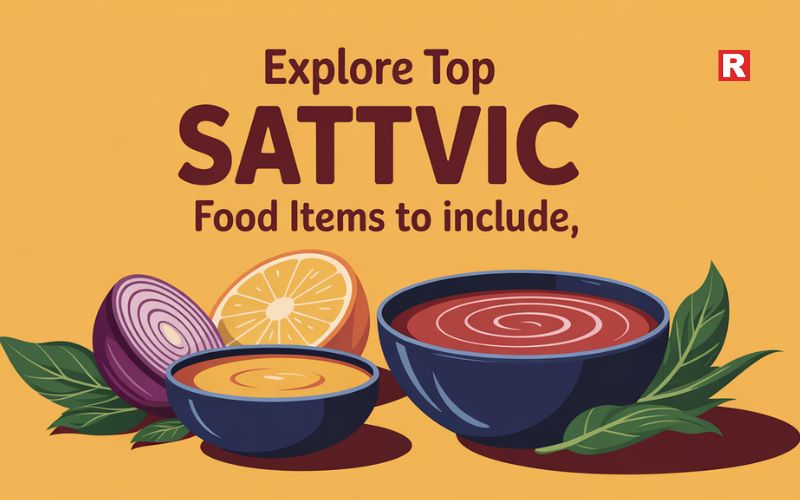
A Sattvic food list is simple and familiar to most Indian households.
Grains and Cereals: Whole grains form the base of the Sattvic diet. Rice, especially unpolished rice, is commonly used. Wheat, barley, and millets like jowar and bajra are also included. These grains provide energy without heaviness.
Fruits: Fresh and ripe fruits are considered highly Sattvic. Apples, bananas, papaya, pears, and mangoes are good examples. Fruits should be eaten fresh and in season. Overripe or stored fruits are avoided.
Vegetables: Most vegetables are allowed in the Sattvic diet. Bottle gourd, pumpkin, carrot, cucumber, ash gourd, and spinach are commonly used. These vegetables are light, cooling, and easy to digest. Vegetables should be cooked gently. Overcooking or deep frying is avoided.
Dairy Products: Dairy plays an important role in a traditional Sattvic diet. Fresh milk, homemade curd, and buttermilk are allowed. Ghee is considered especially pure and beneficial when used in small amounts. Dairy should be fresh and not processed.
Nuts and Seeds: Soaked almonds, walnuts, sesame seeds, and pumpkin seeds are allowed in moderation. They provide healthy fats and energy. Soaking helps improve digestion.
Natural Sweeteners: Refined sugar is avoided. Instead, natural sweeteners like jaggery and raw honey are used in small quantities.
Foods to Avoid in a Sattvic Diet
The Sattvic diet avoids foods that disturb the body or mind. These foods fall into two categories. Rajasic and Tamasic.
Rajasic Foods: Rajasic foods increase restlessness and stimulation. Onions and garlic fall under this category. Excess spices, chillies, and very salty foods are also avoided. Tea and coffee are discouraged because they overstimulate the nervous system.
Tamasic Foods: Tamasic foods cause heaviness and dullness. Meat, fish, and eggs are avoided. Alcohol, tobacco, and intoxicants are strictly avoided. Packaged and processed foods are considered Tamasic. So is stale food. Food kept overnight or reheated loses its freshness and energy.
Know more: Try These Veg Soups in These Freezing Winters
Sattvic Diet vs Modern Diet Trends
Most modern diets revolve around numbers. Calories are counted. Portions are measured. Results are expected fast. The focus often stays on weight loss and physical change. The Sattvic diet works differently. It is not designed for quick results. It is meant to be followed over time. The goal is balance, not control. Instead of counting calories, attention is given to how food affects the body and the mind. There is no pressure to hit protein targets or track macros. Food is chosen for its freshness and simplicity. Meals are light, clean, and easy to digest. This helps the body feel calm and steady. Modern diets often judge success by appearance. The Sattvic diet measures progress through energy levels, mental clarity, and emotional stability. It is less about looking different. It is more about feeling better every day.
A Simple Sattvic Meal Plan
A Sattvic meal plan does not need to be complicated. Breakfast can include fresh fruits and soaked almonds. Warm milk can be added if suitable. Lunch is usually the heaviest meal. Rice or roti, dal, seasonal sabzi, curd, and a little ghee make a balanced plate. Dinner should be light. Khichdi, vegetable soup, or lightly cooked vegetables work well. Eating before sunset is often recommended.
Also check: Power-Packed Mornings: 8 Protein-Rich Vegetarian Indian Breakfast Ideas to
Top 5 States With the Spiciest Food in India
7 Desi Alternatives to Oatmeal for Weight Loss
Final Thoughts
The Sattvic diet is not built on rules or restrictions. It is based on awareness. It helps people understand how food influences the body, the mind, and emotions. Every meal has an impact. What is eaten shapes energy levels, focus, and inner calm. In a fast-moving world, the Sattvic diet brings simplicity. It asks people to slow down. To cook fresh food. To eat at the right time. To choose meals that feel light and nourishing. There is no rush and no excess. This way of eating values cleanliness and balance. Ingredients are natural and close to their original form. Meals are prepared with care and eaten with attention. Over time, this creates a sense of stability and clarity. The Sattvic diet is not about changing appearance. It is about improving daily life. Simple food. Clean choices. Balanced living. That is its true essence.

Mumbai is not just a city. It is an emotion shaped by everyday life. And that emotion is deeply connected to food. From early morning vada pav near railway stations to late-night kebabs on crowded streets, Mumbai eats all day. Food here moves as fast as the people. The city’s food reflects its spirit. Quick. Diverse. Honest. Every dish tells a story of migration, hard work, and shared spaces. Office workers eat standing by carts. Students share plates after class. Families bond over evening chaat.
Authentic Mumbai taste does not live in luxury restaurants. It lives on footpaths, in small lanes, and inside old cafés that time forgot. These places have served the same flavours for years. Some for decades. Recipes remain unchanged. So does the love for food. Street stalls, Irani cafés, local eateries, and neighbourhood joints keep the real taste alive. Butter-soaked pav bhaji. Spicy misal pav. Tangy bhel puri. Each bite feels familiar. This guide explores such places. Places where Mumbai’s true flavours still exist. Simple food. Strong taste. Real stories. This is Mumbai on a plate.
Find Your Top Places to Visit for Authentic Mumbai Taste
1. Khau Galli – Where Mumbai Truly Eats
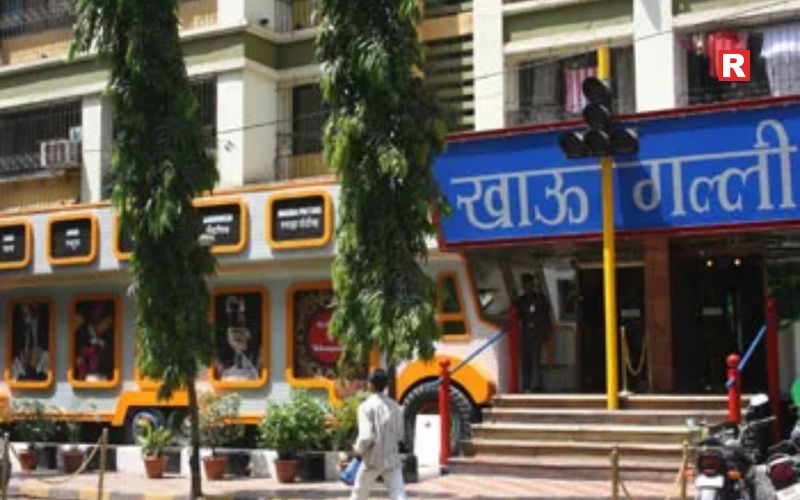
Khau Galli is the soul of Mumbai street food. Almost every suburb has one. Ghatkopar, Churchgate, Kandivali, Borivali, and Vile Parle are some popular areas. Here, food is quick and full of flavour. Pav bhaji is buttery and spicy. Tawa pulao is smoky. Frankies are rolled fresh. Cheese may be extra, but flavour is never missing. Khau Galli represents daily Mumbai life. Students, office-goers, families, and night-shift workers all eat here. Prices are affordable. Portions are filling. This is where Mumbai eats without pretence.
Read more: Try These Veg Goan Dishes On Your Next Visit
5 Cities That Serve the Best Non-Vegetarian Street Food
2. Mohammad Ali Road – A Timeless Food Trail
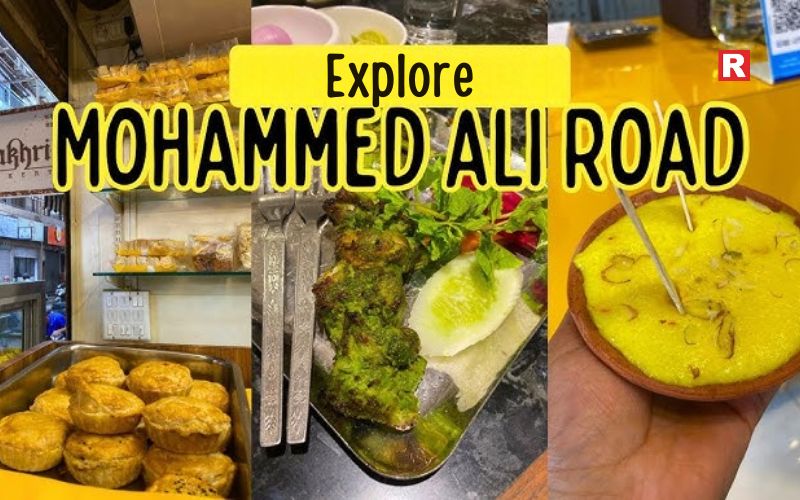
Mohammad Ali Road is one of Mumbai’s most iconic food destinations. It is especially famous during Ramzan, but the area is active all year. The food here is rich and traditional. Kebabs are soft and well-spiced. Nihari cooks slowly for hours. Biryani is aromatic and filling. Desserts like malpua and firni end the meal perfectly. This area represents old Bombay flavours. Recipes are passed down through generations. Eating here is not just about taste. It is about culture, history, and community.
3. Ashok Vada Pav, Dadar – The City’s Favourite Snack
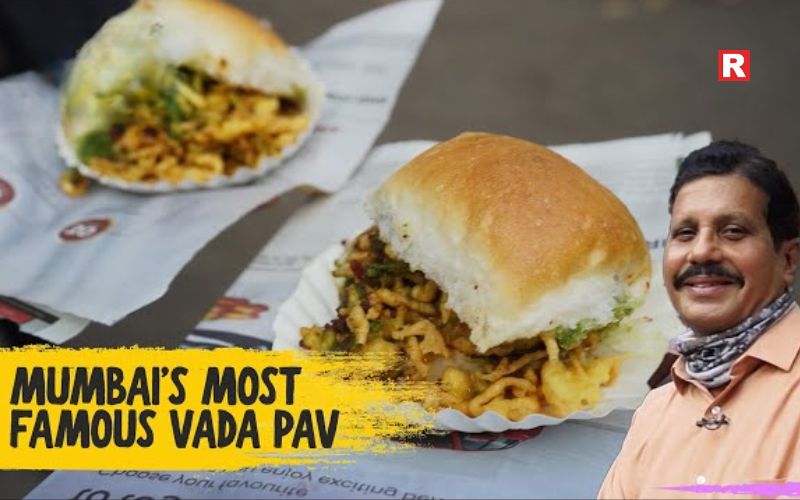
Vada pav is Mumbai’s most loved food. And Ashok Vada Pav in Dadar is one of its most trusted names. The menu is simple. Vada pav. Chutney. Fried chilli. That is it. The vada is crisp outside and soft inside. The garlic chutney adds heat. The pav is fresh. Located near Dadar station, this place serves thousands every day. Office workers, college students, and locals swear by it. This is authentic Mumbai food in its purest form.
4. Girgaon Chowpatty – Street Food by the Sea
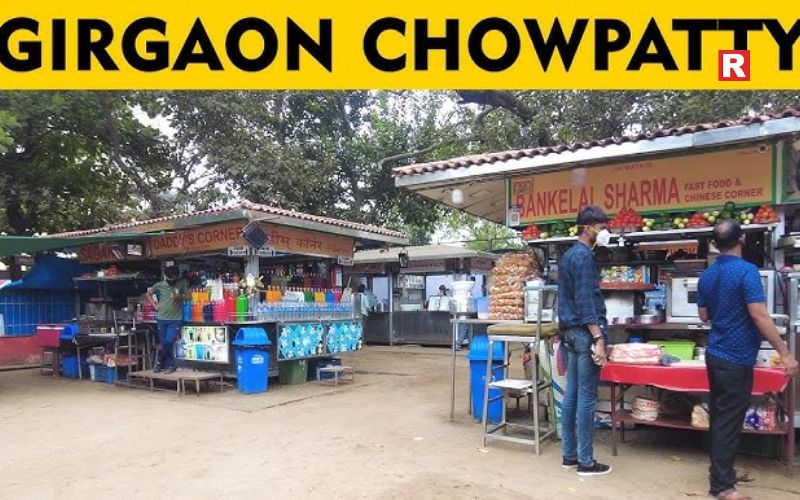
Girgaon Chowpatty is more than a beach. It is a food memory for many Mumbaikars. Evenings here are special. Families walk along the shore. Children play. And food stalls come alive. Bhel puri is light and tangy. Sev puri is crisp. Pani puri bursts with flavour. Eating chaat while watching the sea is a classic Mumbai experience. The taste is simple. The setting makes it unforgettable.
Know more: Top 10 Vegan Street Foods in India Every Indian Loves
5. Britannia & Co., Fort – Parsi Food from Old Bombay
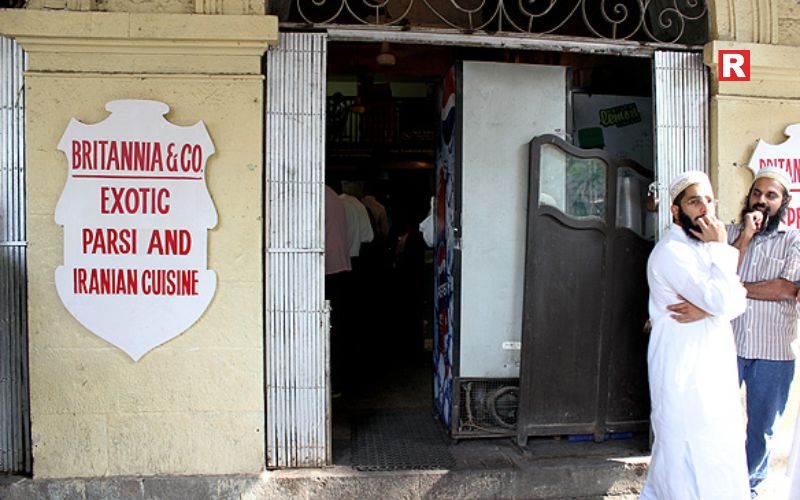
Britannia & Co. is one of Mumbai’s oldest Irani cafés. Located in Fort, it has remained unchanged for decades. The most famous dish here is berry pulao. It is mildly sweet, aromatic, and unique. Other favourites include dhansak and caramel custard. This place reflects Mumbai’s Parsi community and its contribution to the city’s food culture. The food is comforting. The atmosphere feels like stepping into history.
6. Leopold Cafe, Colaba – A Mumbai Landmark
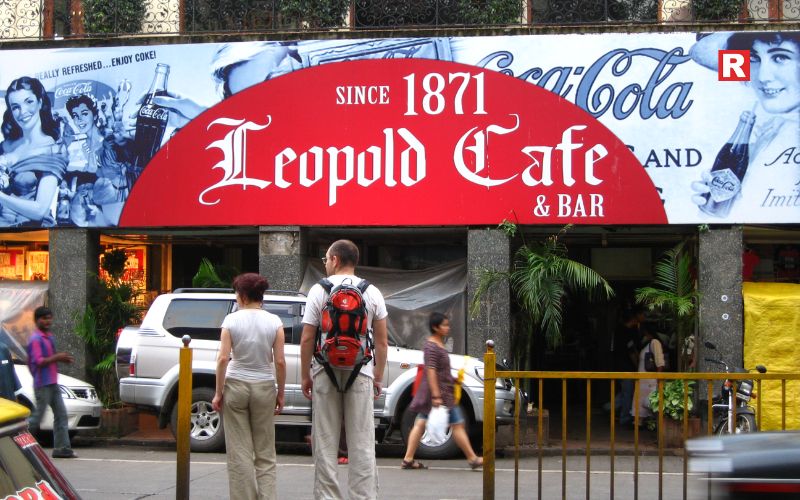
Leopold Cafe is known worldwide, but it still holds a special place in Mumbai’s food scene. Located near the Gateway of India, it attracts tourists and locals alike. The menu is wide. Indian dishes, café food, and continental meals are all available. Leopold represents Mumbai’s global side. It shows how the city blends cultures while keeping its local identity strong.
7. Aaswad and Prakash, Dadar – Maharashtrian Food at Its Best
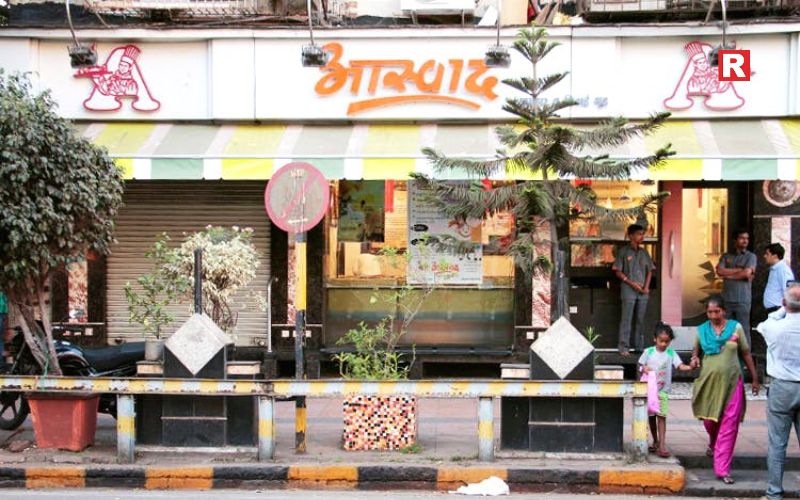
For authentic Maharashtrian vegetarian food, Aaswad and Prakash are must-visits. These places serve food that feels like home. Misal pav is spicy and satisfying. Sabudana khichdi is soft and comforting. Thalipeeth is hearty and filling. Located in Dadar, these restaurants attract people from across the city. They show how traditional Maharashtrian food is an important part of Mumbai’s taste identity.
8. Crawford Market Food Lanes – Old-World Street Snacks

Around Crawford Market, food stalls serve simple and honest snacks. Fresh fruit juices, sandwiches, kebabs, and local sweets are common. Workers, traders, and shoppers eat here daily. This area shows Mumbai’s working-class food culture. Meals are quick. Flavours are strong. Food is made to keep the city moving.
Why Mumbai Food Feels So Personal
Mumbai food is personal because it fits into real life. People eat on the go. They share tables. They stand and eat. Food is not an event. It is a routine.
Every area has its favourite spots. Every family has memories linked to certain foods. From school-time bhel puri to office lunch vada pavs, food grows with the city’s people.
- Visit early morning or late evening for the best street food
- Eat where locals eat
- Do not look for luxury. Look for crowds
- Try small portions at multiple places
- Respect local food traditions
Also check: Top Famous Veg Street Foods in Kolkata That You Must Try Once in Your Life
Top Maharashtra Famous Veg Food to Explore
Rajma Chawal: Know the Benefits Behind Delhi’s Famous Comfort Dish
Final Thought!
Authentic Mumbai taste is not driven by trends. It is built on consistency. It comes from places that have served the same food for years. Sometimes for decades. These spots do not change with fashion. They stay true to flavour. From busy Khau Gallis to quiet old cafés, Mumbai’s food lives everywhere. Street stalls serve food with speed and care. Small eateries cook recipes passed down through families. Legendary joints continue to draw crowds without promotion. Mumbai’s food speaks for the city. It tells stories of hard work, long days, and shared meals. People eat standing, walking, or sitting close together. Food fits into daily life, not the other way around. To understand Mumbai, one must eat like Mumbai. Eat simply. Eat locally. Choose flavour over presentation. There is no fuss here. No excess. Just honest food made well. This is the real taste of Mumbai. Straightforward. Filling. Memorable. A city explained through every bite.

Maharashtra is known for its rich culture, strong traditions, and bold flavours. Its food reflects this heritage in the most honest way. From the crowded streets of Mumbai to quiet village homes, Maharashtrian vegetarian food remains simple, comforting, and full of character. Each dish carries the story of the land, the weather, and the people who cook it every day. Unlike heavy and creamy gravies seen in many Indian cuisines, Maharashtrian veg food follows a balanced approach. The flavours are clear and natural. Spice, sweetness, sour notes, and earthy tones come together in every meal. Local ingredients play a key role. Jowar and bajra are common staples. Peanuts add richness. Coconut brings softness. Jaggery adds mild sweetness. Regional spices give depth without overpowering the dish.
The food is designed to nourish and satisfy. It feels filling but never heavy. Meals are often seasonal and made with what grows locally. This keeps the cuisine rooted and practical. For anyone looking to understand real Indian vegetarian cooking, Maharashtra offers a wide range of authentic dishes that are simple, flavourful, and deeply connected to everyday life.
Explore Top Maharashtra Famous Veg Food to Explore
1. Pithla Bhakri
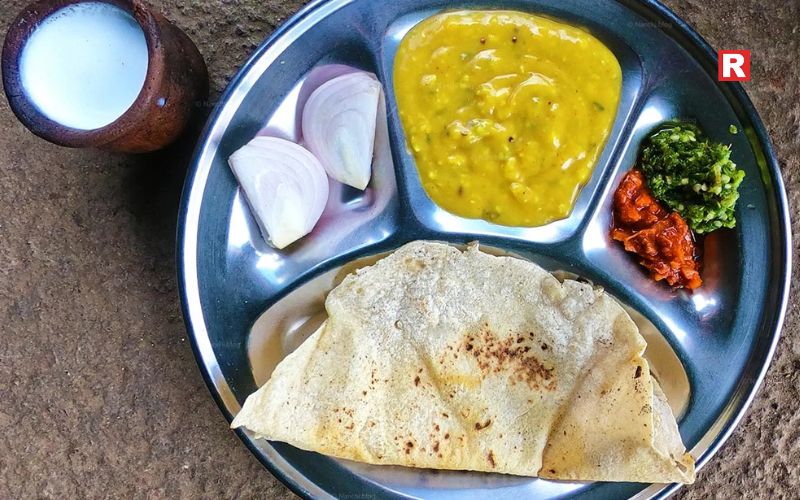
Pithla Bhakri is often called the comfort food of rural Maharashtra. It is simple, filling, and deeply rooted in everyday life. Pithla is prepared using besan cooked with garlic, onion, green chillies, turmeric, and mustard seeds. The texture is soft and slightly thick. The flavour is strong but balanced. Bhakri is a rustic flatbread made from jowar or bajra. It is cooked on a hot tawa and eaten fresh. Together, they form a complete and nourishing meal. This dish is common in village homes and farm households. Over time, it has found its place in cities like Pune and Kolhapur. Many traditional restaurants now include it in Maharashtrian thalis.
- Staple rural dish
- Uses local grains
- Affordable and filling
- Strong cultural identity
Read more: 8 Famous Vegetarian Dishes of Uttar Pradesh and Their Timeless Legacy
5 Cities That Serve the Best Non-Vegetarian Street Food
2. Misal Pav (Vegetarian)
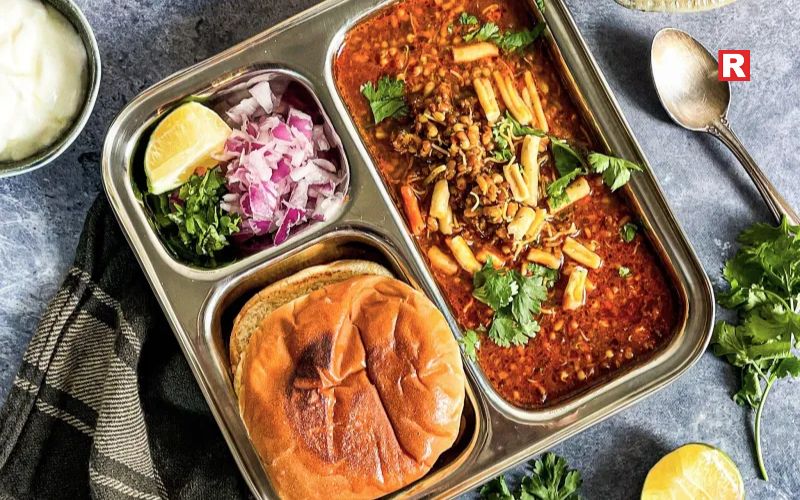
Misal Pav is one of Maharashtra’s most iconic vegetarian dishes. It is bold, spicy, and full of layers. The base is made from sprouted moth beans cooked in a fiery gravy. It is topped with farsan, chopped onion, coriander, and a squeeze of lemon. Soft pav is served on the side. Some people add curd to reduce the heat. Every region has its own style. Kolhapur is known for extra spice. Nashik offers a milder and balanced version. For many Maharashtrian families, misal pav is a weekend favourite. It is often eaten for breakfast or brunch.
- High-protein dish
- Famous across cities
- Spicy and textured
- Popular breakfast option
3. Vada Pav
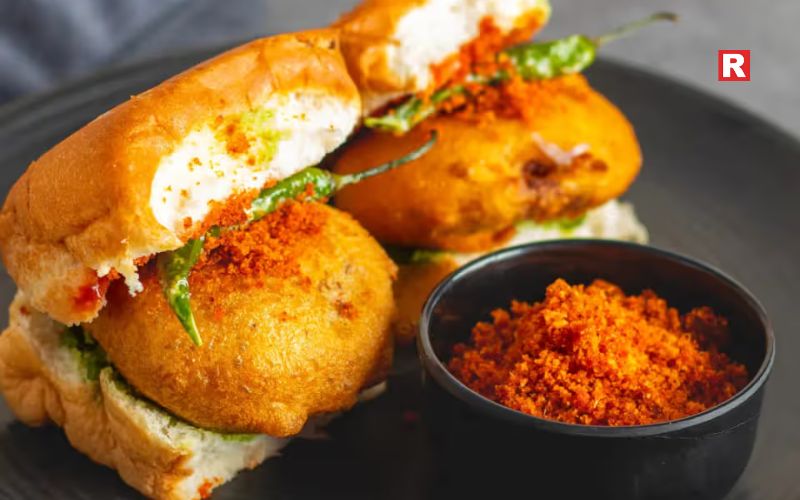
Vada Pav holds a special place in Maharashtra, especially in Mumbai. It is simple street food with a strong identity. A spicy potato vada is placed inside a soft pav. Dry garlic chutney and green chilli complete the dish. It is quick, affordable, and satisfying. Vada pav is found everywhere. Railway stations, offices, colleges, and roadside stalls sell it fresh throughout the day. It reflects Mumbai’s fast-moving lifestyle. Though the ingredients are basic, the taste is bold and memorable. For many locals, it is a daily habit rather than an occasional snack.
- Mumbai’s most famous street food
- Budget-friendly
- Easy to eat on the go
- Loved by all age groups
4. Thalipeeth
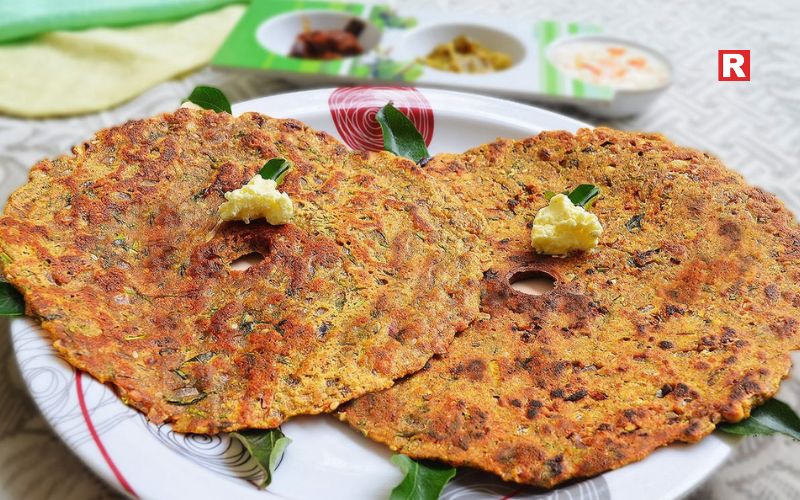
Thalipeeth is a traditional and nutritious Maharashtrian dish. It is a savoury flatbread made using a mix of flours such as jowar, bajra, rice, and wheat. Onion, spices, and coriander are mixed into the dough. The flatbread is cooked slowly on a tawa. Thalipeeth is usually eaten with curd or white butter. It is common for breakfast or lunch. Many Maharashtrian homes prepare it regularly. The dish is filling without being heavy. It reflects the practical and health-focused side of the cuisine.
- Multigrain dish
- High in fibre
- Home-style food
- Balanced and wholesome
5. Bharli Vangi
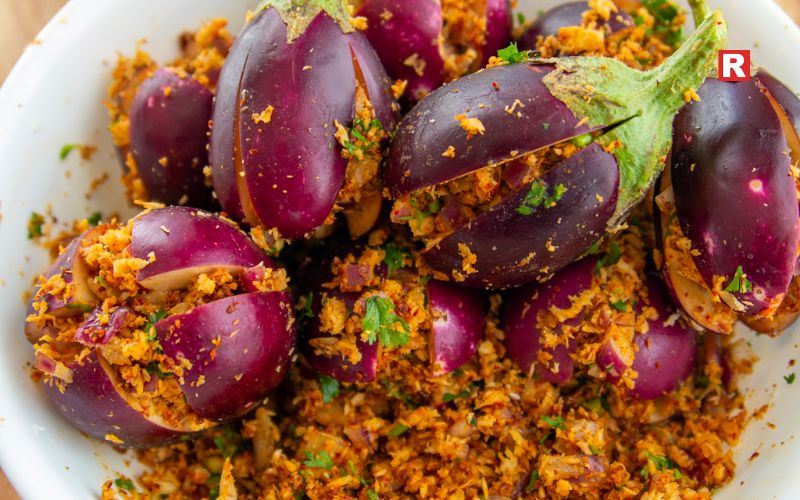
Bharli Vangi is a classic dish from Maharashtrian home kitchens. It is mainly prepared during festivals, family gatherings, and special meals. Small brinjals are carefully slit and filled with a rich masala. The stuffing is made using roasted peanuts, coconut, sesame seeds, jaggery, and goda masala. This gives the dish a deep and balanced flavour. The taste is mildly sweet, spicy, and nutty at the same time. The brinjals are slow-cooked on low heat. This helps them absorb the masala fully. Bharli vangi is usually served with bhakri or chapati. It is an important part of a traditional Maharashtrian thali and reflects the richness of regional cooking.
- Festive home-style dish
- Uses local spices
- Sweet and spicy balance
- Slow-cooked for flavour
Know more: Top 10 Vegan Street Foods in India Every Indian Loves
6. Zunka
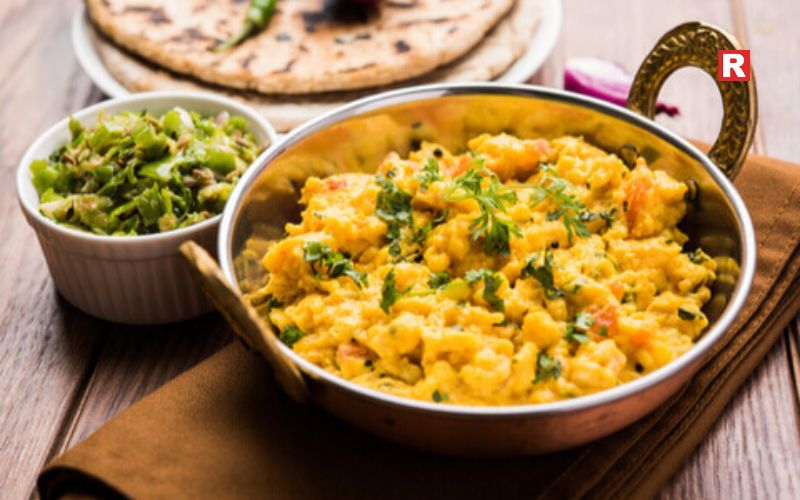
Zunka is a simple yet powerful dish from Maharashtra. It is a dry preparation made using besan, onion, garlic, green chillies, and basic spices. The texture is crumbly and rustic. The flavour is strong and satisfying. Zunka gained popularity during hard times because it was affordable and easy to prepare. It is usually eaten with jowar or bajra bhakri and raw onion. The combination is filling and nourishing. Over time, zunka bhakri became a symbol of Maharashtrian pride. Today, it is served in traditional restaurants and during social and political events.
- Dry besan-based dish
- Budget-friendly food
- Strong rural roots
- Cultural symbol of Maharashtra
7. Sabudana Khichdi
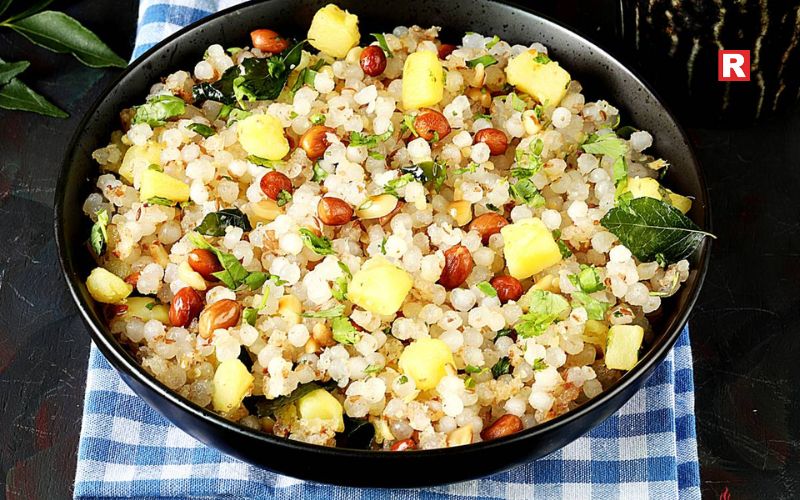
Sabudana khichdi is one of the most popular fasting foods in Maharashtra. It is made using soaked sabudana, roasted peanuts, cumin seeds, green chillies, and boiled potato. The dish is light but gives good energy. It is commonly eaten during fasting days like Ekadashi and Navratri. Many people also enjoy it for breakfast on regular days. The key to good sabudana khichdi is proper soaking and slow cooking. When done right, each pearl remains soft and separate. The dish is simple, comforting, and easy on the stomach.
- Fasting-friendly dish
- Gluten-free
- Light yet filling
- Popular breakfast option
8. Puran Poli
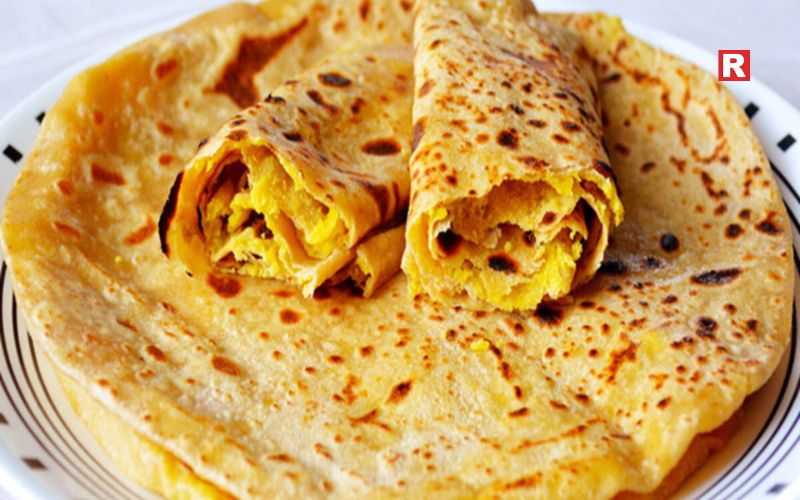
Puran Poli is a traditional Maharashtrian sweet made during major festivals. It is especially prepared on Gudi Padwa, Holi, and Diwali. The filling is made from cooked chana dal and jaggery. Cardamom and nutmeg add aroma and warmth. This sweet filling is stuffed into soft wheat dough and rolled into a flatbread. It is cooked on a tawa and served hot. Puran poli is usually eaten with ghee or milk. It stands for celebration, family bonding, and tradition. Every Maharashtrian festival feels incomplete without this dish.
- Festive dessert
- Made with dal and jaggery
- Soft and aromatic
- Strong cultural value
Why Maharashtrian Veg Food Is Unique
Maharashtrian vegetarian food is deeply connected to the land. Coastal areas use coconut and rice. Dry regions use millets and pulses. The food respects seasons and local produce.
Spices are used carefully. Goda masala gives warmth. Coconut and peanuts add richness. Jaggery balances heat. Meals are simple but satisfying. This cuisine proves that vegetarian food can be bold without being heavy.
Also check: Top Famous Veg Street Foods in Kolkata That You Must Try Once in Your Life
Try These Veg Soups in These Freezing Winters
Top Famous Veg Dishes to Try This Christmas from Around the World
Happy Eating!
Maharashtra’s famous vegetarian food is more than something to eat. Each dish carries meaning and memory. Simple street food like vada pav shows the fast pace of city life. Festive dishes like puran poli represent celebration, family, and tradition. Every recipe has grown over time and is linked to local customs and seasons. Maharashtrian vegetarian cuisine focuses on balance. The flavours are clear and natural. Meals are filling but never heavy. Ingredients are local and familiar. This makes the food honest and comforting. It suits both daily meals and special occasions. For anyone who wants to understand real Indian flavours, this cuisine offers a perfect starting point. It does not rely on richness alone. It values simplicity and taste. Maharashtrian veg food leaves a lasting impression because it feels warm, rooted, and deeply satisfying.

Christmas food stands for warmth, comfort, and time spent together. For many families, it is also deeply connected to tradition. While meat-based dishes often receive attention, vegetarian Christmas food has a strong place in celebrations across the world. In many countries, festive tables are filled with vegetarian dishes that are baked, steamed, slow-cooked, or served as sweets. These recipes are not new. They have been passed down through generations and hold cultural value. Across Europe, Asia, and the Americas, vegetarian food is part of Christmas customs. Vegetable roasts, rice dishes, dumplings, casseroles, and puddings are prepared with care. These dishes bring rich flavours without the need for meat. They also suit long festive meals and large family gatherings.
For Indian readers, global vegetarian Christmas dishes feel both fresh and familiar. Many recipes use simple ingredients like potatoes, rice, lentils, mushrooms, dairy, and seasonal spices. These are already common in Indian kitchens. This makes the dishes easy to follow and comfortable to try at home. Vegetarian Christmas food also allows flexibility. It can be adapted to local tastes. Trying global veg dishes during Christmas adds variety to the menu while keeping the festive spirit alive.
Discover Top Famous Veg Dishes to Try This Christmas
1. Pierogi with Sauerkraut and Mushrooms – Poland
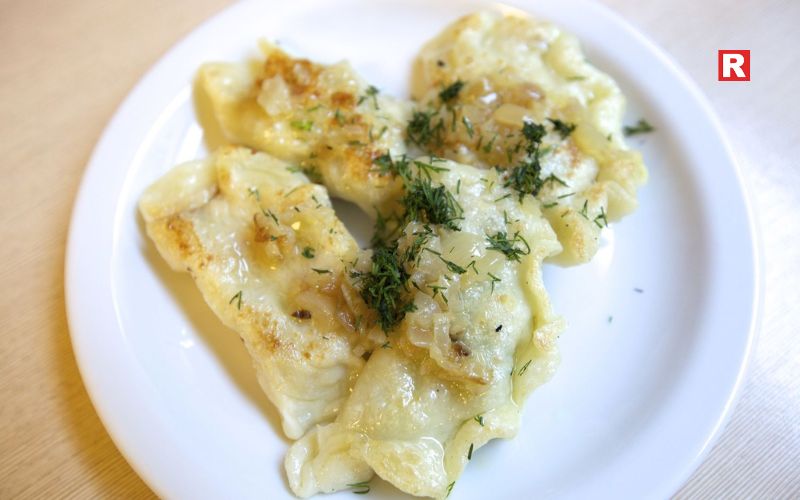
Pierogi are traditional Polish dumplings. During Christmas Eve, meat is avoided, and vegetarian pierogi become the star dish. These dumplings are stuffed with sauerkraut, mushrooms, or mashed potatoes. They are boiled and sometimes lightly pan-fried in butter. The taste is mild, tangy, and comforting. Mushrooms add depth, while fermented cabbage gives a festive sharpness. This dish is a reminder that Christmas food does not need to be rich to be special. Simple ingredients and slow preparation make it meaningful.
Read more: 8 Famous Vegetarian Dishes of Uttar Pradesh and Their Timeless Legacy
5 Cities That Serve the Best Non-Vegetarian Street Food
2. Potato Gratin – France
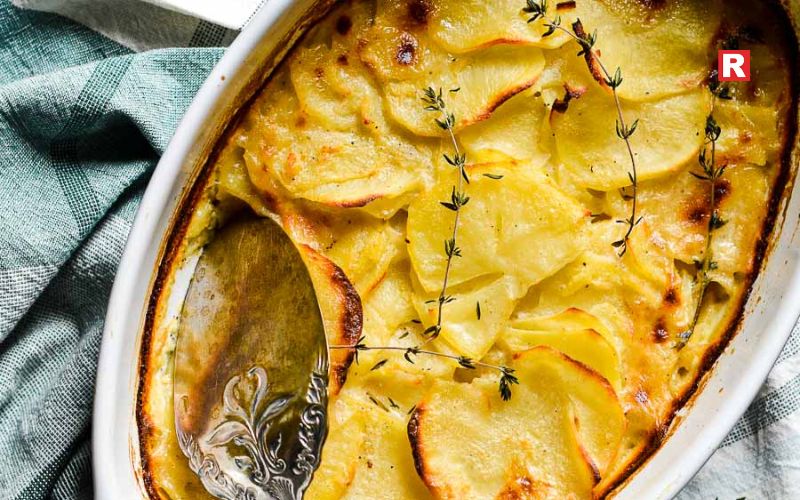
Potato gratin is a classic French Christmas side dish. Thin slices of potatoes are layered with garlic, cream or milk, and cheese. The dish is baked until golden and soft inside. It is creamy, warm, and perfect for cold winter nights. In many French homes, potato gratin is served alongside vegetables and bread during Christmas meals. Indian readers often connect with this dish because potatoes and dairy are common in festive cooking. It pairs well with salads or baked vegetables.
3. Vegetarian Lasagna – Italy
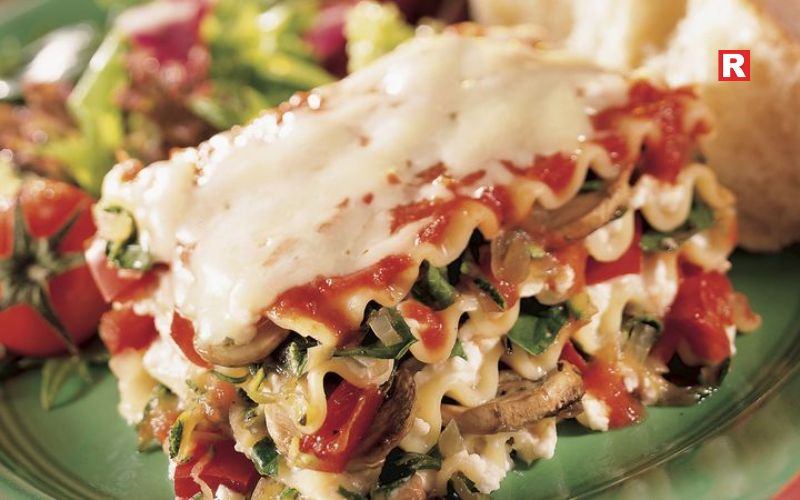
Christmas in Italy is a family affair, and lasagna is a key part of the celebration. Vegetarian lasagna is layered with pasta sheets, tomato sauce, grilled vegetables, béchamel sauce, and cheese. Vegetables like spinach, zucchini, mushrooms, and bell peppers are commonly used. The dish is baked slowly and served in large portions for sharing. It is filling, colourful, and perfect for big gatherings. For Indian families hosting Christmas lunches, veg lasagna works well as a main dish that everyone can enjoy.
4. Stuffed Peppers – Spain
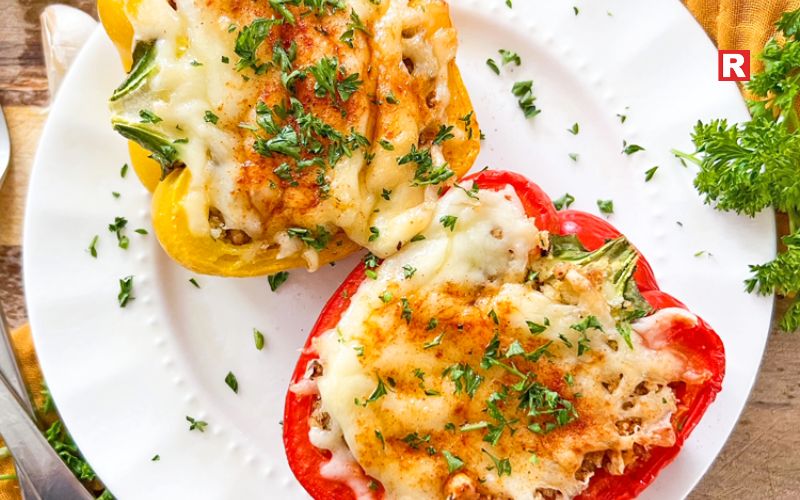
In Spain, stuffed vegetables are popular during festive meals. Bell peppers are filled with rice, vegetables, nuts, herbs, and sometimes cheese. They are baked until soft and slightly charred. The flavours are fresh and balanced. This dish is lighter compared to heavy baked meals but still feels special. Stuffed peppers are also easy to customise. Indian spices like cumin or paprika can be added without changing the core recipe.
5. Mushroom Wellington – Global Christmas Favourite
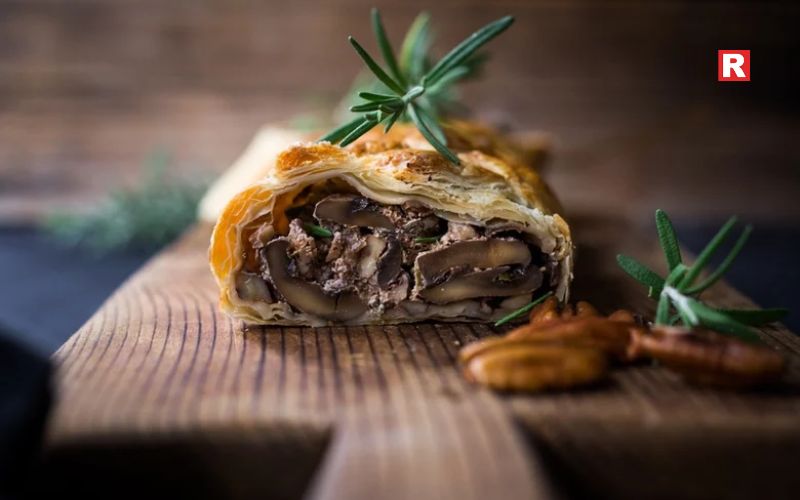
Mushroom Wellington is a modern vegetarian Christmas dish popular in many countries. It is inspired by the traditional Beef Wellington but uses mushrooms as the main ingredient. A mix of mushrooms, garlic, herbs, and sometimes spinach is wrapped in flaky puff pastry and baked until crisp. The inside stays juicy and flavourful. This dish is often the centrepiece of a vegetarian Christmas table. It looks festive and tastes rich. For urban Indian homes, this has become a popular Christmas party dish.
Know more: What is Kimchi? Top Veg Kimchi You Can Try at Home
6. Vegetarian Tamales – Mexico
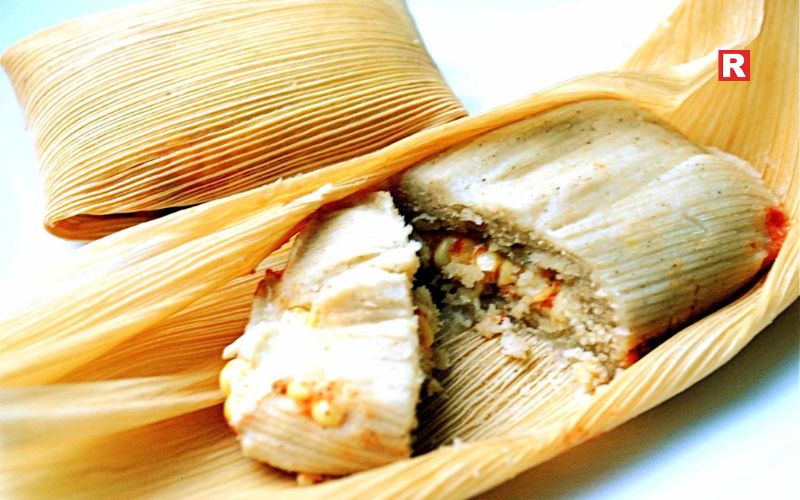
Tamales are a Christmas tradition in Mexico. Families gather to prepare them together. Corn dough is filled with vegetables, beans, cheese, or chillies. The mixture is wrapped in corn husks and steamed. Vegetarian tamales are soft, mildly spiced, and comforting. They are eaten during Christmas and New Year celebrations. The use of corn and steaming makes this dish feel wholesome. It is similar to Indian steamed snacks, which makes it relatable for Indian food lovers.
7. Vegetarian Bibimbap – South Korea

Bibimbap is a rice-based dish topped with seasonal vegetables, fermented sauces, and sometimes tofu. While it is eaten year-round, vegetarian versions are popular during winter family meals. The dish includes spinach, carrots, mushrooms, bean sprouts, and pickled vegetables. Everything is mixed together before eating. Bibimbap is nutritious, colourful, and balanced. It reflects how festive food can also be healthy. This appeals strongly to modern Indian readers who prefer light but satisfying meals.
8. Plum Pudding – United Kingdom
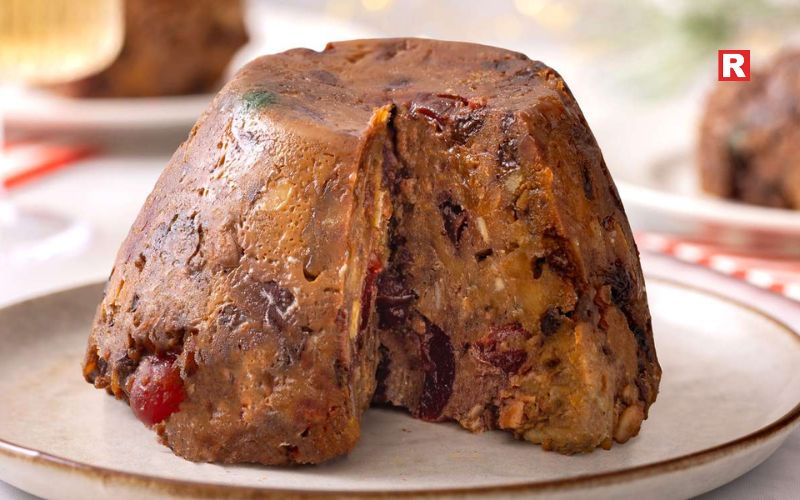
No Christmas list is complete without dessert. Plum pudding is a classic British Christmas sweet. It is made with dried fruits, flour, spices, and vegetarian suet alternatives. The pudding is steamed for hours and allowed to mature. It is served warm with custard or cream. The rich flavours of cinnamon, nutmeg, and dried fruits make it perfect for winter. Indian readers often enjoy this dessert because it feels similar to festive fruit-based sweets.
Why Vegetarian Dishes Are Popular at Christmas
Vegetarian Christmas food is gaining popularity across the world. More people are choosing plant-based meals for health, sustainability, and personal beliefs. Vegetarian dishes are also easier to share and lighter on the stomach during long celebrations. In India, where vegetarian food is widely accepted, global veg Christmas dishes fit naturally into festive menus.
Most vegetarian Christmas dishes use seasonal and comforting ingredients. These include potatoes, mushrooms, rice, lentils, root vegetables, dairy, nuts, dried fruits, and winter spices. These ingredients are affordable, easy to find, and suitable for large family meals.
Also check: High Protein Indian Meals You Should Try
Try These Veg Soups in These Freezing Winters
Top Famous Veg Street Foods in Kolkata That You Must Try Once in Your Life
Final Thoughts
Christmas food is not only about meat. Around the world, vegetarian dishes hold a special place in festive traditions. These dishes bring comfort, warmth, and rich flavours to the table. Many families choose vegetarian food during Christmas for cultural, health, or personal reasons. In countries like the UK, vegetarian roasts are served with vegetables and gravy. In Italy, vegetable lasagna is a popular Christmas meal enjoyed with family. Mexico celebrates Christmas with vegetarian tamales made from corn and vegetables. Each dish reflects local ingredients and long-standing traditions. For Indian households, these global vegetarian dishes feel familiar. They often use vegetables, grains, dairy, and spices that are already part of everyday cooking. At the same time, they add a new festive touch to Christmas celebrations. Trying vegetarian Christmas dishes from different countries adds variety to the menu. It also connects people through shared food traditions. A global vegetarian dish can make Christmas meals more meaningful and memorable.

India’s beverage market is entering a new growth phase, powered by 23 million new legal-age consumers each year and rapidly evolving tastes. From premium gin and craft mixers to new-age, low-alcohol and functional drinks, experimentation is rising fast. Health consciousness, premiumization, and local flavors are reshaping choices. Digital-first brands and experiential consumption are accelerating adoption. These shifts set the stage for six defining trends to watch in 2026.
A shift toward a sharper, more defined cocktail landscape: As experimentation matures, cocktail programs are moving from novelty to clarity. Bartenders are refining flavor profiles, techniques, and storytelling. The result is a more intentional, recognizable, and elevated cocktail landscape in 2026.
“As 2025 draws to a close, the cocktail world resonates with a symphony of flavours, presenting a full-bodied experience that tantalizes the senses. Bartenders have masterfully explored an array of combinations, balancing sweet, bitter, sour, salty, umami, and spicy notes to craft cocktails that cater to every palate,” shared Yangdup Lama, Co-Founder, India Bartender Show and Sidecar by adding that as we look ahead there's hope for a more defined and sophisticated landscape in the coming year, where innovation and tradition will continue to intertwine in pursuit of the perfect sip.
Agave Spirits Set to Take India by Storm: India’s beverage scene has evolved from casual, everyday drinking to a taste for premium and exceptional spirits. Consumers are increasingly seeking quality, craft, and unique experiences. With innovation, experimentation, and growing sophistication, the industry is poised for continued dominance in the years ahead.
“Agave spirits are rapidly emerging as one of the most exciting categories in India. The growth rate is phenomenally high, at almost triple digits. Its versatility and depth of flavour are capturing the imagination of both new and experienced drinkers alike, making it a category that’s here to stay,” shared Rakshay Dhariwal, Founder and Managing Director of Maya Pistola Agavepura and PassCode Hospitality.
At the same time, consumers are gravitating towards premium, craft-driven experiences that combine exceptional taste with authenticity and purpose. Alongside this rise, there’s a growing awareness of sustainability and conscious drinking, with people looking for brands that offer not just exceptional spirits but experiences they can feel good about.
Craft Innovation on the Rise: India’s gin and rum market is expanding rapidly, driven by growing interest in premium and craft variants. Consumers are gravitating toward unique botanicals, artisanal techniques, and locally inspired flavors. Craft producers are redefining standards, making cocktails more inventive and experiences more memorable. The trend points to a vibrant, flavor-forward future for these spirits.
“Gin in India has matured; it’s moved past the initial boom into a phase of steady, confident growth. Consumers know what they like, and Indian gins have earned their place on that list. Rum, on the other hand, feels like it’s having its own craft revolution. You’re seeing distilleries experiment with everything from jaggery-based rums to agricole styles, and bartenders are finally giving rum the kind of creative attention that gin once had. The bigger shift, though, is in how people are drinking it, not just with cola, but with water, soda, or even neat,” pointed Anand Virmani, Co-Founder & Master Distiller, Nao Spirits & Beverages.
India’s Beer Boom: India’s beer market is experiencing strong growth, driven by young, urban consumers and rising disposable incomes. Valued at approximately ₹444.6 billion in 2024, the market is projected to reach ₹802.5 billion by 2033, growing at a CAGR of around 6.7%. Annual consumption is also set to rise sharply, from about 350 million cases in 2022 to nearly 596 million by 2030, as per reports. While lagers continue to dominate, premium and craft beers are gaining traction, reshaping the landscape toward higher quality and greater variety.
“India is adding 23 million new legal-age consumers every year, giving it a growth runway that mature markets like the US and UK no longer have. With a young population and rapidly shifting attitudes, the country is only at the beginning of its beer curve and is now at the centre of a lager renaissance. Craft beer is also evolving from a taproom-led culture to scaled production, supported by globally benchmarked brewing equipment now manufactured in India itself,” mentioned Narayan Manepally, Co-Founder and CEO of Geist Brewing Co.
Bar Scene Expand Beyond Metro: "When I was growing up in Indore, we didn't really talk about cocktails. We went out for dinner, maybe had a drink, but there wasn't this sense of craft or storytelling behind it. That has changed now. People want to experience that same creativity and care in their own neighbourhoods, not just when they travel, and that mindset is shaping everything from how bars are designed to the kind of menus chefs create,” added Vedant Newatia, Founder and Head Chef, Atelier V & Masala Code.
Across India, farm-to-table dining, local ingredients, and single-cuisine menus are all part of this larger shift. But even with this growing appetite for experimentation, people still come back to the classics, to comfort and familiarity.
Low-ABV Spirits Lead: Bartenders are reworking classics into lighter serves, and menus are giving more space to low-alcohol cocktails — showcasing a clear shift towards low-ABV options.
“If there’s one word I would use to describe the 2025 spirit landscape, it would be moderation. Along with moderation, people have also started looking inwards, choosing homegrown labels over imported ones. It’s given a real push to India’s craft spirits movement. If this year is any indication, the years ahead will continue to celebrate craft and authenticity, shaping a new kind of drinking culture that’s proudly and distinctively Indian,” commented Adarsh Gadvi, Founder, Davana Vermouth Indica.
Hence, there’s no denying that India’s beverage scene is at an inflection point, with experimentation, craftsmanship, and conscious choices ushering in a new era of drinking. From premium gins and agave spirits to low-ABV cocktails and craft beers, consumers are seeking quality, authenticity, and memorable experiences. 2026 promises a vibrant, innovative, and distinctly Indian drinking landscape, celebrating creativity, tradition, and the pursuit of the perfect sip.

Eggs are an important part of everyday food in many Indian households as they offer good nutrition at a low cost. They are simple to use. They cook quickly. From boiled eggs in lunchboxes to omelettes for breakfast and egg curries for dinner, eggs fit easily into daily meals. They suit all age groups. They also suit different eating habits and budgets. Over the years, the way people buy eggs has started to change. Earlier, price was the main factor. Today, buyers look at more than just cost. Hygiene has become a key concern. People want eggs that are clean and safely handled. Nutrition also matters more now. Families prefer eggs that are fresh and rich in protein.
Another growing concern is how eggs are produced. Many consumers want to know where their food comes from. They care about farm practices. They care about animal welfare. They care about quality checks and packaging. Because of this shift, branded eggs are gaining popularity across India. These brands offer better handling and clearer information. They follow set quality standards. They also provide consistency in taste and freshness. For many households, branded eggs now feel like a safer and smarter daily choice.
Discover Top Egg Brands in India
1. Eggoz
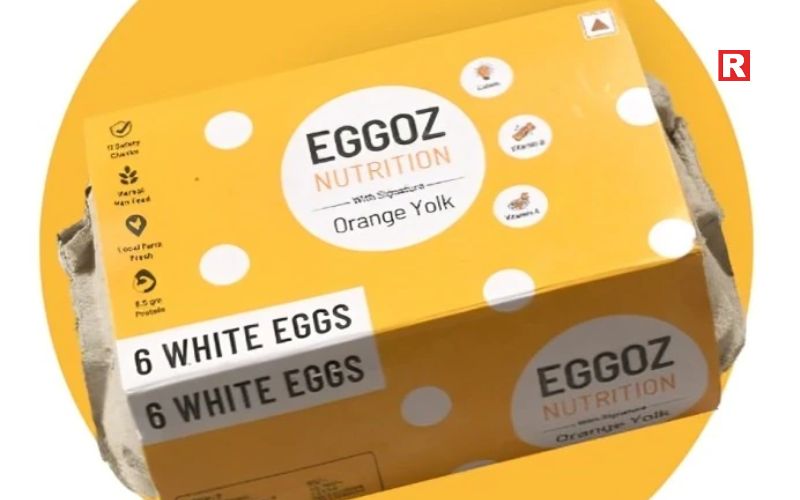
Eggoz is one of India’s well-known modern egg brands. The brand was started with a clear purpose. To make eggs safer for daily use. To improve quality and freshness. Eggoz follows a strong farm-to-home system. Eggs are sourced directly from partner farms and reach stores within 24 hours of laying. This process helps maintain taste and nutrition. The brand focuses on hygiene and careful handling at every stage. Eggoz eggs are clean and well packed. They are easy to find on quick commerce and online grocery platforms. The brand has a strong presence in major cities. It is especially popular among young families and working professionals who value convenience, freshness, and trusted food choices.
Why Eggoz Stands Out
- Antibiotic-free eggs
- Vitamin D and protein-rich variants
- QR-based traceability in select packs
- Strong presence in metro cities
Read more: Top Masala Tea Brands in India: Spices, Flavours, and Comfort in Every Cup
Best Ghee Brands in India: A Complete Guide to Taste, Purity, and Health
2. Nutricharge Eggs by IB Group
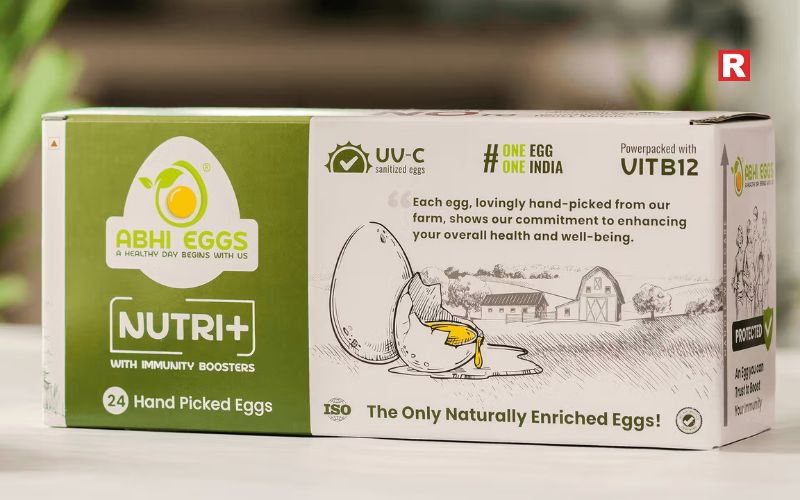
Nutricharge is a well-known name in India’s poultry industry. The brand is backed by IB Group, one of the country’s largest poultry companies. Nutricharge eggs are developed with a focus on everyday nutrition. They are enriched with essential vitamins and minerals that support regular dietary needs. These eggs are made for families who want more nutrition without paying a high premium. The brand maintains consistent quality and wide availability across many cities and towns. Nutricharge eggs suit daily consumption. They are especially preferred by households with children and active adults. For those looking for value, nutrition, and trust, Nutricharge offers a practical and reliable choice.
Key Features
- Fortified with Vitamin D, B12, and Omega-3
- Good for growing children and active adults
- Strong distribution in Tier 2 and Tier 3 cities
3. Happy Hens
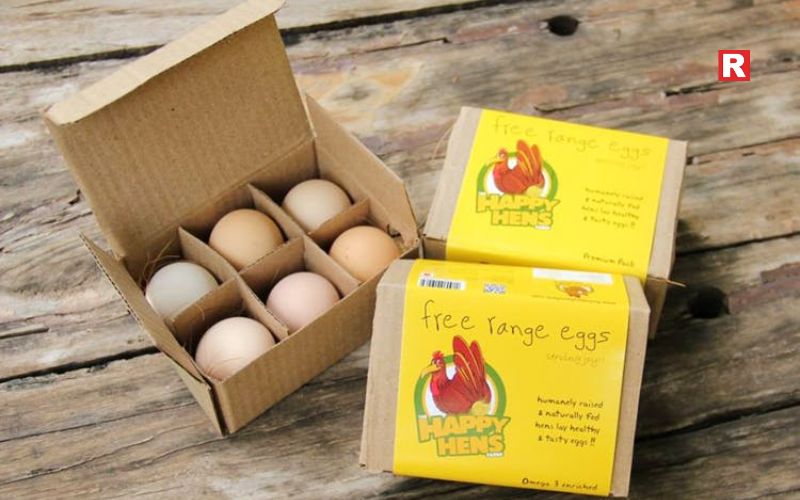
Happy Hens is a brand that focuses on ethical and responsible farming. It is best known for its free-range and organic eggs. The hens are not kept in cages. They are allowed to move freely in open spaces. They are fed natural and organic feed. This approach helps improve egg quality and supports better animal care. The brand follows clean farming practices and clear sourcing methods. Happy Hens has built a strong presence in major urban markets. It is especially popular in cities like Mumbai, Bengaluru, and Delhi. The brand appeals to consumers who value clean eating, sustainability, and mindful food choices in their daily diets.
Why People Choose Happy Hens
- Certified organic eggs
- Cage-free and cruelty-free farming
- Rich yolk colour and natural taste
4. Licious Eggs
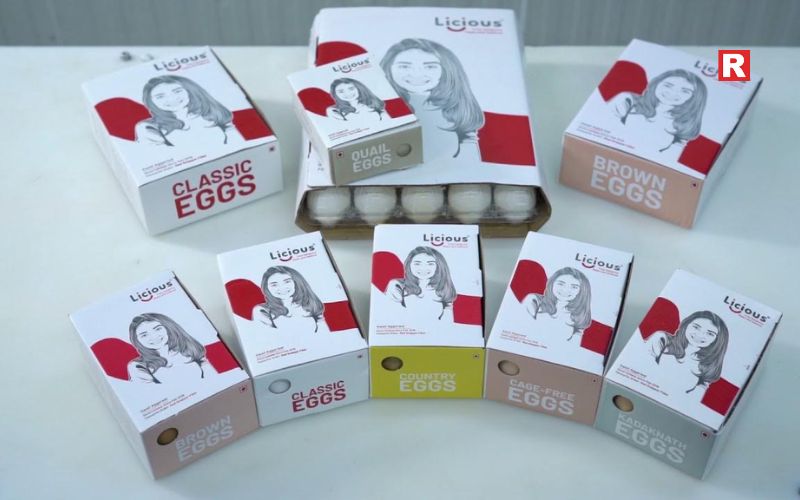
Licious is one of India’s most trusted fresh food brands. The brand is widely known for meat and seafood. It has also built a strong presence in the egg category. Licious follows a controlled sourcing system. It uses a cold-chain process to maintain freshness and safety. Eggs are carefully selected and packed under hygienic conditions. The brand focuses on quality at every stage. This ensures consistent taste and freshness. Licious eggs are delivered fresh to homes in major cities. They are a preferred choice for urban households. Families and working professionals trust the brand for its convenience, clean handling, and premium grocery experience with assured quality.
Brand Strengths
- Strict quality checks and cold-chain handling
- Clean, hygienic, and tamper-proof packaging
- Strong presence in major Indian cities
- Trusted brand for protein-rich foods
Know more: Benefits of Consuming Pink Salt and Top Pink Salt Brands in India
5. Fresho Eggs by Bigbasket
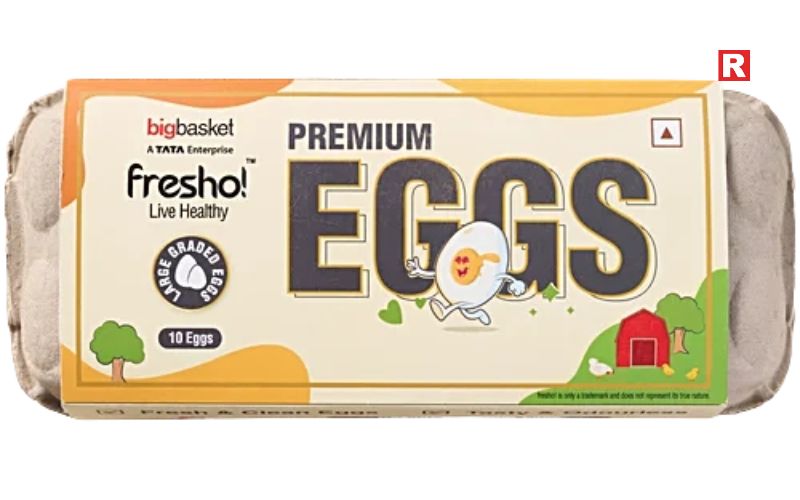
Fresho is the in-house brand of Bigbasket. It is designed to meet the needs of modern urban shoppers. The brand focuses strongly on freshness and convenience. Fresho eggs are sourced from trusted farms that follow basic quality checks. The eggs are cleaned and graded before packing. This helps maintain hygiene and uniform size. Clear packaging and date labels make selection easy. Fresho eggs are delivered through Bigbasket’s online platform. This suits consumers who prefer doorstep delivery. The brand fits well into busy daily routines. It is a reliable choice for households that want consistent quality, easy access, and stress-free online grocery shopping.
What Makes Fresho Popular
- Easy online availability
- Multiple options like white, brown, and cage-free eggs
- Clear packaging and expiry dates
6. Humpy A2 Organic Eggs
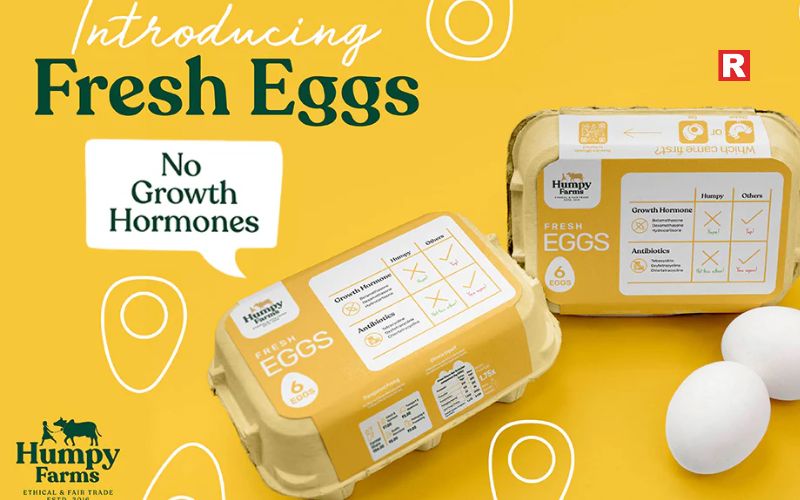
Humpy Farms is widely known for its organic dairy products. The brand follows the same values in its egg range. Humpy eggs come from desi hens raised on certified organic farms. The birds are fed natural feed without chemicals or artificial additives. This helps maintain the natural quality of the eggs. The brand focuses on traditional farming methods and clean food practices. Humpy eggs are often preferred by consumers who believe in simple, natural diets. They are popular among people who follow traditional Indian food habits and holistic wellness lifestyles. For those seeking organic and naturally produced eggs, Humpy Farms offers a trusted option.
Key Highlights
- Organic and desi eggs
- Focus on natural farming
- Popular among health-conscious buyers
Brown Eggs vs White Eggs: Which Is Better?
This is a common question in India. The colour of the egg shell does not decide nutrition. Brown eggs come from different hen breeds. White eggs come from others. Free-range and organic eggs may have slightly higher nutrient levels. But regular eggs are also healthy if sourced properly.
What matters more is:
- The hen’s diet
- Living conditions
- Farm hygiene
Also check: Top Premium Dark Chocolate Brands in India
Dal Baati Churma: The Famous Comfort Dish of the Indian Subcontinent
Best Organic Honey Brands in India: Pure, Natural, and Worth Your Money
Stay Healthy!
Eggs may look like a basic food item. But the choice of eggs plays an important role in daily health. In recent years, Indian consumers have started paying closer attention to what they eat. This shift has changed the way eggs are bought across the country. Well-known brands such as Eggoz, Nutricharge, Happy Hens, Licious, Fresho, and Humpy are reshaping the egg market in India. These brands focus on food safety. They follow hygiene standards. They offer better handling and packaging. Many of them also provide options like nutrient-rich, cage-free, or organic eggs. Today, buyers can choose eggs based on their needs. Some prefer affordable eggs for daily use. Others look for premium or organic options. Both are now easily available. Price is no longer the only factor. Quality matters. Freshness matters. Trust matters. The next time eggs are added to the shopping list, looking at the brand and the pack can make a real difference to everyday nutrition.

Masala tea is more than just a drink in India. It is warmth, aroma, and culture poured into a cup. For decades, this spiced tea has been part of everyday life. From bustling railway stations to quiet homes, from office tables to street corners, masala chai connects people across the country. The magic of masala tea lies in its simplicity. Tea leaves, milk, sugar, and a mix of aromatic spices create a flavour that is rich and comforting. Ginger, cardamom, cloves, cinnamon, and black pepper are some of the most common ingredients. Each spice adds its own touch. Some soothe, some energize, and all bring warmth to your day.
In India, masala tea is not just a drink. It is a ritual. Many enjoy it during mornings, evenings, or even after meals. The aroma of spices fills the air and creates a sense of comfort that no other beverage can match. Over time, several brands have mastered the art of making masala tea. They offer blends that suit every taste and preference.
Why Masala Tea is Loved
Masala tea has won hearts for many reasons. One is its taste. The combination of tea leaves and spices gives a bold, refreshing, and slightly sweet flavour. It is strong enough to energize but smooth enough to enjoy slowly.
Another reason is health. Many spices used in masala chai have medicinal benefits. Ginger can improve digestion and fight cold. Cardamom helps with metabolism and adds a sweet aroma. Cloves and black pepper can improve immunity and circulation. This makes masala tea a drink that is both comforting and beneficial. Masala tea also carries a cultural connection. Every region has its version. In Maharashtra, chai is often strong and aromatic. In Gujarat, it may be slightly sweet with more spices. In North India, ginger and cardamom dominate. This regional diversity makes exploring masala tea exciting.
Explore Top Masala Tea Brands in India
1. Tata Tea Premium
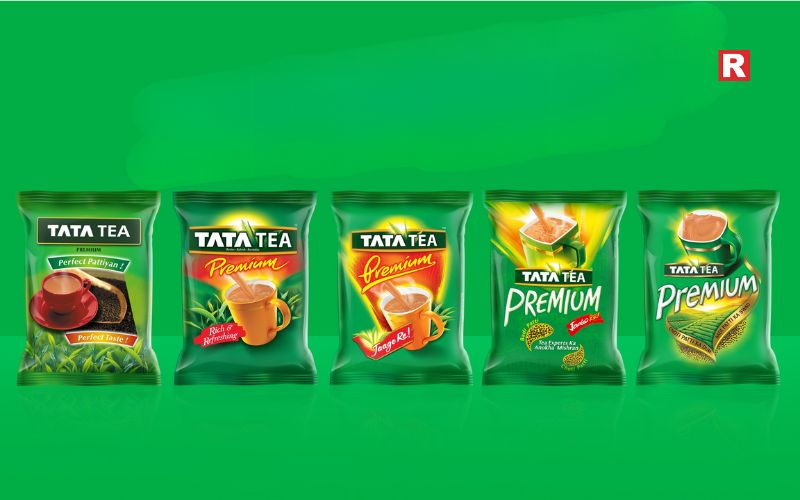
Tata Tea has been part of Indian homes for many decades. It is a brand built on trust and everyday comfort. Tata Tea Premium is known for its strong taste and bold character. It suits Indian mornings well. The tea wakes the senses and sets the tone for the day. The masala blend is warm and familiar. Spices like ginger and cardamom add depth without overpowering the tea. The flavour feels balanced and consistent. Tata Tea Premium works well for families with different taste choices. It pairs easily with milk and sugar. The aroma feels comforting and homely. Its wide availability makes it a daily staple across cities and towns. From small kitchens to office pantries, it fits everywhere. Tata Tea Premium reflects routine, reliability, and the simple joy of a well-made cup of masala chai.
Read more: What is Kimchi? Top Veg Kimchi You Can Try at Home
6 Benefits of Drinking Black Coffee
2. Brooke Bond Red Label Masala Tea

Brooke Bond Red Label is one of India’s most recognised tea brands. It has been trusted across generations. Red Label masala tea is known for its strong and full-bodied taste. The flavour is bold and instantly familiar. The spice mix adds warmth and aroma to every cup. It suits people who enjoy a powerful chai experience. The tea leaves brew well and hold their strength with milk. Red Label masala tea works for quick tea breaks and long conversations alike. It is often served to guests without second thought. The taste feels comforting and reliable. Many Indian households associate it with togetherness and routine. The aroma fills the room quickly. Red Label continues to remain relevant because it delivers what people expect. A strong cup. A rich taste. And the feeling of home.
3. Society Tea Masala
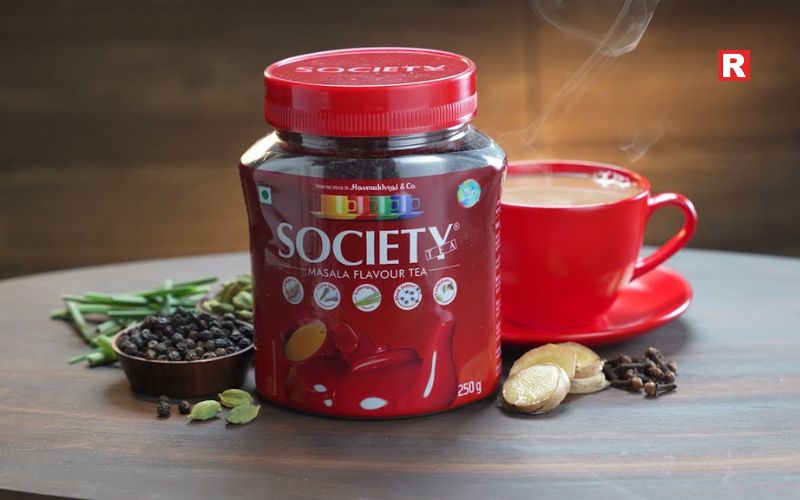
Society Tea holds a special place in Maharashtra. It is a brand with a loyal following. Society Tea masala is known for its distinct aroma and smooth finish. The flavour feels strong but never harsh. The spice balance is carefully crafted. It enhances the tea without masking its natural taste. Society Tea focuses on freshness at every step. The tea leaves feel rich and clean. The masala blend suits daily consumption. It works well for early mornings and evening breaks. Many tea lovers prefer it for its consistent quality. The taste remains stable across batches. Society Tea masala pairs well with snacks like biscuits or farsan. It reflects the everyday chai culture of western India. Simple. Honest. And full of character. For many households, Society Tea is not a choice. It is a habit.
4. Wagh Bakri Masala Tea
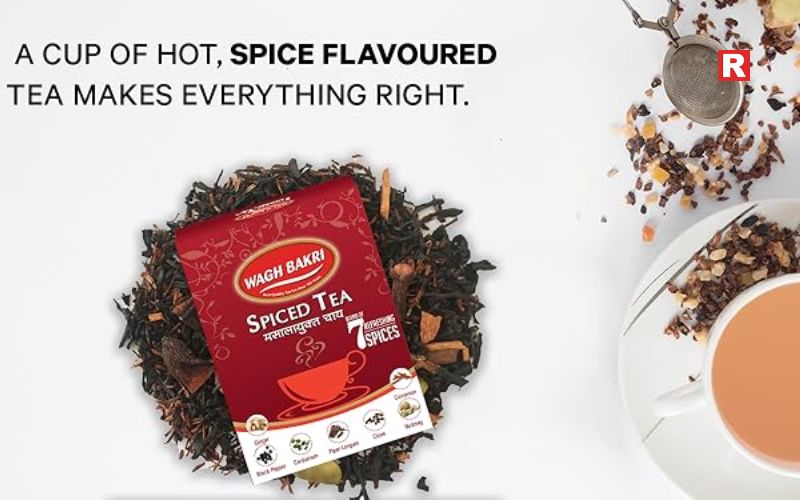
Wagh Bakri is a well-loved tea brand across Gujarat and beyond. It stands for quality and care. Wagh Bakri masala tea offers a rich and smooth experience. The flavour feels rounded and comforting. The spice mix is warm but not sharp. It blends easily with milk and sugar. The tea leaves brew evenly and release a pleasant aroma. Wagh Bakri focuses on balance. Neither the tea nor the spices dominate the cup. This makes it suitable for regular drinking. Families often choose it for its gentle strength. The taste appeals to different age groups. It feels refined yet familiar. Wagh Bakri masala tea fits both relaxed mornings and quiet evenings. It reflects consistency and trust. A cup that feels thoughtful. And one that keeps people coming back.
Know more: 7 Desi Alternatives to Oatmeal for Weight Loss
5. Organic India Masala Chai
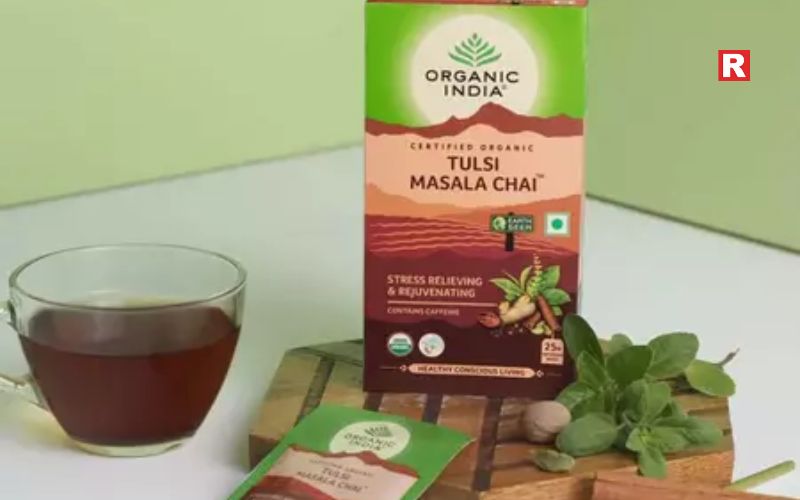
Organic India masala chai is made for mindful tea drinkers. The brand focuses on purity and wellness. It uses organic tea leaves and natural spices. The ingredients are carefully sourced. The taste feels clean and soothing. The spice mix is gentle and aromatic. It supports digestion and overall comfort. Organic India avoids artificial flavours. This makes the tea feel light and natural. The flavour does not feel heavy. It suits people who prefer softer masala notes. The tea works well for slow sipping. It is often enjoyed during calm moments of the day. Health-conscious consumers trust the brand for its values. Organic India masala chai proves that taste and wellness can go together. It offers warmth without excess. And flavour without compromise. A cup that feels thoughtful and balanced.
6. Tea Trunk Masala Chai
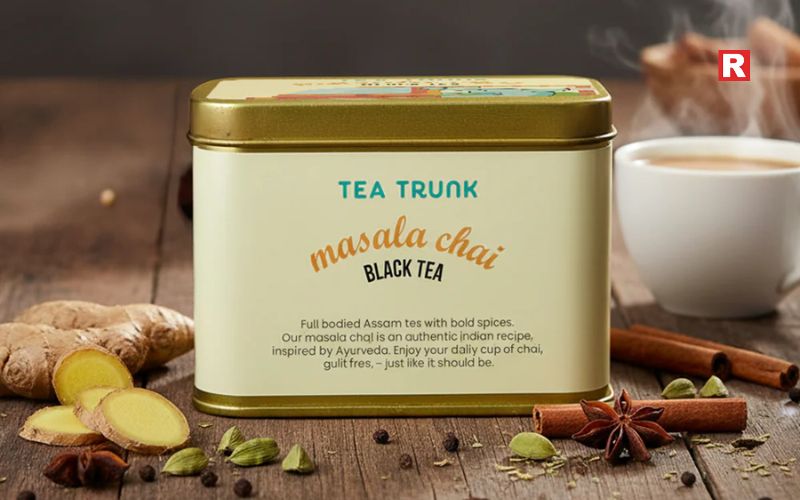
Tea Trunk represents modern artisanal tea culture. It focuses on quality and craft. Tea Trunk masala chai is a premium blend. It combines fine tea leaves with traditional Indian spices. The flavour feels layered and rich. Each sip reveals depth. The spices are bold yet refined. The tea feels fresh and aromatic. Tea Trunk sources its ingredients from select gardens. This ensures consistency and quality. The masala chai suits those who enjoy slow, mindful brewing. It is often chosen for special moments. The experience feels indulgent but authentic. Tea Trunk brings a contemporary touch to a classic drink. It respects tradition while adding finesse. For tea lovers seeking something unique, this masala chai stands out. It turns a simple cup into a memorable ritual.
How to Enjoy Masala Tea Like a Pro
Brewing masala chai is an art. Here are some tips to get the perfect cup:
- Use fresh water and good quality milk.
- Adjust spice mix and sugar according to taste.
- Let the tea simmer for a few minutes to release full aroma.
- Pair with snacks like biscuits, namkeen, or pakoras for a true chai-time experience.
- Experiment with regional variations—add more ginger, cardamom, or even fennel seeds.
A well-brewed cup of masala tea is more than a drink. It is a sensory experience. The aroma fills the room, the warmth comforts the hands, and the flavours dance on the palate.
Also check: Try These Veg Soups in These Freezing Winters
Top 10 Vegan Street Foods in India Every Indian Loves
Best Ghee Brands in India: A Complete Guide to Taste, Purity, and Health
Find Your Favourite Brew
India’s masala tea scene is rich and diverse. Each brand offers something special. From traditional favourites like Red Label and Society Tea to premium blends from Tea Trunk and Organic India, there is a chai for every taste. Finding your favourite may take some tasting, but every cup is worth it. Masala tea is not just about flavour. It is culture, comfort, and care in a cup. Whether for mornings, evenings, or gifting to loved ones, these top masala tea brands deliver quality, aroma, and the true taste of India. So, brew a cup, take a moment, and enjoy the magic of masala chai. Every sip tells a story of tradition, craftsmanship, and the love of tea that India has cherished for generations.

Winter in India has its own charm. Mornings are foggy. Nights are cold. The body naturally craves warm and nourishing food. This is the season when digestion slows down and immunity needs extra care. A hot bowl of vegetable soup fits perfectly into this routine. It is light. It is comforting. It is full of nutrients.
Vegetable soups can be a complete meal on cold days. They keep the body warm. They help in hydration. They are easy to digest and suitable for all age groups. From busy professionals to elderly family members, veg soups work for everyone during winter. In Indian homes, soups are slowly becoming a winter staple. Seasonal vegetables are easily available. Indian spices add warmth. And the recipes are simple enough to make on weekdays.
Here are some of the best vegetarian soups to try this winter.
1. Tomato Soup
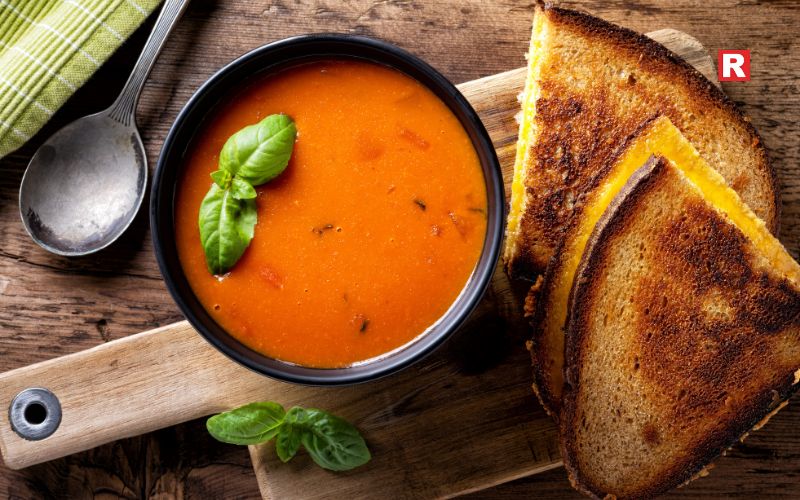
Tomato soup is a classic winter favourite. It is light but flavourful. Tomatoes are rich in lycopene, an antioxidant that supports immunity and heart health. During winter, fresh tomatoes are easily available and taste better. A warm bowl of tomato soup helps fight seasonal cold. Adding garlic, black pepper, and a pinch of cumin increases its warming effect. Many Indian households prefer a slightly spicy version rather than the sweet café-style soup. Tomato soup works well as an evening snack or a light dinner. It pairs well with whole wheat toast or roasted makhana.
Read more: 5 Cities That Serve the Best Non-Vegetarian Street Food
7 Desi Alternatives to Oatmeal for Weight Loss
2. Sweet Corn Vegetable Soup
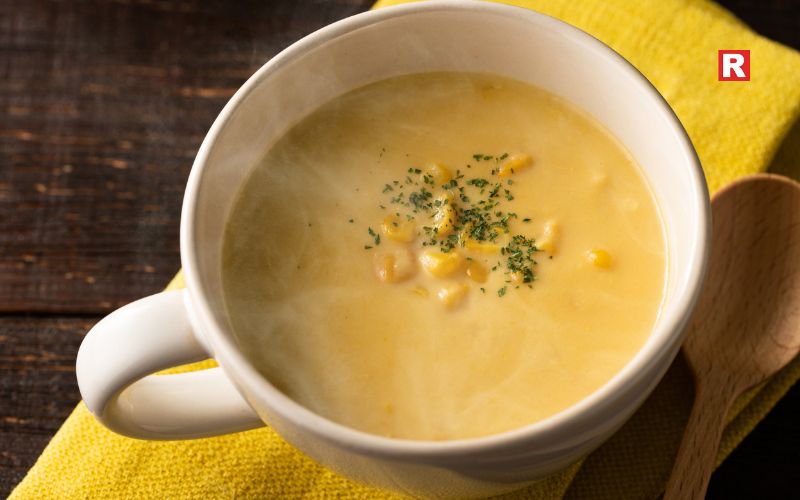
Sweet corn soup is one of the most loved winter soups in India. It is comforting and filling. Corn provides natural sweetness and energy, which helps the body stay active in cold weather. This soup usually includes carrots, beans, and spring onions. These vegetables add fibre and vitamins. It is easy on the stomach and suitable for children and elderly people. Sweet corn vegetable soup is especially popular during cold evenings. It is often served hot with a dash of pepper and a little ginger for extra warmth.
3. Mixed Vegetable Soup
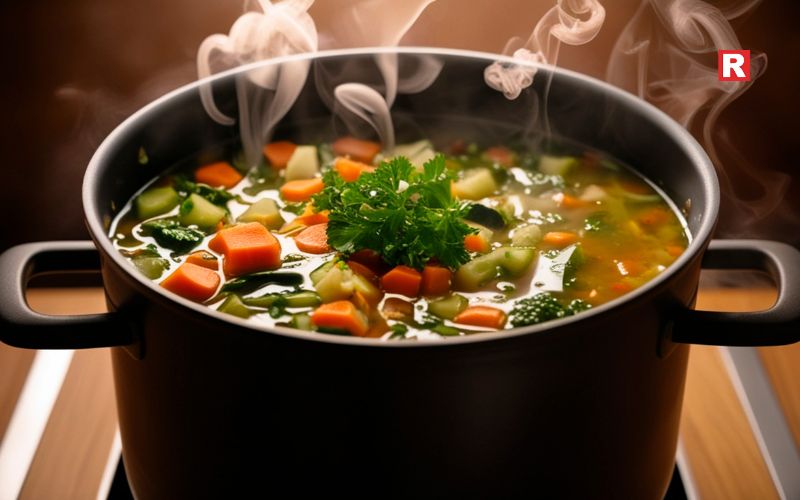
Mixed vegetable soup is a nutrition-packed winter bowl. It uses seasonal vegetables like carrot, cabbage, cauliflower, beans, peas, and spinach. Winter vegetables are fresher and richer in nutrients. This soup is high in fibre, vitamins, and minerals. It supports digestion and helps keep immunity strong. It is ideal for those looking for a healthy daily meal option. For Indian kitchens, mixed vegetable soup can be flavoured with bay leaf, pepper, garlic, and mild Indian spices. It can be enjoyed as a light lunch or dinner.
4. Mushroom Soup
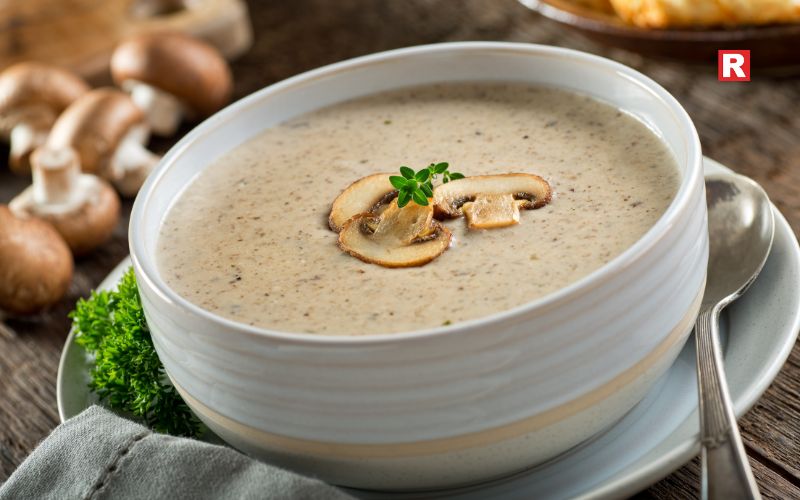
Mushroom soup is rich and satisfying. Mushrooms are high in protein, B vitamins, and antioxidants. They help keep you full for longer and support gut health. During winter, mushroom soup feels extra comforting. Its earthy flavour works well with garlic and pepper. Many people prefer a slightly thick consistency without heavy cream. This soup is a good choice for those looking for a hearty yet vegetarian winter meal. It works well for dinner, especially when paired with multigrain bread.
5. Spinach Soup (Palak Soup)
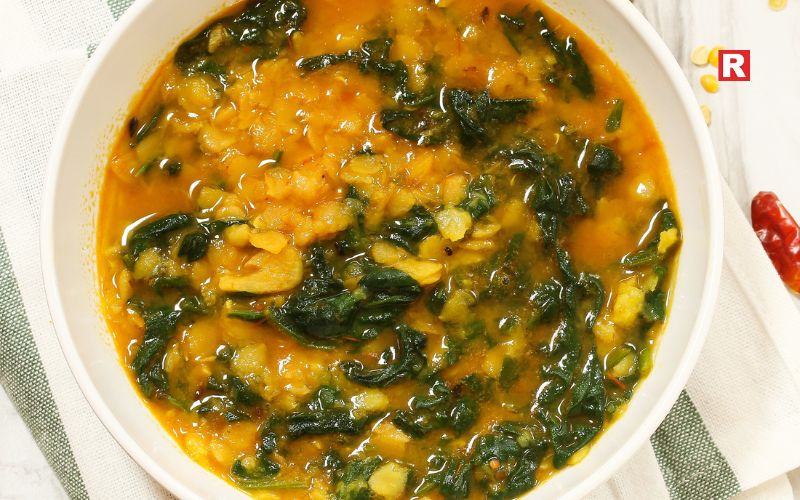
Spinach soup is light but highly nutritious. Spinach is rich in iron, vitamin C, and folate. These nutrients help fight winter fatigue and weakness. Palak soup is easy to digest and soothing for the stomach. It is ideal for people recovering from cold or flu. Adding garlic, cumin, and pepper enhances both taste and health benefits. In Indian households, palak soup is often preferred over heavy meals during winter nights. It keeps the body warm without feeling heavy.
Know more: 5 Ways to Use Garden Cress Seeds (Halim) for Stronger Hair and Bones
6. Pumpkin Soup
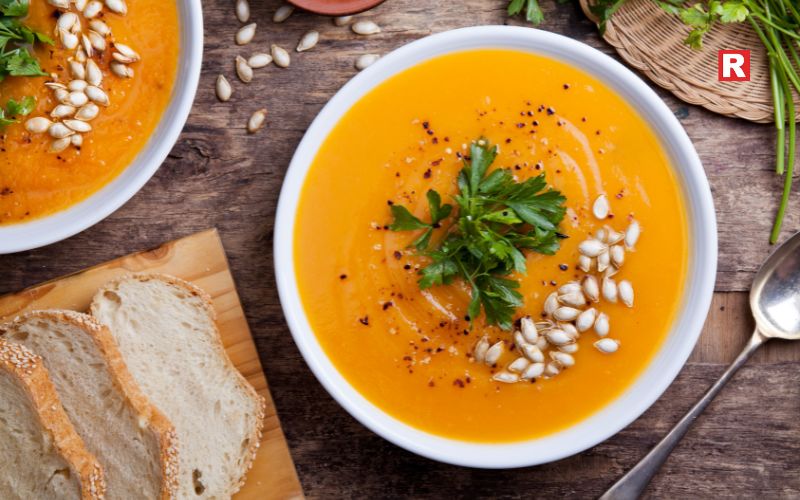
Pumpkin soup is naturally creamy and mildly sweet. Pumpkin is rich in beta-carotene, which supports eye health and immunity. It is also low in calories and high in fibre. This soup does not need cream to taste rich. Slow cooking brings out the natural flavour of pumpkin. Ginger and pepper add warmth and depth. Pumpkin soup is perfect for cold winter nights. It is filling yet light and suitable for those watching their weight.
7. Lentil Vegetable Soup
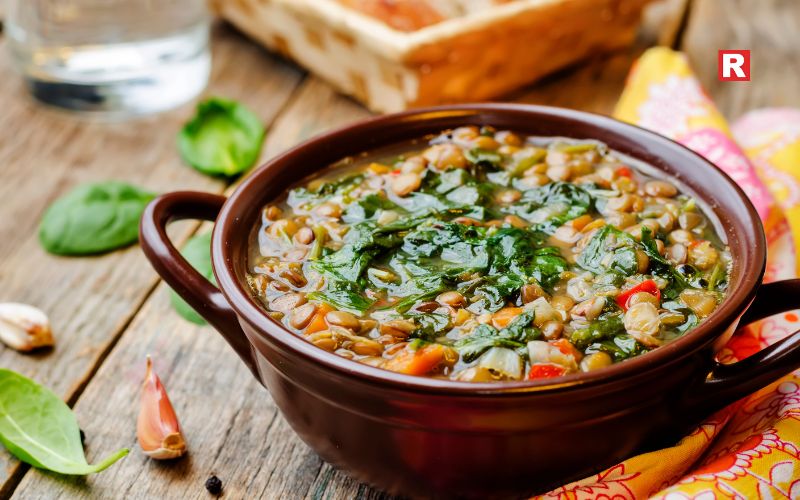
Lentil vegetable soup is one of the most nourishing winter soups. Lentils provide plant-based protein and iron. When combined with vegetables, they create a complete meal. This soup keeps the body warm for longer. It is ideal for people who need sustained energy during winter days. Lentil soups are also great for digestion. Indian-style lentil vegetable soup can include moong dal or masoor dal with carrots, tomatoes, and mild spices. It is wholesome and comforting.
Why Veg Soups Are Ideal for Indian Winters
Vegetable soups suit the Indian climate and lifestyle. They use local and seasonal produce. They are budget-friendly and easy to prepare. Most importantly, they support the body during seasonal changes.
Hot soups improve digestion, which tends to slow down in winter. They also help maintain hydration, as people often drink less water in cold weather. Soups provide fluids in a warm and comforting form. Vegetarian soups are also versatile. They can be made spicy or mild. Ingredients can be adjusted based on availability and taste. This makes them suitable for everyday meals.
Health Benefits of Eating Veg Soups in Winter
Veg soups help boost immunity. Seasonal vegetables are rich in vitamins and antioxidants. Warm liquids soothe the throat and reduce cold symptoms. They are easy on the stomach and help reduce bloating. Soups also help in weight management, as they are filling but low in fat. For working professionals, soups make quick and healthy dinners. For families, they are a great way to include more vegetables in daily meals.
- Use fresh, seasonal vegetables.
- Avoid excess cream or butter.
- Add Indian spices like ginger, garlic, and pepper.
- Use homemade vegetable stock when possible.
These small steps make soups more nutritious and flavourful.
Also check: Top 5 States With the Spiciest Food in India
5 Foods to Avoid for Better Cholesterol
10 Dry Fruits You Should Eat After Menopause—Natural Boosters for Stronger Bones
For A Warm Winter!
Winter is the best season to enjoy vegetable soups. Cold mornings and chilly nights make the body crave warm food. A hot bowl of soup brings instant comfort. It also helps the body stay nourished and hydrated during winter. Vegetable soups suit Indian winters well. They are light on the stomach and easy to digest. Seasonal vegetables add natural flavour and higher nutrition. Tomato soup offers warmth and immunity support. Sweet corn soup feels filling and soothing. Mixed vegetable soup provides fibre and daily nutrition. Lentil vegetable soup works as a complete meal and keeps the body warm for longer. Veg soups are simple to prepare and budget-friendly. They fit easily into busy routines. They are suitable for all age groups. In Indian homes, soups are more than starters. They are a source of comfort, care, and warmth. Served hot, they make winter meals healthier and more satisfying.

Dal Baati Churma tells the story of India’s culture, climate, and traditions. The dish originated in Rajasthan, a desert state where life was tough and resources were limited. Despite its simple ingredients, it is rich in taste and has become one of the most loved dishes across the Indian subcontinent. Dal Baati Churma reflects how food in India is influenced by the land and lifestyle. Baati, a hard wheat ball, could be baked and stored for long periods. Dal, made with lentils and spices, provided protein and warmth. Churma, sweet and crumbly, balanced the flavours. Together, they created a complete and satisfying meal.
In a country where food changes every few kilometres, this dish stands out as a symbol of strength, hospitality, and warmth. It is filling, comforting, and perfect for sharing. From royal kitchens to village homes, Dal Baati Churma has travelled through generations without losing its essence. It remains a dish that brings people together, celebrates tradition, and honours the ingenuity of Indian cooking.
The Origin of Dal Baati Churma
Dal Baati Churma was born in the desert regions of Rajasthan. Life in the Thar Desert was tough. Water was scarce. Fresh vegetables were not always available. People needed food that could last long and give high energy. This is where baati came in. Hard wheat balls were baked until firm. They did not spoil easily. Warriors and travellers carried them on long journeys. Dal was cooked slowly using lentils that were easy to store. Churma added sweetness and balance. Many food historians believe Rajput warriors relied on this meal during battles. The use of ghee gave strength and stamina. Over time, what began as survival food became a royal delicacy.
Cultural Importance in Indian Homes
Dal Baati Churma holds a special place in Rajasthani culture. It is served during weddings, festivals, and family gatherings. No traditional Rajasthani thali feels complete without it. In villages, it is still cooked using traditional methods. Baatis are roasted over firewood or cow dung cakes. This gives them a smoky flavour that modern ovens cannot fully match. Serving Dal Baati Churma is also a sign of respect. Guests are offered extra ghee and warm dal. Refusing it is often seen as impolite. The dish reflects the generous spirit of Rajasthan.
Read more: 8 Famous Vegetarian Dishes of Uttar Pradesh and Their Timeless Legacy
5 Cities That Serve the Best Non-Vegetarian Street Food
Understanding the Three Elements
Dal Baati Churma is not one dish. It is three different preparations that come together beautifully.
Dal: The Heart of the Meal
The dal is thick, rich, and full of flavour. It is usually made using a mix of lentils. Common choices include toor dal, chana dal, moong dal, and urad dal. The lentils are slow-cooked until soft. Garlic, cumin, red chilli, and asafoetida are added. Ghee is used generously. The result is a dal that is spicy but balanced. Each household has its own dal recipe. Some like it very spicy. Others keep it mild. This flexibility makes the dish personal and comforting.
Baati: The Rustic Bread
Baati is made from coarse wheat flour. The dough is firm and shaped into round balls. Traditionally, baatis are baked in open fire or buried in hot sand. Once cooked, the baati is hard on the outside and soft inside. It is cracked open and soaked in desi ghee. This step is essential. Without ghee, baati feels incomplete. Baati represents simplicity. No yeast. No fermentation. Just flour, water, and patience.
Churma: The Sweet Balance
Churma adds sweetness to the meal. It is made by crushing baked baatis or using wheat flour dough fried in ghee. The crushed mixture is blended with jaggery or sugar. Dry fruits like almonds and raisins are added. Cardamom gives a light aroma. Churma balances the spicy dal and rich baati. It turns the meal into a complete experience.
Dal Baati Churma Across the Indian Subcontinent
While the dish belongs to Rajasthan, it is now popular across India. In Gujarat, baati is often served with a slightly sweeter dal. In Madhya Pradesh, the dish is a staple in many homes.
In cities like Delhi, Mumbai, and Jaipur, Dal Baati Churma is a star attraction in Rajasthani restaurants. It is also common at wedding buffets and food festivals. Modern kitchens now offer baked versions with less ghee. Some restaurants experiment with millet baatis or stuffed baatis. Yet, the traditional version remains the most loved.
Know more: Pani Puri Has Different Names in Different Indian States—Know Them All
Best Way to Serve Dal Baati Churma
Dal Baati Churma is a traditional Rajasthani dish best enjoyed fresh and hot. The baati, a round baked wheat ball, is first broken into pieces. Warm dal is poured over the baati, and a generous amount of ghee is added on top, making it rich and flavorful. Churma, the sweet element of the meal, is served separately. Many people enjoy eating small portions of churma between bites of dal and baati to balance the spice and savouriness. The meal is often accompanied by simple sides that enhance its taste and aid digestion:
- Garlic chutney – adds a spicy kick
- Onion salad – offers freshness and crunch
- Buttermilk – helps soothe the palate and aids digestion
Dal Baati Churma is not just food; it is a celebration of flavours, textures, and tradition. Every bite reflects the rich culinary heritage of Rajasthan and its simple yet hearty cooking style.
A Dish That Reflects Indian Food Wisdom
Dal Baati Churma shows how Indian food is deeply connected to geography and lifestyle. It proves that simple ingredients can create rich flavours. The dish teaches balance. Spicy, sweet, crunchy, and soft elements come together in harmony. In today’s fast food world, Dal Baati Churma reminds us of slow cooking and mindful eating. It encourages sharing and togetherness.
Also check: 7 Desi Alternatives to Oatmeal for Weight Loss
Top Famous Veg Street Foods in Kolkata That You Must Try Once in Your Life
What is Kimchi? Top Veg Kimchi You Can Try at Home
Your Desi Comfort!
Dal Baati Churma is more than just a dish. It is a symbol of India’s rich heritage. The meal originated in the deserts of Rajasthan, where people needed food that was filling, long-lasting, and easy to make. Over time, it became a favourite in royal kitchens and village homes alike. Dal Baati Churma is made of three parts: spicy dal, baked baati, and sweet churma. Each element tells a story of tradition and care. The baati is hard on the outside and soft inside, while the dal is warm and comforting. Churma adds sweetness to balance the flavours. Today, the dish is celebrated across India. It is served at festivals, weddings, and in restaurants. Every plate reflects survival, celebration, and togetherness. For anyone who wants to experience Indian food culture, Dal Baati Churma is the perfect introduction. Its taste, history, and warmth make it unforgettable.

In cities like Delhi and Bengaluru, the cafe market is not just booming; it has reached saturation. New spots open every week, and offering a good cup of coffee is no longer enough to guarantee footfall or loyalty. As competition intensifies and customer’s behaviour shifts, founders across the industry are steadily moving away from beverage-first formats and leaning toward cafés built around fuller, more substantive food menus.
Estimates from October 2025 suggest India now operates 60,000 and 70,000 cafés, with 92.59 per cent being single-owner operations. Another report from September 2025 notes that the branded coffee shop market reached 5,339 outlets, growing 12.7 per cent in the previous year. With so many cafés clustered in the same neighbourhoods, standing out has become harder and food is emerging as one of the most effective differentiators.
Sagar Kukreja, co-founder of Green Door Café in Bengaluru, sees this shift clearly. “I would say that sales for us is almost 50–50 when it comes to food and beverages,” he said. Even single customers rarely come in for just a drink. “A coffee may be priced at an average of Rs 250, but food is priced at an average of around Rs 350-400. So, it obviously doubles and increases your average order value,” he added.
This reflects broader consumer behaviour. About 24 per cent of Indians visit coffee shops daily, and 57 per cent do so weekly. Cafés have become workspaces, meeting points, and evening hangouts.
For Kukreja, food is also what keeps people coming back. “Food definitely becomes a reason for customer retention,” he said, adding, “Customers today are very conscious of what they're eating, and that has changed the entire cafe industry.” At Green Door, food is positioned as “a meal,” not just an add-on. Dishes like pastas and toasties often replace lunch or dinner, contributing significantly to higher ticket sizes.
Operating a kitchen, however, changes the cost equation. “The cost of running a full kitchen is definitely higher. It’s almost 1.5 times the cost of running a beverage-only setup,” he mentioned. But despite higher costs, food drives more revenue. Kukreja estimated his ratio is roughly 40:60 in favour of food.
From Coffee Shop to All-Day Breakfast Destination
For Nathan Lee Harris, owner of Bengaluru’s iconic Hole in the Wall Café, food has always been central. “Well, I think at least for us personally, the food sells more than the beverages. We simply didn’t want to be known as a beverage-first brand,” he said.
When he opened 15–16 years ago with just four or five tables, many assumed the place was a coffee shop. That perception pushed him to take a deliberate approach. “We had to intentionally stay away from doing beverages like lattes and cappuccinos in our menu because we never wanted to be a beverage-first cafe,” he remembered.
Over time, Bengaluru’s breakfast culture helped redefine the cafe’s identity. “We just didn’t think people woke up early enough to come out for breakfast. But we were very wrong about that. We’ve managed to wake Bangalore up early,” Harris recalled. Hole in the Wall’s evolution into a popular all-day breakfast spot mirrors a broader shift: consumers increasingly seek substantial meals even in a more casual café setting.
The Big Picture
India’s cafés and bars market, projected to grow from USD 18.8 billion in 2025 to nearly USD 30 billion by 2030, continues to expand as consumers seek accessible “third spaces.” But rapid growth also means tougher competition.
In this environment, beverage-only formats struggle with lower upsell, smaller ticket sizes, and shorter dwell times. As Kukreja noted, “In a one-kilometre radius, you already have 35 cafes. So, you know they’re all serving good coffee, but how do you compete?”
More cafés are finding their edge in stronger food identities and focused menus. Harris added, “Small restaurants work brilliantly well, especially when they offer focused menus and full meals, not vast lists of drinks.”
As expectations rise and margins tighten, India’s café boom is becoming less about the brew and more about the plate beside it.

France is known for food that is rich, elegant, and full of history. Many Indian travellers assume that French cuisine is mostly about meats, seafood, and wine. But the truth is different. France has a strong vegetarian side rooted in its local farms, regional traditions, and family-style cooking. From warm cheese dishes to vegetable-based meals, France offers unique flavours that can fit perfectly into a vegetarian lifestyle.
This guide highlights the top French vegetarian dishes that are both authentic and easy to find. These dishes are ideal for travellers who want to experience local food without worrying about ingredients. Each dish has its own regional story, cooking style, and comfort factor. For Indian travellers who love fresh vegetables, warm flavours, and creamy textures, these five dishes offer a memorable taste of France.
Explore Top French Vegetarian Dishes You Can Try
1. Ratatouille: The Heart of Provence
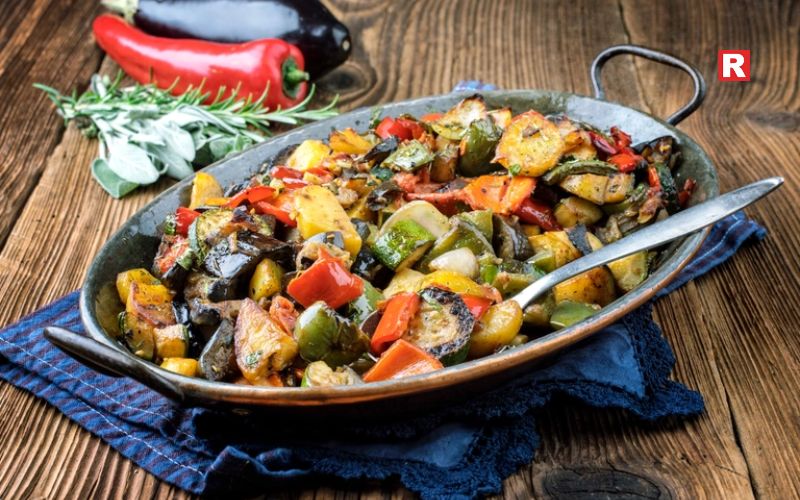
Ratatouille is one of the most famous vegetarian dishes in France. It comes from Provence, a sunny region in the south known for herbs and fresh produce. The dish is made with simple vegetables: tomatoes, zucchini, eggplant, bell peppers, garlic, and olive oil. The vegetables are cooked slowly until they blend into a soft, flavourful mix. For Indian travellers, Ratatouille feels familiar. The cooking style is somewhat similar to Indian sabzi, especially dishes where vegetables are gently simmered with spices. The herbs used in Ratatouille—thyme, rosemary, and basil—give it a fresh aroma that reminds many people of Mediterranean food. It can be enjoyed as a main dish, a side, or even with bread. In France, each household has its own way of cooking Ratatouille. Some chop the vegetables finely. Others slice them neatly, just like the modern-style Ratatouille shown in films. No matter the style, the dish remains a celebration of vegetables.
Read more: 5 Main Types of French Wine You Must Know
8 Famous Vegetarian Dishes of Uttar Pradesh and Their Timeless Legacy
2. French Onion Soup (Vegetarian Version): A Warm Parisian Classic
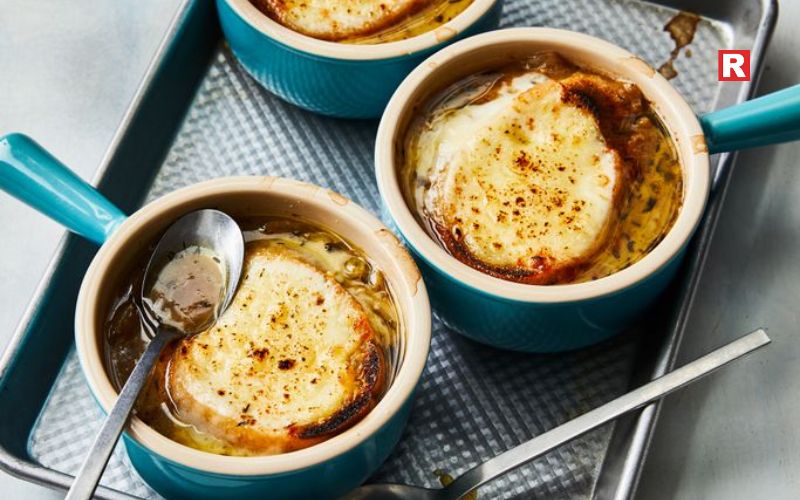
French Onion Soup is one of the most iconic dishes in Paris. Traditionally, it is made with beef broth. But most restaurants today offer vegetarian versions made with vegetable stock. This makes it a great choice for vegetarian travellers who want to try an authentic French classic. The dish is simple but deeply comforting. Onions are slow-cooked until they turn golden and sweet. They are then mixed with vegetable broth and simmered to create a rich, warm flavour. A slice of toasted bread is placed on top, and the soup is finished with melted cheese. Indian travellers often appreciate this dish because it feels like a warm winter meal. The sweetness of the onions and the creamy layer of cheese create a balance of textures. It is especially popular during cold evenings in Paris, Lyon, or Strasbourg. When ordering, you can simply ask for “soupe à l’oignon végétarienne,” which means vegetarian onion soup.
3. Quiche aux Légumes: A Perfect French Brunch Dish
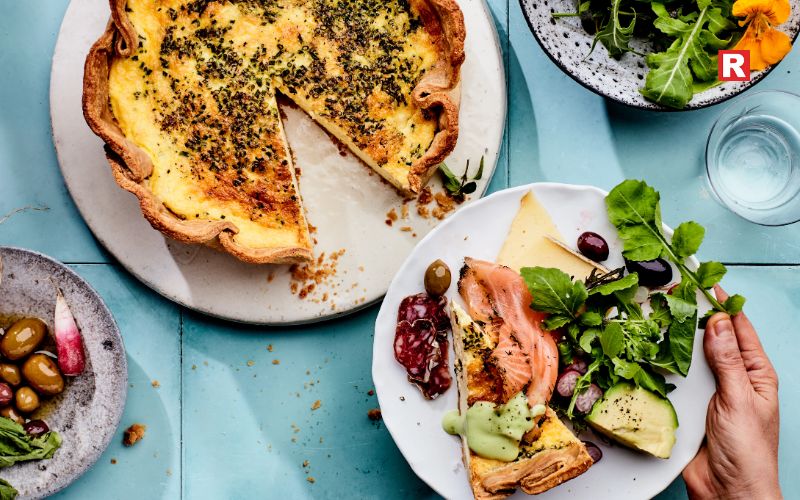
Quiche is a staple of French cafés and bakeries. It is a savoury tart with a buttery crust and a soft, creamy filling. The vegetarian version, called Quiche aux Légumes, is filled with seasonal vegetables such as mushrooms, spinach, tomatoes, leeks, or broccoli. The filling is made with eggs, cream, cheese, and spices. When baked, it becomes soft on the inside and slightly golden on top. It is often served with a small salad, making it a light but satisfying meal. Indian travellers will find this dish refreshing because it combines vegetables with a flaky crust that is different from typical Indian snacks. The dish is gentle and mild, which makes it easy for those who prefer lighter flavours. It is perfect for breakfast, lunch, or a quick snack while exploring French markets or small towns. In many French homes, quiche is a weekend favourite. It is one of the easiest dishes to find in restaurants and bakeries across France.
4. Tartiflette (Vegetarian Version): Comfort from the French Alps
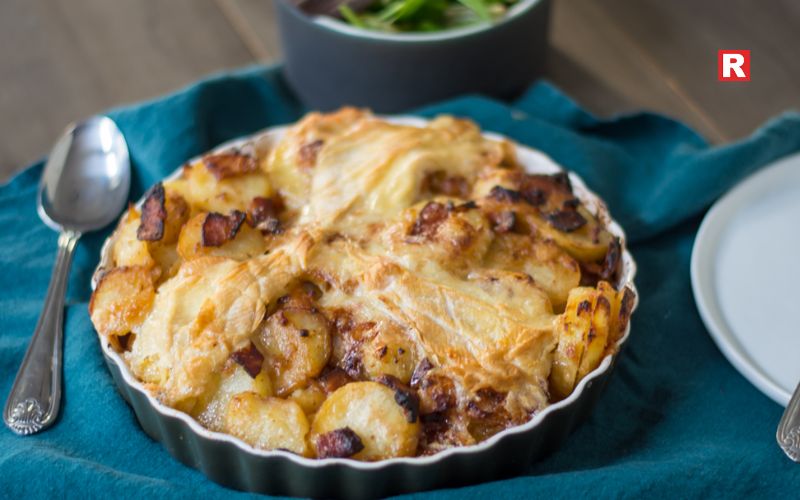
Tartiflette is a warm, creamy potato dish from the French Alps. It is usually made with bacon. But many restaurants also offer a vegetarian version, which keeps the original flavours but removes the meat. The main ingredients are potatoes, reblochon cheese, onions, cream, and butter. The dish is baked until the cheese melts through the potatoes, creating a rich and comforting texture. The result is soft, creamy, and deeply satisfying. This dish is perfect for Indian travellers visiting cold regions like Chamonix or Annecy. It is ideal after long days of sightseeing, skiing, or walking through snow-covered streets. Tartiflette has a homely feeling, similar to Indian comfort dishes that rely on warmth and richness. Reblochon cheese may taste new to Indian palates, but its creamy texture makes the dish smooth and memorable.
Know more: Top Mexican Dishes You Must Try on Your Next Visit
5. Gratin Dauphinois: A Timeless French Favourite
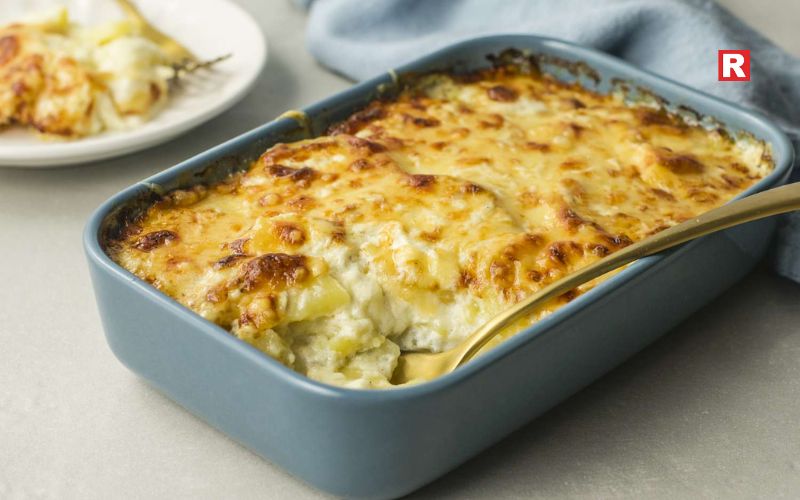
Gratin Dauphinois is one of the simplest and most loved dishes in French homes. It is made with thinly sliced potatoes baked with cream, garlic, and butter. Some versions include cheese, while others rely entirely on cream for texture. The dish has a soft inside and a slightly crispy top. It is mild, elegant, and full of flavour. Many people compare it to layered potato dishes from other parts of the world, but the French version stands out because of its delicate balance of garlic and cream. For Indian travellers, this dish can feel like a gentle, creamy comfort food. It pairs well with salads, breads, and soups. It is widely available across France, especially in traditional restaurants and countryside inns. Gratin Dauphinois is often served during family meals, holidays, and celebrations. It reflects the warm and homely side of French cooking.
Why French Vegetarian Food Is Worth Exploring
France may not be known globally as a vegetarian destination, but the country offers a wide range of options. Many French dishes use fresh vegetables, herbs, cheese, and high-quality dairy. These ingredients make the meals rich in flavour without needing meat. For Indian travellers, French vegetarian food can be enjoyable because it offers both comfort and variety. The dishes are not spicy, but they have deep flavours created from slow cooking and fresh herbs. Many restaurants now offer clear vegetarian menus. You can look for the word “végétarien” or simply ask the staff. French locals are very helpful when it comes to explaining ingredients.
Check more: Top Veg Japanese Dishes You Must Try on Your Next Visit
Top Veg Dishes in Bhutan You Must Try on Your Next Visit
Top Famous Veg Street Foods in Kolkata That You Must Try Once in Your Life
Final Thought
On a trip to France, travellers can discover a variety of vegetarian dishes that are full of flavour. Ratatouille is a colourful vegetable stew from Provence. It is made with tomatoes, zucchini, eggplant, peppers, and herbs. French Onion Soup, in its vegetarian version, offers a warm and comforting experience with caramelised onions, vegetable broth, and melted cheese. Quiche aux Légumes is a classic savoury tart with a buttery crust and seasonal vegetables, perfect for breakfast or lunch. Tartiflette, from the French Alps, combines potatoes, cream, onions, and reblochon cheese for a rich and satisfying meal. Gratin Dauphinois is a simple yet elegant dish made with thinly sliced potatoes, cream, and garlic, baked to perfection. Each dish reflects the local traditions and ingredients of its region. Together, they provide travellers a taste of authentic French cuisine while exploring the country’s diverse culinary culture.

Mexican food stands out for its strong flavours, bright colours, and long traditions. Each dish carries a story from local streets, home kitchens, and lively markets. Many Indian travellers enjoy Mexican cuisine because it feels new yet slightly familiar. The use of spices, corn, beans, fresh herbs, and slow cooking gives every plate a rich and lasting taste.
The flavours are bold but balanced. The dishes are simple but full of character. These qualities make the cuisine easy to enjoy for travellers of all ages. This guide brings together seven must-try dishes that show the real spirit of Mexico. Each dish opens a small window into the country’s culture and everyday life. For travellers who want to taste something true and memorable, these dishes offer the best start. They help visitors understand why Mexican cuisine is loved across the world and why it stays in memory long after the trip ends
Find Top Mexican Dishes You Must Try
1. Tacos
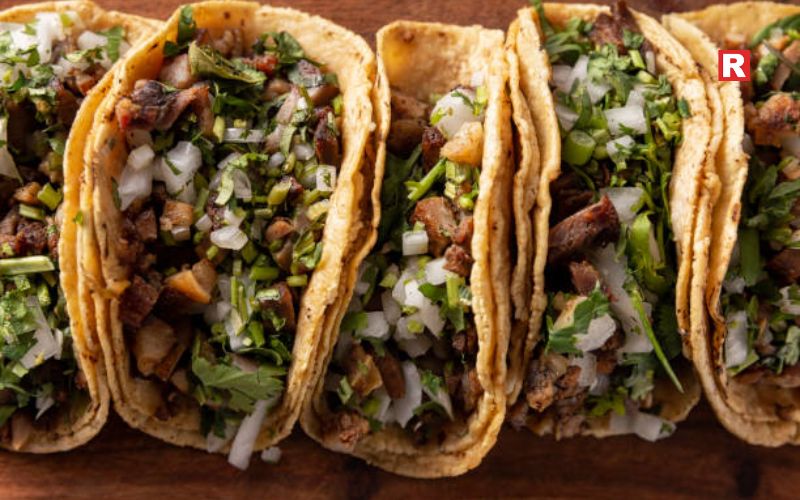
Tacos are the heart of Mexican street food. They are simple, fresh, and full of flavour. A taco uses a soft corn tortilla as the base. It is then filled with meat, vegetables, or seafood. Some stalls and shops serve tacos with grilled chicken, slow-cooked beef, or spicy pork.
The most famous one is Taco al Pastor. It is made with spit-roasted pork, pineapple slices, and mild spices. This mix creates a sweet and smoky taste. Fresh onion, cilantro, and lime juice are added before serving. Travellers love it because it feels light yet satisfying. Tacos are available everywhere in Mexico. They are quick to eat, very affordable, and full of local flavours.
Read more: What is Kimchi? Top Veg Kimchi You Can Try at Home
Top 10 Vegan Street Foods in India Every Indian Loves
2. Quesadillas
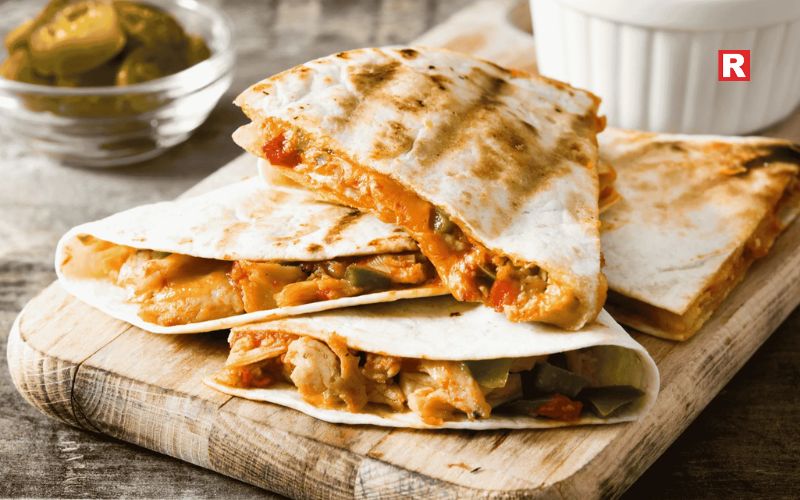
Quesadillas are another favourite. They are warm, crispy, and full of cheese. A quesadilla has a tortilla filled with cheese and grilled on a hot plate until the cheese melts. It becomes soft on the inside and crisp on the outside.
Some regions add chicken, mushrooms, peppers, or squash blossoms for extra taste. The dish is simple but comforting. It is perfect for travellers who want something mild yet flavourful.
Quesadillas are also great for people who are trying Mexican food for the first time. They offer a mix of familiar ingredients and authentic Mexican style.
3. Enchiladas
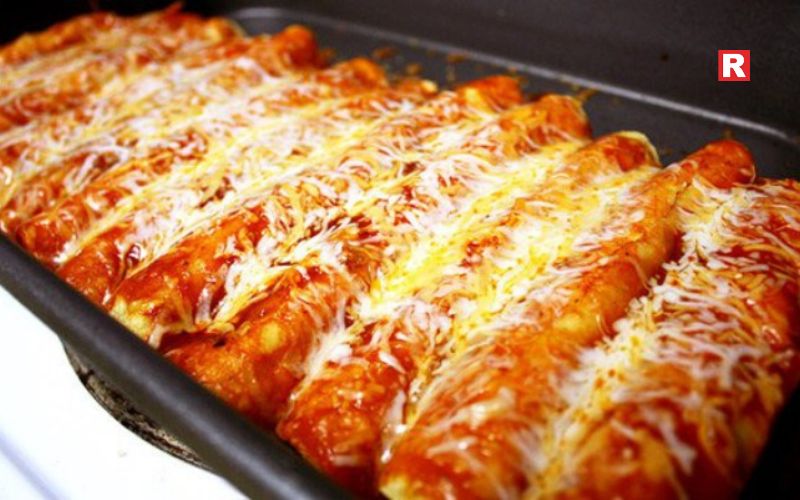
Enchiladas offer a rich and colourful experience. They are made by rolling tortillas with fillings like chicken, beans, or cheese. These rolls are then covered in chilli sauce. The sauce can be red, green, or brown depending on the region and ingredients used.
The dish is baked with cheese and topped with onion, cream, or fresh herbs. Enchiladas have deeper flavours compared to tacos and quesadillas. The chilli sauces add warmth and a mild kick. Travellers who enjoy layered and saucy dishes often pick enchiladas as their favourite.
4. Guacamole

Guacamole is one of the most popular Mexican dishes worldwide. But the authentic version in Mexico is fresh, fragrant, and very different from what most restaurants elsewhere serve. It is made with ripe avocados, lime juice, cilantro, salt, and chopped jalapeño. Some places also add onion or tomato.
The dish is creamy and bright. It is usually served with tortilla chips, tacos, or grilled foods. Indian travellers enjoy guacamole because it feels clean and refreshing. It also pairs well with spicy dishes. Guacamole is considered a must-try for anyone visiting Mexico.
Know more: 5 Cities That Serve the Best Non-Vegetarian Street Food
5. Tamales
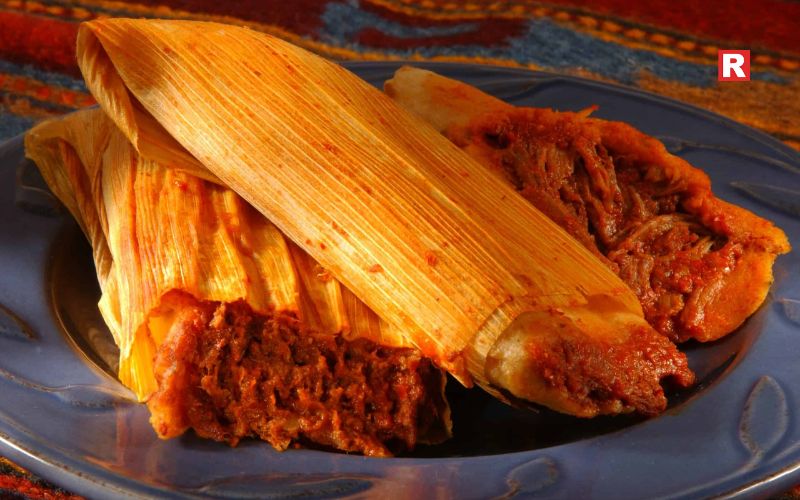
Tamales connect visitors to old Mexican traditions. This dish has been part of Mexican culture for hundreds of years. A tamale is made with corn dough, known as masa. The dough is filled with chicken, pork, beans, cheese, or even sweet corn. The filled dough is wrapped in a corn husk and steamed.
This makes the dish soft and earthy. The taste is mild but rich. Each region in Mexico has its own version of tamales. Some are spicy, some are sweet, and some use colourful masa.
Travellers who enjoy unique and traditional foods often find tamales very memorable.
6. Pozole
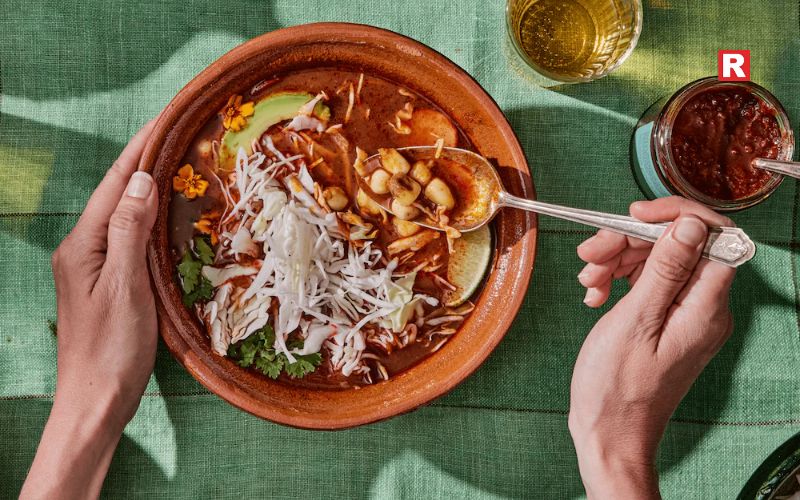
Pozole is a classic Mexican soup. It is slow-cooked for hours to build deep flavour. The soup includes hominy, which is a special type of corn. It also has chicken or pork. The broth turns rich and thick as it cooks.
Before serving, locals top the bowl with lettuce, radish, lime, onion, and chilli flakes. Each addition adds crunch and freshness. Pozole feels comforting, especially on cooler days or evenings. Travellers looking for a filling and traditional dish often enjoy pozole. It shows how simple ingredients can create something bold and satisfying.
7. Churros
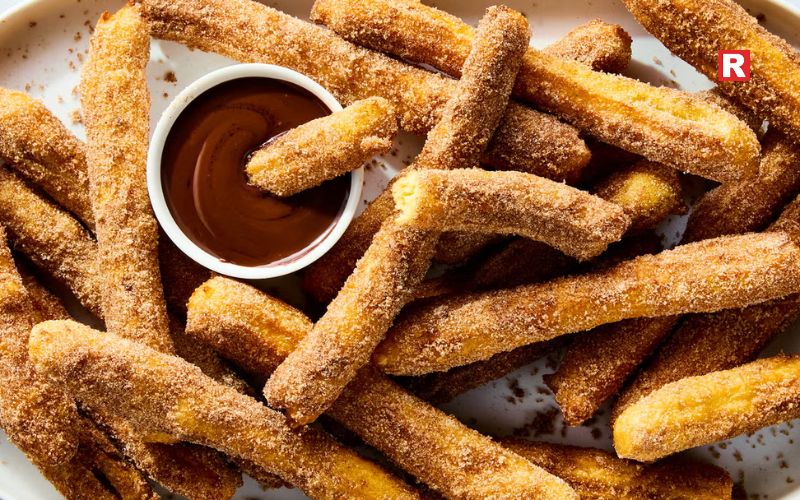
Churros are a popular Mexican dessert. They are long dough sticks, fried until golden and crisp. After frying, they are rolled in cinnamon sugar. Some stalls serve them with hot chocolate, caramel, or thick chocolate sauce.
Churros are warm, sweet, and soft on the inside. They are perfect for travellers who like desserts that feel familiar but still offer a local twist. Many visitors enjoy churros while exploring markets or evening streets. This dessert brings a light, joyful ending to a day of eating Mexican dishes.
Check more: Top Veg Japanese Dishes You Must Try on Your Next Visit
8 Cheesy Foods Like Lasagna That Melt in Your Mouth
Understanding the Flavours of Mexico
Mexican cuisine uses ingredients that shape its identity. Corn is the most important. It is used in tortillas, tamales, and many other dishes. Beans add protein and texture. Chillies bring heat and flavour. Fresh herbs like cilantro add brightness. Lime juice balances spicy and savoury notes. Slow cooking brings depth. Every dish uses these elements in different ways.
Travellers from India often appreciate Mexican food because it shares a similar love for spices, layers, and comfort.
How to Choose the Most Authentic Dishes
Choosing the right places to try Mexican dishes can make a big difference.
- Look for small street vendors or family-run kitchens.
- Choose dishes served with corn tortillas instead of wheat.
- Try regional specials whenever possible.
- Avoid places that use heavy processed ingredients or too much fusion.
Eating local helps travellers understand the true taste of Mexican cuisine.
Regional Mexican Flavours Worth Knowing
Mexico has diverse regions, each offering something special:
- Oaxaca is famous for mole, a rich sauce made with spices, nuts, and cocoa.
- Puebla is known for cemitas and colourful food traditions.
- Yucatán uses citrus, spices, and slow-roasted meats.
These regions show how wide and creative Mexican food can be.
Taste Of Mexico!
Mexican cuisine blends colour, warmth, and long history in every dish. Each bite offers new textures and bold flavours. These seven dishes give travellers a real taste of the country. They show how simple ingredients can turn into strong and memorable flavours. The food is easy to enjoy and fits all budgets. Street stalls, small cafés, and local homes serve these dishes with pride. Each recipe comes from old traditions that have been passed down for many years. Travellers who try these dishes understand the spirit of Mexico better. The meals highlight everyday life, family cooking, and regional styles. For anyone planning a trip, this list makes the journey easier. It helps them know what to order and what not to miss. These dishes bring the true taste of Mexico to the table in a direct and honest way.

Garlic is a bulbous vegetable, closely related to onions, leeks, and chives. Growing underground, it normally comes as clusters of tiny cloves wrapped by a papery skin. Its pungent aroma, combined with the sharp taste, has been cultivated for thousands of years and is held in high regard in many cuisines all over the world, particularly in India.
In the kitchen, garlic is a big multitasker: It can be fresh, roasted, powdered, or used as a paste to bring depth and aroma to an immense number of dishes. Whether it's added to flavor curries, marinades, breads, and quick stir-fries, it enhances taste and fragrance, turning simple meals into extraordinary ones.
This article will share with you seven delightful ways to use this ingredient in your cuisine, its health benefits, and some tips for growing and storing garlic in or around the house.
Read more: 10 Genius Ways to Peel Garlic Like a Pro
7 Ways to Use Garlic in Your Kitchen
1. Garlic-Infused Oils and Condiments
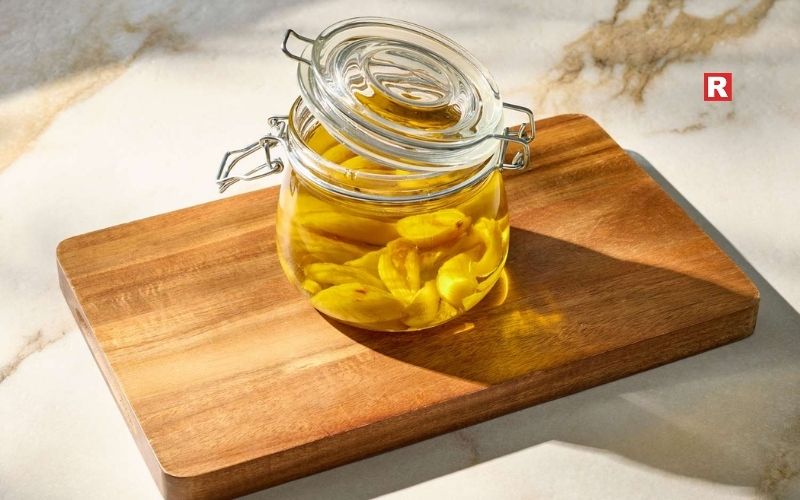
Making garlic-infused oils at home is simple, and they give a great, rich taste to lots of foods. Gently cook some peeled garlic cloves in oil (such as mustard or olive oil) over low heat. Then, strain it and keep it in a sealed bottle. You can use this oil on salads, when stir-frying veggies, or to marinate meat.
Garlic butter is another favorite. Spread it on bread or mix it into cooked veggies. Also, garlic chutneys or pickles, often prepared with local spices, go great with Indian food. These things can be used in many ways and make many dishes taste and smell better. Make sure to keep them in a cool, dry spot and use them within about a week to get the best taste.
Know more: 10 Best Snacks without Onion and Garlic you can order today
2. Roasted Garlic for a Milder, Sweet Flavor
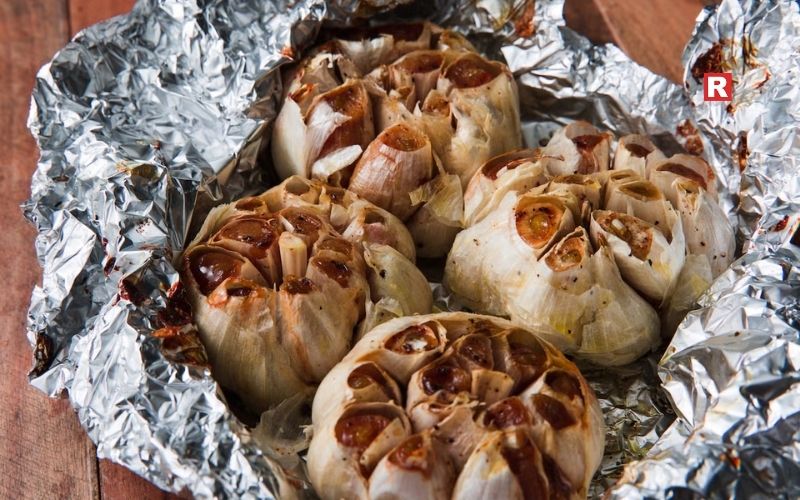
Roasting garlic turns a sharp, pungent flavor into a sweet one. In the oven, roast entire bulbs wrapped in foil for approximately 30-40 minutes. Softened cloves can be squeezed out and spread on bread or blended into soups and sauces for a subtle garlic nuance.
Roasted garlic works perfectly in mashed potatoes, soups, and even pasta dishes with its complex, comforting flavor without overwhelming heat. In case you are sensitive to the raw intensity of garlic, then roasted garlic will be a better option for you.
3. Garlic in Indian Curries and Gravies
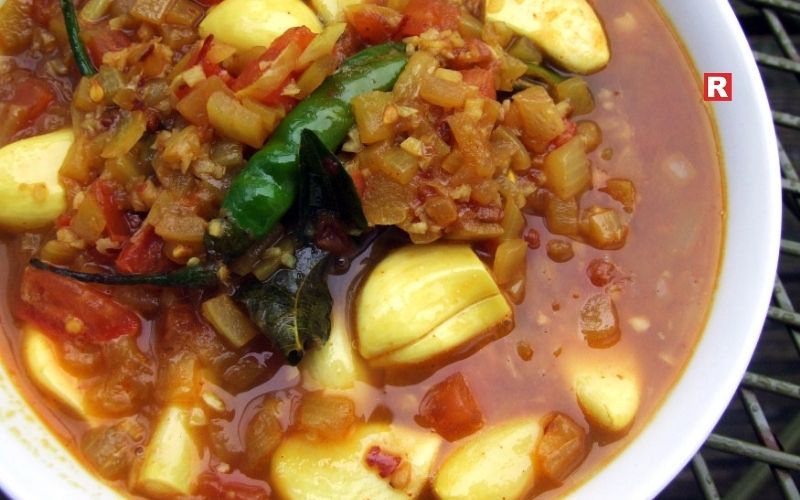
Garlic paste is a basic Indian curry recipe ingredient that has a strong base flavor of spices like cumin, coriander, and turmeric. The dishes might differ from region to region due to the different styles of ingredients used in each region, for instance, using garlic-heavy masalas for North Indian recipes or using it alongside mustard seeds and curry leaves in South Indian dishes.
Balanced use of garlic with other spices makes good gravies, while the aroma of garlic gives value to lentil-based dals. Experimenting with the amount of garlic and cooking time in your curries can help you develop your ideal flavor.
4. Garlic as a Marinade Ingredient
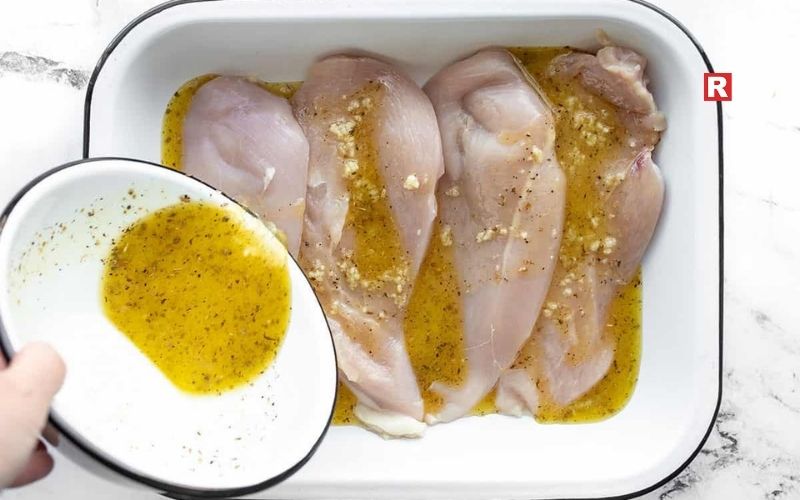
Garlic adds a great tenderness and flavor to the marinade. Mix crushed or powdered garlic with yogurt, lemon juice, turmeric, chili powder, and salt, and you have a nice paste ready for marinating chicken, paneer, or vegetables.
Marinate for at least 30 minutes or longer for tougher meats, which allows for deep penetration of garlic and spices. This technique gives the dish aroma and makes it juicy and tender after cooking.
5. Garlic in Quick Stir-Fries and Sautéed Dishes
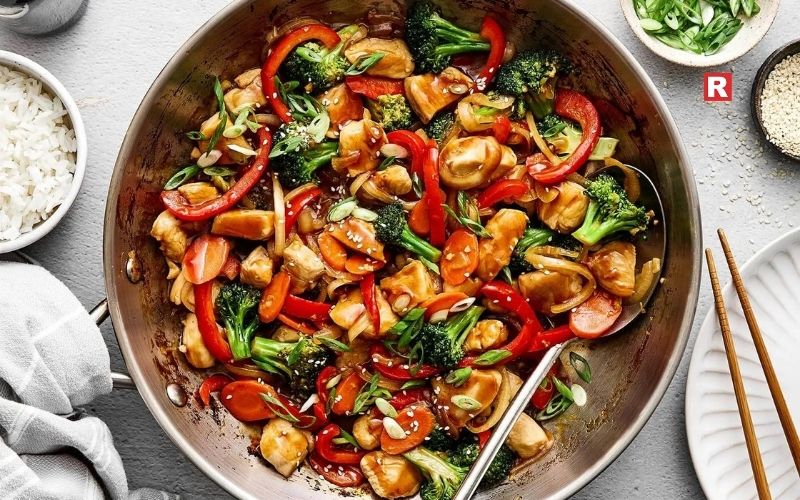
Quick dishes, like stir-fries, are usually much enhanced by the aroma of freshly chopped or sliced garlic when sautéed early in cooking. Garlic releases flavor quickly into hot oil to make a tasty base for vegetables, tofu, or chicken.
Be sure not to let the heat get too high, because burned garlic is bitter and ruins the dish. Use it moderately, according to your preference for either light or strong flavors, and appreciate the freshness it brings to quick weeknight dinners.
What's new: Why Gluten-Free Is Becoming the New Trend + 10 Gluten-Free Meal Ideas
6. Garlic-Infused Breads and Snacks
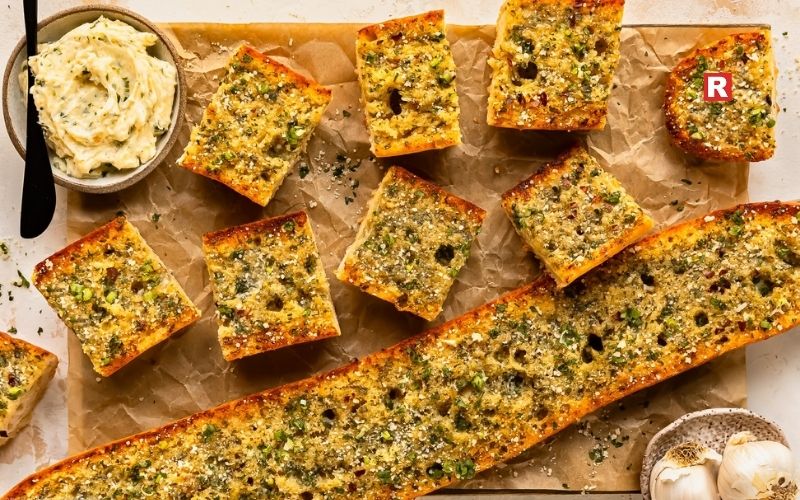
Garlic bread is not limited to Western cuisine; its Indian versions, such as garlic naan, bring fusion flavors to your table. Brushed with garlic butter and baked after being rolled out, these breads pair wonderfully with dal and curries.
Then there are garlic pakoras, snacks of fried garlic-flavored fritters, or even namkeen flavored with garlic. These are generally made for teatime or any festive occasion, where every bite fills the mouth with a garlicky taste.
7. Garlic for Health and Medicinal Uses in the Kitchen
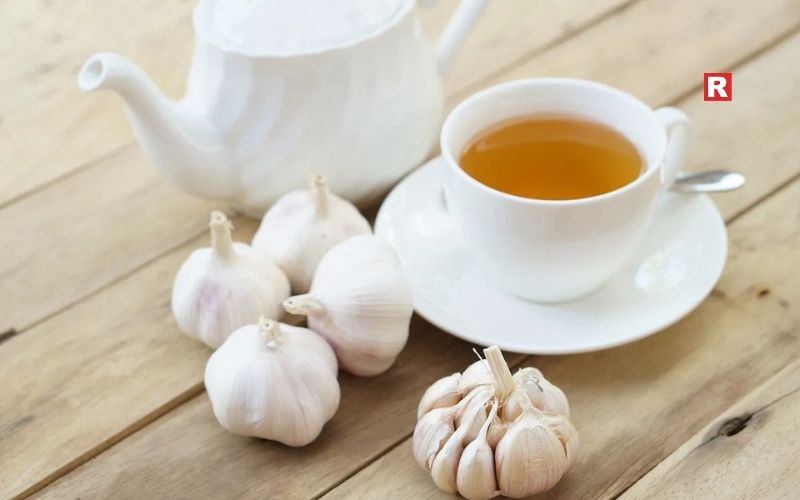
In most Indian homes, garlic has traditionally been regarded for its healing properties, improving digestion, boosting immunity, and lowering the chances of heart disease.
Garlic teas and broths are consumed during colds and flu to soothe symptoms. Some people take raw garlic with honey or warm water for infections as a remedy. Adding garlic to daily food gives medicinal advantages and also improves the taste and aroma of the food.
Scientific Health Benefits of Garlic
- Rich in Bioactive Compounds: Garlic contains allicin, a sulfur-containing compound responsible for many of its health benefits.
- Antibacterial and Antiviral Properties: Some studies prove that garlic helps fight infections by enhancing immune functioning.
- Anti-inflammatory Effects: Garlic is anti-inflammatory, and its consumption decreases the risk of several chronic diseases.
- Heart Health: Regular garlic consumption is related to the reduction of blood pressure and cholesterol levels.
- Improved Immunity: White blood cells are stimulated by garlic. This helps the body against sicknesses.
- Antioxidant Properties: It acts to combat one of the major causes of aging and a wide variety of diseases, oxidative damage.
- Recommended Intake: About 1-2 cloves a day could assure health benefits, but as too much of it may invite digestive discomfort, it is best to consume in moderation.
Check out: Your Simple Guide to 7 Vitamin C-Rich Foods
11 Benefits of Eating Chia Seeds
Growing and Storing Garlic at Home
Growing Garlic in Indian Climates
- Garlic is easily grown during the cooler months in most areas of India.
- Select healthy garlic bulbs that have large cloves to plant.
- Plant cloves individually in well-draining soil, installing them about 2 inches deep and 4-6 inches apart.
- Garlic should be kept moist but never waterlogged.
- Defoliation usually occurs at 8-10 months after planting. This is when leaves start to turn yellow and dry.
- Growing your own garlic ensures both a fresh supply and the joy of home gardening.
Storing Garlic to Maximize Freshness
- Keep garlic bulbs in a cool, dry, and well-ventilated place to prevent mold and sprouting.
- Avoid refrigerating unless garlic is peeled, as cold temperatures will encourage cloves to sprout prematurely.
- Keep garlic away from direct sunlight, as this speeds up the depletion.
- For ventilation, use mesh bags or open containers instead of plastic bags.
- Whole bulbs can last for up to 3 months under proper storage conditions. Peeled cloves, on the other hand, will last about a week.
Learn more: 10 Vegan Side Dish Ideas That Complete Any Meal
Garlic Summed Up
Garlic really is the unsung kitchen hero, bringing unmatched flavor and aroma while also packing some pretty amazing health benefits. From infused oils and roasted garlic spreads, to the backbone it provides in so many curry and marinade recipes, there are truly a million ways to make use of garlic in the kitchen. Be it for cooking magic or simple medicine, there's just no way to go wrong with adding garlic to any meal for an extra boost of natural vitality. Growing your own garlic and storing it properly will guarantee that this powerful ingredient is always at your fingertips. Enjoy the following uses for garlic and find out how this modest bulb can make a difference in your kitchen.

A gluten-free lifestyle has gained popularity in recent years, evolving from a small trend to a relatively common health choice, even in India. Gluten is a protein that's in wheat, barley, and rye. All the stuff that a lot of Indian food is based on. Since more people are learning about gluten intolerance and celiac disease, they’re starting to understand how gluten can affect their bodies.
What used to seem like a Western phenomenon is now gaining popularity in Indian homes and restaurants. People in cities here are trying out gluten-free diets not just to deal with health problems, but also because they want to eat healthier and cleaner. Everyone from gym-goers to regular families is starting to see going gluten-free as a way to eat smart and take care of themselves.
In this article, we’ll look at why gluten-free is becoming such a big deal in India. There’s also a list of 10 tasty gluten-free meal ideas that suit Indian tastes, so you can easily add them to your everyday meals.
Read more: 10 Biscuit Brands in India That Pair Perfectly With Chai or Coffee
Understanding Gluten and Its Impact
What is Gluten?
Gluten is a naturally occurring protein mainly found in wheat, barley, and rye. It acts as a binding agent, helping dough stick together, providing elasticity and chewiness. Indian food staples like chapati, paratha, bread, and lots of snacks contain gluten, so it's a normal component of India’s diverse cuisine.
Impacts of Gluten on Health
- Celiac Disease: People with celiac disease cannot eat gluten, because it triggers their immune system to attack the lining of their small intestine. This makes it hard for the body to absorb nutrients and can lead to health problems.
- Non-Celiac Gluten Sensitivity: Some people get symptoms like bloating, stomachaches, headaches, and tiredness when they eat gluten, but they don't have the intestinal damage that comes with celiac disease.
- Common Symptoms of Gluten Intolerance: These can include tummy troubles, skin rashes, headaches, joint pain, and trouble concentrating.
- Commonality: While gluten intolerance doesn't affect a huge number of people, lots of people go gluten-free to deal with symptoms or just feel better.
- What to Do: If you have celiac disease, stay away from gluten. Try cutting back on gluten to see if the symptoms get better. Before you start a gluten-free diet, it's a good idea to talk to a doctor to make sure you don't cut out foods you need or mess up your nutrition.
Know more: Your Simple Guide to 7 Vitamin C-Rich Foods
Why Is Gluten-Free Becoming the New Trend in India?
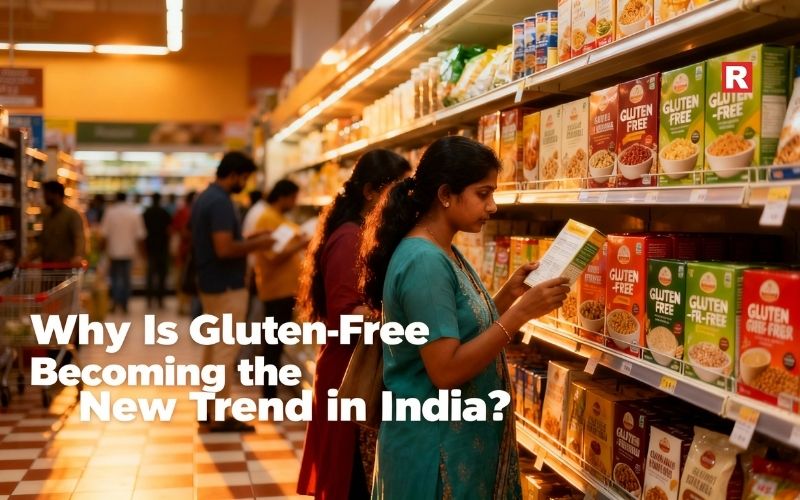
Increasing Health Awareness
More people in India are getting diagnosed with gluten issues like celiac disease because they have better access to medical info and tests. People are starting to notice symptoms like tummy troubles, feeling tired, and skin problems that could be due to not being able to handle gluten well. Because of this, a lot of people are trying out gluten-free diets to either prevent problems or help them feel better.
Changing Dietary Preferences
In India, the wellness trend is causing people to choose healthier, less processed foods. People in cities are starting to eat less wheat and are trying out other natural foods like millets and pulses because they think these are better for them. Since everyone wants food that has good nutrition and fewer additives, gluten-free choices are becoming more popular.
Rising Cases of Lifestyle Diseases
More and more people are dealing with autoimmune issues and digestive problems like IBS. Because of this, gluten-free diets are getting a lot of attention as a way to relieve symptoms. Some research shows that gluten might cause inflammation in people who are sensitive to it. That's why many are trying to cut out gluten to see if it helps them feel healthier overall.
Influence of Social Media and Celebrities
Indian celebrities and fitness influencers are openly sharing their gluten-free journey online, which is getting this lifestyle a lot of attention. You can find gluten-free recipes and advice on Instagram and YouTube, making it easier for people to try it out. Social media is really helping these health trends spread fast to lots of different people.
Availability of Gluten-Free Products
It's way easier now to find gluten-free food products. Supermarkets and online stores have things like besan, millet, and rice flour, which are good alternatives to wheat. Plus, there are also many gluten-free snacks. Even Indian restaurants are joining the trend, with more gluten-free items on their menus. So, you can stick to your gluten-free diet without missing out on your favourite tastes or traditions.
What's new: 10 Vegan Side Dish Ideas That Complete Any Meal
10 Gluten-Free Meal Ideas for Indian Palates
Breakfast Ideas

- Besan Chilla (Gram Flour Pancake): This tasty pancake is made with chickpea flour, so it's gluten-free. It's packed with protein, and you can easily toss in some grated veggies like carrots, spinach, or onions. You can also pair it with mint chutney or yogurt for a good breakfast.
- Poha with Nuts and Vegetables: Poha is flattened rice, so it's gluten-free. You can stir-fry it with mustard seeds, curry leaves, peanuts, and whatever veggies are in season. It's a light and healthy way to start your day, especially when you're short on time.
Lunch/Dinner Ideas
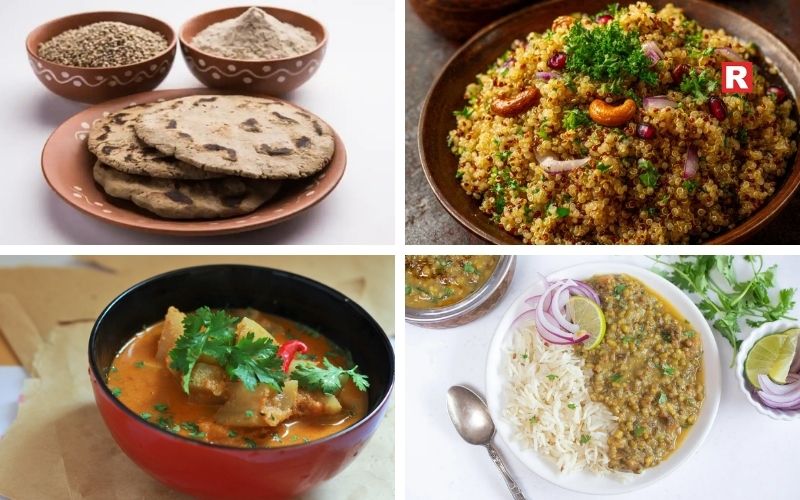
- Millet Rotis (Bajra, Jowar, Ragi): Traditional millets don't have gluten and are full of fibre, vitamins, and minerals. Bajra and jowar rotis are eaten a lot in some Indian regions and are good options if you want to avoid wheat bread or roti. They taste great with dals, veggies, and chutneys.
- Quinoa Pulao with Vegetables: Quinoa is originally from South America, but it's becoming popular in India as a gluten-free grain with lots of protein. When you cook it with veggies and spices, it turns into a tasty and healthy pulao that Indians enjoy.
- Lauki (Bottle Gourd) Curry with Rice: Lauki curry is easy to digest and doesn't have gluten, so it's great for lunch or dinner. It's a nice and healthy choice when you eat it with rice or millet.
- Chickpea or Moong Dal Curry: Pulses don't have gluten naturally and are a big part of Indian vegetarian food. Chickpeas and moong dal cooked with spices give you protein and fibre without any gluten.
Snacks/Appetizers

- Masala Chana (Spiced Chickpeas): Roasted or boiled chickpeas, seasoned with chaat masala, cumin, and chilli powder. They're crunchy, full of fibre, and a great gluten-free snack for anyone.
- Masala Corn: Boiled or roasted corn mixed with butter, lemon juice, and some spices. You can find them a lot on the street, and it's really easy to make at home, and also it's naturally gluten-free.
Check out: 10 Healthy Spreads Ideas That Turn Bread Into a Better Snack
10 Veg Chicken Substitutes for High-Protein, Balanced Meals
Desserts
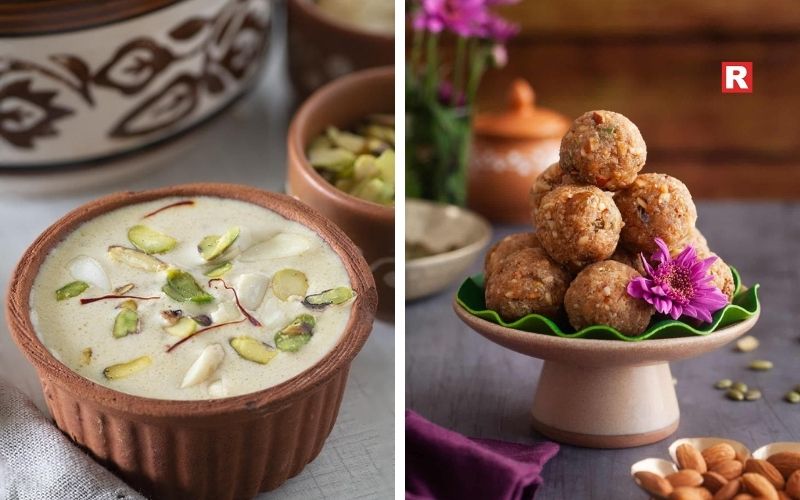
- Millet or Quinoa Kheer: Although rice is already gluten-free, you can still try swapping it with millet or quinoa in your kheer for a healthier version. Cook it in milk and add cardamom, nuts, and saffron for a tasty and healthy dessert.
- Coconut Ladoo with Jaggery and Nuts: These sweet balls made from grated coconut, jaggery, and nuts require no wheat or gluten-containing ingredients and are popular during festivals and everyday treats.
Tips for Adopting a Gluten-Free Diet in India
- Read Product Labels Carefully: When buying packaged foods, watch out for gluten hiding under names like maida (refined wheat flour), rava (semolina), malt, and certain starches.
- Choose Naturally Gluten-Free Flours: When you're cooking or baking, try using gluten-free flours, such as besan (gram flour), millet flour (bajra, jowar, ragi), rice flour, or cornflour. They're also a healthier choice than maida or wheat.
- Shop at Specialized Stores: For more gluten-free choices that you can trust, check out stores or websites that specialize in gluten-free products.
- Prevent Cross-Contamination: In your kitchen, keep your gluten-free stuff away from everything else. Use different spoons, pots, and pans so you don't mix gluten-free food with food that has gluten.
- Explore Traditional Indian Recipes: Lots of Indian foods that use grains, beans, and rice don't have gluten anyway. Try adding some of these to what you eat, so you still get great flavor without the gluten.
- Use Indian Spices and Herbs: Make sure your meals are still tasty by using the spices you already have. That way, you don't have to give up food that tastes good just because you're eating gluten-free.
- Consult Healthcare Professionals: before you stop eating gluten completely, have a chat with a dietitian or your doctor. This makes sure you're still getting all the stuff you need and that you change your diet in a good way that you can keep up with.
Learn more: 10 Vegetarian Indian Foods That Help You Gain Weight the Healthy Way
Enjoy Gluten-Free Living
Going gluten-free in India isn't just a passing trend. It shows people are paying more attention to their health and how well they digest food. It helps some feel better when they have long-term health problems. Other people see it as a way to get healthier. And now, it's much easier to switch because you can find gluten-free food. You can still enjoy tasty and healthy gluten-free meals that taste Indian just by changing some ingredients and coming up with clever recipes, like millet rotis and quinoa pulao. As with any diet change, seeking professional guidance is important to thrive on this trend safely and happily.
Disclaimer: This article is intended for general informational purposes only and should not be considered a substitute for professional medical advice, diagnosis, or treatment. Readers are advised to consult a qualified healthcare professional before making any dietary, health, or lifestyle changes.

Indian’s love for biscuits is something that cannot be comprehended by words alone. But this love is incomplete without the chai, or in some cases, coffee. When you imagine having a tea or coffee break, biscuits are always included. And there isn’t any biscuit you can pair with your chai or coffee. Certain brands have power over half the biscuit industry just because they are a perfect pair with chai.
This is why the biscuit market in India has taken a step up, with numerous options available for everyone. You can find many different varieties from classic butter biscuits to chocolate ones. And, as more and more people in India are becoming health-conscious, lots of brands have launched biscuits with oats, nuts, and jaggery. This is great for both people who prefer taste and the ones that prefer health.
This article is intended to list 10 biscuit brands found in India that are great with chai or coffee. So that you can find your next choice of biscuits for your tea and coffee time.
Read more: 10 Best Tea and Dessert Pairings for Café Enthusiasts
The Biscuit Market of India
The biscuit market in India is at a level where it is thriving, with a value of around USD 4.76 5.05 billion in 2024, and is expected to grow at an annual rate of (CAGR) of 5.88% to 9.61% over the next few years. Indian biscuit brands dominate the market more than foreign ones, which have a smaller share in the market. What makes the Indian biscuit market interesting is that there is a constant innovation in flavors and textures. There are also health-focused options, like multi-grain or sugar-free, which cater to the evolving demands of customers. Many brands have unique biscuits made with desi ghee or regional specialties. This makes biscuits a versatile and popular snack choice across the country.
The Top 10 Biscuit Brands For Your Chai and Coffee
1. Parle
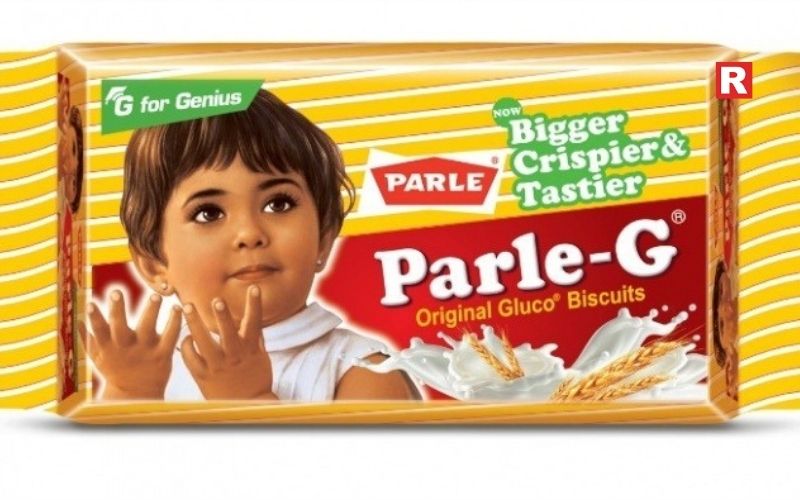
India’s most famous brand, which every Indian must have heard of, Parle, became popular because of its flagship product, Parle-G. Its tagline, "G Mane Genius," is a great marketing tool. Parle-G is known for its sweet taste and crunchy texture, which, if dipped in chai or coffee, becomes soft and mushy. It is like the perfect match for chai and coffee. Whether it is morning or evening, tea or coffee time, Parle-G is there to complete the experience. It has also become a household staple due to its affordability and availability. Parle, the brand, also offers biscuits like Krackjack and Monaco, which are salty, making them perfect for people who like a salty snack with their chai. This brand’s quality has remained consistent over the years, making it a favorite for many.
Know more: Top 10 Tea Brands in India That Every Chai Lover Swears By
2. Britannia
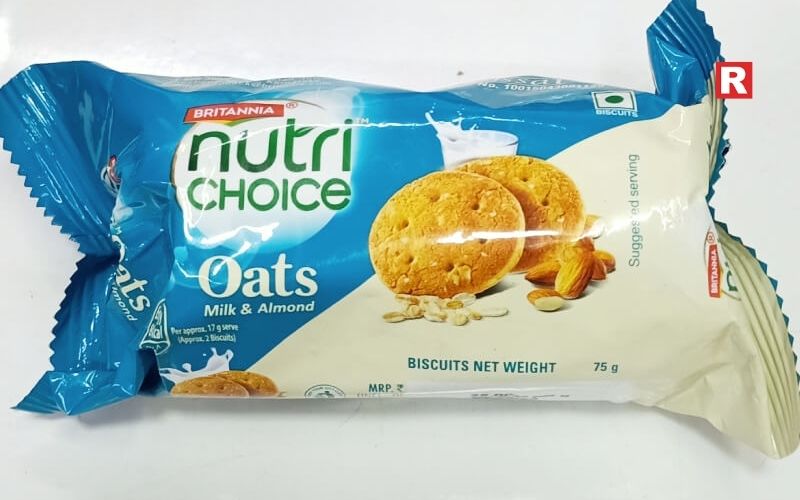
Britannia is well-known for its wide range of biscuits, including Good Day, Marie Gold, and Bourbon. Good Day biscuits are buttery and nutty, oftentimes coming in different flavors like Pista Badam, Cashew, Butter Jeera, etc. They offer a more premium tea time experience if you’re having chai or coffee in a middle-class Indian household. Marie Gold, on the other hand, is light and crisp. It doesn’t soak in chai well after dunking, but it is preferred by people who want to get the taste of biscuits more clearly. Bourbon, which has a chocolate layer between two biscuits and sweet sugar sprinkled on top, is a perfect choice for coffee, especially the less sweet ones. Britannia’s biscuits are widely available across the country and loved for their quality and taste.
3. Sunfeast
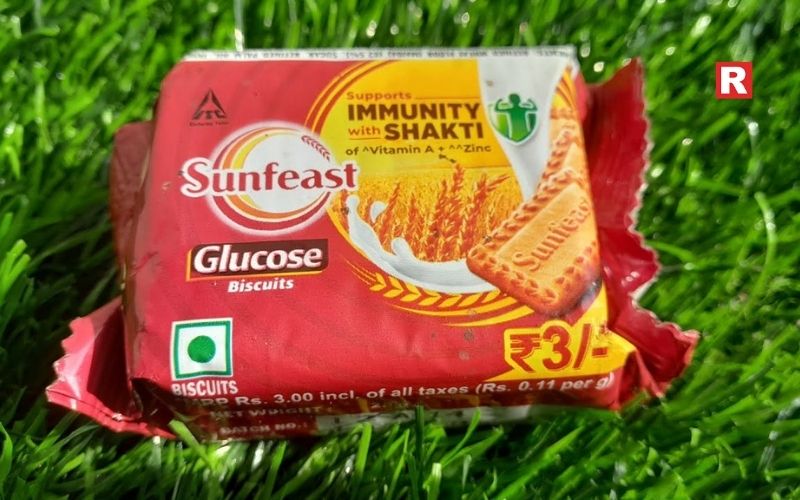
Sunfeast is known for tasty and new flavors and good quality, so tea and coffee fans love it. Dark Fantasy cookies are a popular choice with coffee drinkers. They have a rich chocolate taste that pairs well with a strong cup of coffee. Sunfeast Marie biscuits are light and crispy, just right with chai, for those who like to taste the biscuit without it getting too soggy. Sunfeast also has digestive and multigrain choices for people watching their health, who want a good snack with their drinks. People like Sunfeast biscuits because they taste good, are of good quality, and can go with anything. This makes them a go-to for tea time in Indian homes.
4. Oreo
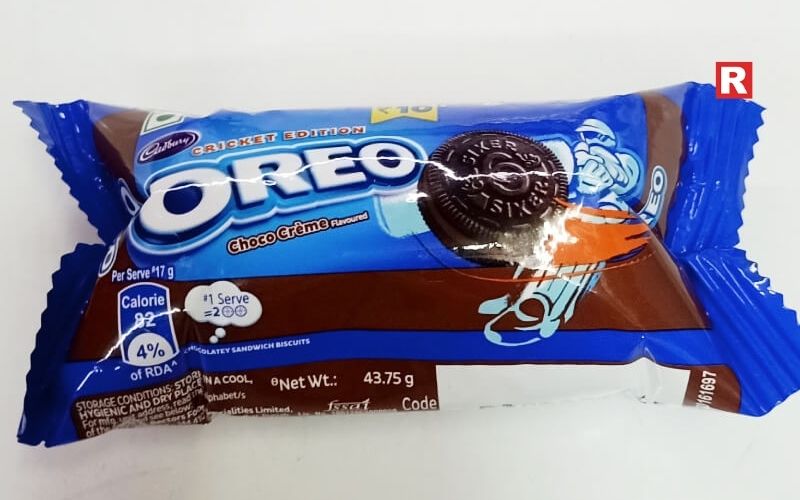
Oreo, a cream biscuit introduced by Cadbury, is famous not just in India but in other countries as well. It comes in two fillings, white and brown chocolate. This biscuit is a good choice for pairing with coffee and provides a sweet and indulgent experience. With black coffee or americano, its flavor is perfect to balance out the coffee’s bitterness. It might not be a good choice with a sweet milk tea, though. It has a unique texture that goes beyond just normal snacking. Oreo, rather than just being a biscuit, has become an ingredient and a flavor in itself. You can find Oreo Shakes at any juice stall, or Oreo cakes, and even Chocolate with Oreo filling. This biscuit is popular among young adults and families that are looking for a premium biscuit option.
What's new: 10 Most Popular Coffee Blends in India
5. Bourbon (Britannia)
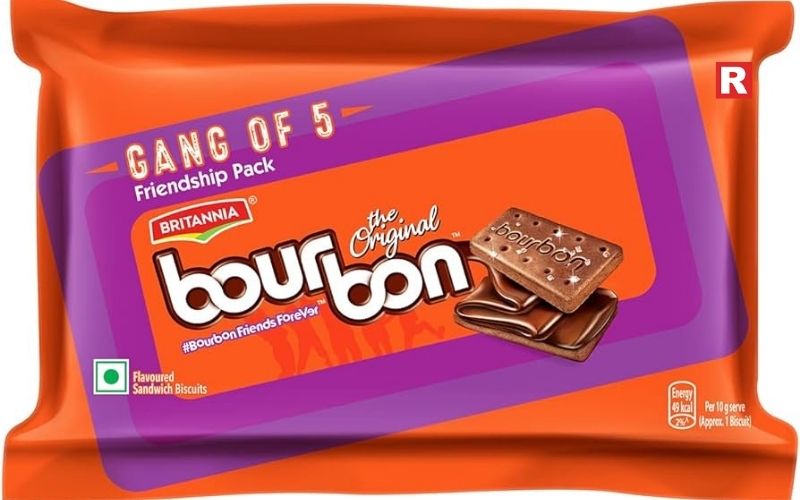
These biscuits are so good that they need a separate section from their brand’s other varieties. Bourbon is known for its creamy center of chocolate and crisp exterior, making it a good choice for pairing with coffee. The chocolate center isn’t too sweet and pairs well with the crunch exterior. When you take a bite of this biscuit, you experience a flavor that is sweet but not overwhelming, rich, gentle, and lingers on your taste buds. Bourbon is also a popular choice with chai for those people who enjoy a sweeter snack. The biscuit’s rich taste and quality have made it a favorite for tea and coffee lovers across India.
6. Anmol
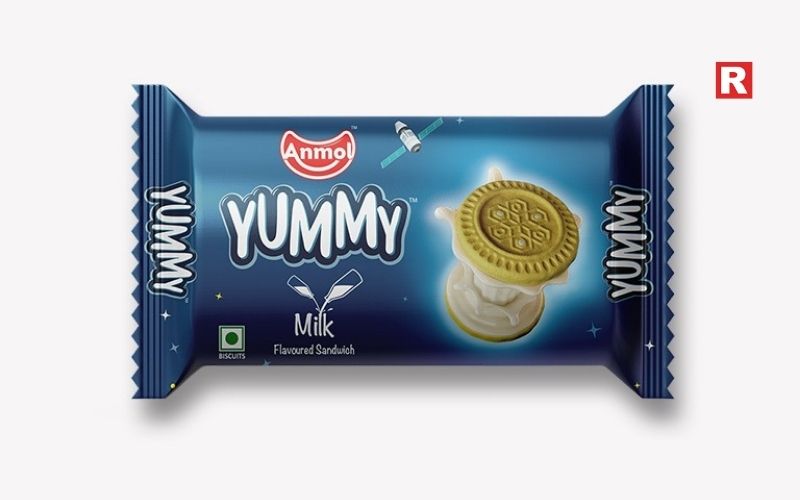
Anmol biscuits are known for their good quality and classic taste, which is why Indian families have trusted them for years. Their Glucose biscuits taste great with chai and give you a light, sweet crunch that is perfect with a warm cup of tea. They’re made with simple ingredients, so you get a good snack without any artificial ingredients. Anmol has other biscuits, too, like cream, butter, and digestive ones, so there’s something for everyone. People love the brand because the biscuits always taste good and don’t cost much, making them perfect for tea every day. You can find Anmol biscuits in stores and supermarkets all over India. Their simple, classic flavors have made them a favorite with both kids and grown-ups. They also have other items besides biscuits, like chai-friendly Rusk, waffles, and mini-cakes.
7. Priya Gold
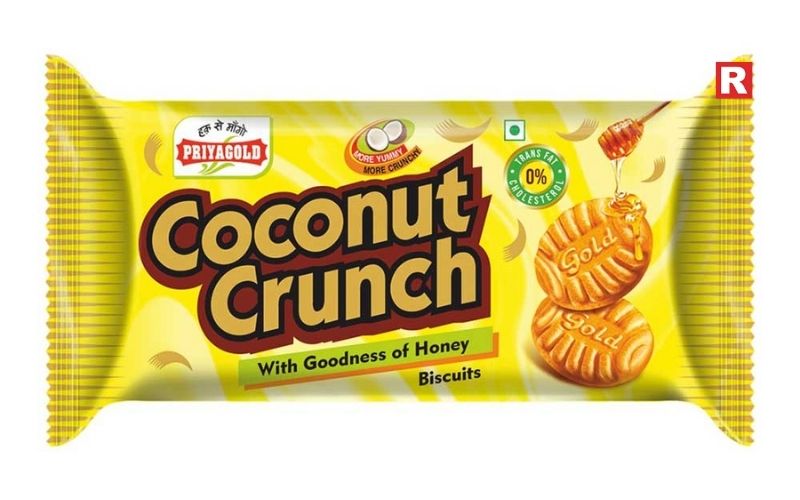
Priya Gold biscuits are pretty good, with both classic and new flavors for people who care about taste. Their Cheese Cracker is a hit if you like something cheesy with your tea or coffee. They have a strong cheese flavor and a nice crunch. Marie Lite biscuits are another common choice. They're light and crispy, good for dipping in your chai or coffee without getting mushy. Priya Gold also has other biscuits, like fruit and nut types, if you want something a bit fancier with your tea. The brand cares about good ingredients and great taste. People pick these biscuits for celebrations or when they want a treat. You can find Priya Gold biscuits in most stores and online. So, if you're in India and love biscuits, you can easily get your favorites.
Check out: Top Flavour Coffee Brands in India That Every Coffee Lover Must Try
Best Cookie Brands in India: A Complete Guide for Cookie Lovers
8. Googly (Bisk Farm)
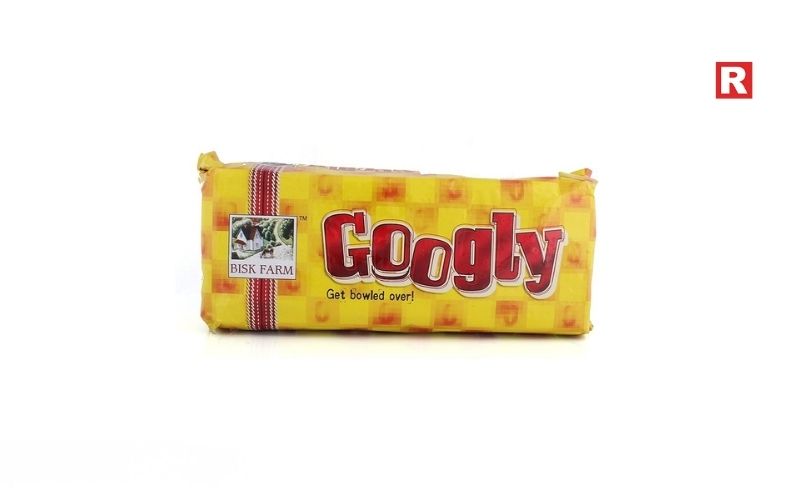
Googly biscuits, produced by Bisk Farm, are pretty popular because they have unique flavors and an innovative texture. People especially like their cream-filled biscuits with coffee. The cream makes the coffee taste even better. If you like chai, the plain Googly biscuits are a good match. They don’t take away or overpower the flavor of teamaking them suitable for people who like a more subtle pairing with their tea or coffee. Googly also experiments with different kinds of biscuits, and makes biscuits like flavored and multigrain ones, so everyone can find something they like. Basically, Googly biscuits are made to be versatile, so they can go with whatever you're drinking, whether it's coffee in the morning or tea at night. They're known for being creative and yummy. Popular choice for those who love to try new flavors and textures with their favorite drinks.
9. Patanjali
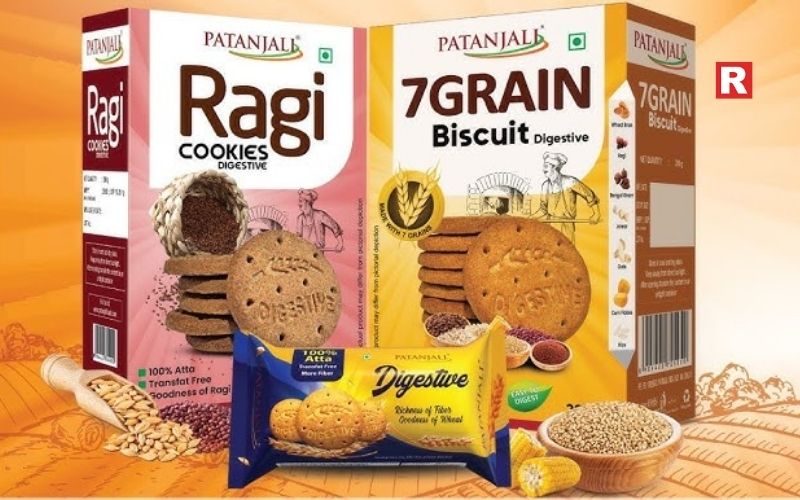
Patanjali is a popular Indian brand that's known for its natural and Ayurvedic products, and their biscuits are no different. They sell unique biscuit varieties such as Doodh Biscuits and Nutty Delite, which contain stuff like milk, oats, and nuts. These biscuits don't have artificial flavors or preservatives, so they're a great choice for people who care about their health and for families who want snacks without the guilt. Their biscuits taste great with both chai and coffee, giving you a nice crunch and a bit of sweetness that goes well with a warm tea or a rich coffee. Because the brand uses natural ingredients and keeps prices low, their biscuits are liked by people in cities and villages. You can eat them for a fast breakfast, an afternoon snack with tea, or a small evening treat. Patanjali biscuits give you a good experience that fits with today's health ideas while still feeling like a classic Indian biscuit.
10. Unibic
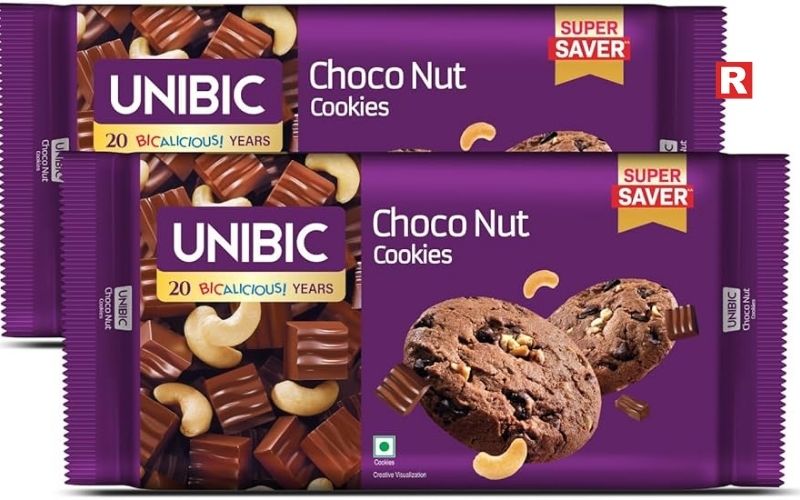
Unibic is known for its gourmet biscuits. They offer a wide variety of premium choices like chocolate chips, fruit, or nuts. They’re made to give you an indulgent experience, especially for people who like something sweet with their coffee. These biscuits also work well with chai. Their strong flavors and crunch make your tea time even better. Young people and families who like high-quality biscuits love Unibic because of their good quality and ability to elevate their tea or coffee time. Unibic uses quality ingredients and also comes up with innovative recipes, which is why people who love tea and coffee enjoy them. Whether you're having coffee or chai, Unibic biscuits make any moment feel a little special, so they're a popular pick if you like fancy biscuits.
Learn more: India's Famous Namkeen Brands: The Top 10
Finding the Perfect Pair
In India, there's nothing quite like dipping a biscuit into your chai or coffee. It's a simple pleasure that brings happiness to homes everywhere. These little treats make everyday moments better, with a yummy mix of tastes and textures that go perfectly with both sweet and savory drinks. You can find all sorts of biscuits these days, from the old favorites to fancier ones and even some healthy choices. They're not just snacks, they're a key part of India’s tea-time tradition and happy memories of many. Whether you're taking a quick break or settling in for a cozy evening, biscuits and tea or coffee are a beloved Indian custom that celebrates good taste, tradition, and spending time together.

Vitamin C is a nutrient that's common in our diets. People like it because it boosts immunity, keeps skin healthy, and enhances their well-being. Most people try to get Vitamin C in their meals, whether it's from fruits, veggies, or drinks. However, your body can't store it for long, so you need to get it regularly.
In India, there are lots of foods that are a great source of Vitamin C. You can find them easily at local markets and stores. They're good for any region and don't take much work to add to your meals. Because of this, Indian families have been eating these things for a long time, no matter the season.
This article will list seven foods that are loaded with Vitamin C. Also, it’ll explain why they are good for you, how you can eat them, and why you should include them in your daily diet.
Read more: 12 Foods Like Avocado That Are Creamy, Healthy, and Tasty
Why Your Body Needs Vitamin C
- Supports iron absorption: Vitamin C helps your body absorb iron from plant-based foods. This can really help with keeping your energy up and fighting off tiredness, especially if you're a vegetarian.
- Strengthens immunity: Getting enough Vitamin C can also help your immune system. Many find they feel better during seasonal changes when they get enough of it.
- Protects cells: It also protects your cells from damage caused by things like stress, pollution, and not eating properly, which helps keep your body in good shape.
- Aids collagen production: Vitamin C is used by the body to make collagen, which is important for healthy skin, comfortable joints, and healing wounds.
- Easy to obtain: It's actually easy to get Vitamin C. Even though people talk about it a lot, it's one of the simplest nutrients to find in everyday foods.
- Must be taken through diet: Your body can’t make Vitamin C on its own, so it’s important to get it daily from the food you eat.
Lots of fruits and veggies used in Indian cooking have Vitamin C. Here are seven great examples.
7 Vitamin C-Rich Foods
1. Amla

Amla is packed with Vitamin C. People eat it raw, pickled, or drink it as juice. It's been a go-to in Indian diets for ages. Amla helps your immune system, makes your skin look better, and keeps your stomach happy. Plus, it has nutrients that fight off damage from the environment.
You can grate Amla into salads, mix it with water and honey, or eat it as murabba. Some like them sun-dried because it's not as strong. Since you can find it in most Indian markets, it's easy to eat a little bit regularly. Just one piece gives you a good dose of Vitamin C, so it's a simple choice.
Know more: 10 Vegetarian Indian Foods That Help You Gain Weight the Healthy Way
2. Oranges

Oranges are a favorite all over the country, especially in winter. They taste great, with a mix of sweet and sour, and they're full of Vitamin C. They help you stay hydrated, keep your immune system strong, and just make you feel good. A lot of people like them as a quick afternoon snack because they're easy to eat.
You can eat oranges as they are, or juice them. The sections have fiber and natural sugars that give you a steady energy boost. Kids usually love them, so they're great for family meals. Since you can find different types of oranges in different areas, most families can get them during the winter.
3. Guava
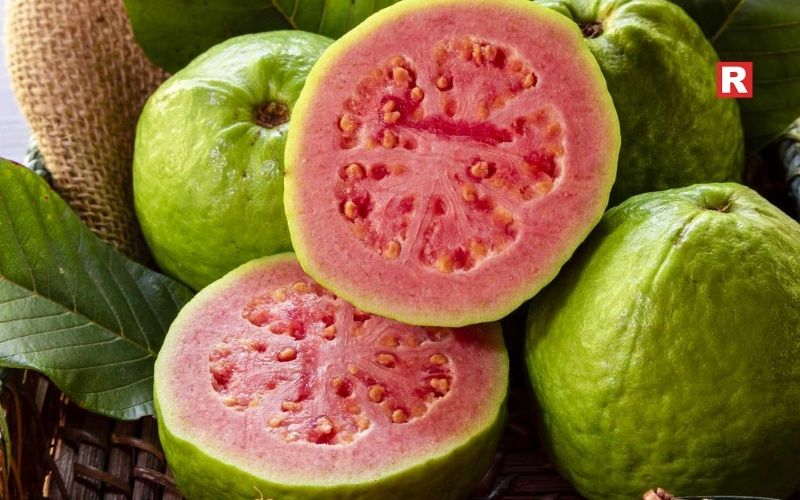
In India, guava is known as a super-nutritious fruit because it has more Vitamin C than a lot of citrus fruits. People like it because it's good for your digestion, tastes sweet, and has a nice, firm feel. If you eat it with the skin on, you get fiber and other small nutrients that are good for your gut.
You can just slice up a guava and eat it, put it in fruit salad, or blend it into a juice. Whether it's pink or white inside, it's packed with Vitamin C. Since guava is cheap and easy to find in stores, it's a simple way to get more nutrients every day without a big change to what you eat.
4. Lemon
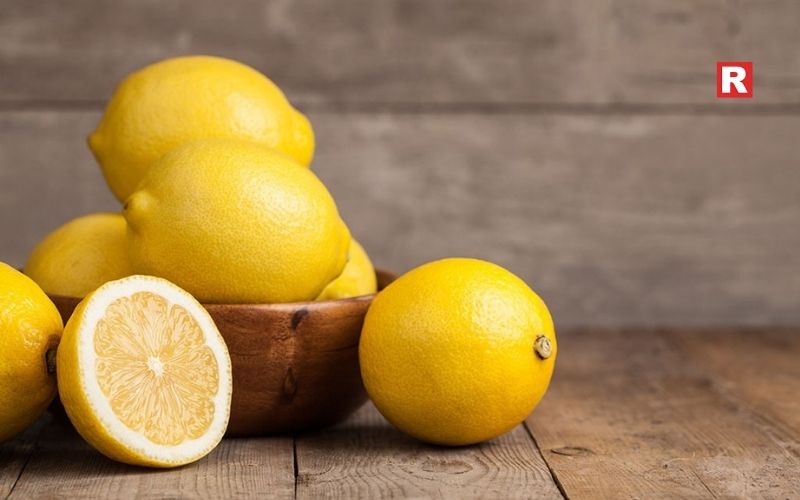
Lemons are a must-have in Indian kitchens. Just a little squeeze gives you a good dose of Vitamin C. People put lemon in everything from dal and salads to chutneys and drinks. It makes food taste better, aids digestion, and just makes everything brighter. Lemon juice is also great for helping your body soak up iron from veggies, which is super useful if you're a vegetarian.
Since lemons are around all year, they're a vitamin C source you can always count on. A warm glass of lemon water in the morning is what many people drink every day. And it is also great for keeping you hydrated when added to cold drinks when the weather gets hotter.
5. Papaya
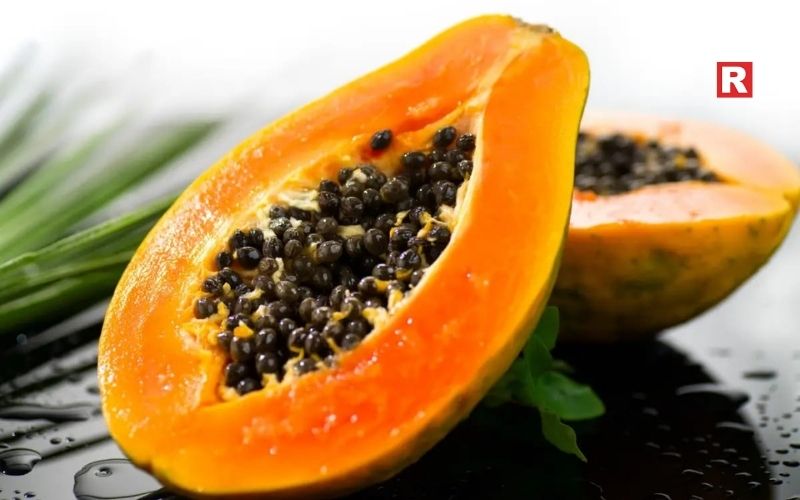
Papaya is a nice, gentle fruit packed with Vitamin C. It also has some other good stuff that can help your digestion and make your skin look good. It's easy on your stomach, so it's often a good choice if you're getting over a cold or something. Plus, it has enzymes that help you break down your food better.
You can just eat papaya by itself, put it in a smoothie, or toss it in a fruit salad. You can find it pretty much everywhere in India, and it won't cost you too much. Eating it regularly can help keep your immune system strong and keep you feeling good. Some people even use it on their skin because of those enzymes and antioxidants.
What's new: 10 Anti-Inflammatory Foods to Add to Your Diet
6. Capsicum
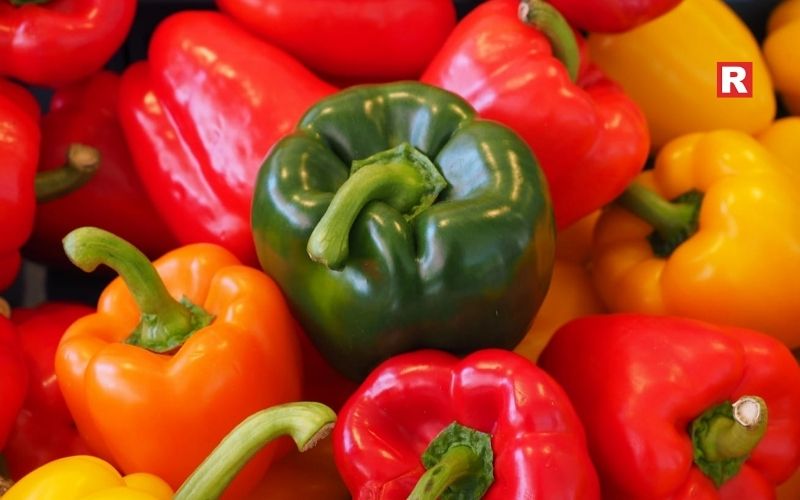
Bell peppers, especially the red and yellow ones, are packed with Vitamin C. Lots of families often go for the green kind since they're cheaper and easier to find. Bell peppers help your immune system and protect your cells. Plus, they've got fiber, which is good for your digestion.
You can stir-fry bell peppers, toss them in salads, put them in sandwiches, or cook them with lentils and rice. Their crunchy texture and bright colors make even simple meals taste better. Since bell peppers cook fast, they're perfect for busy families who want healthy meals without spending ages in the kitchen.
7. Strawberries
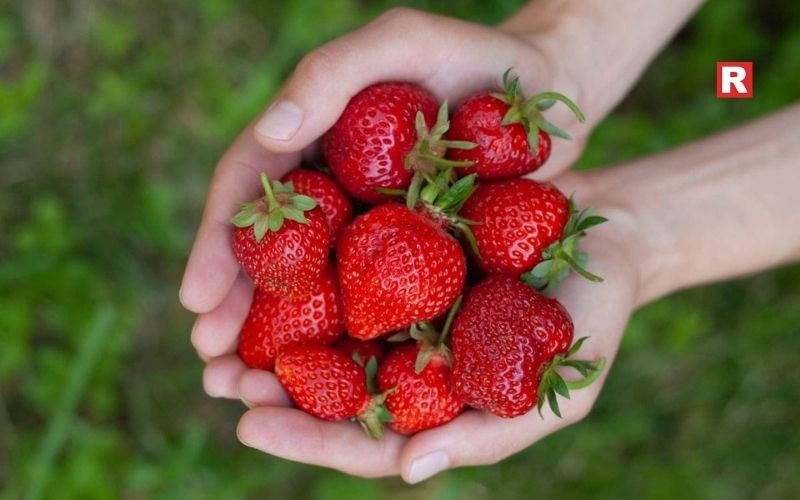
Strawberries are a winter fruit in India and are packed with Vitamin C. Their bright color comes from antioxidants, which are good for your skin and health. People like to eat them in desserts, shakes, or just in a bowl. If you eat them fresh, you also get fiber and water.
Strawberries can be a bit expensive, but even a few can give you a good boost of Vitamin C. They're a popular treat in the winter. Some people freeze them so they can enjoy them longer. Just be sure to handle them carefully and wash them well, and you can easily add them to your daily snacks.
How Vitamin C Supports Immunity
Vitamin C helps boost your body's defence system. It makes your immune cells work better and react faster. This is really helpful when the seasons change, and people tend to get sick more easily. Eating foods that have a lot of Vitamin C can keep your energy levels up and help your body ward off sickness.
Taking Vitamin C regularly can make you feel less tired and help you bounce back faster after working out. It also reduces stress in your body, which helps you stay balanced even when you're busy. Because of all these good things, Vitamin C-rich foods are great for everyone, no matter how old they are.
Check out: Best Exotic Fruits to Enjoy This Winter for Taste, Health and Glow
Top A2 Ghee Brands in India to Keep You Warm & Healthy This Winter
How Vitamin C Helps Skin Health
Vitamin C aids collagen production, which keeps your skin firm. It also guards against daily stressors like the sun and pollution. A lot of people see clearer, brighter skin with regular vitamin C intake. Plus, it helps heal wounds and keeps dryness away.
You can easily add vitamin C-rich foods to your snacks, salads, and drinks. Since it works best when you take it consistently, small amounts each day are better than large doses once in a while. This constant approach is the key to lasting skin health.
How to Include These Foods in Your Routine
It's easy to add more Vitamin C to what you eat every day.
- Just try to eat at least one fresh fruit each day. Good choices are oranges, guavas, or papayas.
- Squeeze some lemon juice over your food.
- Use bell peppers in your usual cooked veggie dishes or salads.
- Keep fruits that are in season handy for when you want a snack, like strawberries.
- Make small amounts of amla chutney or juice.
These simple changes can help you have a more balanced and varied diet.
Learn more: Top 10 Healthiest Breakfast Bowl Fruits
Your Vitamin C Path
Getting enough Vitamin C is easy in India because the food that has it is easy to find, cook, and grow all over the place. It's good for your immune system, gives you energy, and helps your skin, so it's just good for you overall. If you eat these seven foods often, you will get enough Vitamin C without having to change what you do much. You do not need to look for ingredients that are hard to find; instead, just get used to eating stuff you already know and like. If you know why these foods are good for you and how to add them to your meals, you can easily get healthier.

Chia seeds are one of the most popular food items these days. People love adding them into smoothies, breakfast bowls, and even baked dishes. They're super easy to work with and can fit into pretty much any diet. Plus, they don't have a strong flavor, and the texture is nice and simple, which makes them a go-to for people wanting a small extra ingredient to boost their health.
Chia seeds are getting more and more popular in India, too. You can find them everywhere now, from supermarkets, organic shops, and online stores. Lots of people in India are mixing them into drinks, yogurt, and homemade snacks. The reason they're so in demand is because of all the benefits they offer for your health, like helping with digestion and boosting energy.
This article will go over eleven awesome benefits that chia seeds can provide for you. Each benefit is explained clearly and simply so you can see how this tiny ingredient can help your daily diet and keep you feeling good.
Read more: 10 Vegetarian Indian Foods That Help You Gain Weight the Healthy Way
Benefits of Eating Chia Seeds
1. Helps Improve Digestion

Chia seeds are full of fiber, which helps keep your digestion smooth and regular. When you soak them, they turn into a soft gel that's easy on your stomach and intestines. This can ease constipation and keep your gut working well. The fiber also feeds the good bacteria in your gut, which is important for your immunity and overall health. If you're looking for a simple, natural way to help your digestion, chia seeds are a great choice. Just add a spoonful of soaked chia seeds to your breakfast or a nighttime drink, and you will notice a change over time.
2. Supports Weight Management
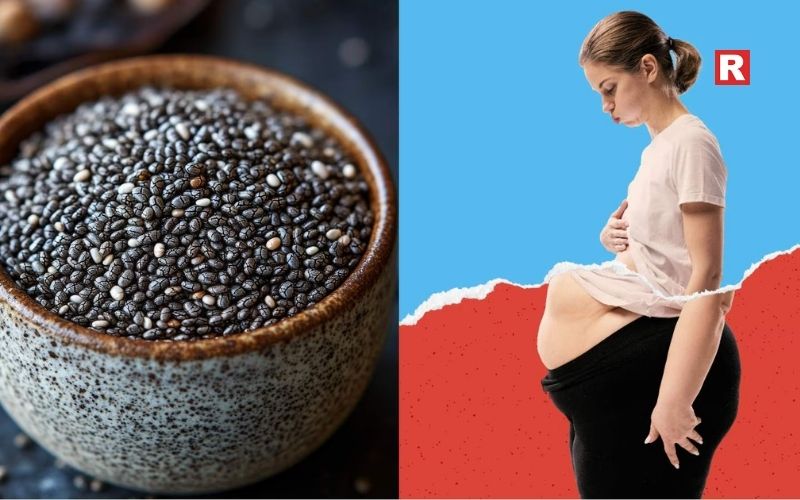
Chia seeds expand when you soak them in water, and that helps you feel full. This can stop you from snacking too much and help you watch your calories. The fiber in them keeps your digestion slow and gives you steady energy, so you don't suddenly get hungry. Since they are low in calories but are rich in nutrients, chia seeds can help you make a filling meal without overeating. If you eat them regularly, chia seeds can help you stick to a healthy diet and keep your weight in check.
Know more: 5 Foods That Are Excellent for the Heart
3. Good Source of Omega-3 Fatty Acids

Chia seeds are a source of plant-based omega-3s, which are good for your heart and brain. These fats can help lower inflammation in your body and keep your cells functioning properly. If you don't eat fish or have a preference for vegetables, chia seeds are a simple way to get omega-3s every day. Omega-3s are known to help your memory, focus, and keep your heart in good shape, so chia seeds can be a valuable food source for both grown-ups and kids.
4. Boosts Energy and Stamina
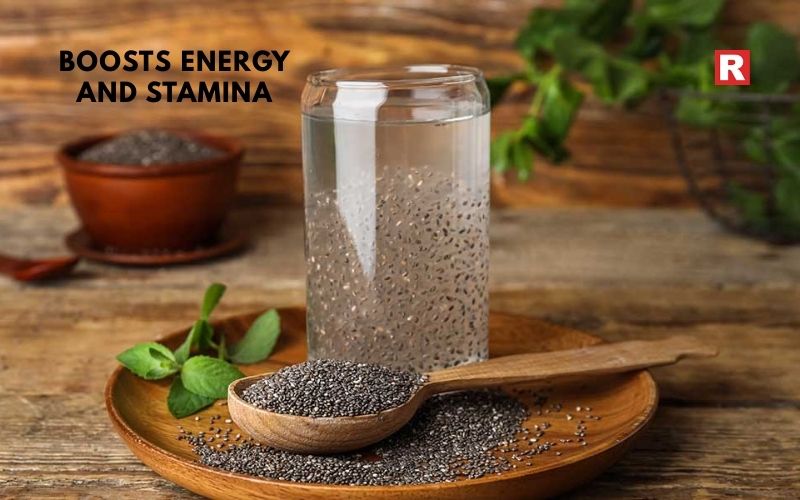
Chia seeds are great because they have a combination of protein, good fats, and fiber to give you consistent energy without any sugar crashes. Because of this, they're a cool choice before you exercise, spend hours studying, or have a packed day. The slow and steady power helps you keep going for longer. People used to use chia seeds to stay strong before running or traveling. They give you a boost that lasts longer than a sugary snack.
5. Supports Heart Health

Chia seeds are good for your heart in several ways. The fiber in them helps keep your cholesterol in check, and the omega-3s reduce inflammation and promote healthy blood circulation. Plus, they have antioxidants that keep your heart safe from damage due to stress and pollution. If you eat chia seeds regularly, it can help your heart work well as you get older. They're easy to toss into what you already eat, so it's clearly beneficial to use them to keep your heart in good shape.
6. Helps Maintain Blood Sugar Levels
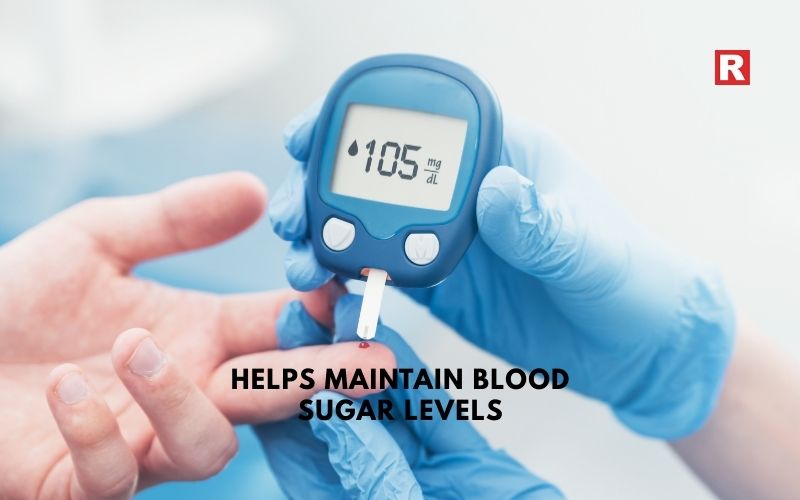
Chia seeds have fibre that slows down the digestion of carbohydrates, and this keeps your blood sugar steady. So, you won't have any sudden sugar spikes and crashes. This is good if you want to keep your energy levels even. Chia seeds can also help cut down on cravings that come from quick changes in your sugar levels. Adding them to your meals makes for a more balanced and lasting energy source.
What's new: 10 Anti-Inflammatory Foods to Add to Your Diet
7. High in Antioxidants
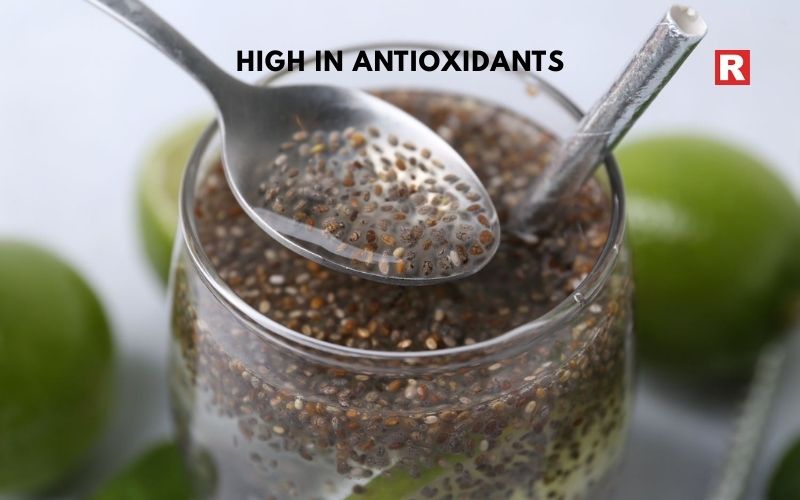
Chia seeds have antioxidants that help your body fight damage from free radicals. These antioxidants can slow down how quickly your cells age, keep your skin healthy, and boost your immune system. Plus, they keep the seeds fresh by stopping the natural fats from going bad. Eating foods full of antioxidants, like chia seeds, can help lessen the impact of stress, pollution, and poor dietary habits. They work behind the scenes to keep you healthy and your body working smoothly.
8. Strengthens Bones and Teeth

Chia seeds are packed with calcium, magnesium, and phosphorus. All of them are good for keeping your bones strong and your teeth healthy. If you don't eat dairy often, these minerals are super useful. Just adding chia seeds to your diet can really help you get your daily dose of these important minerals. They keep your bones in good shape, help your muscles work well, and reduce the risk of weakness as you get older. 9. Good Plant-Based Protein Source
Chia seeds are a great plant-based protein source. So, they're helpful if you're a vegetarian, vegan, or just trying to get more protein without eating a ton of meat or eggs. Protein helps fix your tissues, keeps your muscles strong, and gives you energy. Because chia seeds also have fiber and good fats, they make a well-rounded food that helps you feel full.
9. Good Plant-Based Protein Source

Chia seeds are a great plant-based protein source. So, they're helpful if you're a vegetarian, vegan, or just trying to get more protein without eating a ton of meat or eggs. Protein helps fix your tissues, keeps your muscles strong, and gives you energy. Because chia seeds also have fiber and good fats, they make a well-rounded food that helps you feel full.
10. Helps Keep You Hydrated

Chia seeds are great at soaking up water. They can absorb many times their weight. This creates a gel that keeps you hydrated longer, which is super useful when it's hot or you're spending lots of time outside. If you put soaked chia seeds in your drinks, it helps your body balance its fluids. Lots of people like to make chia water or chia lemonade because it's a refreshing way to cool down. Plus, it helps you stay hydrated and gives you some extra nutrients that you wouldn't get from just plain water.
Check out: 6 Easy Pumpkin Seed Recipes with Surprising Health Benefits
10 Surprising Health Benefits of Having Plant-Based Diet
11. Good for Skin Health

Chia seeds are great for your skin because they have antioxidants, omega-3s, and minerals. These things can help keep your skin healthy and bright. They can also help with dry skin, fix skin damage, and keep pollution and sunlight from hurting your skin. Eating chia seeds often can make your skin look and feel better, giving it a natural glow. Because they help reduce inflammation, chia seeds can also soothe irritated skin. Adding them to what you eat is an easy way to take care of your skin from the inside.
Ways to Eat Chia Seeds
- Before you eat them, let them sit in water for 20-30 minutes.
- You can toss them into smoothies, yogurt, milkshakes, or even fruit bowls.
- Try mixing them into your morning porridge, oatmeal, or cereal.
- They're also great when stirred into lemonade, coconut water, or herbal tea.
- Add them to homemade pudding to thicken it up.
- Sprinkle them on salads or your favorite cooked veggies.
- Mix them into muffins or roti when you're baking.
- Start with a tablespoon a day and slowly add more if you like.
Learn more: The Secret Health Benefits of Matcha Tea You Probably Didn’t Know
Small But Mighty
Chia seeds are super easy to include in what you eat every day. They've got nutritious qualities that help your digestion, keeps your energy up, is good for your heart, and makes your skin look good. If you eat them regularly, they can make your life healthier without you having to try too hard. They don't taste like much and are easy to use, so both grown-ups and kids can enjoy them. You can stir them into drinks, snacks, or meals. They fit right into what you normally eat. By making small changes bit by bit, you can feel better for a long time.

Hyderabad's street food scene is lively and friendly. While everyone knows the city for its biryani, the little food stalls and night vendors are not to be underestimated. They really show off how much the city loves strong tastes and makes people feel at home, locals and travellers alike.
In old Hyderabad, you can still taste the royal touch of Nizam kitchens. You'll see it in dishes cooked slowly with lots of spices and made the old-fashioned way. But in the newer parts of town, it is the modern street food that brings the young people together every night. What makes it all so great is how the city's history mixes with daily life. Just walking around Charminar or Gachibowli, you'll find tons of stalls selling dosas, kebabs, chaat, and Irani tea. This mix of old and new is what Hyderabad street food is all about.
If you want to visit Hyderabad on your next trip, but don’t know where to find the best street food, then read this article, as we have compiled a list of the best places there.
Read more: Top Famous Veg Street Foods in Kolkata That You Must Try Once in Your Life
What Makes Hyderabad’s Street Food Unique?
Hyderabad's street food is special because it mixes Mughlai, Andhra, Telangana, and Irani tastes. Vendors use spices passed down through families, which gives the food a taste that locals know and love. You'll see slow-cooked meats, crunchy snacks, flavorful chutneys, and sweets that show Persian influence. Lots of these food stalls have been around for years, serving up the same great flavors that keep people coming back. Irani bakeries, tiny dosa places, kebab stands, and chaat spots each add something special. This mix of history and local flavors makes Hyderabad's street food feel rich and diverse.
Popular Areas for Street Food
- Charminar: You can find classic Hyderabadi food here, stuff like kebabs, cookies, biryani, and haleem seasonally.
- Mozamjahi Market: This place is great for old-school bakeries, fruit ice cream, and traditional desserts.
- Tank Bund: It becomes very lively at night with lots of snack vendors selling all sorts of delicious snacks.
- Sindhi Colony: People know this spot for chaat, sandwiches, pav bhaji, and fast-food-style snacks.
- Gachibowli: This area has a bunch of modern food trucks and stalls that are popular with young people who work in offices or students from neighbouring schools.
- Madhapur: A cool area to grab a quick bite from trendy stalls and fusion street food.
- Ameerpet: This place is popular for all kinds of dosa and cheap snacks, perfect for students.
Know more: Famous Street Food to Try in Chandni Chowk
Top 10 Street Food Spots in Hyderabad
1. Ram Ki Bandi
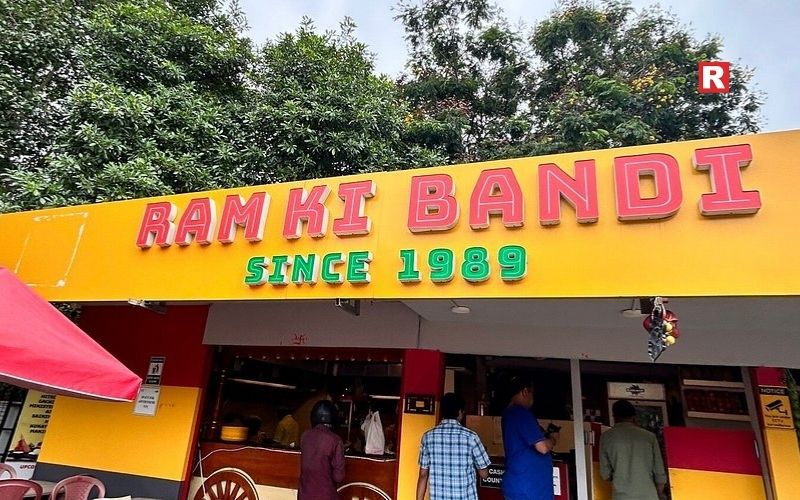
Ram Ki Bandi is famous for its dosas and idlis, which they make early in the morning with lots of fillings and chutneys. People especially enjoy the cheese dosa, pizza dosa, and upma dosa because they taste both familiar and special. The service is usually fast, so it's popular with people on their way to work and students. You can expect to pay around ₹150 to ₹250 for two people. It's best to go between 3:30 AM and 8 AM to get the freshest food. The location near Nampally is the most popular, but you can find other locations around the city. It's always busy because of its simple setup and tasty food.
2. Gokul Chat
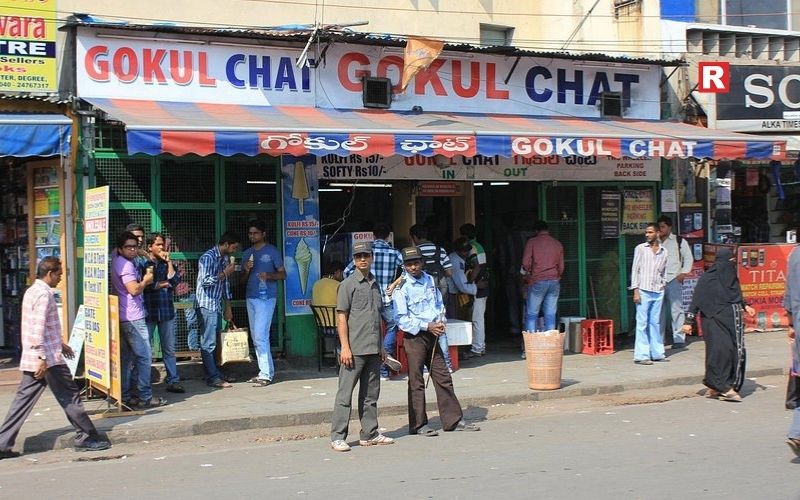
If you're looking for great chaat in Hyderabad, Gokul Chat in Koti is a super popular spot. It's been in business for about 50+ years. They're famous for their pani puri, dahi puri, tikki, and pav bhaji, and they also have fresh fruit juices. The food always tastes the same, and you get a generous portion for your money. You'll see all kinds of people there, from students, families, to people who've been going for years. It'll cost you around ₹200 to ₹300 for two people. What makes them special is that they mix North Indian chaat with local spices. Many people say you have to try it when you're checking out the street food in Hyderabad. But do make sure to carry cash with you, as they do not accept UPI payments.
3. Sindhi Colony Food Street
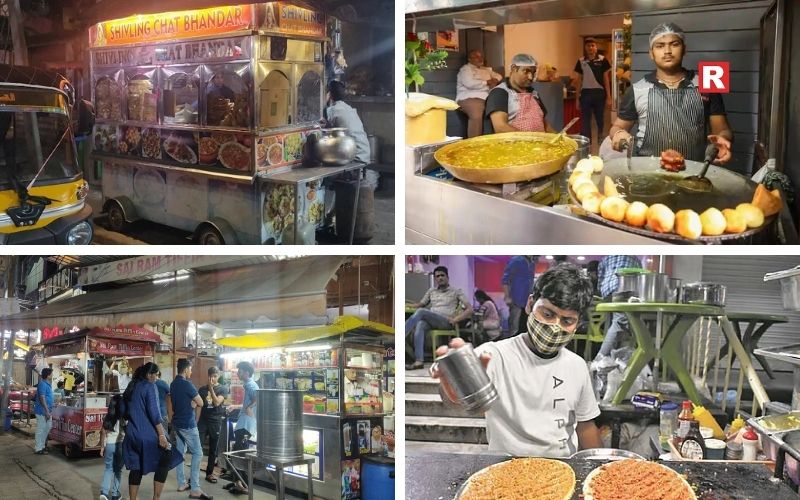
If you love street food, you have to check out Sindhi Colony in Hyderabad. It's got tons of options, including many for vegetarians. People know the area for its chaat, pav bhaji, sandwiches, and quick snacks, which are perfect when you're craving something in the evening or just hanging out. Lots of the stalls have been around for ages, giving the whole place a friendly vibe. You can grab crispy pani puri, rich milkshakes, super cheesy sandwiches, and smaller bites that are great for sharing with friends or family. The prices are fair, and it's always buzzing with activity. It's super easy to taste a bunch of different things in one go.
4. Madhapur Street Food and Food Truck Lane
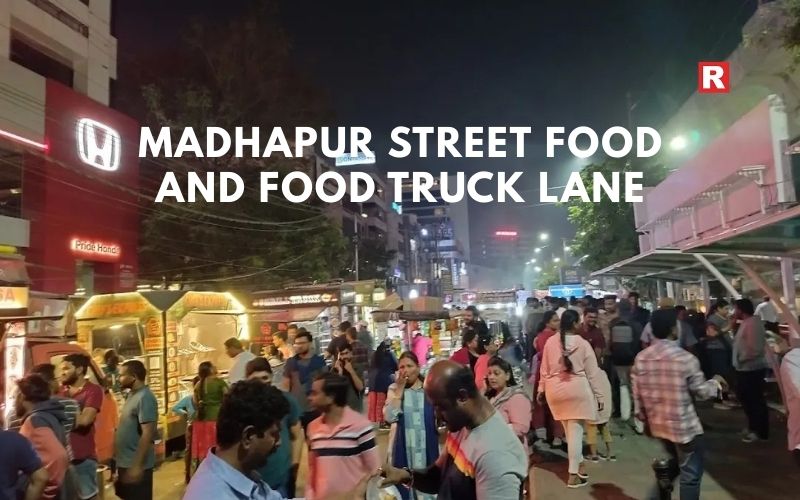
Madhapur's a cool place for street food now, packed with food trucks selling things like shawarma, momos, noodles, sandwiches, and some creative snacks that mix flavors. You'll mostly see younger professionals and college students hanging around. Shawarma, momos, and grilled chicken are big hits there. Expect to pay around ₹300 to ₹450 for two people. It's best to go after 7 PM when the majority of the food trucks are starting to cook up fresh food. Being close to Hitech City gives the place a lot of energy, and with so many choices, you can try something different every visit.
What's new: Top 10 Vegan Street Foods in India Every Indian Loves
5. Charminar Food Street
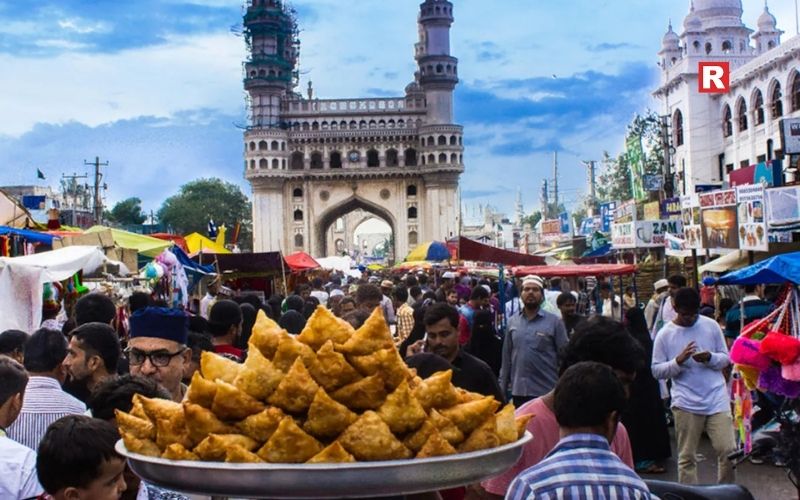
Charminar's streets are known for their tasty food like kebabs, biryani, nihari, lukhmi, Irani chai, and haleem (when it's in season). There's a ton to pick from, especially when night falls. You'll see vendors who've been around for ages and new little stands selling local favorites. The best time to go is after 7 PM. During Ramzan, the area really comes alive with special food and extended hours. It's a great spot to try real Hyderabadi food.
6. Mozamjahi Market
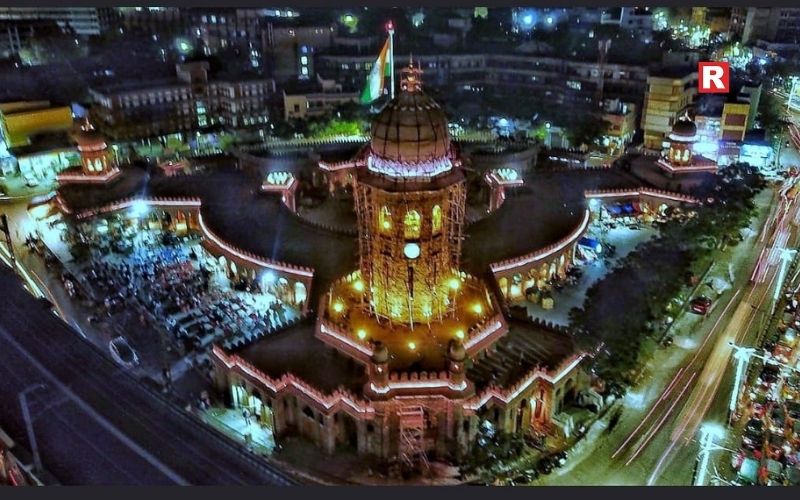
Mozamjahi Market is a favorite spot for its fruit ice cream, baked treats, samosas, and Irani chai. The ice cream is made on a cold stone with fresh, seasonal fruits. Many drop by after dinner for a light dessert or snack. It is affordable too. The best time to go is between 8 PM and midnight when the weather is nice. The area has a calm feel and an old-city vibe that makes eating there even better.
7. Tank Bund Street Food
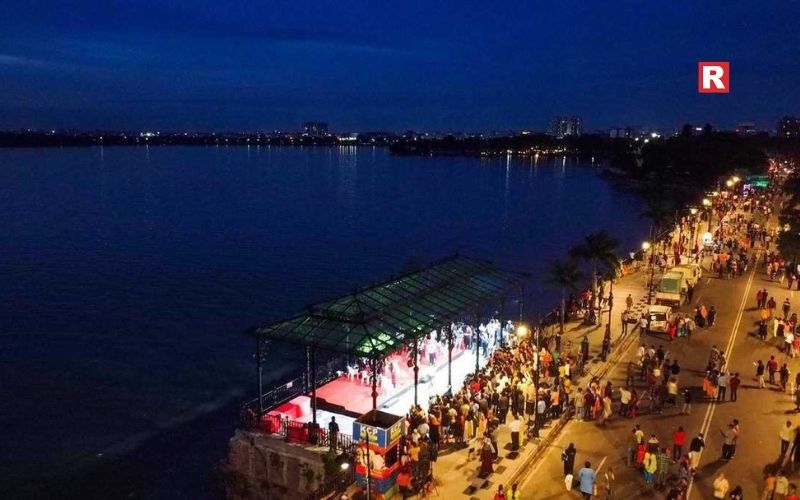
Tank Bund is a great place to go for an evening walk. You can grab snacks there. Vendors sell things like roasted corn, pani puri, and momos. It's popular because it's chill and the snacks are perfect for a casual hangout. The best time to visit is around sunset or in the early evening. You might not find full meals, but the beautiful lake scenery mixed with the quick snacks makes it a favorite hangout for many.
Check out: 8 Famous Street Foods of Agra You Can’t Miss
A Bite of Banaras: 8 Iconic Street Foods You Can’t Miss in Varanasi
8. Begum Bazaar and Feel Khana Lane
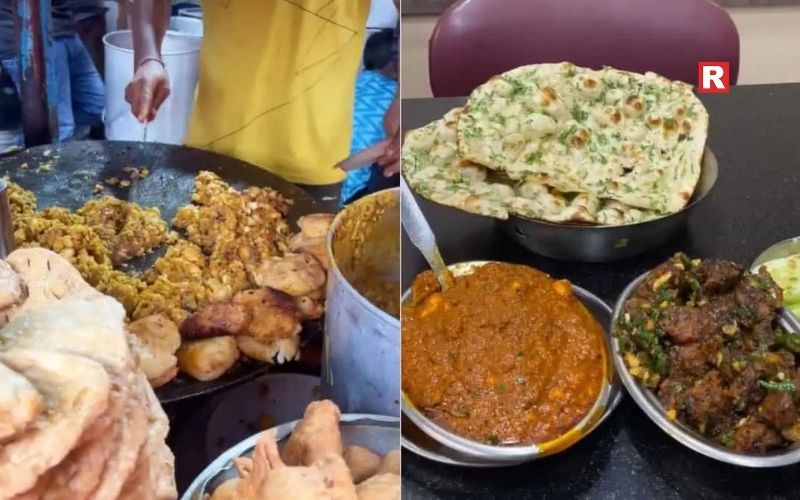
Begum Bazaar and Feel Khana Lane are in the middle of Hyderabad's busy old city. People know these areas for their packed streets, wholesale stores, and lots of street food. Begum Bazaar is a great place to grab traditional snacks, especially kebabs, rumali roti wraps, pulao, and local sweets. Right next door, Feel Khana Lane has cheap eats, tawa dishes, samosas, keema, and evening snacks, which attract employees and customers. If you want to taste real Hyderabadi cooking, these lanes are a good place to start.
9. Nimrah Café, Charminar
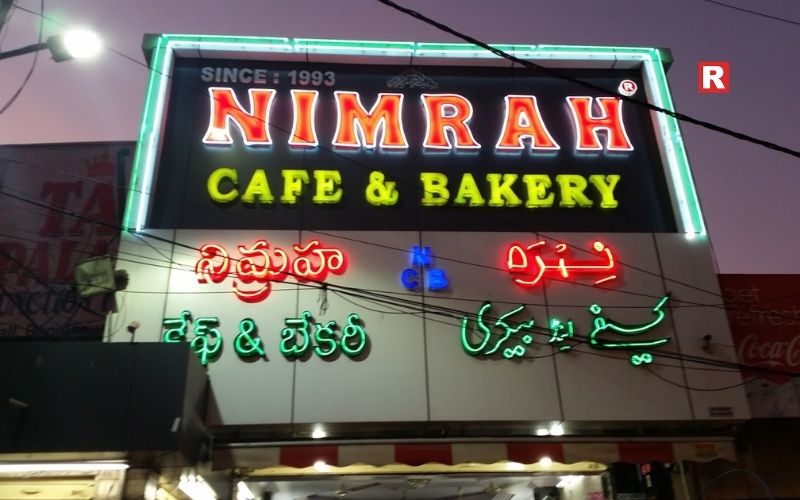
Nimrah Café, close to Charminar, is famous for its Irani chai and lots of different bakery biscuits. It's been a favorite spot for ages, and many people stop by after checking out the market. You gotta try their Osmania biscuits, naan khatai, and also the light, buttery cookies. They're incredibly delicious with the strong, sweet tea. It’s budget-friendly for your wallet and feels like a brief glimpse of old Hyderabad. The best time to go is early in the morning or in the evening when it’s lively but not too packed.
10. Gachibowli Food Trucks and Night Stalls
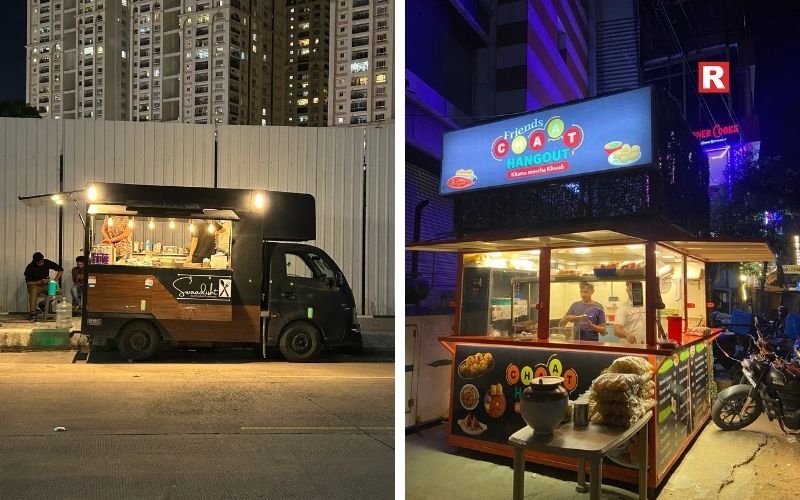
If you're in Gachibowli and hungry late at night, you're in luck! There are tons of food stalls open late serving stuff like shawarma, fried rice, momos, rolls, and grilled chicken. It's a great spot to grab a quick bite after work. The best time to go is between 9 PM and 1 AM when all the stalls are most active. The place has a lively vibe, and you usually get your food pretty fast. That makes this area a reliable option if you are looking for late-night food in Hyderabad.
Hygiene and Safety Tips
- Make sure the stall's counter is clean.
- Don't eat at places where food is left out in the open.
- Go for bottled water or drinks you know are clean.
- Choose food that's cooked fresh and hot instead of remaining unattended.
- It’s better to go when it’s not super crowded.
- See if the people serving food are wearing gloves or using clean tools.
- Check if they're reusing oil or sauces too much.
Learn more: Top Iconic Street Foods from Every Indian State You Must Try
City’s Flavors on A Plate
Hyderabad's street food is a mix of classic dishes and exciting modern flavors. Checking out the food stalls lets you feel the city's vibe. No matter if you're into light snacks, meaty meals, or sweets, every place has its own flavor. Eating here isn't too expensive, and it's fun to try new things with friends and family. When you visit these ten spots and taste different dishes, you'll get why Hyderabad's streets are such a great place to eat. Have fun, don't rush, and let each bite become a cool memory of the city.

Hummus is popping up in Indian kitchens as folks want tasty, healthy spreads that go great with bread, veggies, and regular meals. It's creamy, well-seasoned, and you can do a lot with it, so it's not just for health nuts anymore. Sure, we still love our usual Indian snacks, but hummus has found its place with people who want something fast and full of protein.
City people are a big reason why it's getting so popular. If you're busy, it's nice to have dips ready to go, and hummus is perfect because it's simple and tastes good with everything. Even restaurants and cafes are putting it on the menu, so people start buying it at the store, too. Now, there are tons of brands selling tubs of it in all the big cities.
Both Indian companies and international brands are selling it here. You can find regular chickpea hummus, or try kinds with Indian spices and herbs. There are lots of choices, so it's easy to find new flavors you like.
Read more: 10 Healthy Spreads Ideas That Turn Bread Into a Better Snack
Why Hummus Is Becoming Popular in India
- Taste and Versatility: Hummus is good with pretty much any eating style. Spread it on sandwiches, dip veggies or crackers in it, or have it with grilled food. Lots of folks in India like how you can use it with anything since it doesn't take over the taste of the other food.
- Good for Healthy Living: Since more people want plant-based protein in their diet, hummus is a go-to pick. It is made with chickpeas, tahini, olive oil, and some simple stuff. This means it's a good fit for folks who want snacks that are balanced and full of fiber, without a bunch of junk added.
- Rising Café Culture and Global Food Influence: Cafés, Mediterranean spots, and places that mix different foods have shown hummus to more people. When people get used to eating it out, they look for it in stores. That's why you can find it all over the place now in supermarkets and online.
The 8 Popular Hummus Brands in India
1. Wingreens Farms
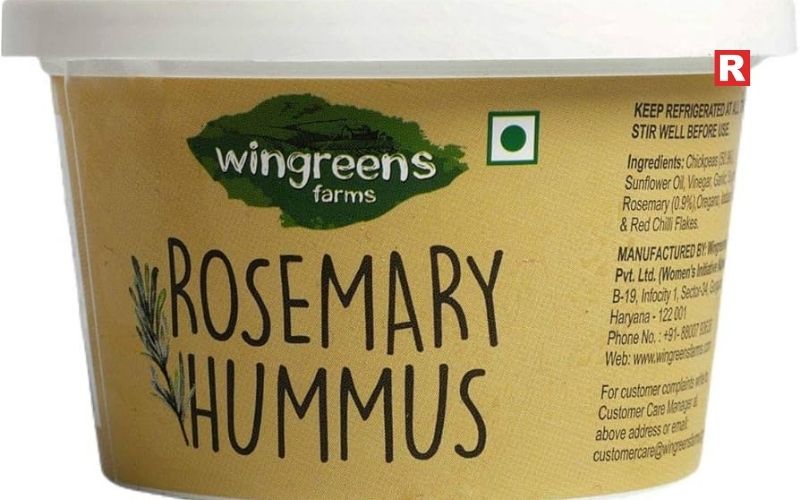
Wingreens Farms was one of the first brands to make hummus easily accessible throughout India. People who like a little spice or tang enjoy their regular hummus, plus the peri-peri, jalapeño, and garlic kinds. They care about good ingredients and talk about using cold-pressed oils and spices that taste just right. You can find their tubs in most stores and online. Since the flavors go well with sandwiches, chips, and salads, lots of people buy Wingreens all the time. It tastes the same every time, and the price is usually the same, which is why they're doing well.
Know more: Top 5 Barbecue Sauces for Marinades or Dipping: Smoky, Sweet & Absolutely Irresistible
2. Earthy Bliss
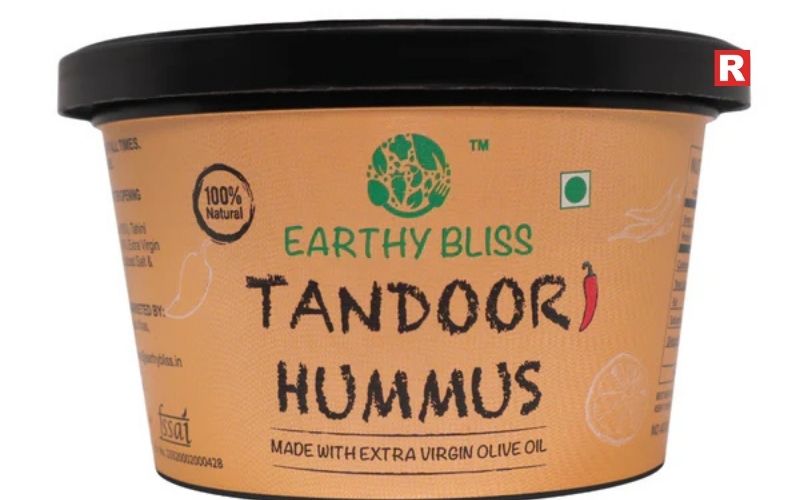
Earthy Bliss offers various types of hummus, including the basic variety, as well as olive, beetroot-ricotta, and tandoori flavors. They say it's all vegan, organic, and has no preservatives. They ship all over India and are trying to get the attention of people who want fancy, healthy dips. People seem to like how they package and market their stuff, particularly folks who are into modern, city-style dips.
3. Del Monte
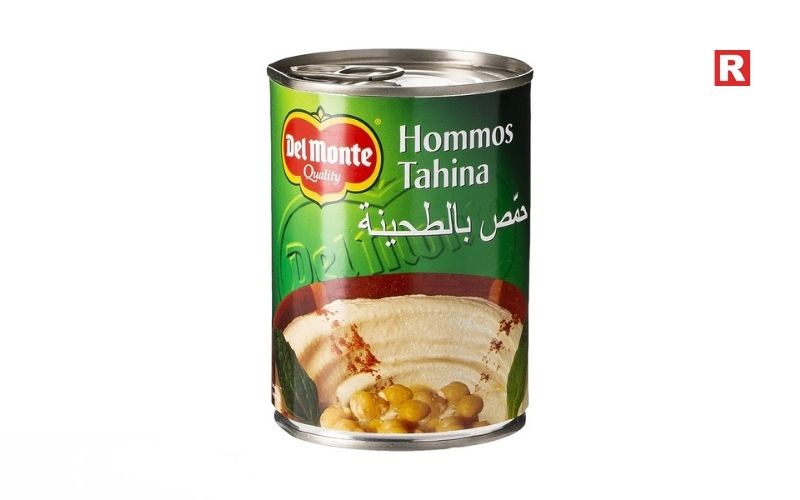
Del Monte is bringing its global recognition to the Indian hummus scene. They're already known for things like condiments and Mediterranean food, so their hummus is simple and mild. It's great for people who don't like strong flavors. It stays creamy without being too thick, which makes it easy to use as a dip, spread, or in bowls. They really focus on using good ingredients and keeping the texture the same every time, so customers can count on it. You can find it easily in stores, and the price is good for families who want a dependable, ready-to-eat spread.
What's new: 10 Vegan Side Dish Ideas That Complete Any Meal
4. Natuf
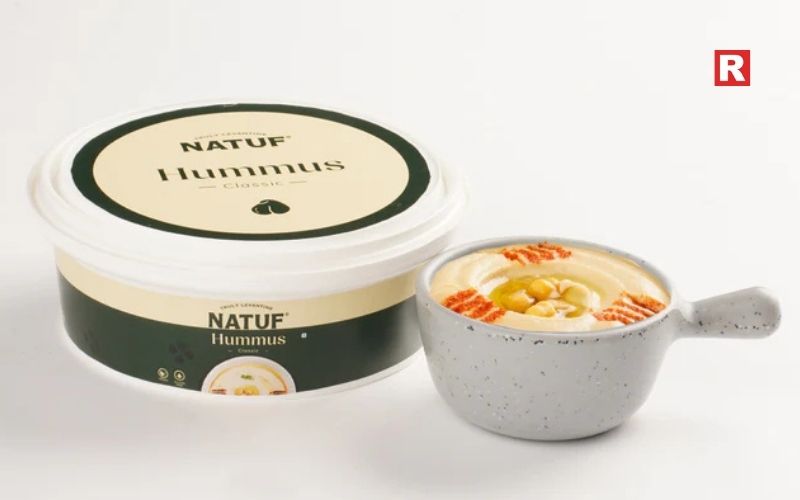
Natuf is also becoming a popular choice, mostly in some cities. They have regular, beetroot, and spicy hummus, usually aimed at people who make Mediterranean food. Right now, they mainly deliver in specific cities (like Bangalore). Natuf shows that more and more hummus fans want different flavors than just the regular kind.
5. Indic Roots
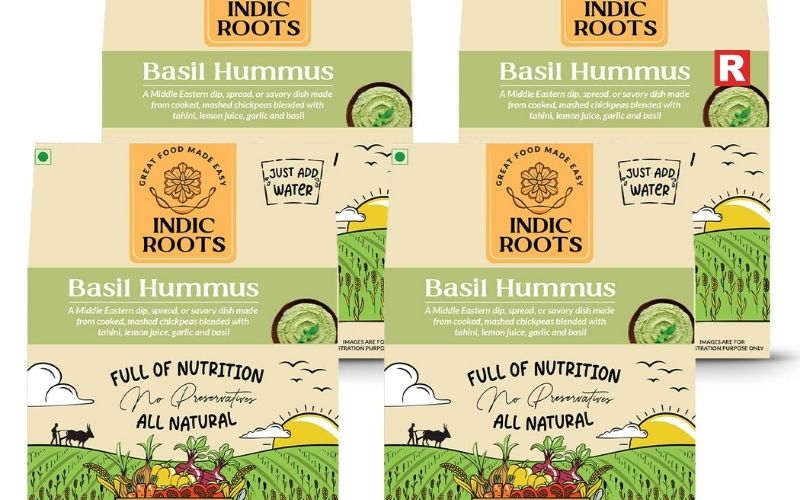
Indic Roots is a brand that sells hummus that's ready to eat or quick to make. It's got stuff like chickpeas, sesame seeds, olive oil, and some spices – nothing fake added. Indic Roots focuses on natural ingredients and a simple taste, so it's good for folks who like dips that are light and fresh. Since it started in India, it might be easier to get it into some stores there. Still, it doesn't seem to be as widely available as some of the bigger brands you see everywhere.
6. All That Dips
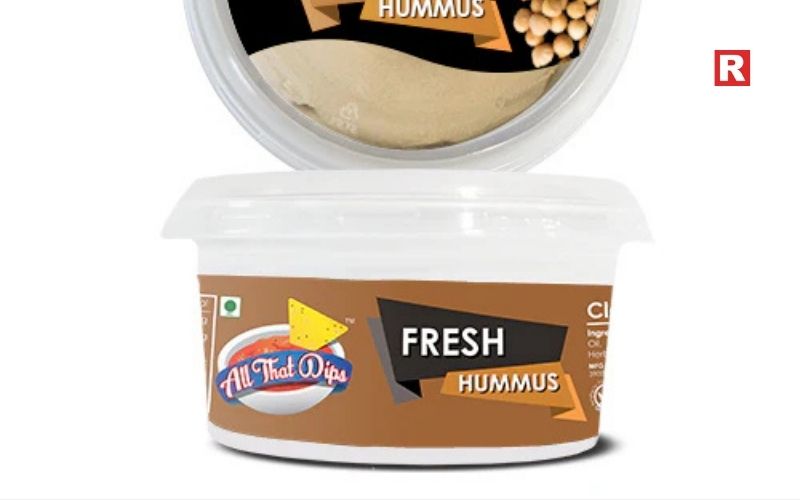
All That Dips is a brand from Vadodara that's famous for its dips and spreads made fresh without any yucky preservatives. Hummus is one of their big sellers. They have different kinds of hummus, like roasted garlic, spicy Sriracha, and the regular chickpea kind. They all come in 150-gram tubs, so you can start snacking right away. What makes them special is that they make their products in small batches and only use real ingredients. All That Dips sells its hummus in a bunch of cities in India. You can get it from online grocery stores and regular shops. So, it's easy for anyone who wants some good Mediterranean-style spreads.
Check out: India's Famous Namkeen Brands: The Top 10
5 Ways to Keep Tomatoes Fresh and Storage Tips
7. Kaze Living
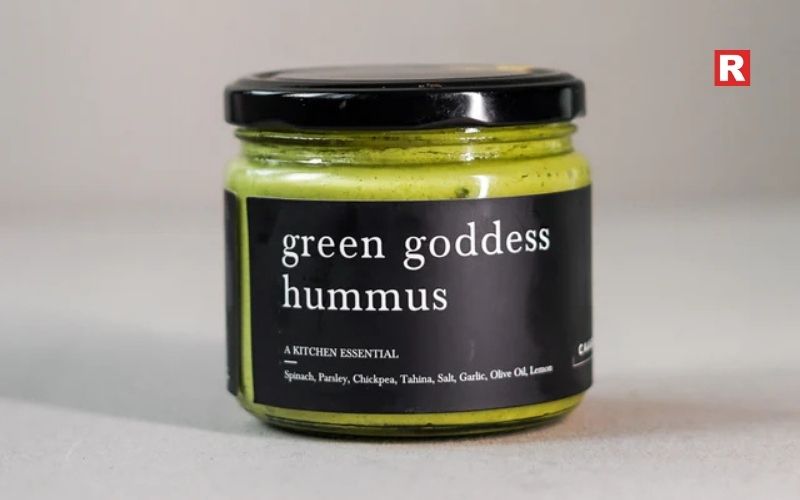
Kaze Living started out in Delhi NCR as a food startup that cared about good food and living sustainably. They wanted to get fresh, good food, often made by hand, to people in the city. They sell things like organic veggies, milk-free options, sauces, snacks, and also their own ready-to-eat hummus, as a healthy lifestyle thing. Kaze Living says their hummus is natural and doesn't have preservatives. It's got the usual stuff like chickpeas, tahini, olive oil, garlic, and spices. You can buy it in small tubs that are good for dipping, wraps, salads, or just snacking. They sell regular hummus, olive hummus, and other kinds too, for city folks who want easy and healthy spreads.
8. DAMAI
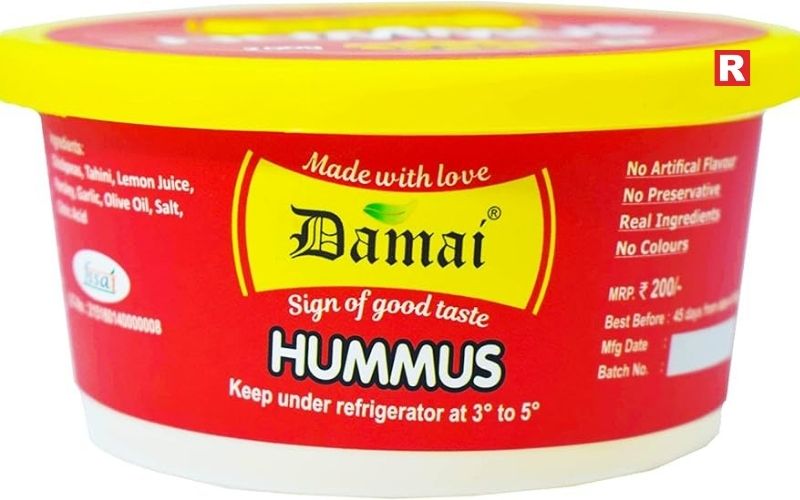
DAMAI is an Indian company based in Mumbai that makes hummus, jalapeño, and pepper dips. You can find them in trade and wholesale directories. They seem to focus on selling in large quantities to businesses instead of individual retail customers. Since DAMAI has its trademark in the food-spread area, which includes hummus and veggie dips, it looks like they want to sell ready-made dips in India instead of just importing them. If you're a business, like a caterer or restaurant, looking for hummus, DAMAI could be a good option for large orders. But you might not find their products in regular supermarkets across the country since they probably sell through distributors. So, DAMAI is aimed at businesses and people who buy in bulk.
Learn more: 15 No-Oil Recipes That Taste Amazing
The Final Scoop
Hummus is getting bigger in India as people want easy, good-for-you food with simple stuff in it. The brands that do hummus well have a texture people can count on and good flavors. Hummus is easier to find now, too, since it's not just in fancy health food shops anymore. The eight brands you see here are some of the reasons it's getting so popular. They're also helping people who care about what they eat find what they're looking for.
Copyright © 2009 - 2026 Restaurant India.





